"For the contents before December 2017, just click this line.
2017年12月以前の写真はここをクリックしてください。"
Photo Diary of Woodpecker after January 2018!
2018年1月以降の私の写真日記です。日記ほど頻繁には更新していませんが。
My Recent Photos, 2018-
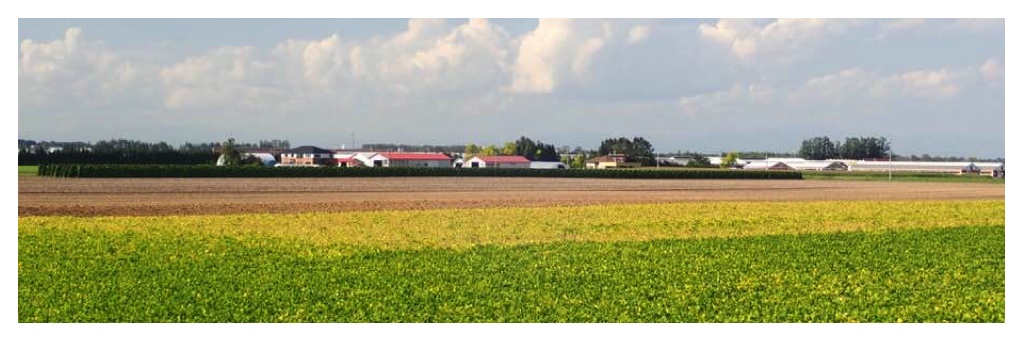
"川西町豊西ファーム付近"
私の投稿はテーマごと、期間ごとに分けられています。左のサイドバーから飛んでください。
My articles are sorted according to the subjects and period. Please jump from the left side bar.
Photos after 2018 are shown here.
鳥を見ながら散歩, January 9, 2018
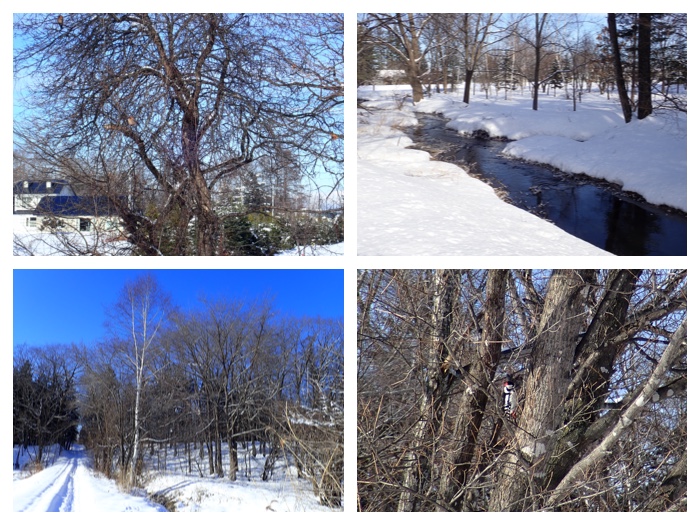
最近、双眼鏡を持って散歩にでかけています。
去年、エゾリスの会の活動に3回ほど参加させていただいて、その際は学芸員さんの予備の双眼鏡を貸していただいていたのですが、自分のものを持ってみたいという気持ちになって、年末に購入しました。まず最初のことでもあるし、あまり高くないもので、かつ性能は期待できるものというわがままな基準で、オリンパスの「8x40DPSI」 という双眼鏡を購入しました。防水機能などはついていおらず約710g という重い双眼鏡ですが、初心者には大変使いやすく、レンズが大きいので視野も広くて明るく満足しています。先日、孫を連れて散歩に行った時には、孫に双眼鏡を奪われて、しかも孫は雪の中で何度も転んだので双眼鏡は雪まみれになってしまいましたが、部屋のなかで乾かしたところ、とくに異常はありませんでした。
私は清流の里3丁目の「機関庫の川公園」、2丁目の「まなびの公園」の木立の中を通り、機関庫川の支流沿いに農業高校の圃場方面に登り、学校林と圃場の間の道を南下して帰ってくるのですが、川沿いの木立の中に鳥はたくさんいます。
まだ名前を知らない鳥がたくさんあるのは残念ですが、今のところ、ムクドリ、カケス、シジュウカラ、ゴジュウカラ、コガラ(ハシブトカラ)、エナガ、アカゲラなどを観察しました。遠くに行かなくても、我が家の前の緑地帯の木立にも鳥はたくさん来ています。
鳥を見ることができるようになって、散歩がさらに楽しくなりました。
Kuroboku soils in Tokai area 東海地方の黒ボク土(Excursion of Japanese Society of Pedology 日本ペドロジー学会巡検), March 3-4, 2018
In Nagoya, I attended the scientific meeting and symposium of Japanese Pedologists (March 1-2) and also joined the excursion of the society (March 3-4). I was very much interested in the excursion because I could visit the andosol sites in Aichi, Mie and Gifu prefectures.
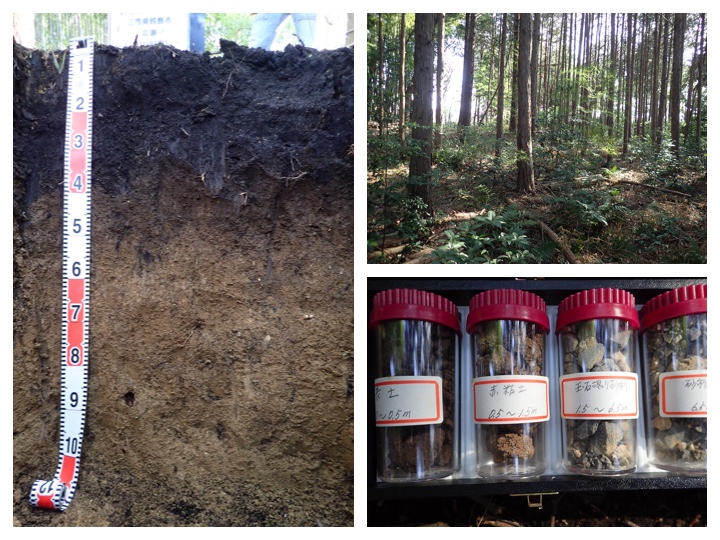
三重県鈴鹿市広瀬の扇状地における腐植質普通非アロフェン質黒ボク土
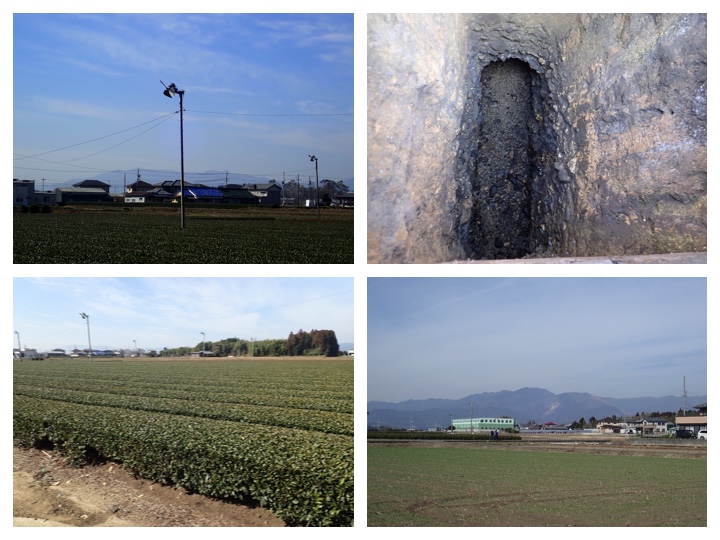
三重県鈴鹿市広瀬の扇状地における灌漑施設 マンボ
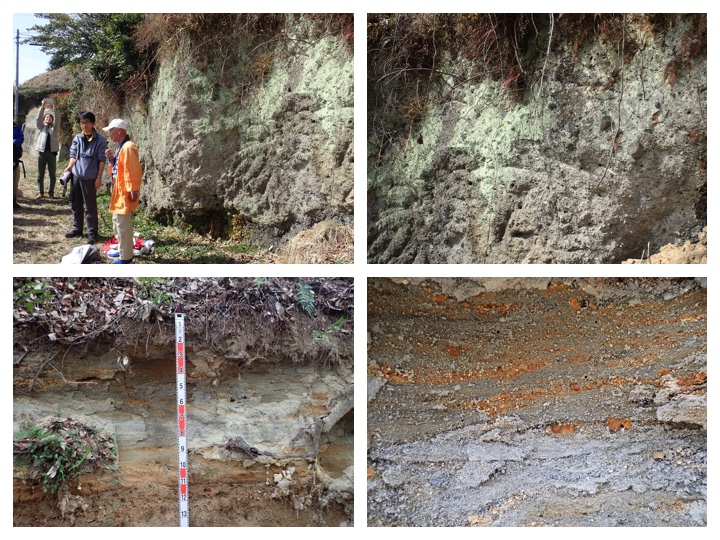
岐阜県鵜沼市における木曽川泥流と御嶽軽石層PM3
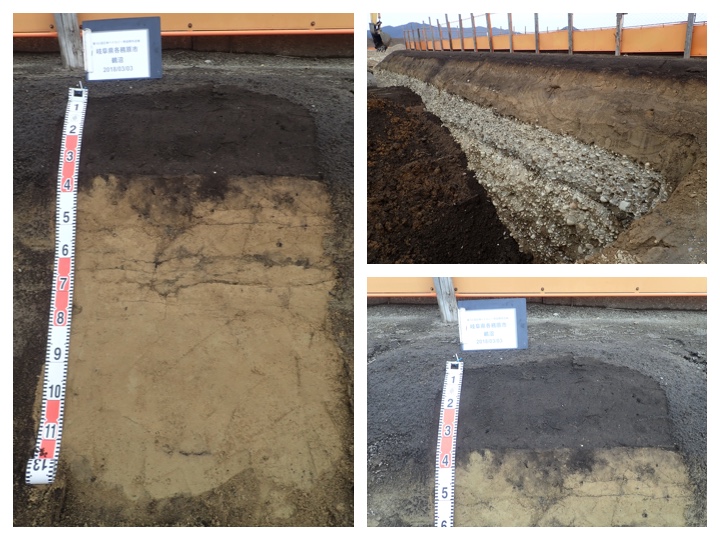
岐阜県鵜沼市低位段丘における普通陸成未熟土
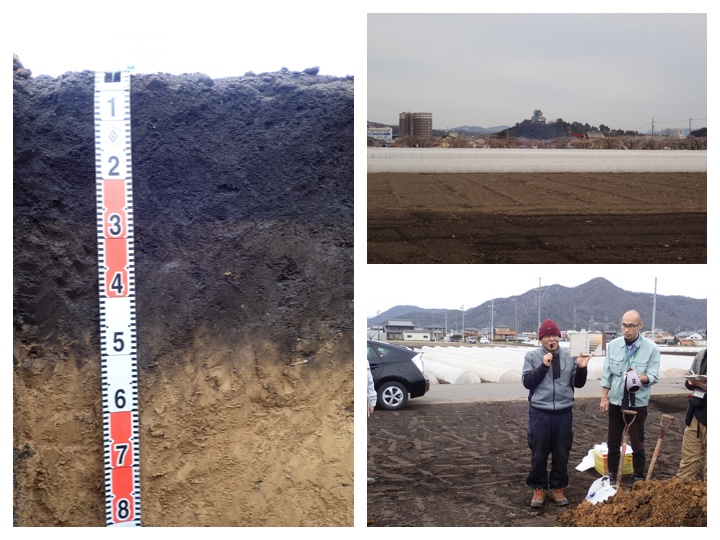
岐阜県鵜沼市中位段丘における厚層非アロフェン質黒ボク土
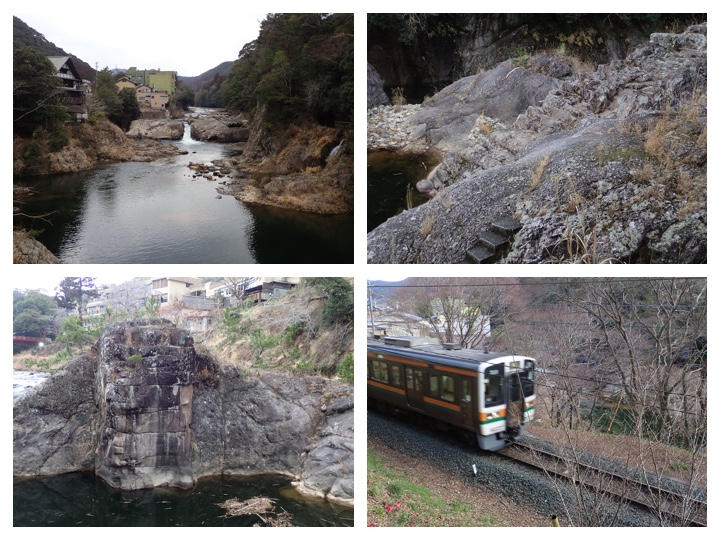
馬背岩(愛知県新城市豊岡 湯谷温泉付近)。凝灰岩に安山岩が貫入し、全体が“馬の背”のように見える。また、川の対岸には柱状節理を持つ安山岩の柱が見えた。
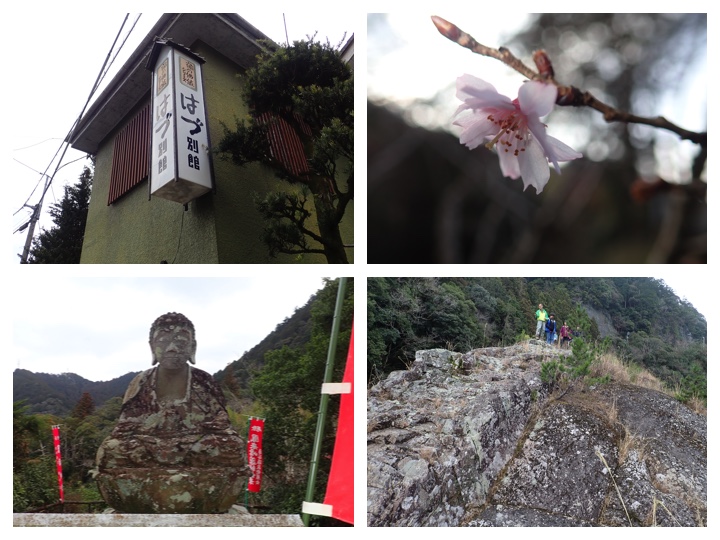
馬背岩(愛知県新城市豊岡 湯谷温泉付近)付近の風景。
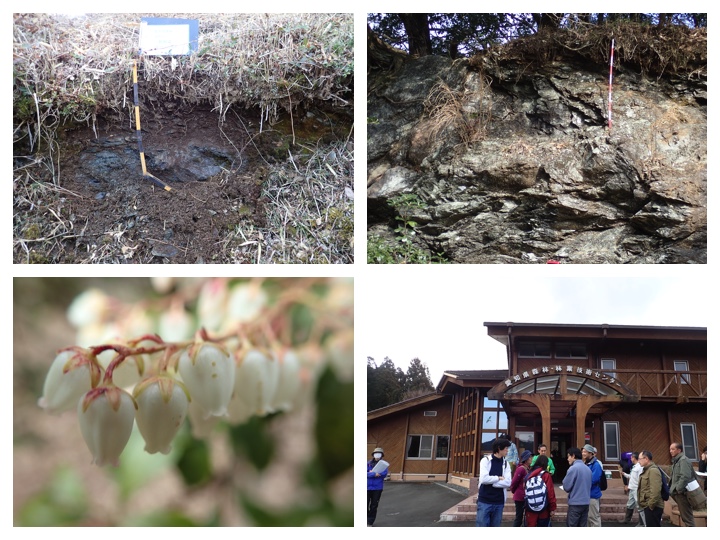
蛇紋岩地帯に発達した土壌(愛知県新城市 森林・技術センター)。
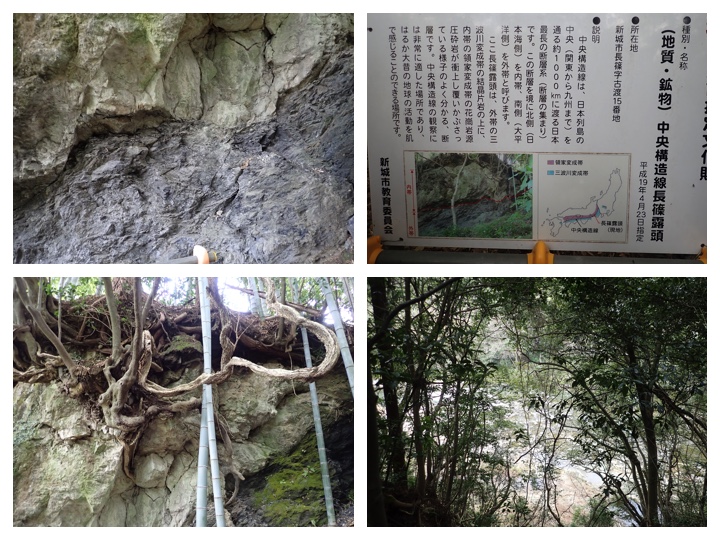
中央構造線の露頭。外帯:三波川変成帯(緑色片岩・黒色片岩)の上に内帯:領家変成帯(花崗岩)が覆いかぶさっている。(愛知県新城市長篠)。
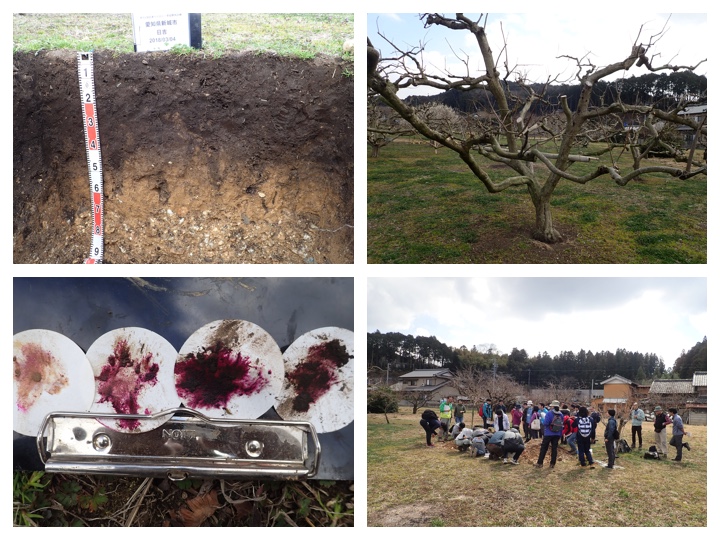
腐植質非アロフェン質黒ボク土。(愛知県新城市日吉)。
関連記事
お礼状:ペドロジスト学会巡検(東海地方3県の黒ボク土)に参加して
Visit to Nagoya and Okazaki, March 3-4, 2018
Before and after the scientific meeting and symposium of Japanese Society Pedology, I visited Nagoya and Okazaki. In Okazaki, I visited the grave of my parents with my sisters, because one year passed since my mother passed on March 5, last year.
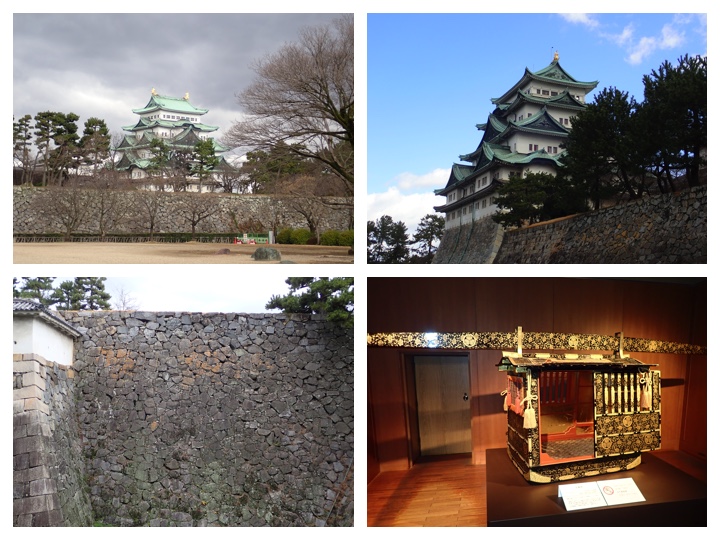
名古屋城
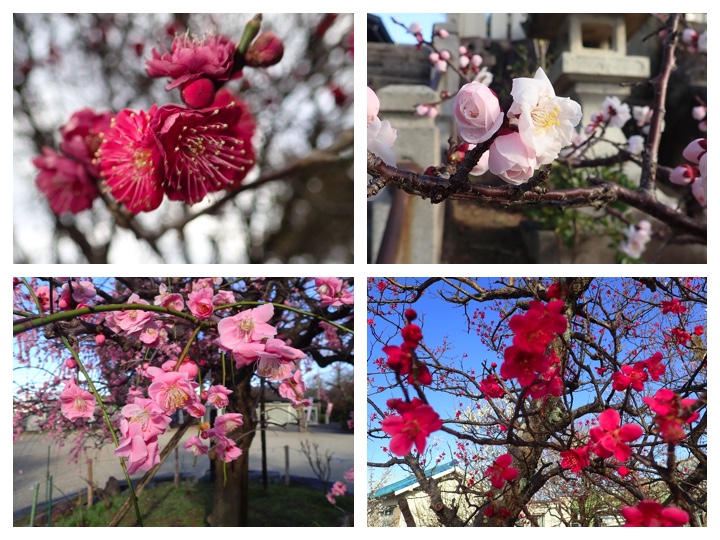
あちこちで見た梅の花
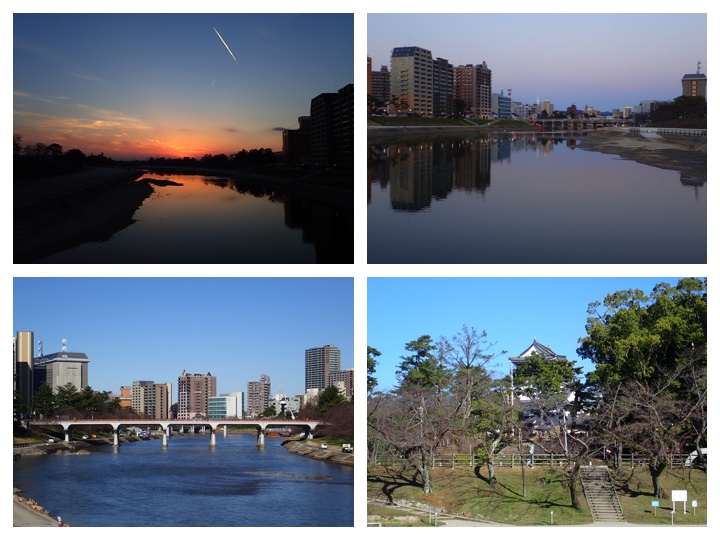
岡崎城周辺。夕暮れと朝の散歩
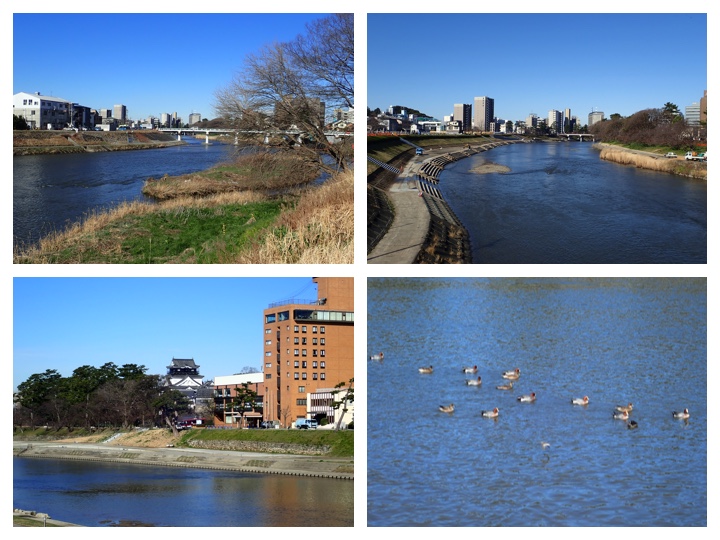
菅生川沿の風景
Heavy snow in Obihiro, March 1-, 2018
While I was traveling, it snowed very much in Obihiro. My wife stayed alone in our house and could not go out due to too much snow. I am sorry to her. I have never seen such large amount of snow heaped in my garden.
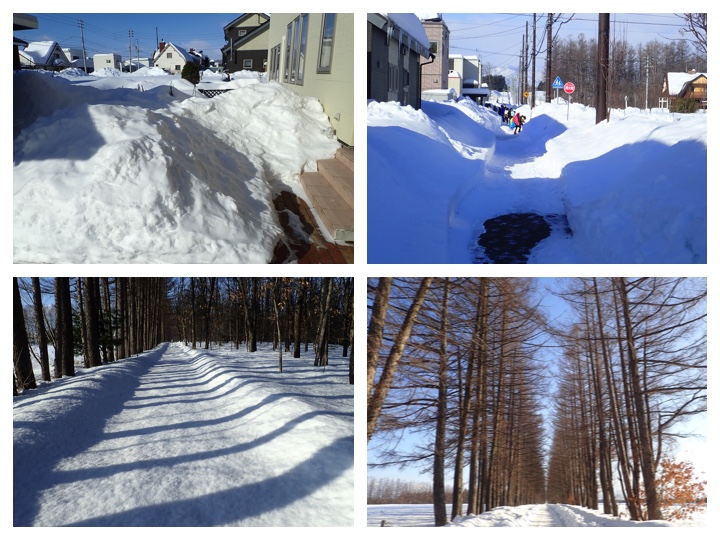
帯広の大雪
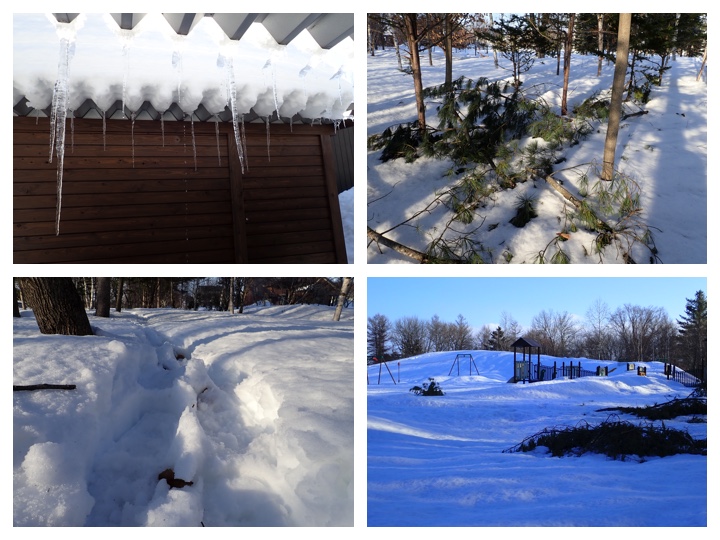
大雪のあとの雨
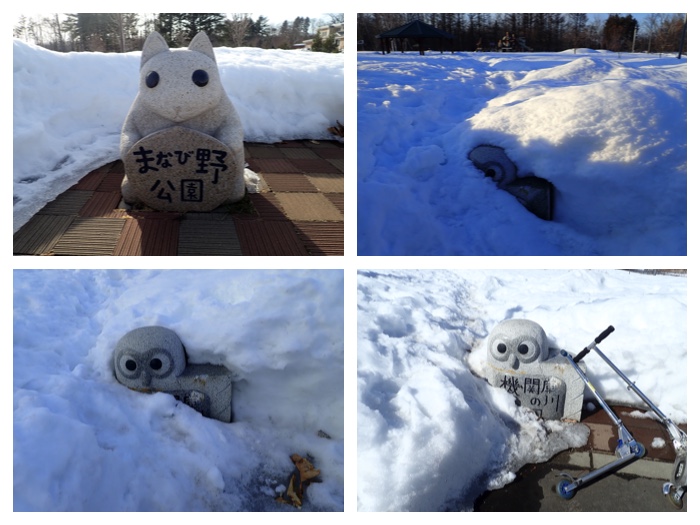
公園のマスコットと雪解けの進行
Melting snow in my garden, March 1- 31, 2018
In one month, heavy snow has almost melted away.
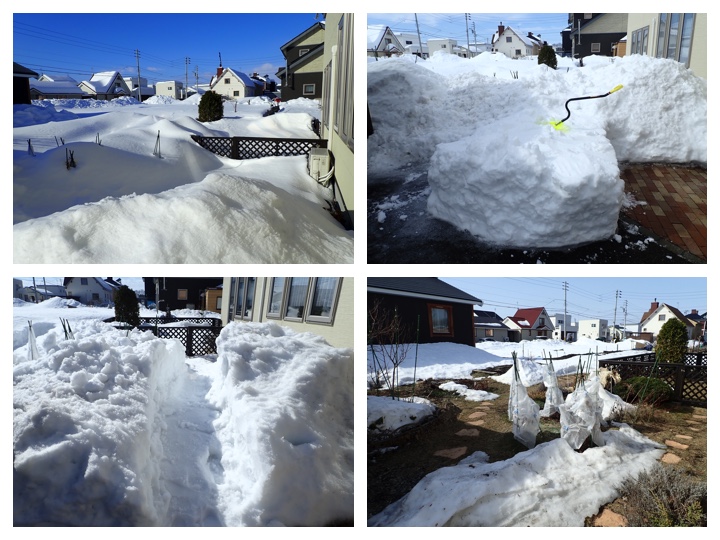
帯広の大雪---その後の1ヶ月
Flowers blooming in early spring ---Spring ephemerals, April, 2018
As soon as the snow has melted, Snowdrops and Crocus bloom in the garden, and Adonis and Butterbur emerge in the fields.
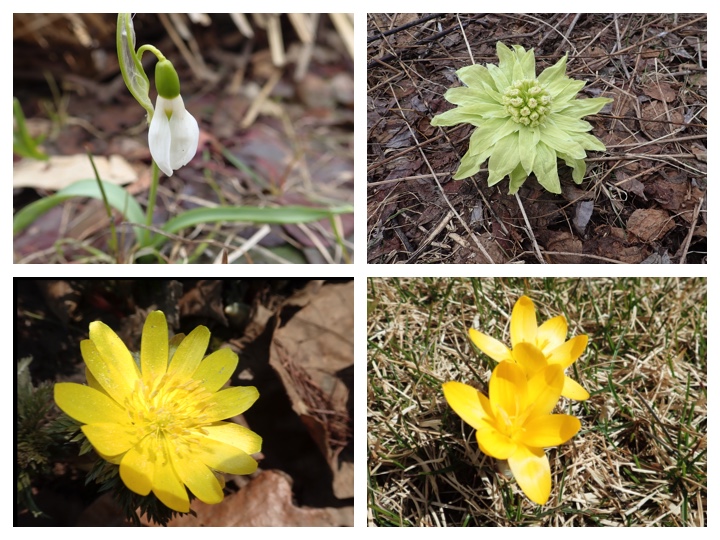
春一番の花たち
Mさん: どうして、厳しい冬を耐えた植物がこんなに美しい花を咲かせるのでしょうかね?!?!先生の見解を聞かせてください。
私: 雪が溶けるとすぐに咲くのだから不思議ですね。雪の下で準備していたのだと思います。他の草や木の葉が伸びる前に咲くことで自分のスペースと光を確保することができますし、これらの花が咲くのを待っていた虫たちによって受粉もしてもらえるのでしょう。
Iさん: つぼみは夏から秋までに準備します。その栄養は春から初夏までの太陽光線分のを回しているんです。
ちなみにヤナギの花芽(いわゆるネコヤナギ)も前年秋までに準備します。8月にもう花芽が皮を被って大きくなっており、皮を剥くと白色に光る毛に包まれた花芽が出てきます。
フキノトウもそんなスケジュールです。
私: Iさん、詳しく教えていただき有難うございます。前の年のうちに全て準備していたとは驚きですね。
Mさん: なるほど。ここ半乾燥地帯の北インドでは、雨期の始まる2カ月前が40℃以上になる猛暑で、雨期が始まる7月頃から急激に新芽や花が咲きます。いつそのような準備をしていたのでしょうね。人間も、草木の寿命も短いのが熱帯インドです。
Spring in Tokyo, March 29-30, 2018
I could enjoy the full bloom of cherry and other flowers in Tokyo, where I visited for the family's purpose.
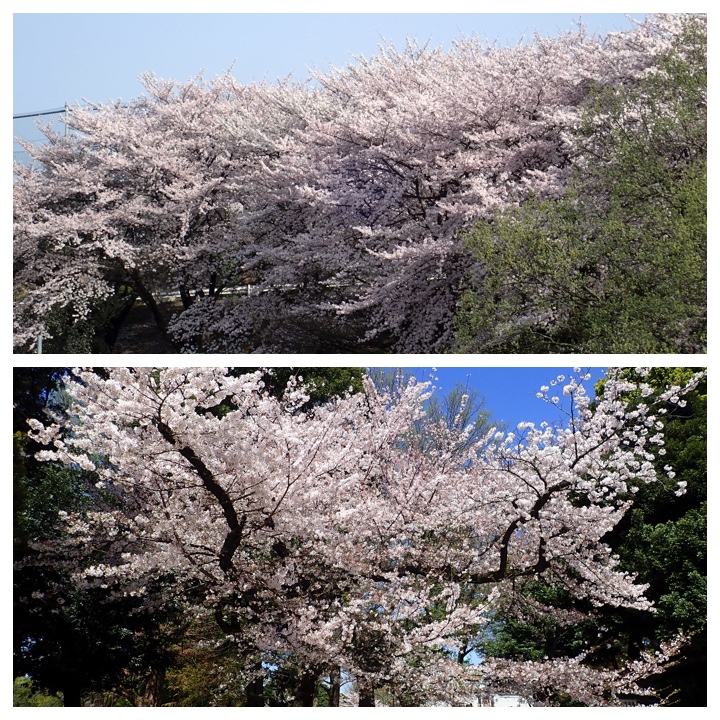
川崎と東京上野の桜
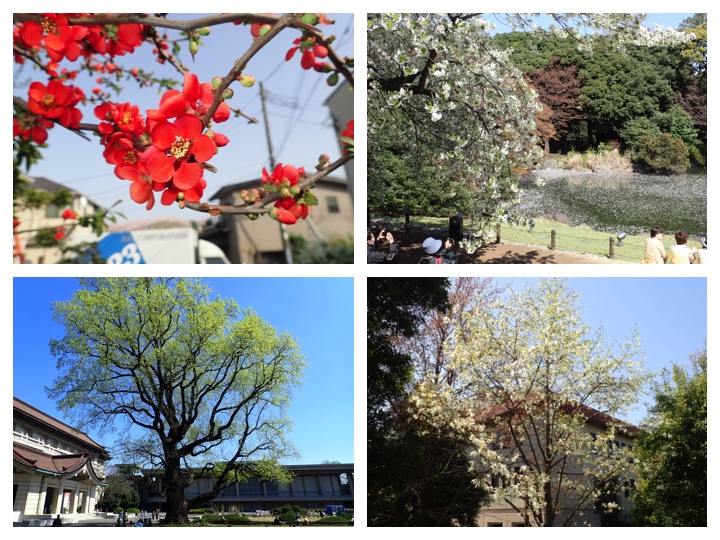
ボケ、東京国立博物館の庭園、ユリの木、コブシ
A community of Asian Skunk Cabbage
I could see a group of Asian Skunk Cabbage in a small wetland near my house.
ミズバショウの英文名は Asian Skunk Cabbage 、ザゼンソウの英文名は Eastern Skunk Cabbage というそうです。花粉を媒介してくれる昆虫をおびき寄せるために悪臭を発散するためとのことですが、かわいそうな名前をつけられたものです。グリム童話でシンデレラのことを別名「灰かぶり」と呼んでいることを思い出しました。
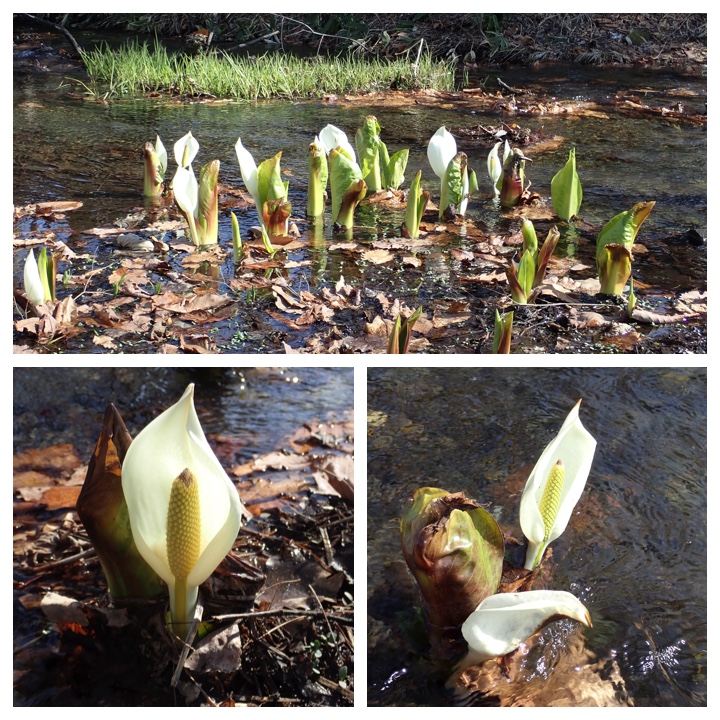
ミズバショウの群落(帯広市内)
Snow and birds for the memory of long winter in 2018.
Frost and crystal of snow. / Photos of birds taken during my walk.
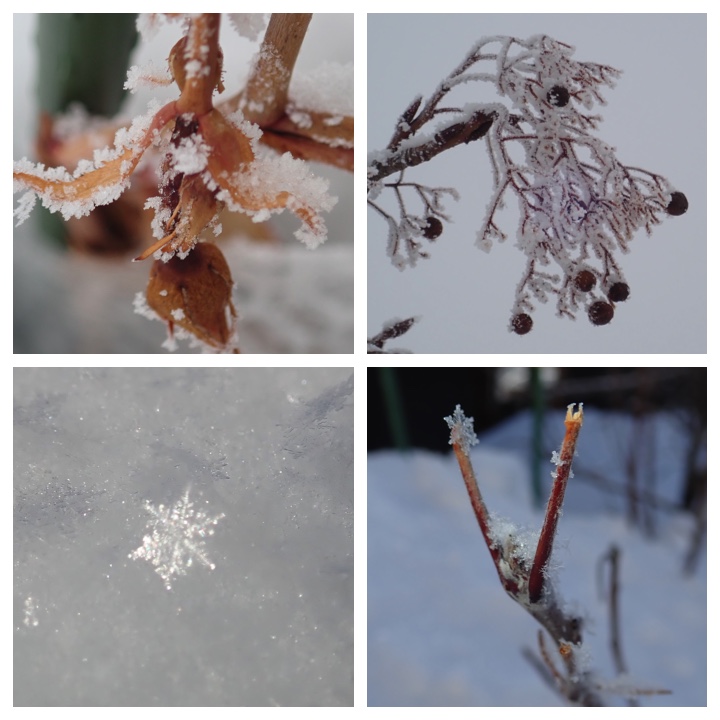
Tree frosts (Feb. 11) / Snow crystals (Feb. 7)
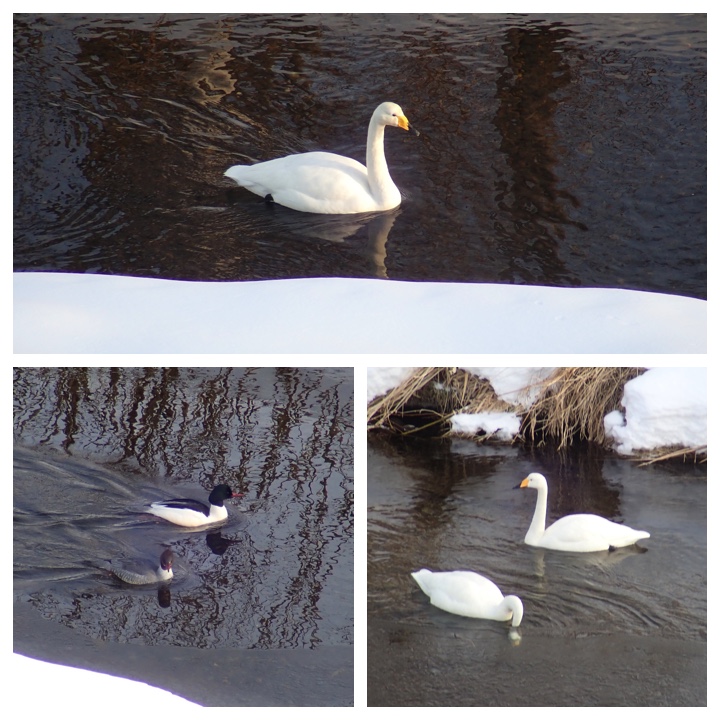
Swans and Mergus merganser on Urikai river.
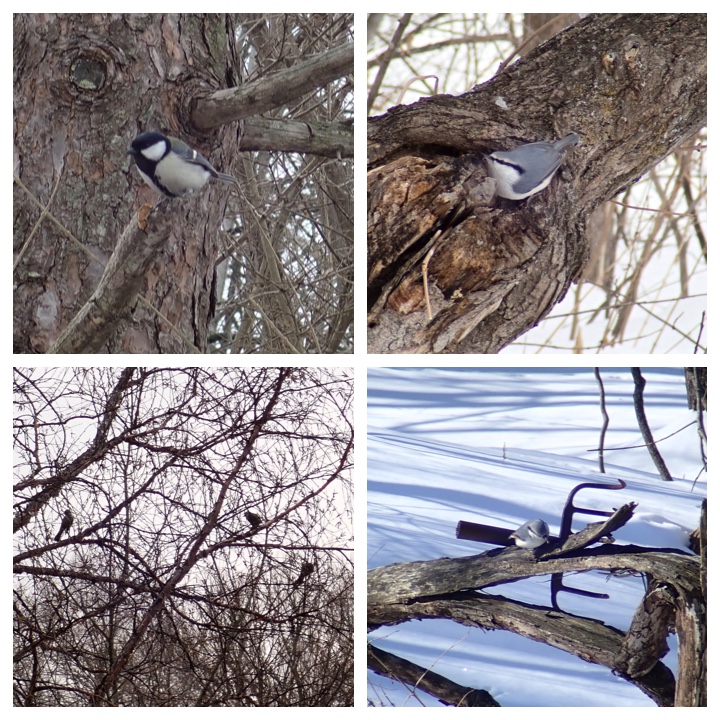
Japanese Tit (upper left), Eurasian Nuthatch (two photos in the right) and Brown-eared Bulbuls (lower left).
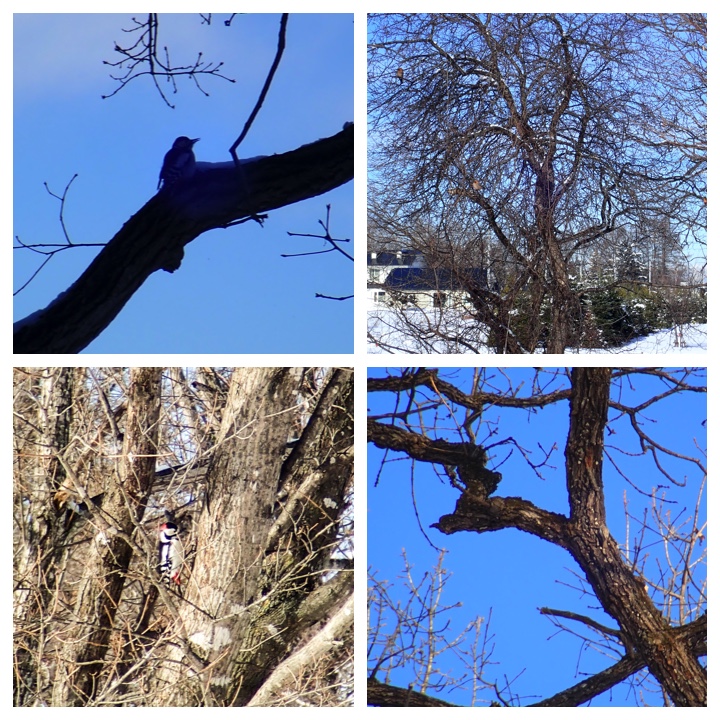
Woodpeckker and other birds (Eurasian Jay and Eurasian Treecreeper) on trees. Treecreeper (lower right) is too small and difficult to find.
Snow in April 6.
It snowed again on April 6. Anyway we are free from snow only from June to September, therefore we have to enjoy the snow.
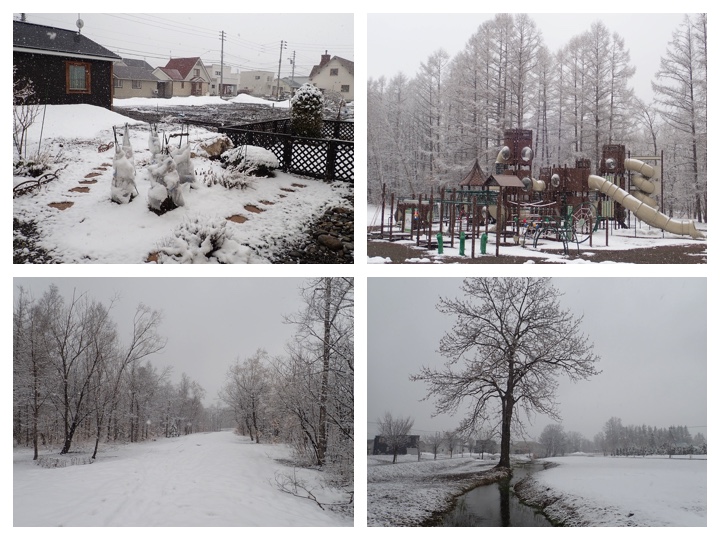
My garden and Kikanko river park.
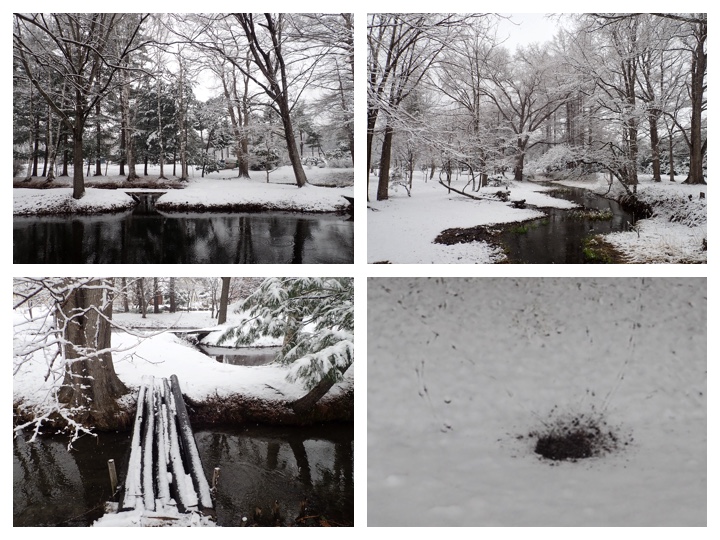
Trees and Kikanko river in Manabino park. Brown-eared Bulbul was digging the soil to seek worms.
Scenes in and after the early spring snow in April.
It was still snowy in the morning of April 7. However, snow has almost melted in the afternoon.
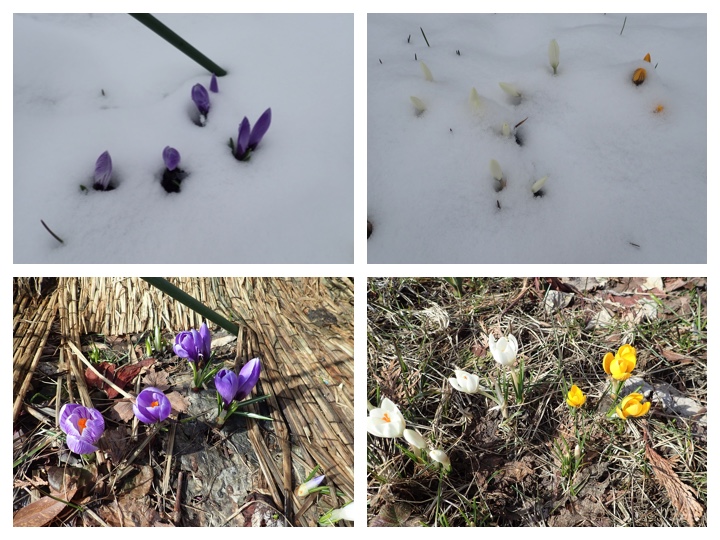
Crocus in snow seemed pitiful in the morning, but they were delighted in the afternoon.
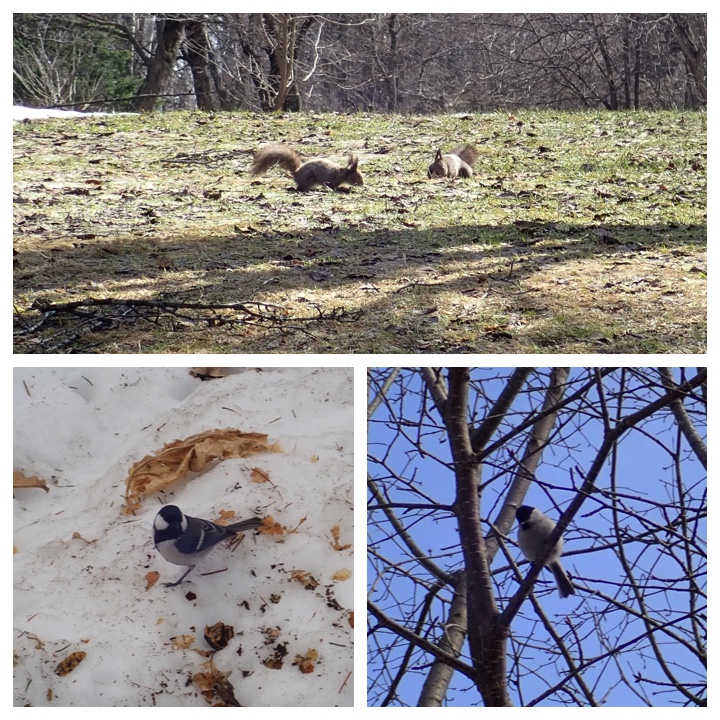
Squirrels and birds were active in the afternoon of April 7 in the Green Park of Obihiro.
Birds are Japanese Tit (left) and Marsh Tit (right), respectively.
The path of sculptures in the Green Park of Obihiro.
Along the path connecting the Art Museum and the Zoo in the Green Park of Obihiro, 21 sculptures made by 18 artists are exhibited. The sculptures were carved out from the granite stone produced in Tokachi. No explanation or title is shown for each of the sculptures, though the artists themselves gave titles to their works, therefore it is free for us to imagine anything from these art works.
“The path of sculptures“ was advocated by a prominent sculptor, Mr. Shin Hongou, famous for the creation of the "Statue of Wadatsumi" and many other works. He planned that the creation of sculpture should be done in a symposium style. Original Tokachi granite stones were brought to the site in the Green Park, and the artists carved the stone at the site. Mr. Hongo invited young promising artists to join the project. Sculptures were carved at this site during the period from1970 to 1973. Citizens could see or watch how those sculptures were carved by the artists. Among the twenty-one sculptures, four sculptures were carved by Mr. Nobuya Nakai.
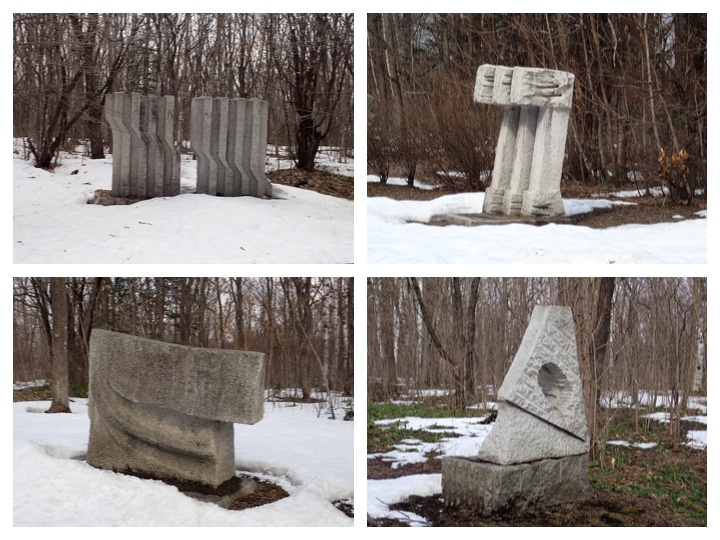
Sculptures with hard impressions.
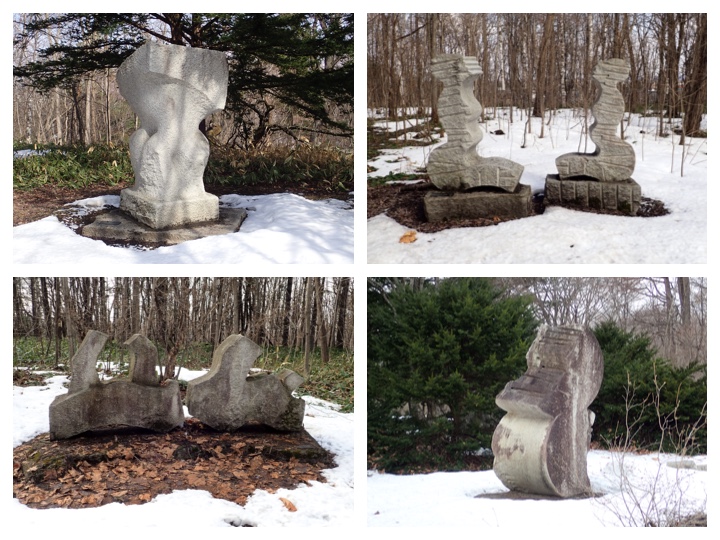
Sculptures with soft impressions.
Removal of the bridge on a pond in the campus.
The bridge on the "biotope(*)" pond in the campus of Obihiro University of Agriculture and Veterinary Medicine has been removed. The bridge had been damaged severely by the frozen frost heave during winter season. Maybe it will provide better environment for wild lives. * There has been a debate on whether this pond can be called a biotope or not. The bottom of the pond is sealed with a thick plastic film, and the bottom mud is very thin or absent, which brings about the very poor saprophytic biota in the bottom. The animals and plants in the upper phase becomes also poor accordingly.
畜大のいわゆるビオトープ池(柏陵池)にかかっていた橋が撤去されました。冬季の凍結凍上によってかなりひどく壊れていたためです。野生生物(動物・植物)にとってはより良い環境となるでしょう。ただし、この池をビオトープと呼んで良いかどうかについては論争があったようです。私が個人的に感じていた問題点としては、池の底にプラスチックのシートが敷き詰めてあり、底泥が乏しいかほとんど無いことです。そのため底生の腐生生物(微生物相や昆虫相)が発達せず、それらに依存する植物や動物相も豊かになれないということです。
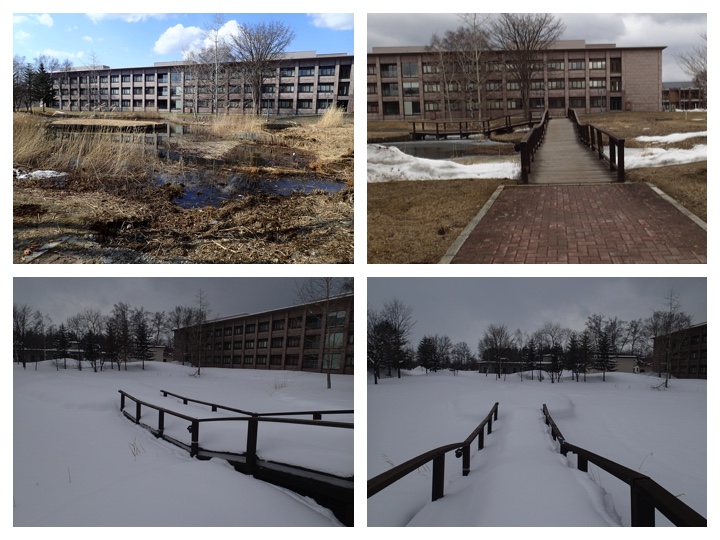
Scenes of biotope pond before and after the removal of bridge.
Eastern Skunk Cabbage in a forest swamp.
I walked into a deciduous forest on a lower terrace near my house. In the mid-winter, it was frozen and accessible everywhere as far as I walked in deep snow, but it became swampy and too wet after the snow-melt. Today, I could find Eastern Skunk Cabbage in the swamp. I did not expect to find it before I started walking today.
今日は低位段丘上の広葉樹林の中に入ってみました。冬の間はそこらじゅう凍って雪が積もっていたので、雪を苦にしなければどこにでも行けたのですが、今日行ってみたところ、そこらじゅう水浸しの湿地となっていました。その湿地の中にザゼンソウやヤチボウズを見つけることができました。いつも散歩に行くときはあらかじめ何を見ようとか考えていないのですが、今日もザゼンソウを偶然発見できて幸運でした。
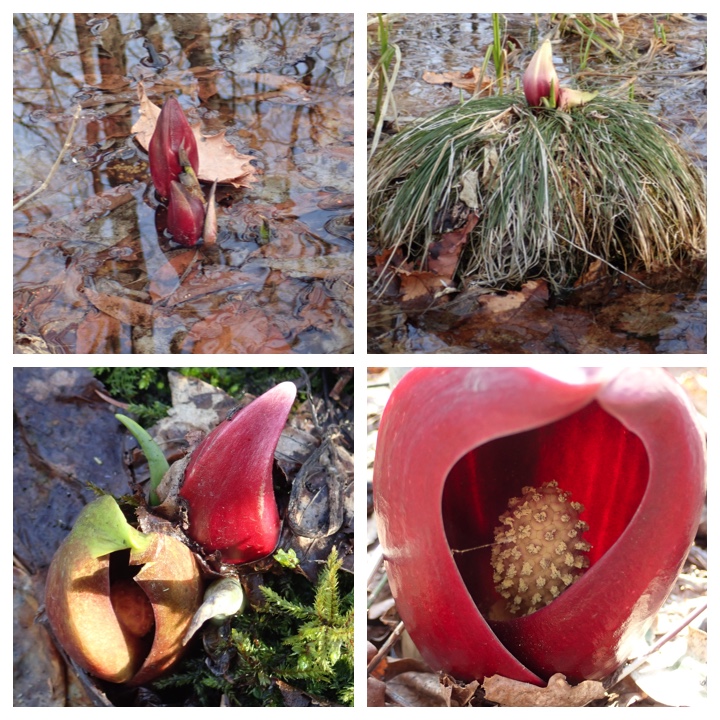
Eastern Skunk Cabbage (Symplocarpus foetidus).
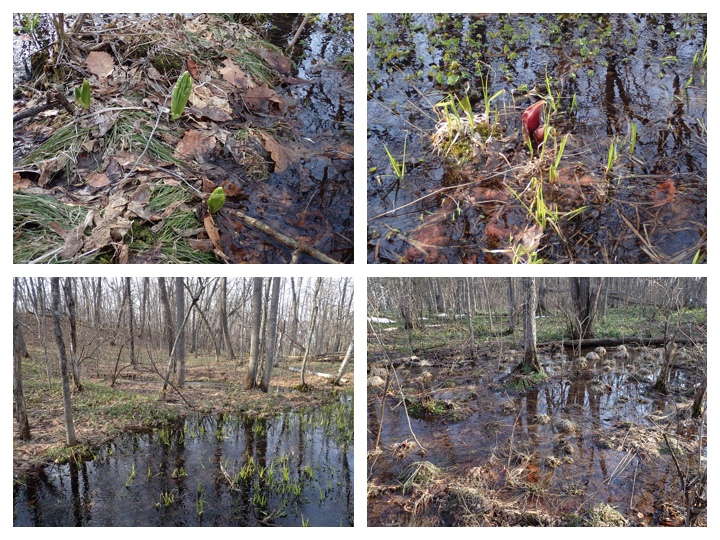
View of swamps in a deciduous forest.
Budding of Red-berried Elder.
From time to time, I took the photos of small tree buds along the Kikanko river. It was Red-berried elder. The dates of photo taking were March 27, 2018, April 9, 2018, April 12, 2018 (two photos in the middle) and April 21, 2017 (two photos in the lower row.)
機関庫川沿いの散歩の折に、ときどき木の芽の写真を撮ってきました。それはエゾニワトコの木でした。写真を撮った日は、上段左:March 27, 2018, 上段右:April 9, 2018, 中段の2枚:April 12, 下段の2枚:April 21, 2017 です。
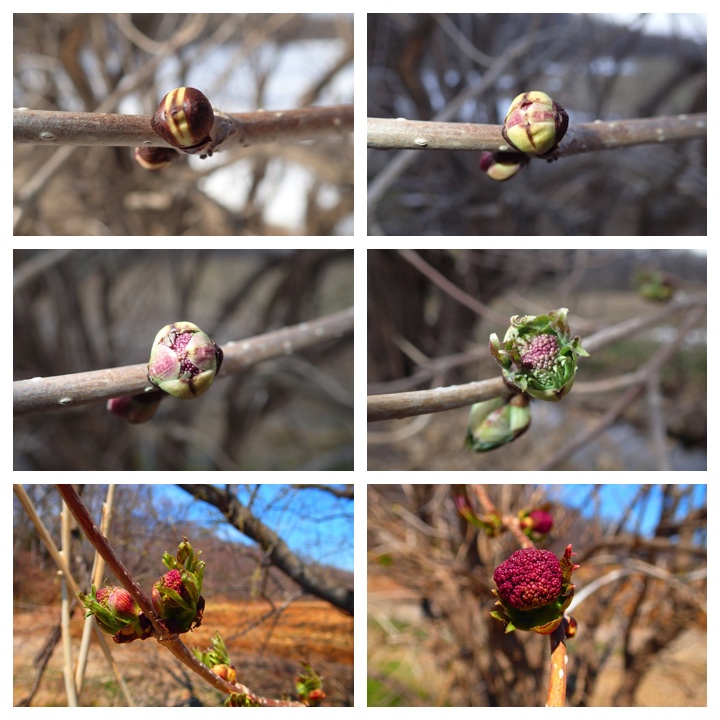
Buds of Red-berrried Elder from the end of March to April.
Asian Skunk Cabbage again. 再びミズバショウ.
For my afternoon walk, I visited again the growing site of Asian Skunk Cabbage. It is a small colony, and I wish it will be preserved for a long time.
午後の散歩の途中でミズバショウの群落を再び訪れました。私は前回偶然この群落をみつけたのですが、小さな群落なのでなくならないでほしいなと思います。
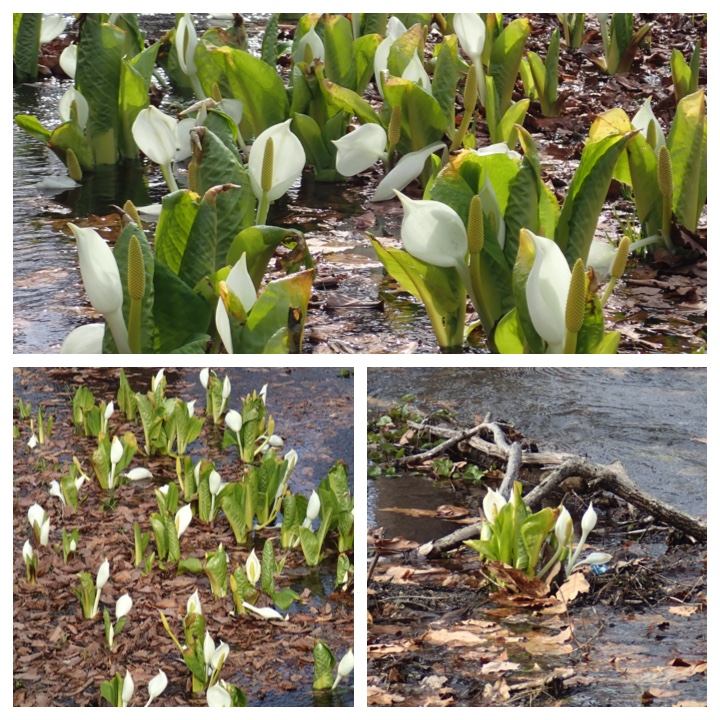
In 8 days after my last visit on April 5, flowers of Asian Skunk Cabbage increased and grew a little taller.
A flock of goose along the Satsunai river. 札内川沿いで見た雁の群.
During my afternoon walk along the bank of Satsunai river, I saw a big flock of gooses consisted of 60 - 80 birds in the sky. They are migratory birds and will return to northern countries soon. The third photo shows a Japanese ash tree (Memorial tree No. 1 of Obihiro city) beside "Aikoku Big-Bridge".
札内川の堤防を散歩していたところ、60−80羽からなる大きな雁の群れを見ました。 雁は渡り鳥でもうすぐ北の国に帰ることと思います。3つ目の写真は愛国大橋のたもとにある帯広市指定樹1号のハルニレの木です。
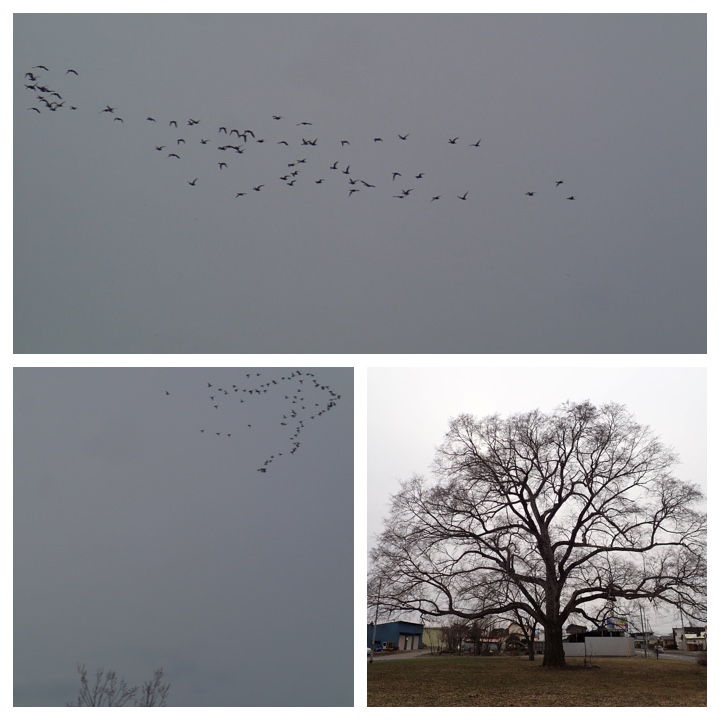
A flock of goose along the Satsunai river.
Hidaka mountain range with the snow stripes of yesterday on the field. 日高山脈と昨日の雪が残る畑.
On my way to the university as a part time lecturer at around noon, I could see the beautiful view of Hidaka mountain range. Snow which fell yesterday still remained in the rows of the field.
非常勤講師としての講義のためにお昼頃に大学に向かう途中、日高山脈がきれいに見えたので写真を撮りました。畑の畝間には昨日降った雪がまだ残っていました。
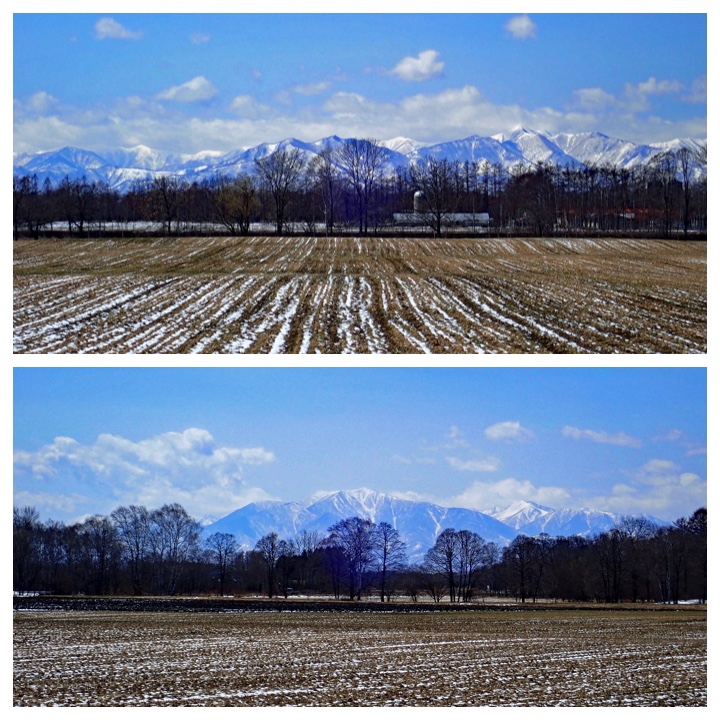
Hidaka mountain range and the field of OUAVM.
Walk along the Urikai river bank. 売買川堤防沿いの散歩
I walked along the bank of Urikai river to the west of the field of Obihiro University of Agriculture. I walked here last October looking for mushrooms and last February with snow shoe. It is a quiet and nice place surrounded by riparian forest.
今日は大学の圃場の西側にある売買川の堤防沿いに散歩してみました。去年の秋にはキノコを探して、今年の2月にはスノーシューをはいてこの堤防を散歩しました。河畔林に囲まれた静かで素敵な散歩道です。
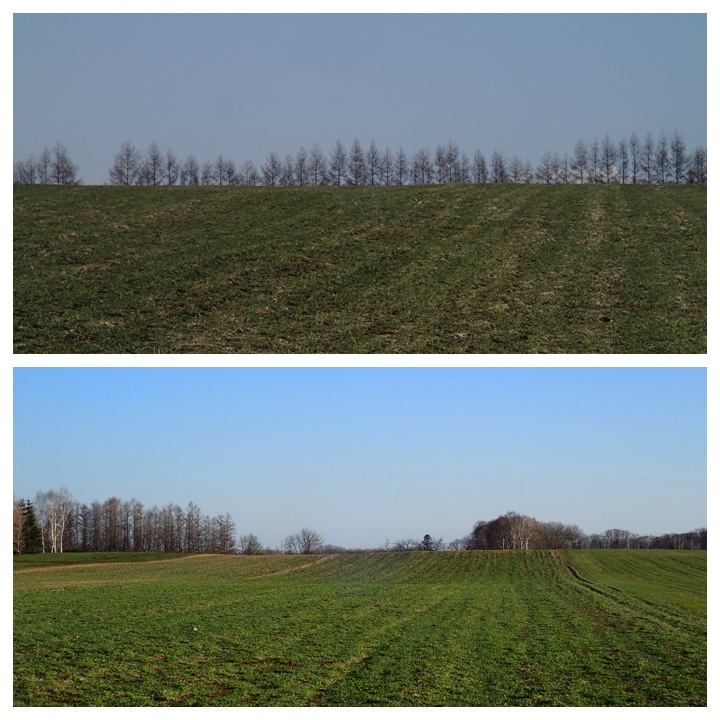
Field of Obihiro agricultural high school seen from the southern and northern end of the field before and after the walk to Urikai river.
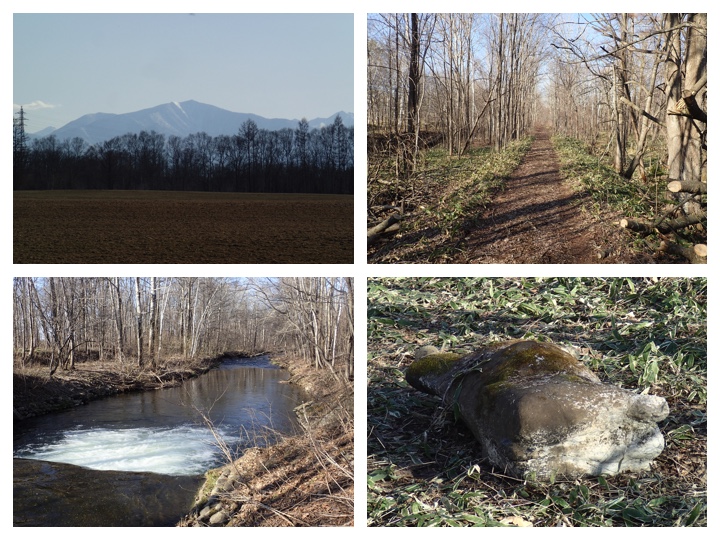
Scenes of Urikai river bank 1.
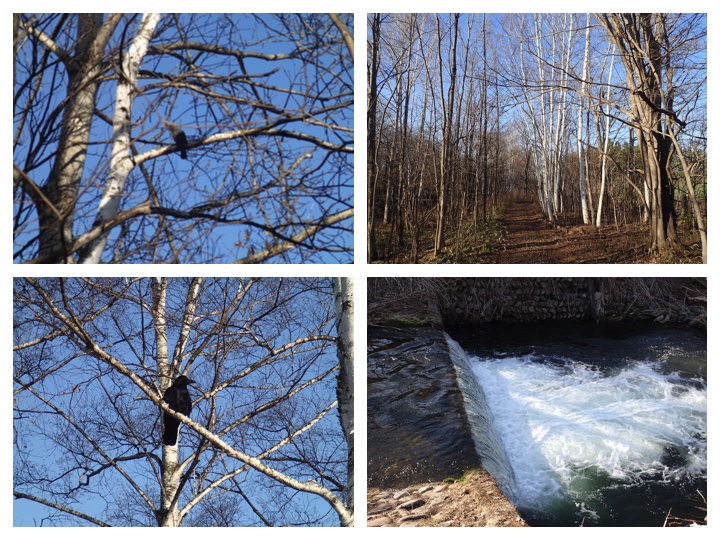
Scenes of Urikai river bank 2.
Afternoon work and walk in the field of Obihiro University of Agriculture & V. Medicine. 帯広畜産大学の圃場での午後の仕事と散歩
Today afternoon, I went to the university field to prepare for my practice class for J2 students. I placed the poles in the field to show the section of the lot for potato cultivation. After fixing the work, I walked to the bank of Urikai river and to the site of earth-hammock.
今日(4月20日)の午後は、今年も非常勤講師として担当する別科実習に備えて、バレイショ用の畑の区画と畝の位置を示すためポールを設置してきました。別科実習は実習とはいいながら1回が90分しかないので、ある程度準備しておかないと1回の時間内では終わらないからです。2時間くらいで仕事を終えて、あとはキャンパス内を散歩しながら、つい先日にも行った売買川の堤防まで足を延ばしました。また、その近くにある十勝坊主の様子も見ました。
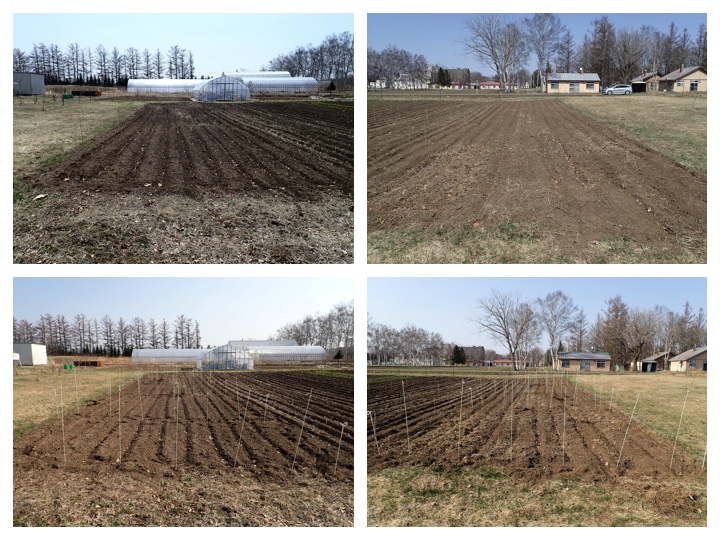
The field for my practice class for J2 students, before and after placing the poles. (April 19 and 20)
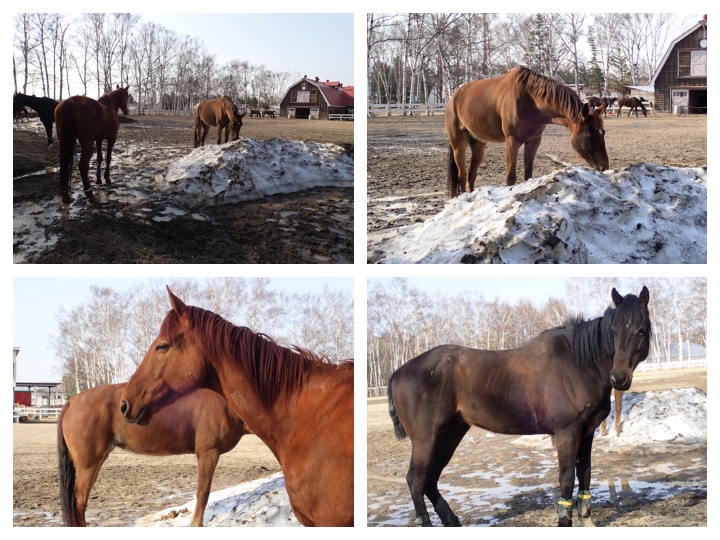
As it became very warm today, the horse of the horse riding club licked the snow remaining in the horse yard.
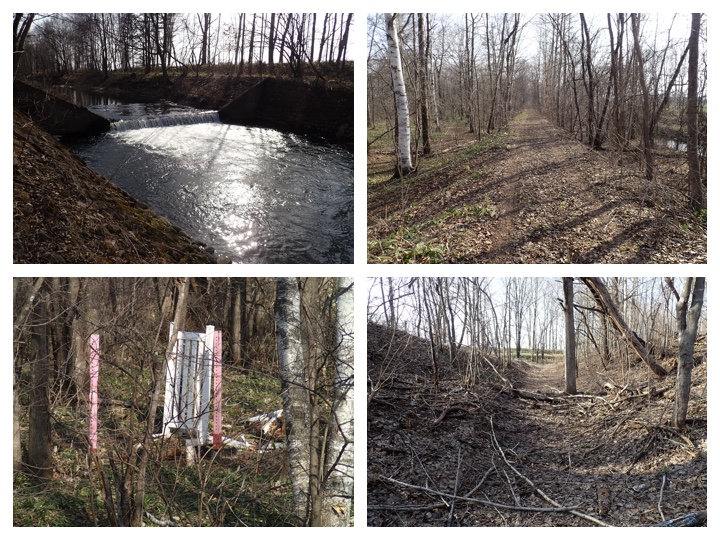
Scenes of Urikai river bank. The path along the river is also used for practicing horse riding by the students of horse riding club.
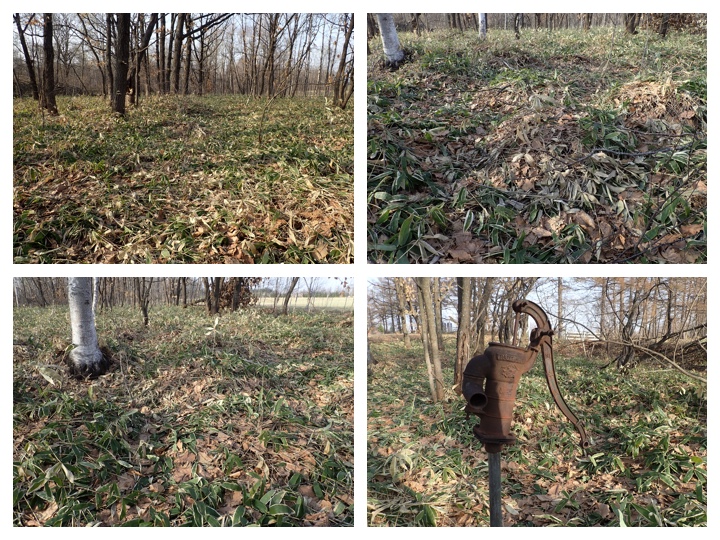
Scenes of "Tokachi Bozu", earth hammock site. They are soil mounds formed due to the lifting of soils by the freezing of soil water during the little ice age around 1,000 B.C. - 1,500 A.D.
Flowers and wetland plants along a small stream in the forest of Obihiro. 帯広の森の川沿いの湿地植物と花
As it became very warm suddenly, I could observe a flushing bloom of various wild flowers along a small stream in the forest of Obihiro.
急に暖かくなるとともに、帯広の森の中を流れる川沿いの湿地には色々な花が一度に咲き始めました。
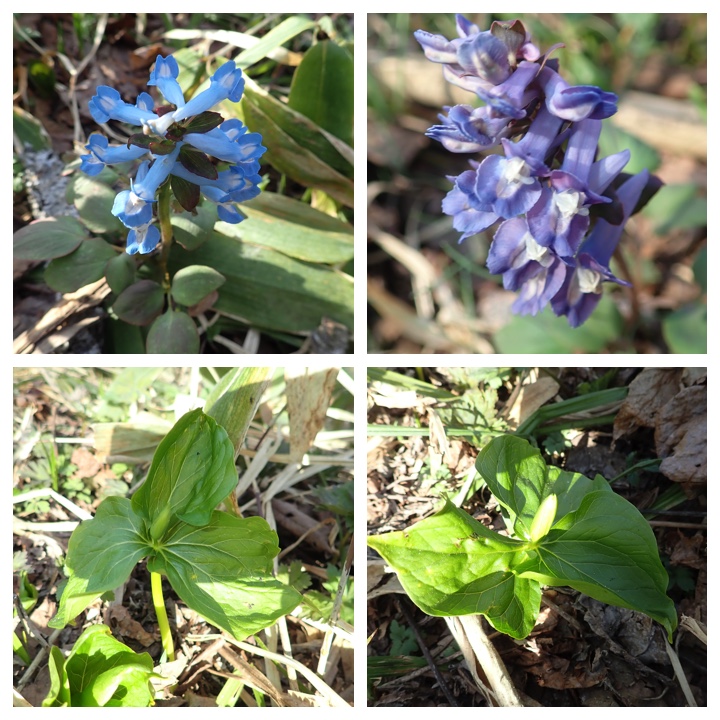
エゾエンゴサクとオオバナノエンレイソウ(開花前の小さなつぼみ)
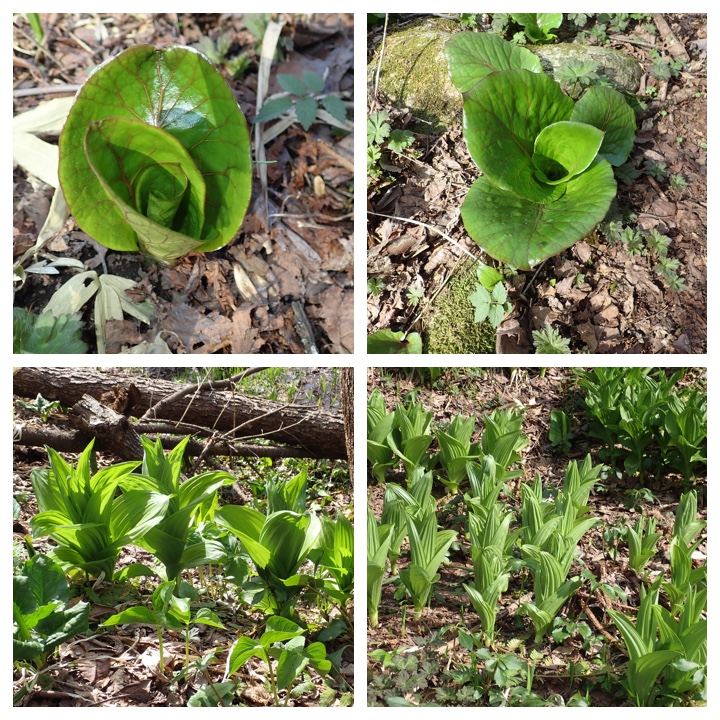
オオウバユリとバイケイソウの芽生え
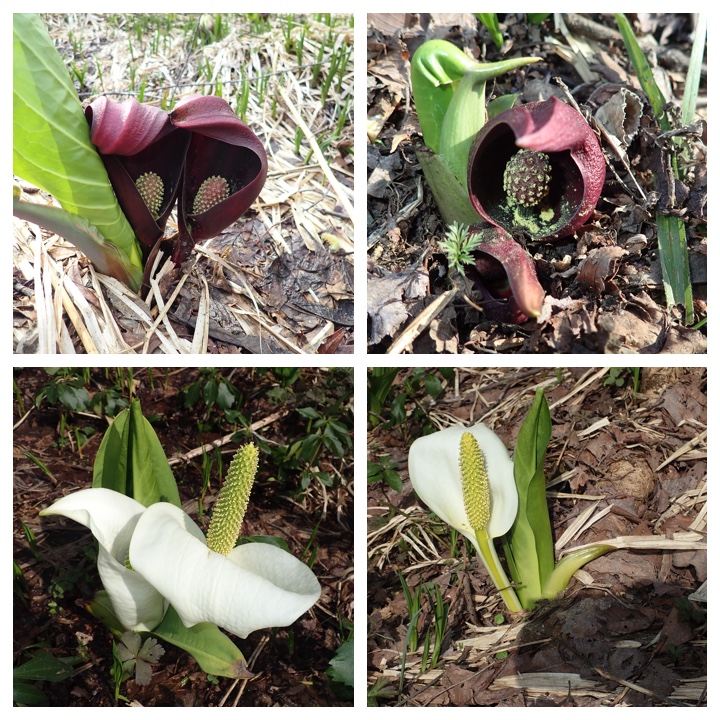
ザゼンソウとミズバショウ
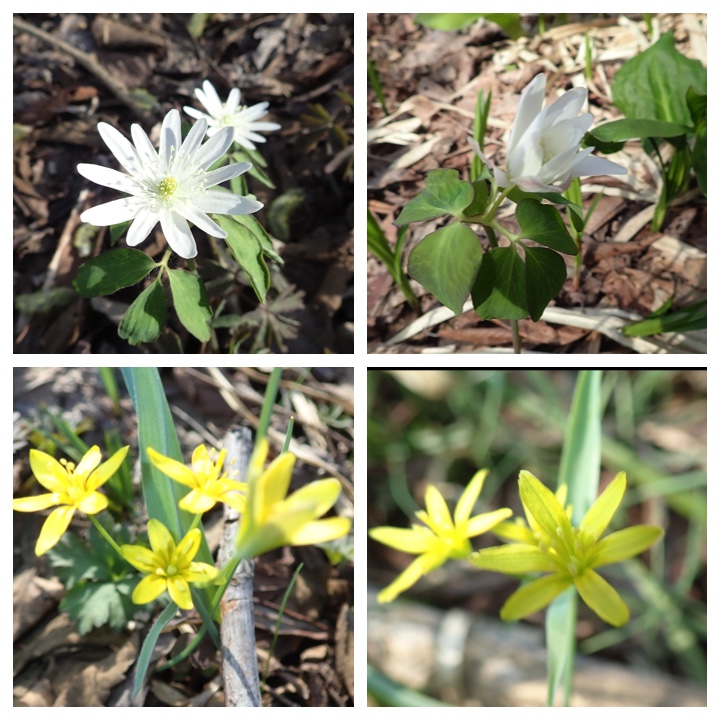
アズマイチゲとキバナノアマナ
From Saturday (April 20) to Monday (April 23). Field and Garden.
土曜日から月曜日。圃場と庭の変化。
Flowers in my garden also bloom rapidly as it becomes warmer. I also show the photos of potato cultivation field for the class of field practice.
土曜日から月曜日にかけて、水仙とプリムラの開花が急に進みました。大学での圃場実習の様子も載せます。
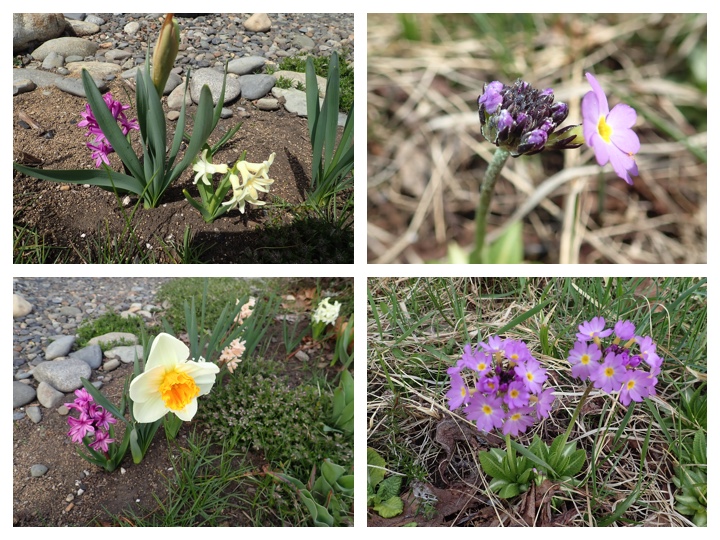
水仙とプリムラの開花。上2枚は4月20日(土曜日)、下2枚は4月23日(月曜日)。
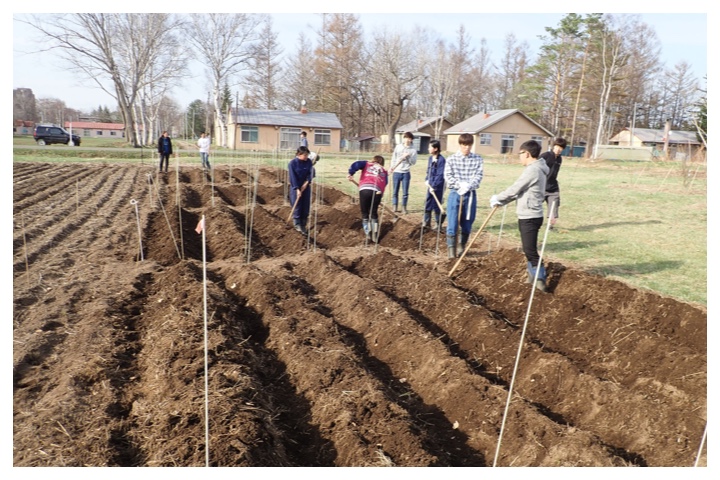
別科実習でのバレイショ栽培圃場。畝を起こしているところ(4月23日 月曜日)。
Field survey for the junior course practice class. Relief, land-use, soil and vegetation.
別科実習:地形、土地利用、土壌・植生の調査。
毎年別科実習のなかで、地形面、土地利用、土壌と植生の関係を説明するために、畜大から農業高校の圃場と保存林を通り、低地面までを歩いてみています。
今年の授業は既に4月16日に行ったのですが、その際は写真を撮れませんでしたので、今日改めて各地点の写真を撮ってきました。
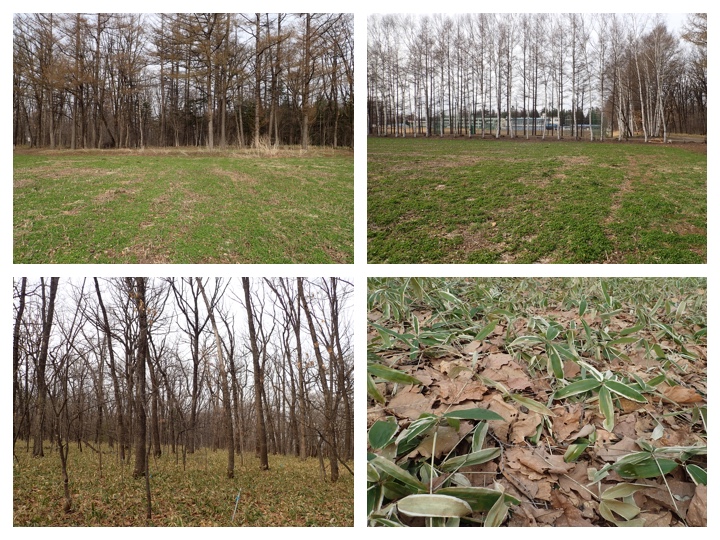
中位段丘面の東端にある農業高校の圃場(上2枚)と中位段丘面のミズナラ・カシワ林および林床(下2枚)。
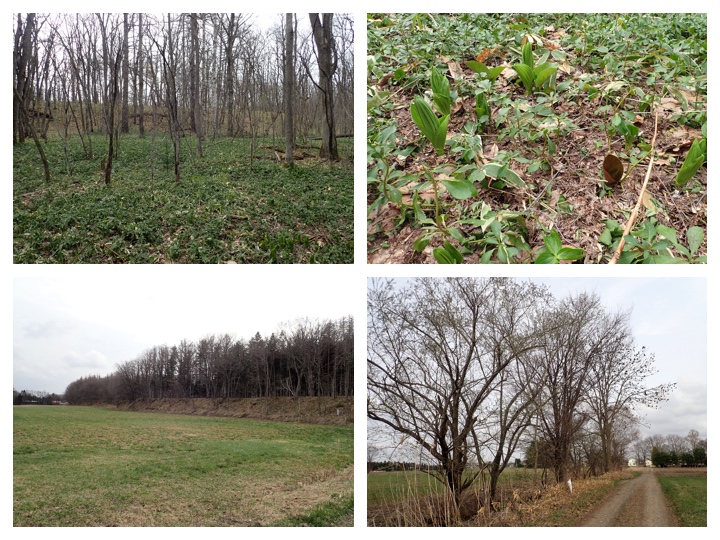
低位段丘面の湿地林と林床(上2枚)および低地面の草地および河畔林(下2枚)。
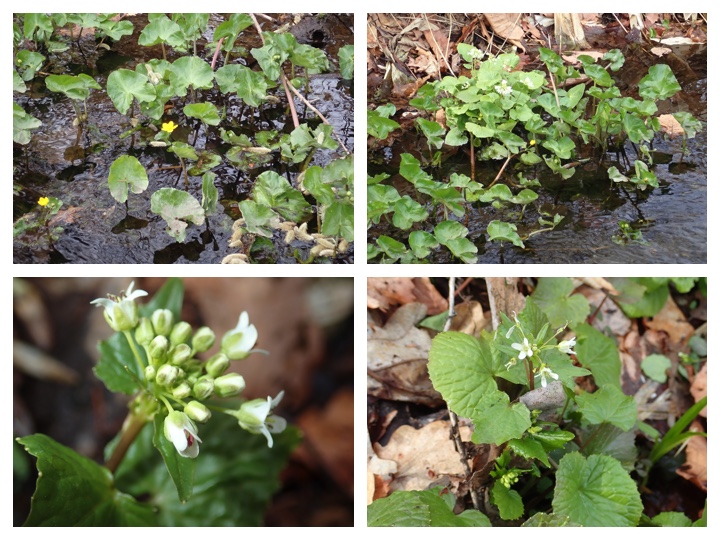
低地面を流れる機関庫川の支流にはエンコウソウ(別名ヤチブキ、キンポウゲ科、上2枚)、ユリワサビ(アブラナ科、下2枚)などが生えていました。エンコウソウの黄色い花が咲き始めました。ユリワサビは花弁4枚の小さな花です。(4月24日 火曜日)。エンコウソウとエゾノリュウキンカの違いについては、「アイヌ語で自然かんさつ図鑑」(2018, 帯広百年記念館友の会刊行)に詳しい説明が載っています。
Flowers in the wild grass garden and green park of Obihiro in the late April.
4月下旬の野草園とグリーンパークの花。
Though the wild grass garden will officially open from the coming Saturday (April 28), it was already temporarily open to public since last Saturday. A community of "Katakuri" (dogtooth violet) was in full bloom and very beautiful. Various small wild flowers were also beautiful. I also visited the Centennial Museum of Obihiro and the Green Park. In the water side, I could see "Ezono-ryuukinka" (Caltha fistulosa) and a big "Mizubashou" (skunk cabbage). Japanese Magnolia was also in full bloom, but cherry trees have not blossomed yet. They are expected to bloom in this weekend.
野草園は本当は4月28日が開園日なのですが、既に先週の土曜日から臨時で開園してくれていました。野草園に入ってすぐに、見事なカタクリの群れに目を奪われました。アズマイチゲやニリンソウなどの花も可愛かったです。グリーンパーク内の池のほとりでは大きなミズバショウとエゾノリュウキンカが綺麗に咲いていました。園内ではちょうどキタコブシが満開でした。エゾヤマザクラはちらほら咲き始めた木もあるという程度でしたが、今週末には一斉に咲き始めることと思います。
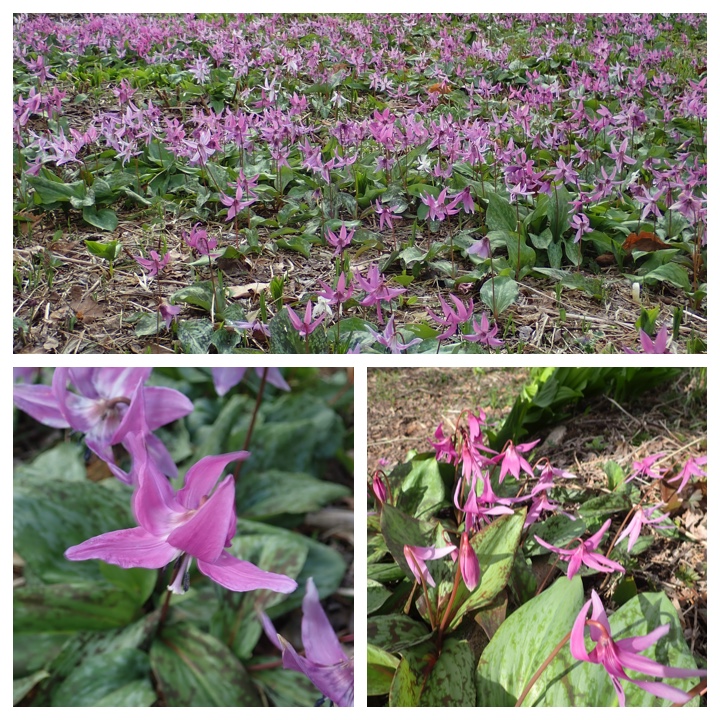
野草園内のカタクリの群落
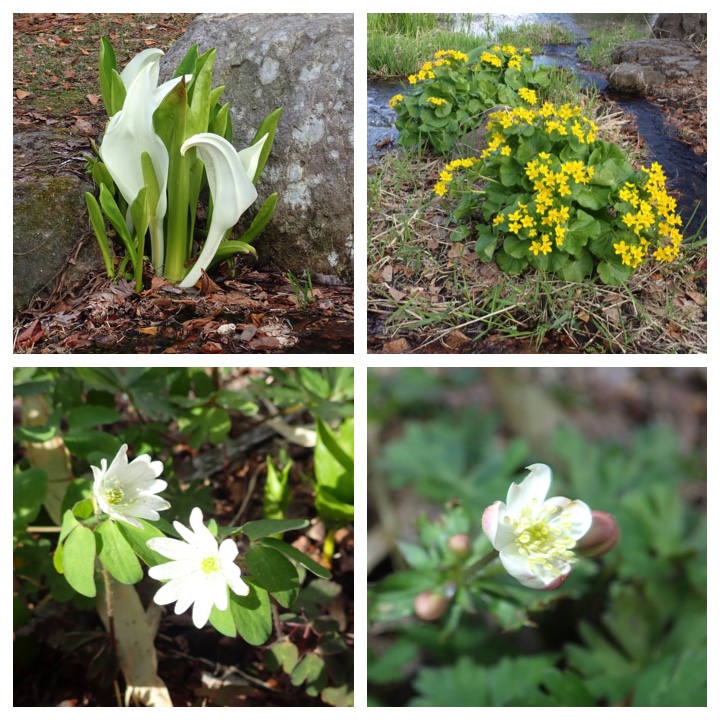
百年記念館南側の池のほとりに咲いていたミズバショウとエゾノリュウキンカおよび野草園内のアズマイチゲとニリンソウ
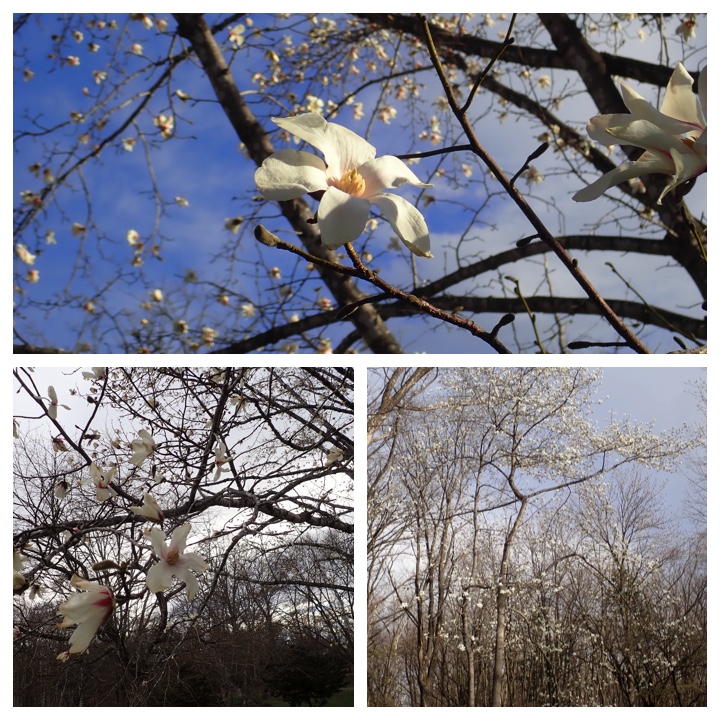
グリーンパークと野草園内のキタコブシ
Cherry in Obihiro. 帯広の桜。
Cherry in Obihiro blooms late. When people in the main island has already forgotten the cherry season, it blossoms fully in Obihiro. However, it is nice that the cherry season and the Gold Week overlap here.
帯広では本州の人たちが桜のことを忘れた頃に桜が咲きます。しかし、桜の満開の時期がゴールデンウィークと重なるのは素晴らしいと思います。
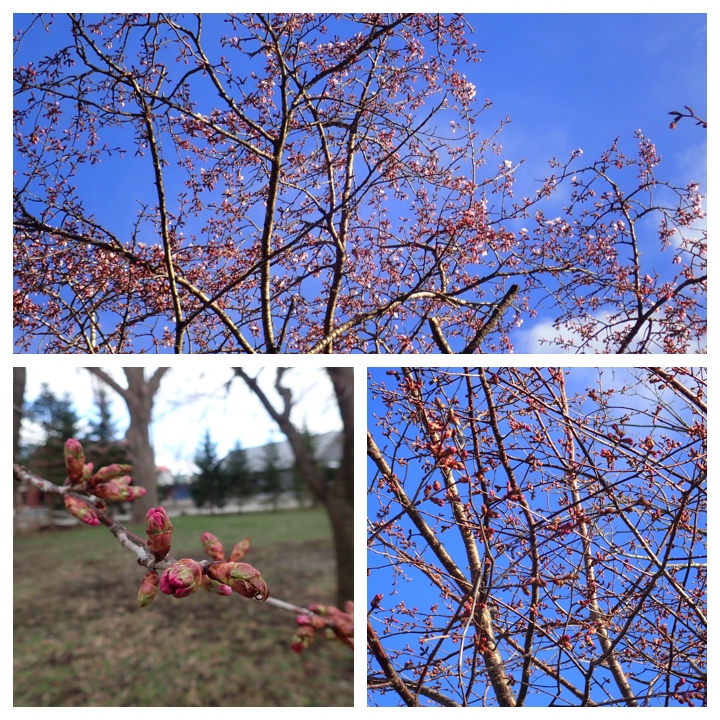
Cherry buds in the Green Park of Obihiro on April 26. グリーンパーク内のエゾヤマザクラ(4月下旬)
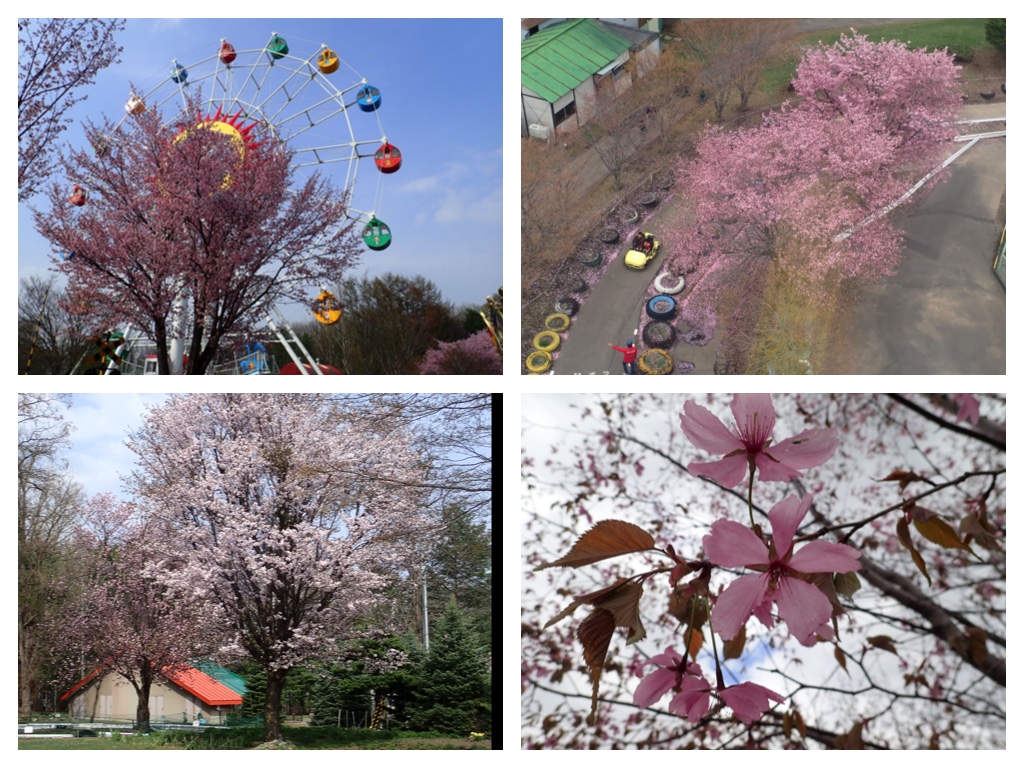
Cherry flowers in the Green Park of Obihiro on May 1 and 4. The cherry flower on the lower right corner was taken in the campus of OUAVM on May 7. グリーンパーク内のエゾヤマザクラ(5月上旬)右下の一コマは畜大キャンパス内。
Planting seed potato. バレイショ種芋の播種。
In the class of soil science and plant nutrition practice for the junior course students, I guided the fertilizer application and seed potato planting on May 7.
5月7日(月)、別科土壌作物栄養学実習の一環として、バレイショ圃場への施肥と種芋の播種を行いました。施肥設計、区の種類、ジャガイモの品種(キタアカリ)は全て昨年と同じにしました。昨年はなぜか発芽率が低かったので、いろいろ原因を考えつつ、今年はうまく育てたいと思っています。
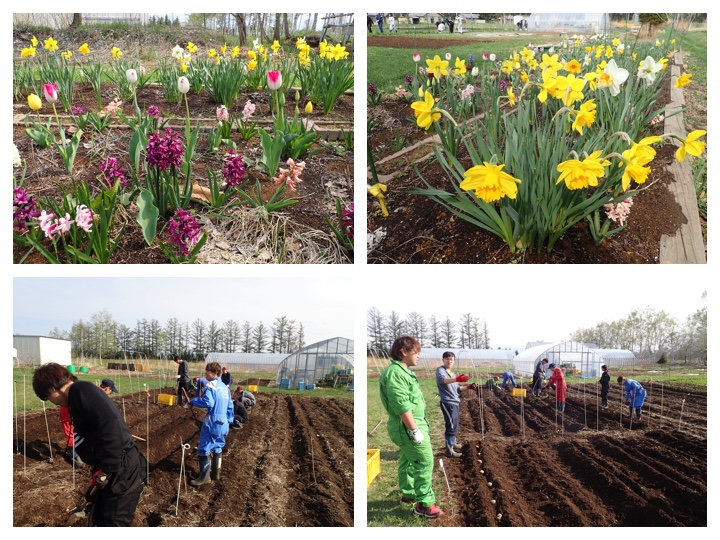
Flower bed of the junior course and the students planting seed potato. 別科花壇の春の花々とジャガイモ圃場での種芋播種の様子。(5月7日)
View of mountains through the field along the prefectural road from Obihiro Taisho to Obihiro airport. 道道空港線沿いの畑越しに見える山の風景。
When we take the prefectural road to Obihiro airport, we pass a nice view point in Showa town. There is a park place along the road with a statue of squirrels, and from there we can see the view of mountains surrounding the Tokachi plain.
帯広空港に向かう際に道道空港線を通ると、昭和町付近に大変眺めの良いところがあります。道路脇にリスの像があり、駐車スペースもあります。そこからは十勝平野を囲む山々、日高山脈、大雪山系、浦幌丘陵をほとんど障害物なしに眺めることができます。
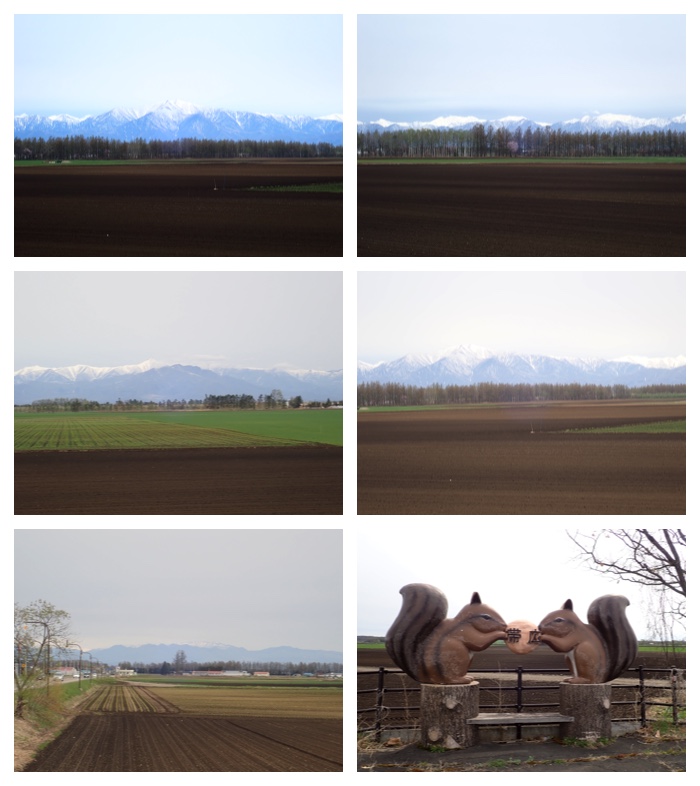
View of mountains through the field along the prefectural road from Obihiro Taisho to Obihiro airport. 道道空港線沿いの畑越しに見える山の風景。(5月6日)
Flowers after the golden week. ゴールデンウィーク後の花々。
Various flowers bloom vividly in the natural field and in the garden after the golden week in Obihiro.
帯広ではゴールデンウィークが過ぎると、様々な花が野原や庭で咲き始めます。
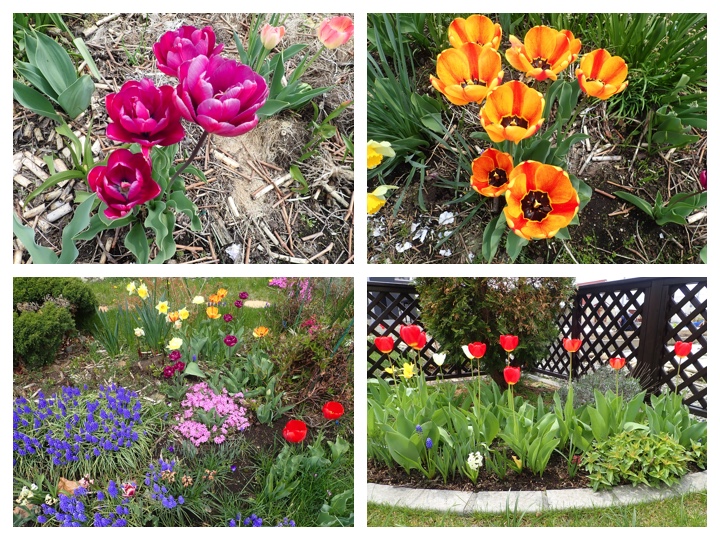
Tulips in my garden. 庭のチューリップ。(5月10日)
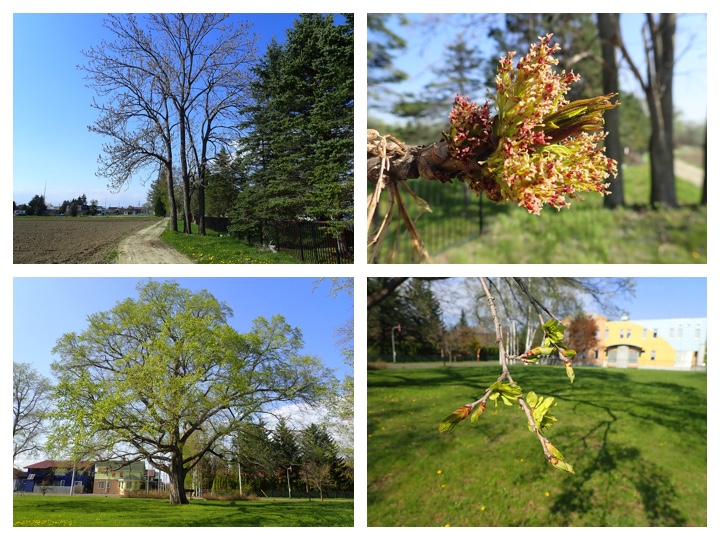
ヤチダモ、ハルニレの木と花。
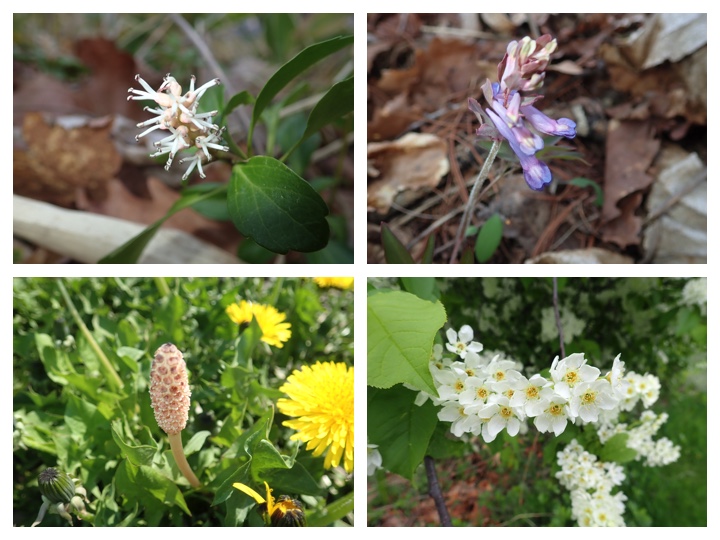
フッキソウ、エゾエンゴサク、ツクシとタンポポ、エゾノコリンゴ。
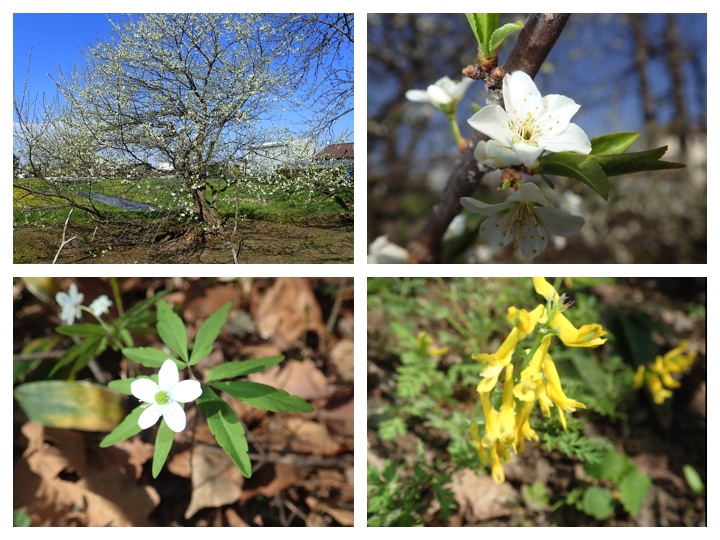
スモモの花、ヒメイチゲ、キケマン
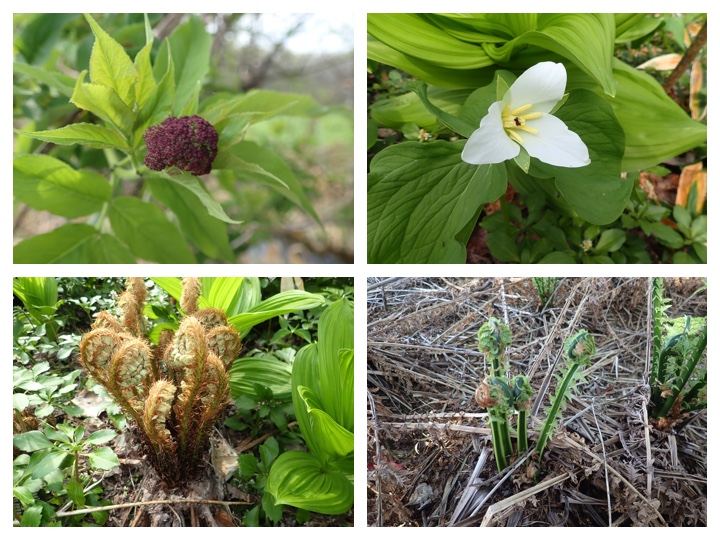
エゾニワトコ、オオバナノエンレイソウ、ヤマドリゼンマイ、クサソテツ
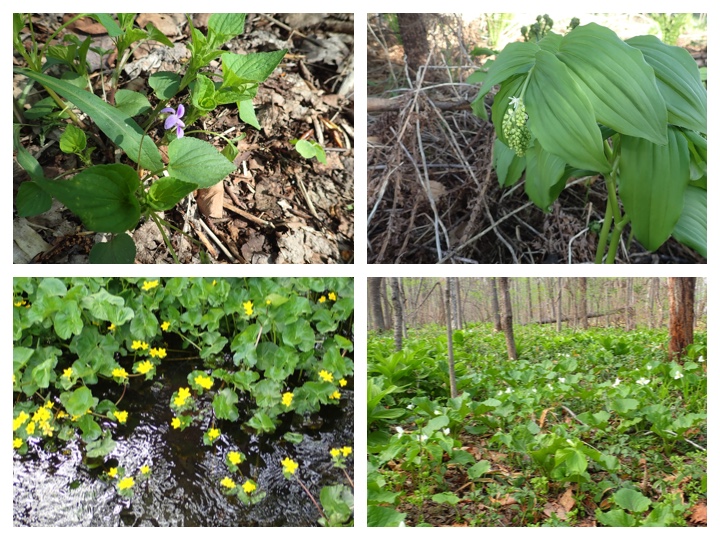
エゾタチツボスミレ、ユキザサ、エンコウソウ、オオバナノエンレイソウ
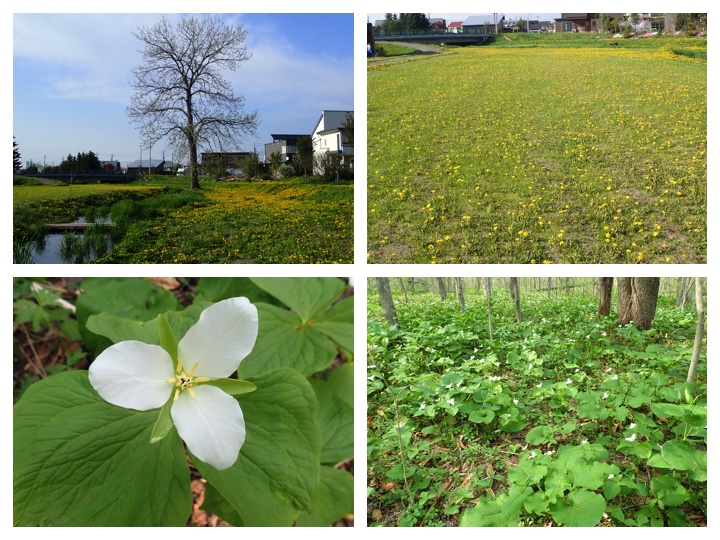
ヤチダモとタンポポ、機関庫川の河原のタンポポ、オオバナノエンレイソウ、農業高校の湿地林
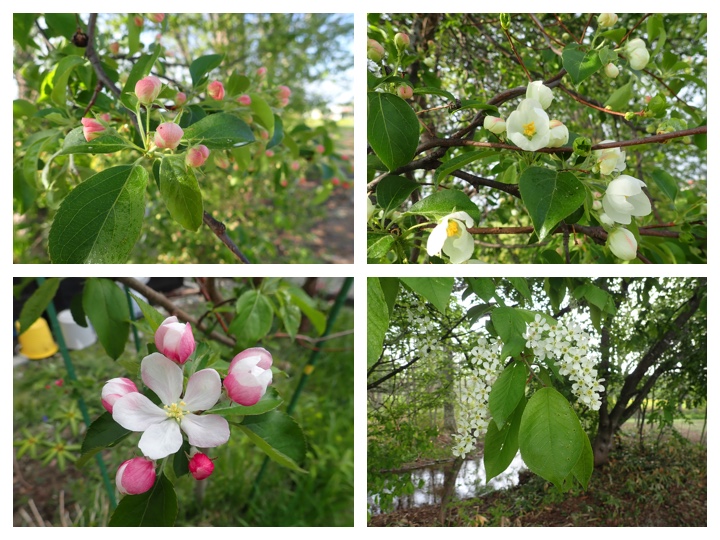
クロミサンザシ、クロミサンザシの花、リンゴの花、エゾノウワミズザクラ
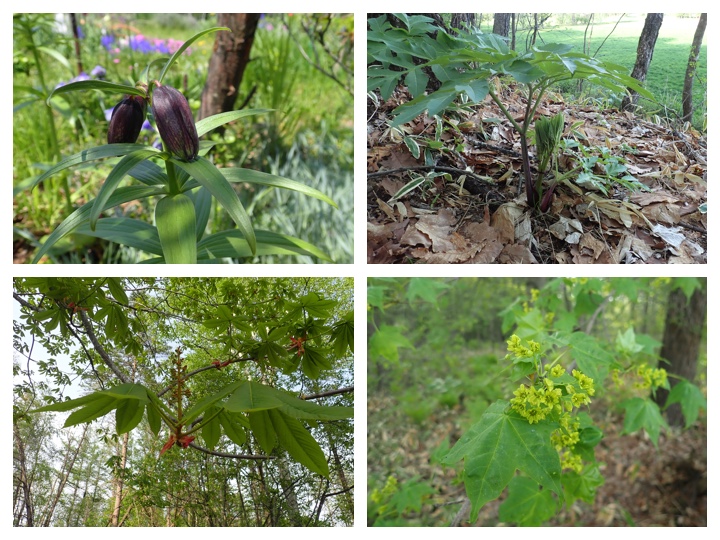
クロユリ、ヤマウド、トチノキの花、イタヤカエデの花
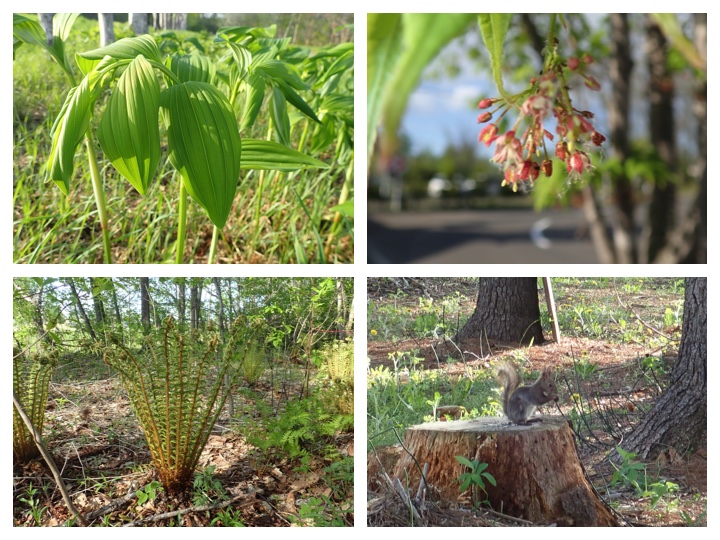
オオアマドコロ、ヤマモミジ、ヤマドリゼンマイ、まなびの公園のエゾリス(5月16日)
Walk after the cold rain. 雨あがりの散歩。
From 18 to 19 May, it rained in Obihiro and the temperature decreased. I went out for walking after the rain stopped in the afternoon. Various flowers of trees and grasses were beautiful.
5月18日の午後から19日にかけて、帯広では雨が降り、気温もかなり低くなりました。19日の午後、雨も止んだので散歩にでかけました。クルミの花、ヤチダモの新芽、スミレ、ヤブニンジンの花などがきれいでした。
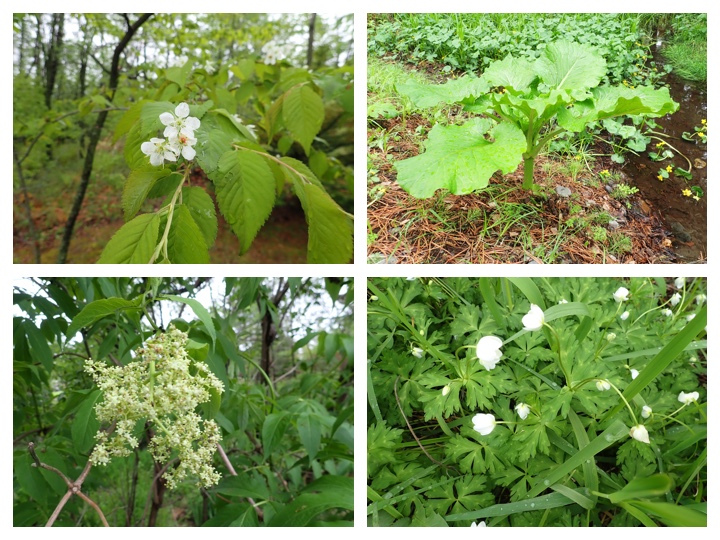
ミヤマザクラ?、オオウバユリ、エゾニワトコ、ニリンソウ
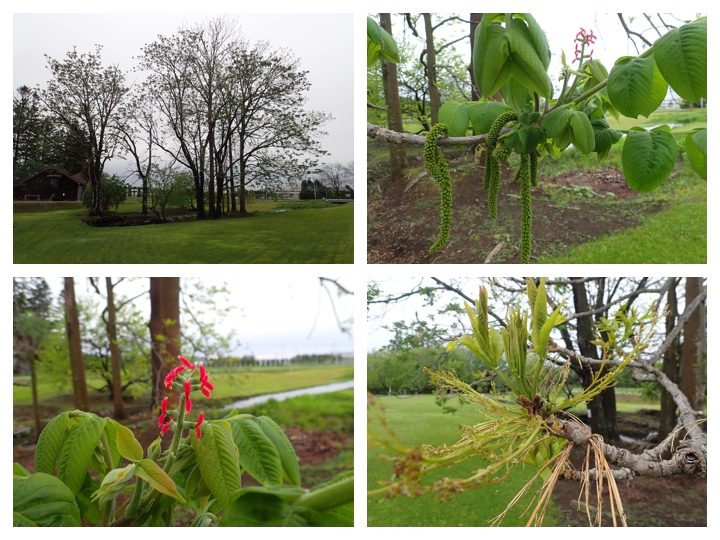
オニグルミの花とヤチダモの新芽(機関庫川沿いの風景)
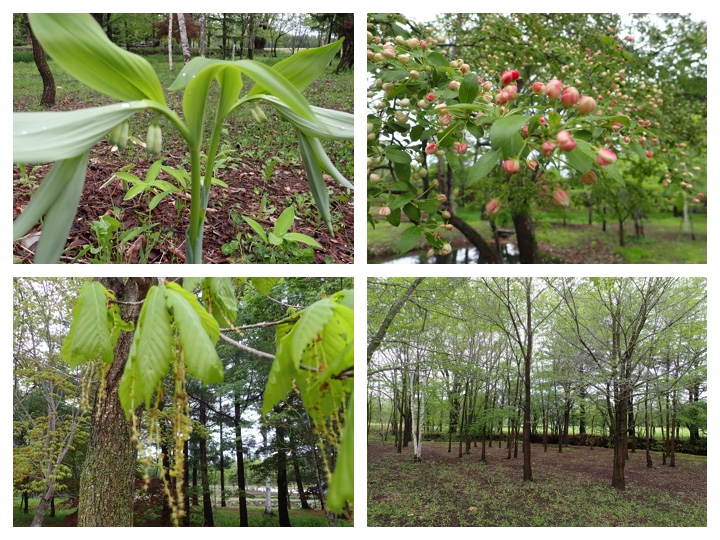
オオアマドコロ、名前不詳の木の花、ミズナラの新葉と花、まなびの公園の木立
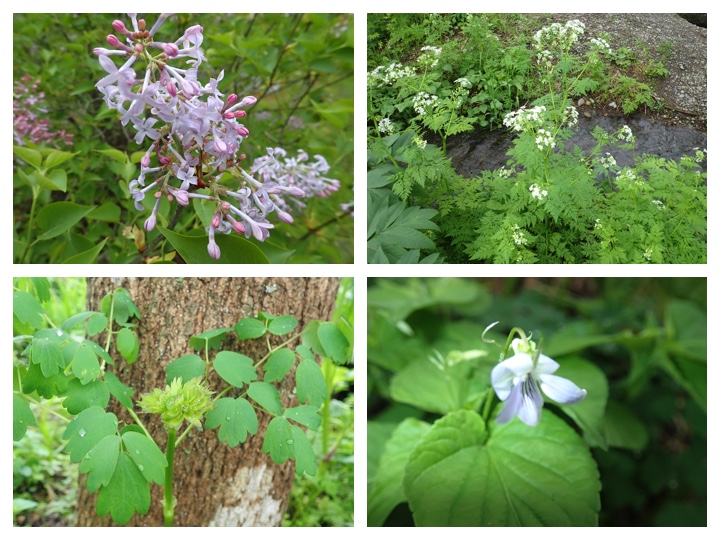
ライラック、ヤブニンジン、レンプクソウ(?)、エゾタチスボスミレ(?)
Walk in the evening and in the morning. 夕方と朝の散歩。
In the daytime on May 21 I had a class in the university, so I made a walk in the evening. On May 22, I had to take a bus in the morning to meet my guests in the city, so I left my home a little earlier than the scheduled time of bus, and walked along my routine path and took the bus after skipping several bus stops.
5月21日には大学で実習を担当したので、夕食後に散歩をしました。5月22日は来客に市内のホテルで会う予定があったので、バスで出かけることになりました。バスが来る時間よりも30分くらい前に家を出て、いつもの散歩道を散歩し、4つくらい先のバス停でバスに乗りました。散歩も楽しめましたし、バス代も安くなり、一挙両得となりました。
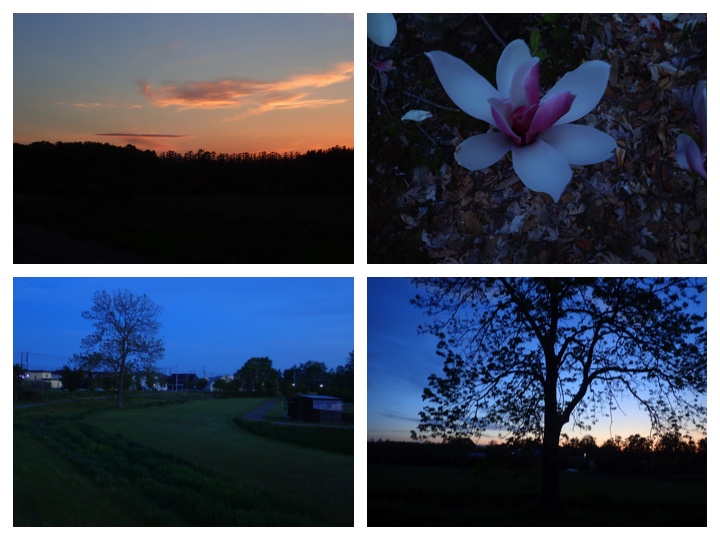
機関庫川畔から農業高校方面の台地を望む。モクレンの大輪。機関庫川沿いのヤチダモ遠景と近景。
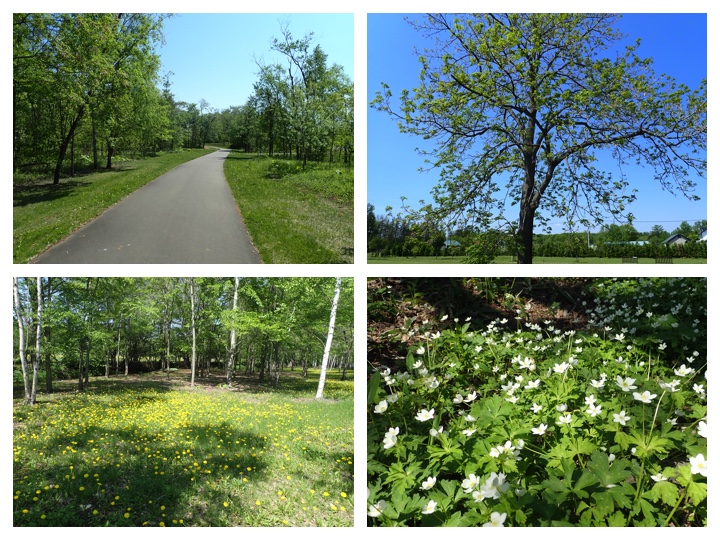
機関庫の川公園内の散歩道。ヤチダモの木。まなびの公園内の芝地を覆うタンポポ。ニリンソウの群落。
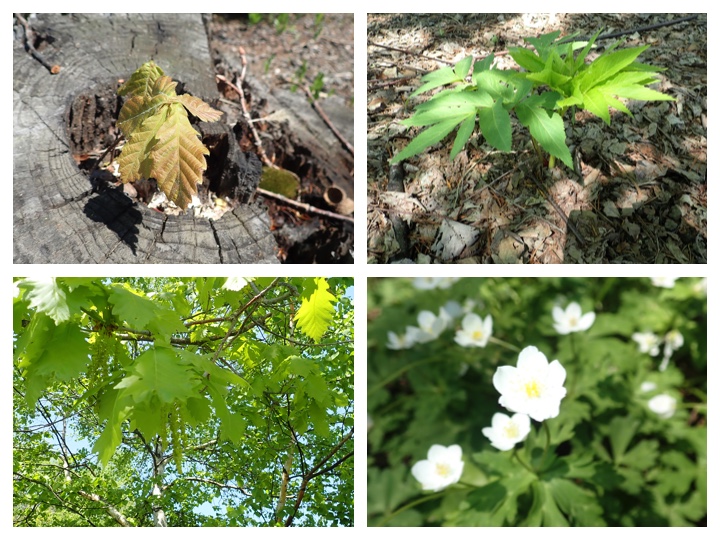
ミズナラのひこばえ。エゾリスが食べ残した種から発芽したクルミの木。ミズナラの新葉。ニリンソウの花。
Plants in the Manabe park. 真鍋庭園の植物。
In the afternoon of May 22, I visited the Manabe garden with my guests. Rhododendron was blooming beautifully in the garden. Other wild flowers and new leaves of trees were also beautiful.
5月22日の午後にはお客様と一緒に真鍋庭園を訪れました。ちょうどシャクナゲの開花のピークでしたが、その他の草花や木々の新葉も綺麗でした。
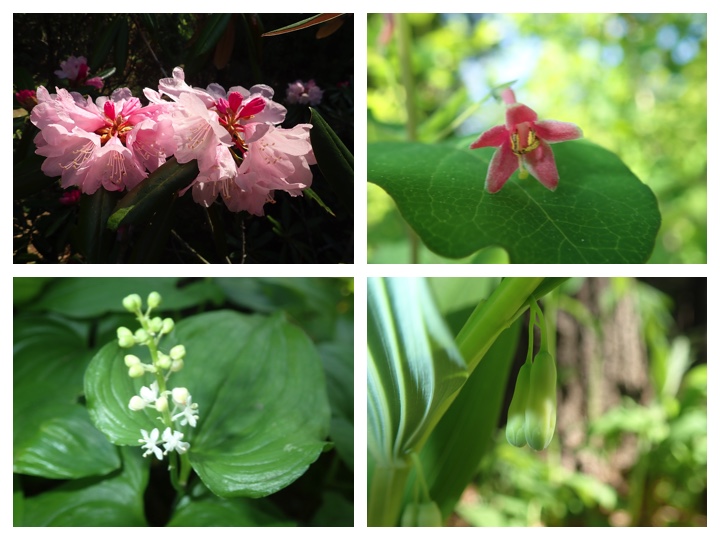
シャクナゲの花。ガガイモに似た花。ユキザサに似た花。オオアマドコロ。
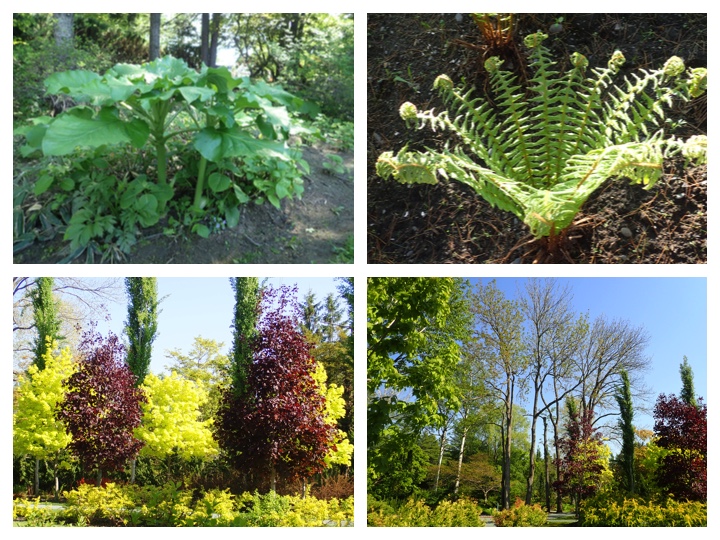
オオウバユリ。ゼンマイ。黄色と赤のヨーロッパカエデ。ヤチダモ。
Plants in the Manabe park. 真鍋庭園の植物。
Almost every year on May 23, I take the photo of the fully bloomed black lily. I also noticed the flowers of a kind of Carex which has male and female flowers. In the afternoon I worked in the field of junior course to dress up the soil on the rows of potato.
ほとんど毎年5月23日にはクロユリの開花の写真を撮ってきました。クロユリの近くにカサスゲの花が開いていることにも気がつきました。茶色の穂と綿毛状の雄花からなっています。午後には大学の別科圃場に行って、バレイショ圃場の培土作業をしました。
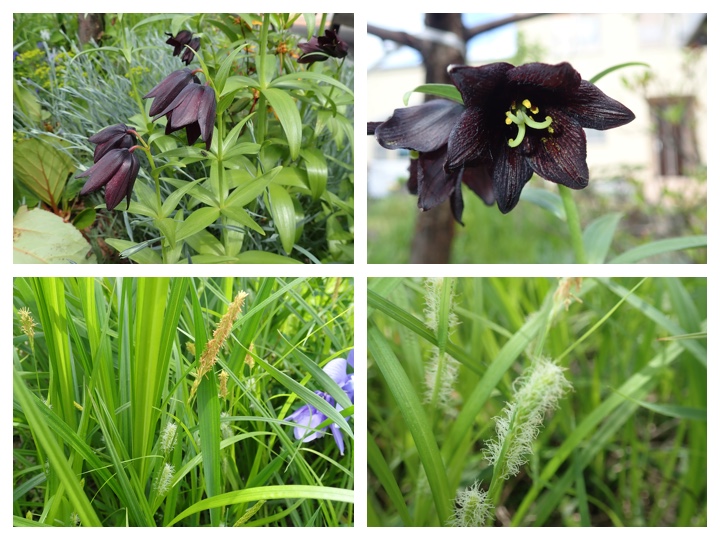
クロユリの花とカサスゲの花。
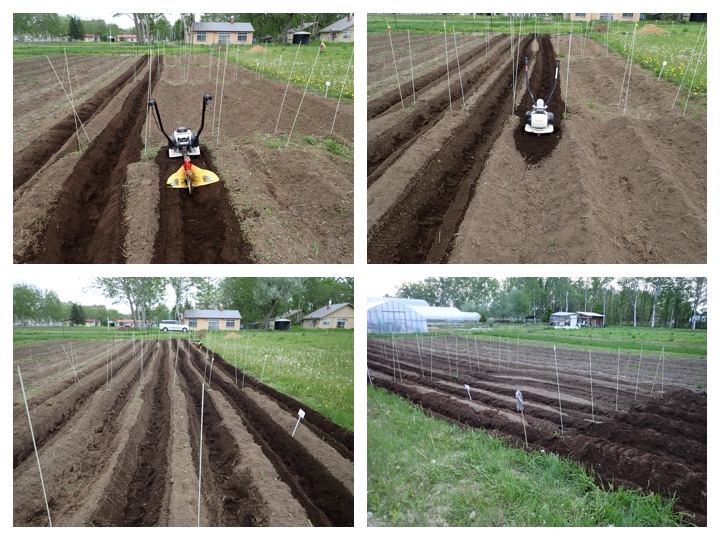
ハンドトラクターによるバレイショ圃場の培土作業。
Wild flowers in the hidden valley. "Hidden Valley" での野草観察。
This afternoon, I visited the "Hidden Valley" after one month to see wild plants and flowers. Wild plants grew very tall compared with the last month, and new flowers could be observed, but it started raining very hard soon, and I had to stop the field observation.
今日は昼食後ほぼひと月ぶりにHidden Valley の草花を見に行きましたが、その後急に大雨となり、自然観察は中止としました。Hidden Valley は私が勝手につけた場所の名前です。
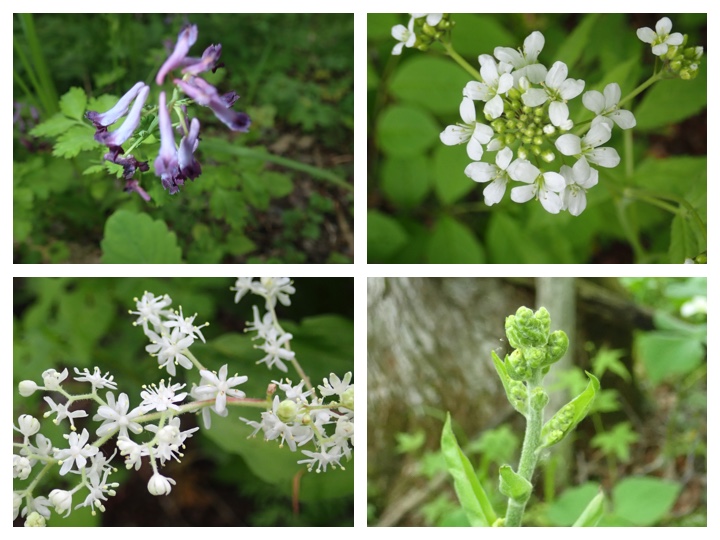
ムラサキケマン、エゾノジャニンジン、ユキザサ、バイケイソウの花芽
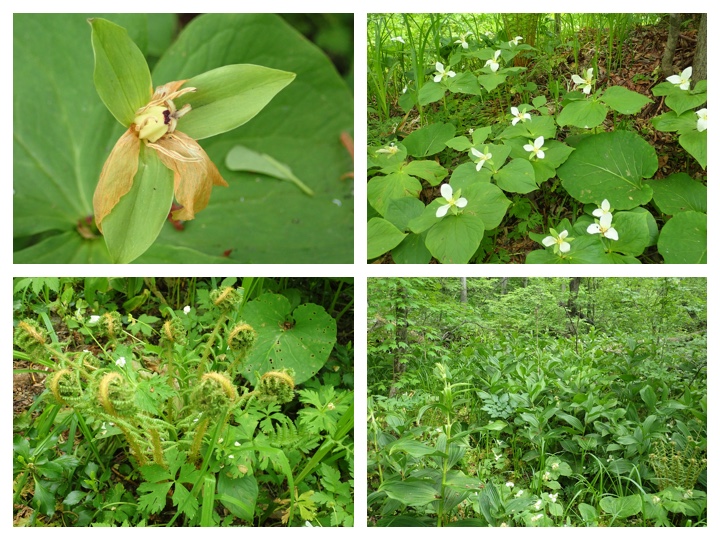
花が終わったオオバナノエンレイソウと開花中の群落。ゼンマイとバイケイソウ。
Walk after the shower. 雨上がりの散歩。
I went out for the routine walk after the sudden shower in the evening.
急な雨が収まったあと、夕方でしたが機関庫川沿いのいつもの散歩に出かけました。
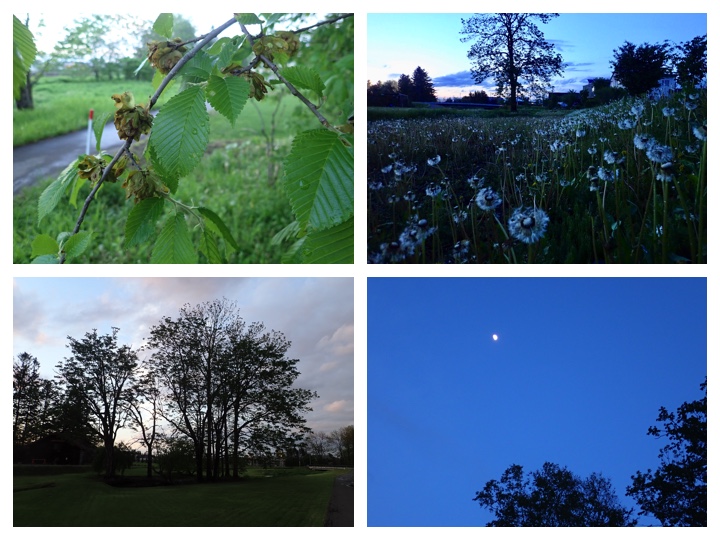
ハルニレの新葉と実。綿毛のタンポポとヤチダモ。機関庫川沿いの木立と廃屋。公園で見た月。
Plants along a small stream and on a forest floor in the end of May. 5月下旬の機関庫川沿いおよび林床の植物。
It rained last night and this morning. However, after it stopped raining at around 11 am, I went out to see the plants along the Kikanko river and in the forest. Though I was not sure about the names of plants which I photographed, the curator of the Centennial Museum of Obihiro and my friend, Mr. Y. I., taught me the names of plants.
昨晩と今朝は雨でしたが、11時ごろに雨が止んだので、また機関庫川沿いと農業高校の森に自然観察の散歩に出かけました。途中で見た植物の名前はわからないものが多かったのですが、幸い、帯広百年記念館学芸員のY.I.さんが教えてくださいましたので、写真と名前をアップロードします。
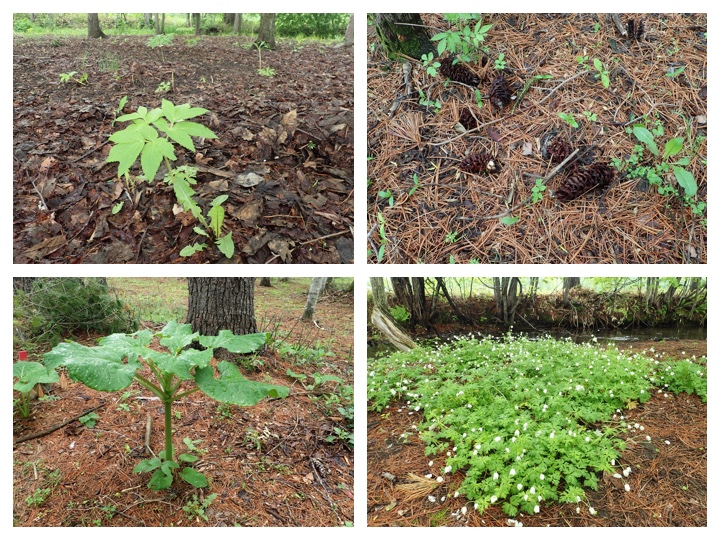
クルミの芽生え(エゾリスの食べ忘れ)。チョウセンゴヨウの松ぼっくり(去年エゾリスが運んできて実を食べたもの)。オオウバユリ。川沿いのニリンソウの群落。
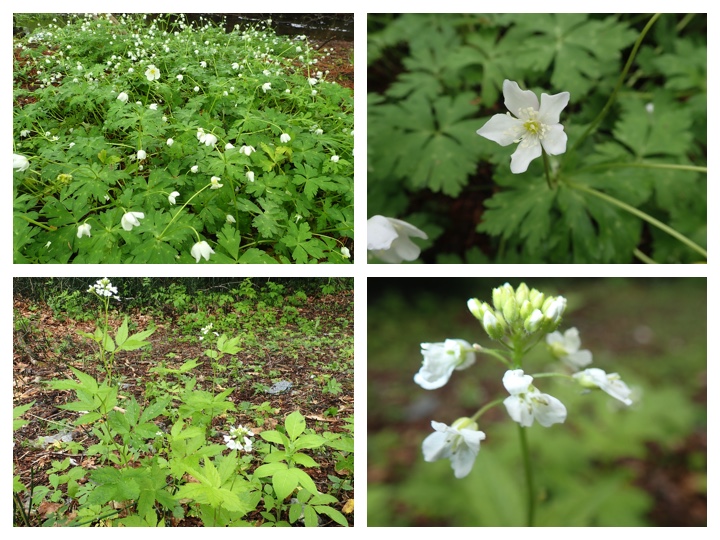
ニリンソウ(上2枚)。コンロンソウ(下2枚)。
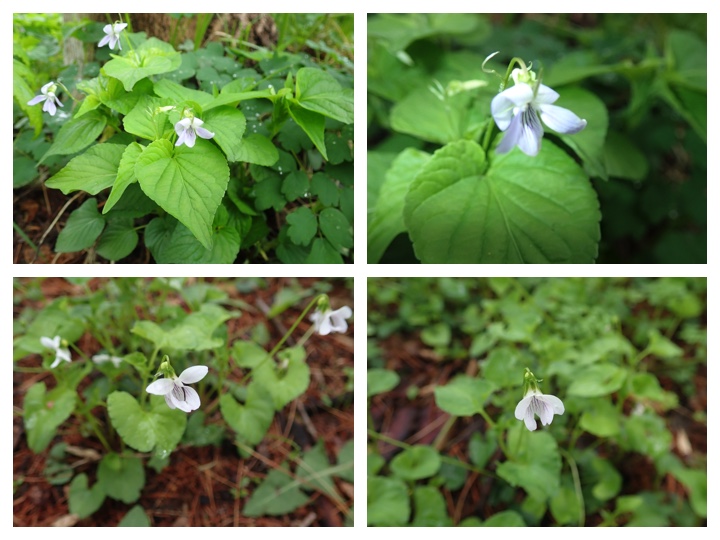
全てツボスミレ。
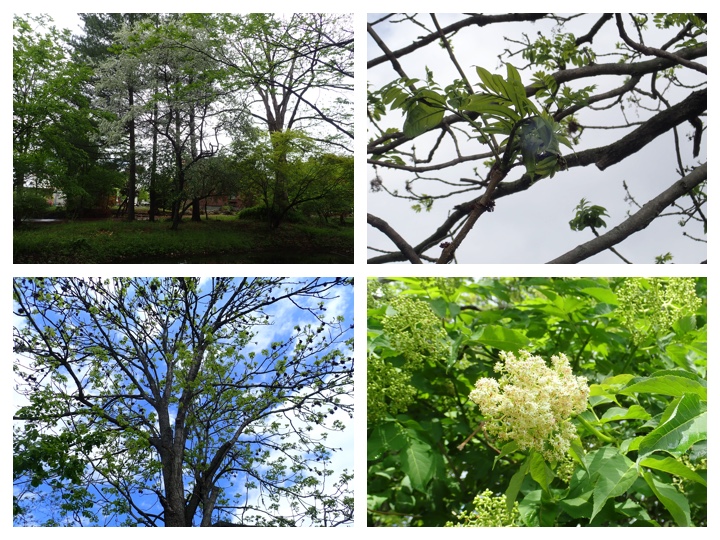
白い花の木は多分エゾノコリンゴ。ヤチダモの新葉。ヤチダモの木。エゾニワトコの花。
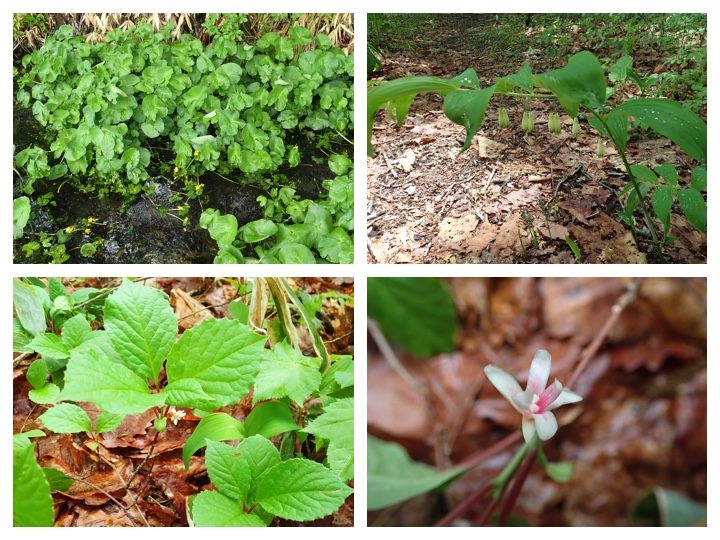
エンコウソウ(花がほとんど終わったもの)。オオアマドコロ。チョウセンゴミシ(下2枚)。
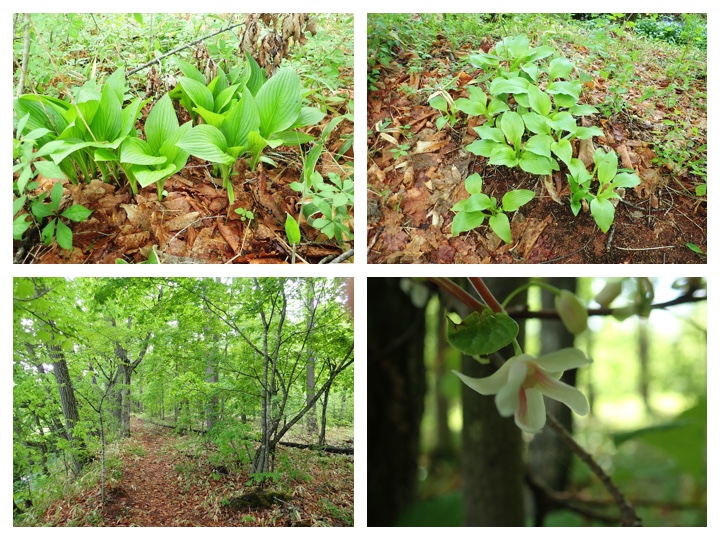
ギボウシ(上2枚)。農高林の新緑。チョウセンゴミシ。
Dangerous walk for earthworms after the rain. 雨上がりの散歩はミミズには危険。
When it rains, earthworms come out from the soil and move around the soil surface. However, when they come on the walk way paved by asphalt, they are drowned to death in a water pool on the walk way. A big earthworm in the first photo is still living and trying to pass the paved walk way.
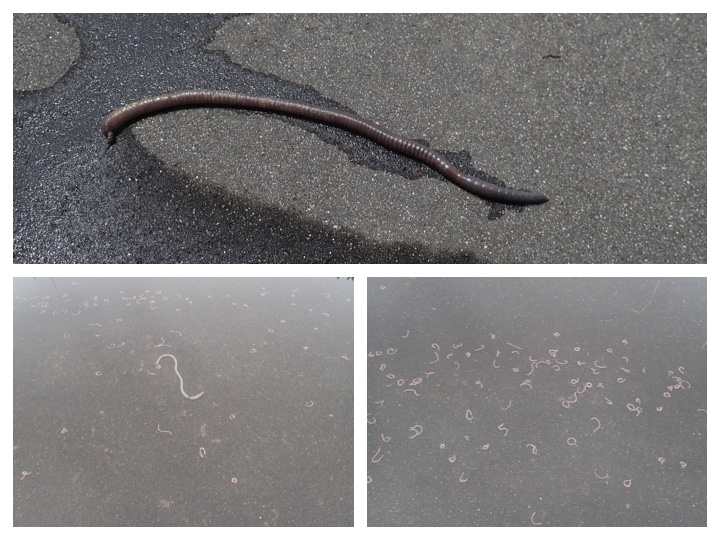
雨上がりの散歩道を這うミミズと水たまりのミミズの死骸
Soil Profile Survey Practice for the Junior Course 2nd year students. 別科2年生のための土壌断面調査実習。
As a part of soil science and plant nutrition practice for the second year students of the junior course, OUAVM, I guided how to survey a soil profile using a corner of the junior course field.
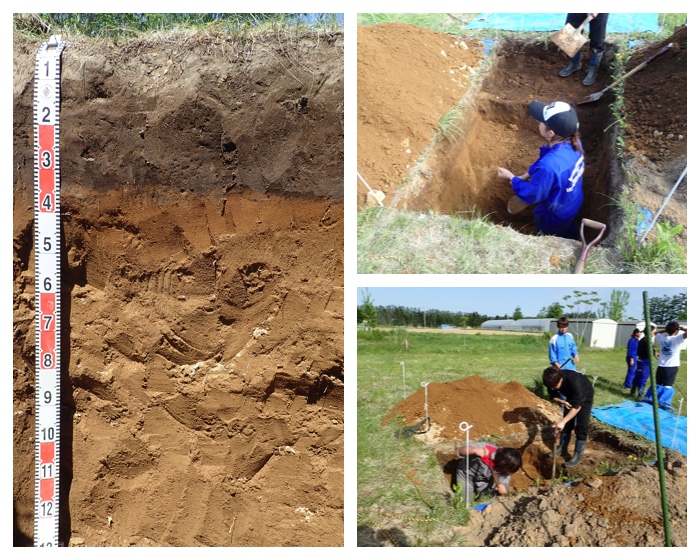
別科学生による土壌断面の作成
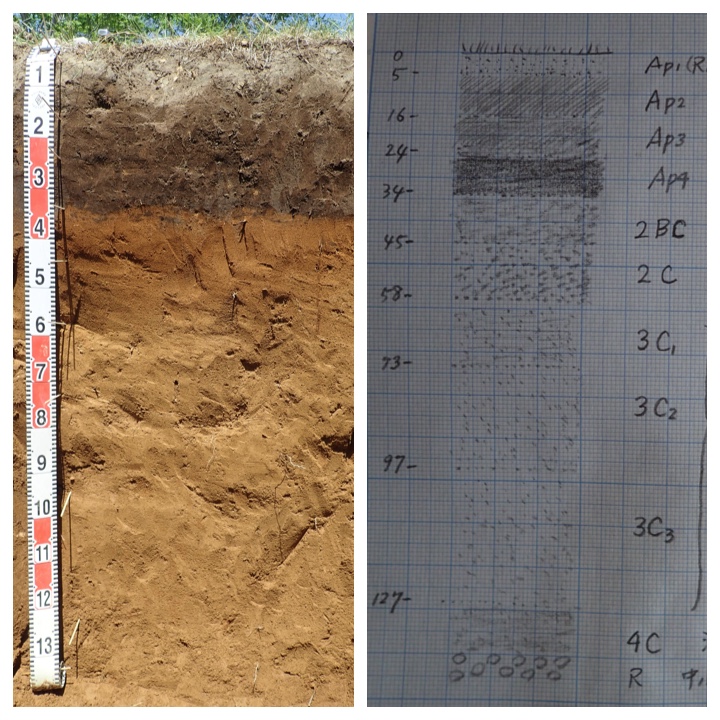
整形した土壌断面とスケッチ
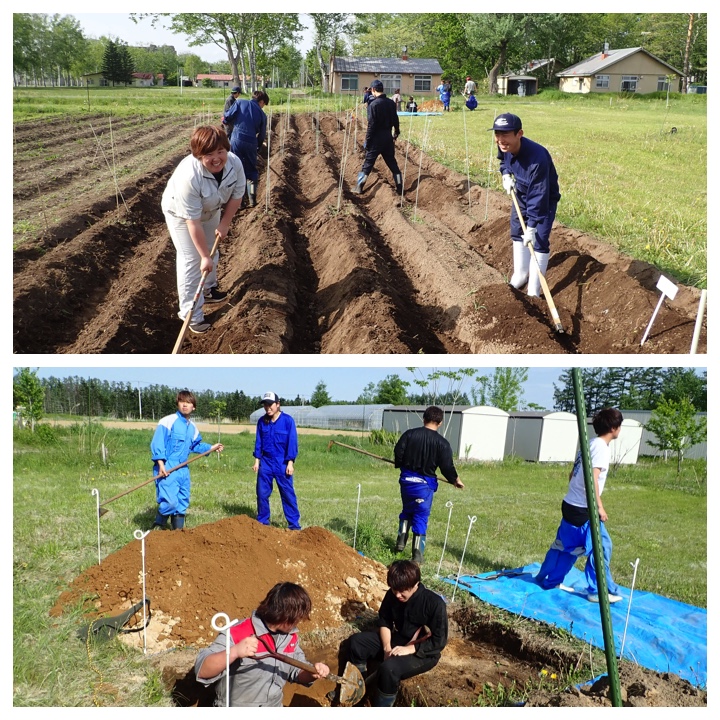
バレイショ圃場の培土と土壌断面の作成の様子。この日5月28日にはバレイショはまだほとんど発芽していなかった。有機肥料区でわずかに芽が出はじめていた。
Germination of potato in the practice field and the growth thereafter. 実習圃場でのバレイショの発芽とその後の生育。
In the practice field of junior course, germination of potato has been observed. The first germination was observed already on May 28, three weeks after planting the seed potato. On June 4, many potatoes have germinated already. The germination rate was highest in the organic manure plot. In the plots of chemical fertilizers or organic + chemical fertilizers, the germination rate was lower. Chemical fertilizers may exert stress on the germination of potato, and the germination is retarded.
別科圃場でバレイショの発芽の様子を観察した。最初の発芽は種芋を播種して3週間後の5月28日に認められた。 6月4日には大部分の芋が発芽していた。発芽率が最も高かったのは有機肥料区(パールユーキ区)であった。有機肥料に無機肥料(リン酸・カリ)を補給した区、化学肥料標準施肥区、配合肥料区では発芽が遅れていた。化学肥料はバレイショの発芽にとって何らかのストレスを与え、発芽を遅らせているらしい。 6月17日、6月27日、7月4日、7月22日の写真も追加しました。
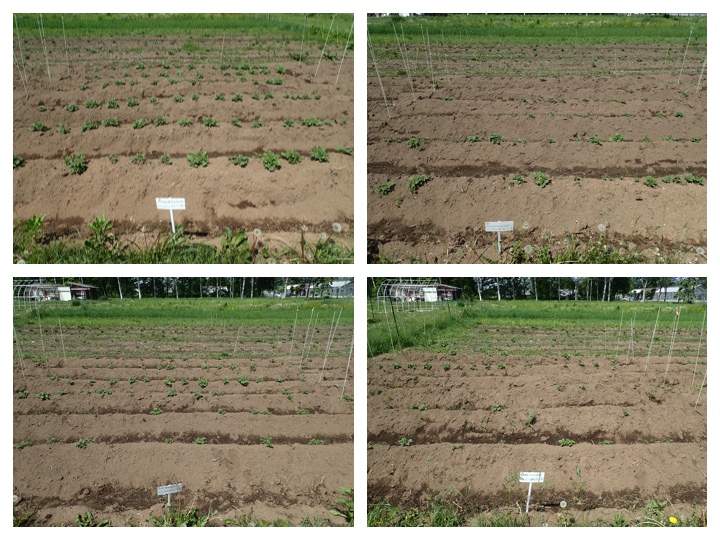
Comparison of germination among different fertilizer plots. Upper left: Organic manure plot, upper right: organic matter supplemented with chemical fertilizers, lower left: standard NPK dose with chemical fertilizer, lower right: compound fertilizer plot.
各区における発芽の様子の比較。上段の左:有機肥料区、上段の右:有機肥料+PK補給区、下段の左:化学肥料標準施肥区、下段の右:配合肥料区。
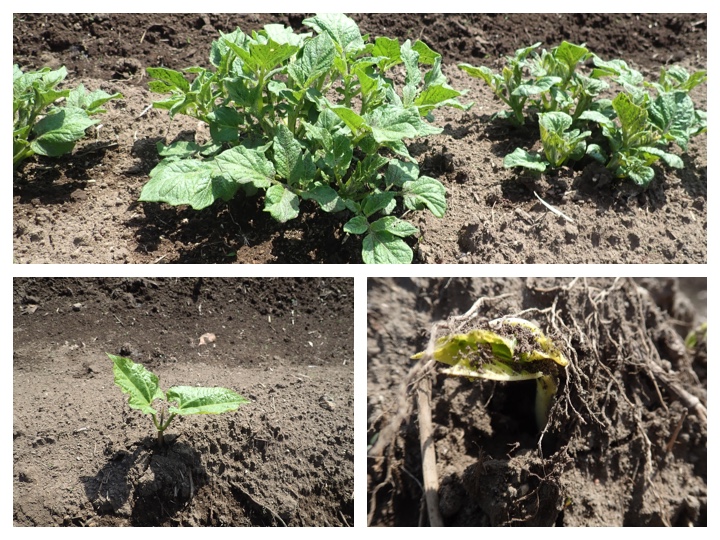
Seedlings of potato and beans.
上:有機肥料区のバレイショ。下:5月23日に播種した花豆の発芽(6月4日)。
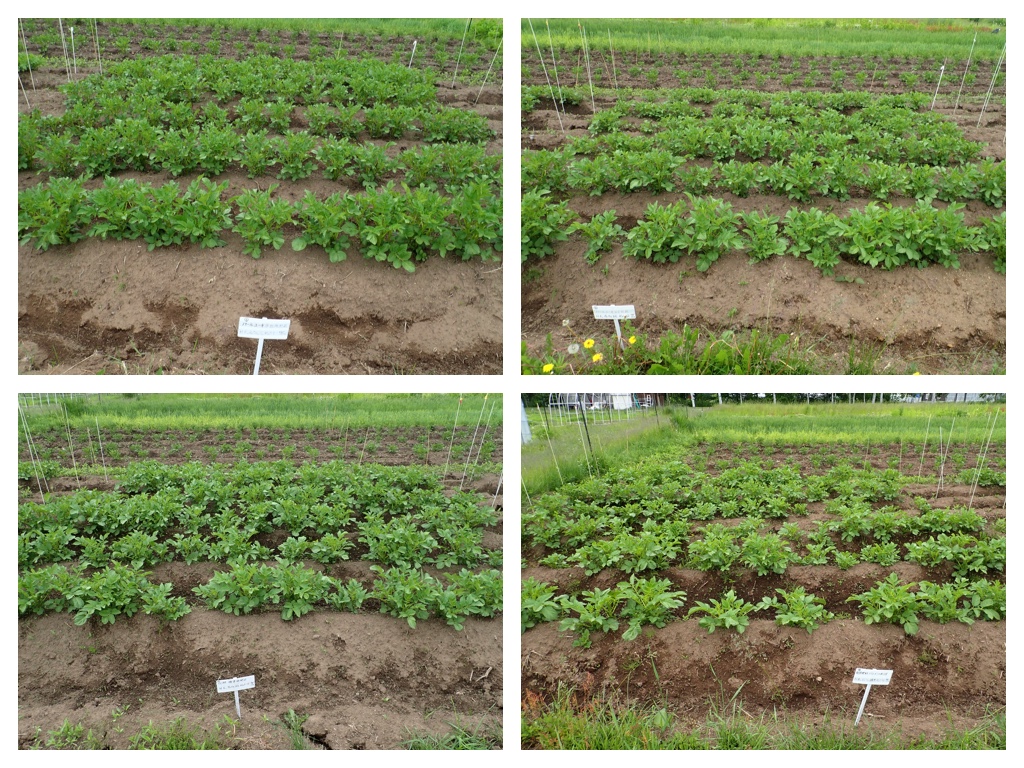
Comparison of the growth among different fertilizer plots on June 17. Upper left: Organic manure plot, upper right: organic matter supplemented with chemical fertilizers, lower left: standard NPK dose with chemical fertilizer, lower right: compound fertilizer plot. The growth in the organic fertilizer plot was the most uniform.
6月17日における生育の様子の比較。上段の左:有機肥料区、上段の右:有機肥料+PK補給区、下段の左:化学肥料標準施肥区、下段の右:配合肥料区。有機肥料区の生育が一番揃っている。他の区は生育にむらがある。
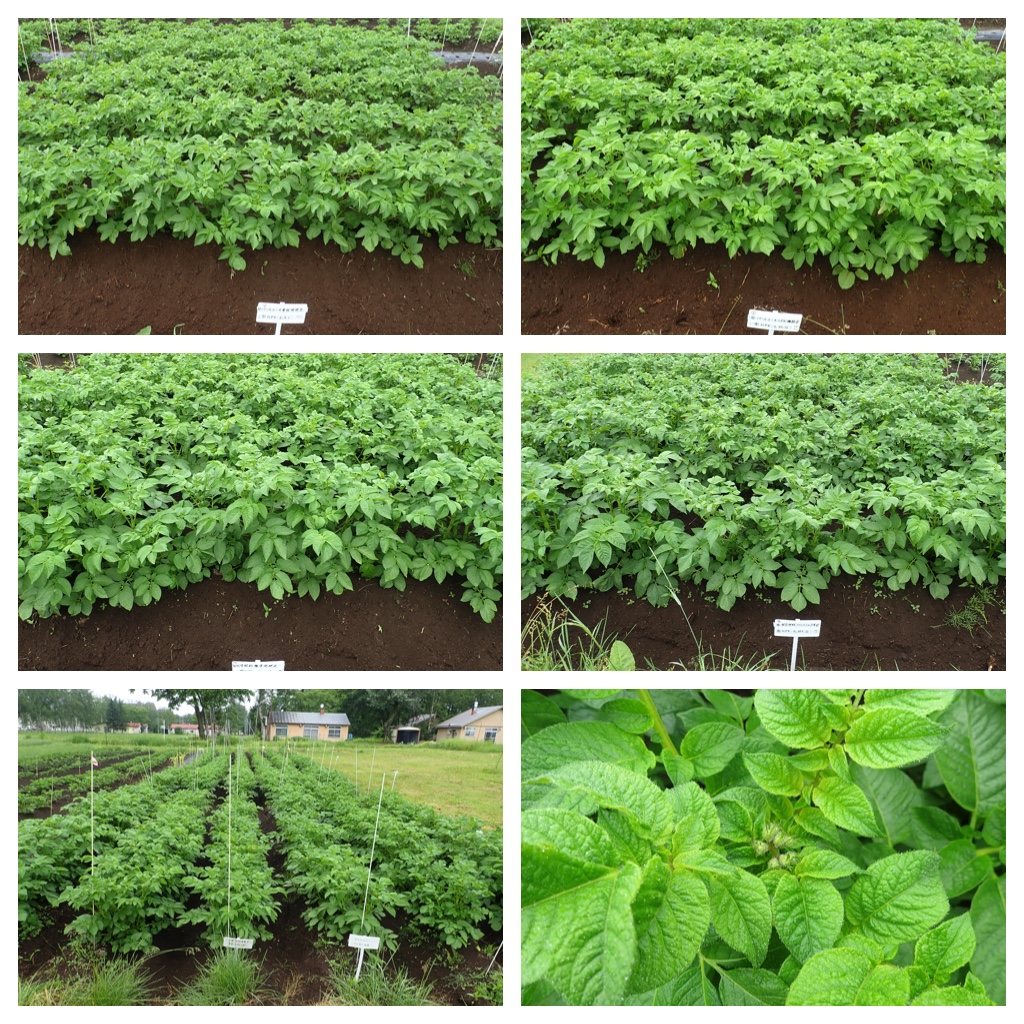
Comparison of the growth among different fertilizer plots on June 27. Upper left: Organic manure plot, upper right: organic matter supplemented with chemical fertilizers, middle left: standard NPK dose with chemical fertilizer, middle right: compound fertilizer plot, lower left: whole view of the field, lower right: some potato plant has formed a bud of flower. The growth in the chemical fertilizer plots have begun to exceed that of organic fertilizer plot.
6月27日における生育の様子の比較。上段の左:有機肥料区、上段の右:有機肥料+PK補給区、中段の左:化学肥料標準施肥区、中段の右:配合肥料区。化学肥料および配合肥料を施肥した区の生育が有機肥料区での生育を追い越してきた。下段の左:圃場全体の写真、配合肥料区が手前。下段右:バレイショの花のつぼみが化学肥料および配合肥料区でつき始めた。
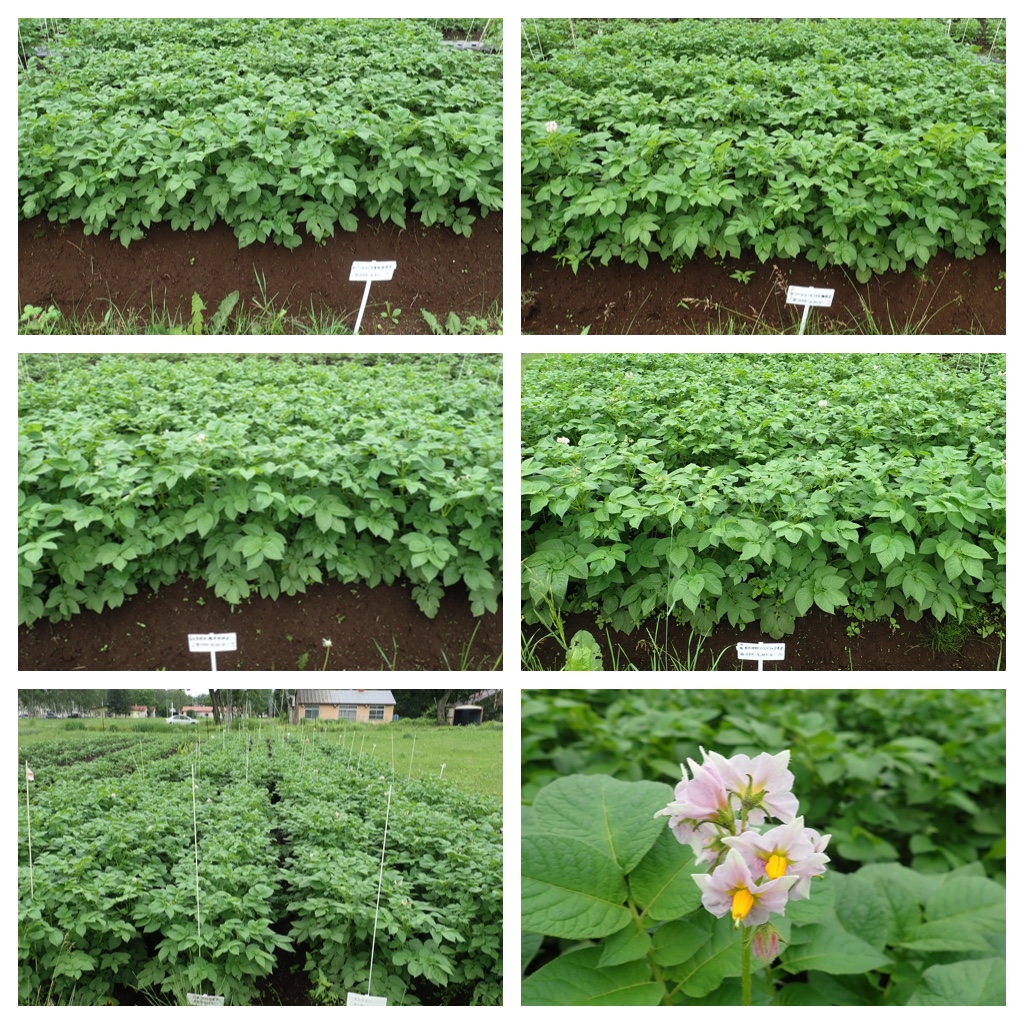
Comparison of the growth among different fertilizer plots on July 4. Upper left: Organic manure plot, upper right: organic matter supplemented with chemical fertilizers, middle left: standard NPK dose with chemical fertilizer, middle right: compound fertilizer plot, lower left: whole view of the field, lower right: Some flowers have started to bloom in the plots except the organic fertilizer plot. The growth in the chemical fertilizer plots exceeds that of organic fertilizer plot.
7月4日における生育の様子の比較。上段の左:有機肥料区、上段の右:有機肥料+PK補給区、中段の左:化学肥料標準施肥区、中段の右:配合肥料区。化学肥料および配合肥料を施肥した区の生育が有機肥料区での生育を明らかに追い越している。下段の左:圃場全体の写真、配合肥料区が手前。下段右:バレイショの花がいくつか開花しはじめたが、有機肥料区ではまだ1株も開花していない。
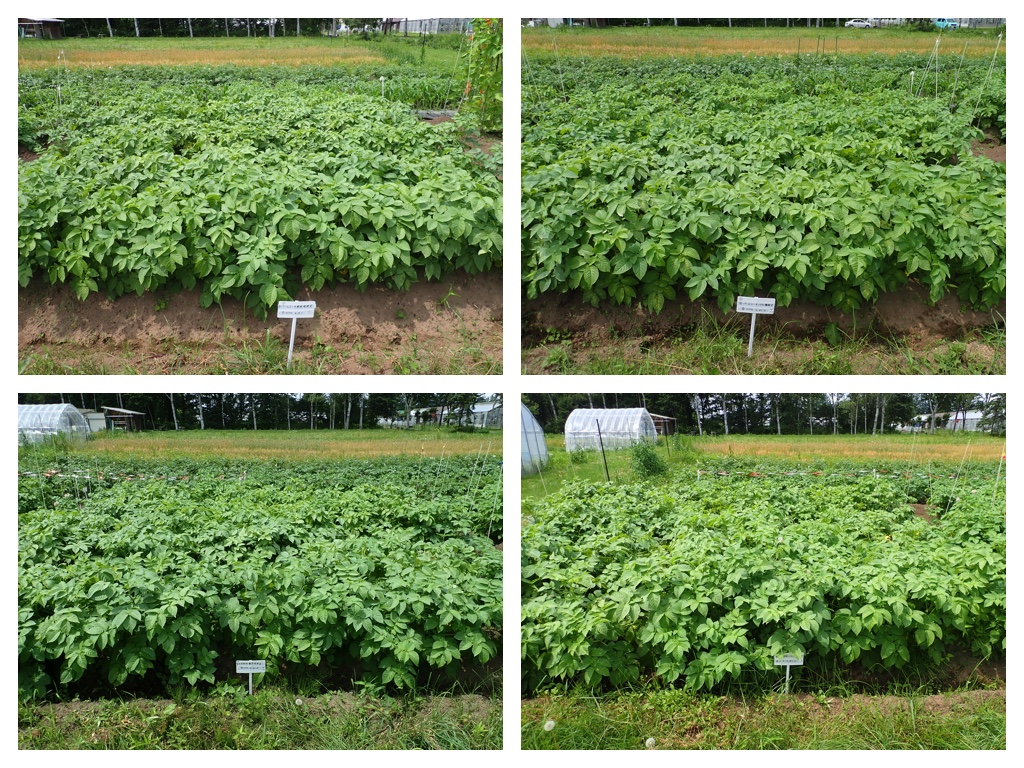
Photos were taken from the eastern side of the row (July 22, 2018).
畝の東側から撮った写真 (7月22日)。
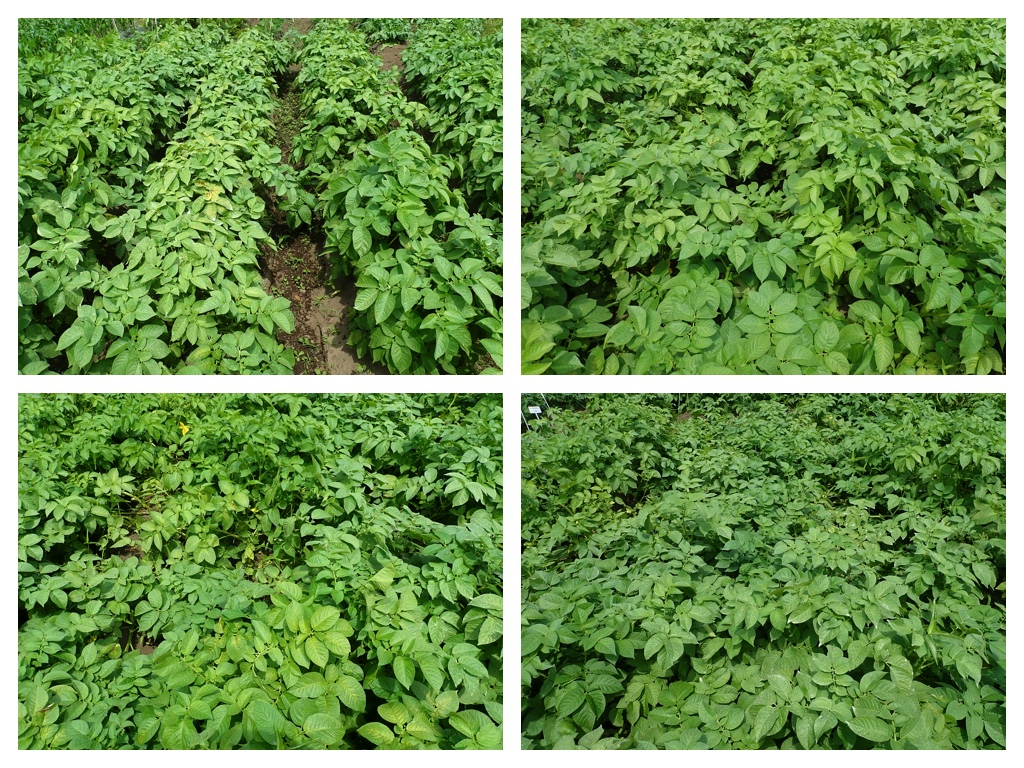
Photos were taken from the southern side of the row (July 22, 2018).
畝の南側から撮った写真 (7月22日)。
Comparison of the growth among different fertilizer plots on July 22. Upper left: Organic manure plot, upper right: organic matter supplemented with chemical fertilizers, lower left: standard NPK dose with chemical fertilizer, lower right: compound fertilizer plot.
7月22日における生育の様子の比較。上段の左:有機肥料区、上段の右:有機肥料+PK補給区、下段の左:化学肥料標準施肥区、下段の右:配合肥料区。畝の東側から写した写真と畝の南側から写した写真を示した。上段の左:有機肥料区および上段の右:有機肥料+PK補給区ではほとんど開花しなかった。下段の左:化学肥料標準施肥区および下段の右:配合肥料区では生育が旺盛なため、畝の間が見られないほど葉が生い茂っている。
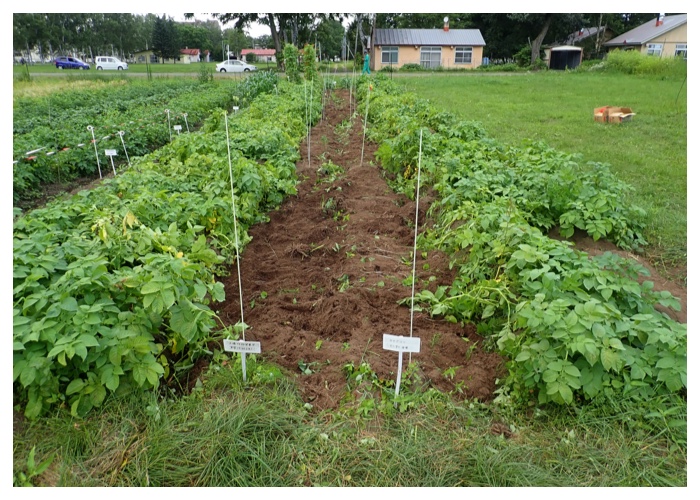
The field after the yield survey on July 30.
7月30日の収量調査後の圃場。中央の2畝の収量調査を行った。一番東の畝では7月23日に予備調査を行った。
Flowers from the end of May to the first week of June. 5月下旬から6月第1週の花々。
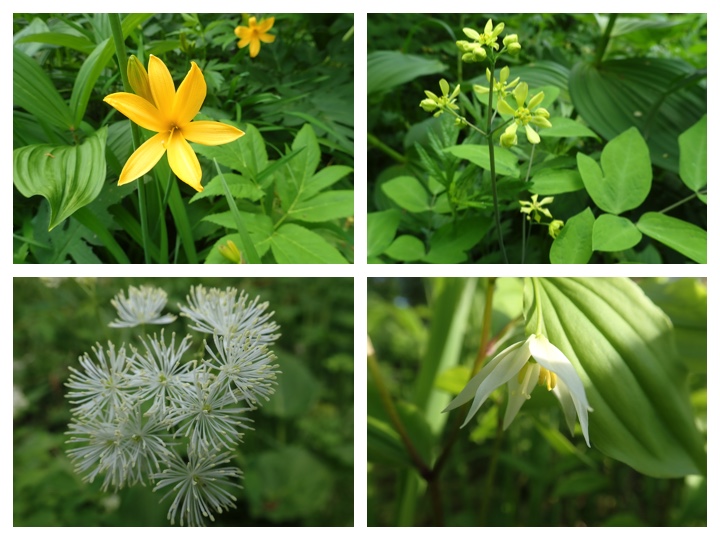
エゾカンゾウ、ルイヨウボタン、カラマツソウ、チゴユリ。5月27日 帯広市野草園
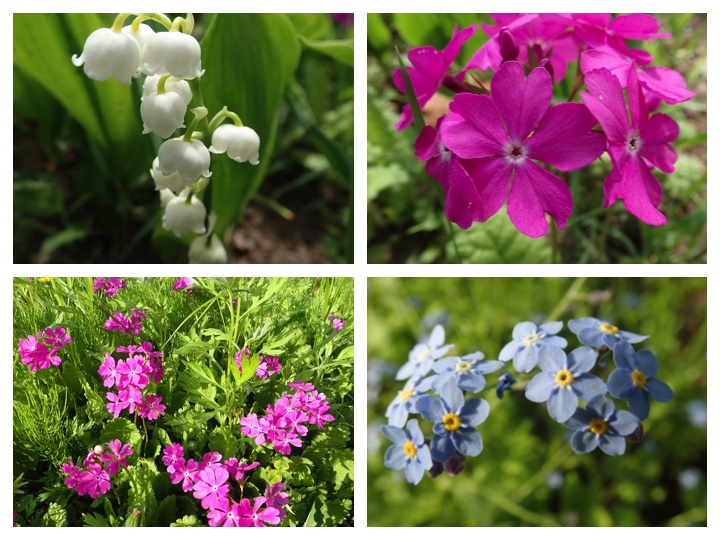
ドイツスズラン、サクラソウ(花壇)、エゾコザクラ(野生)、エゾムラサキ。5月28日 畜大キャンパス内。
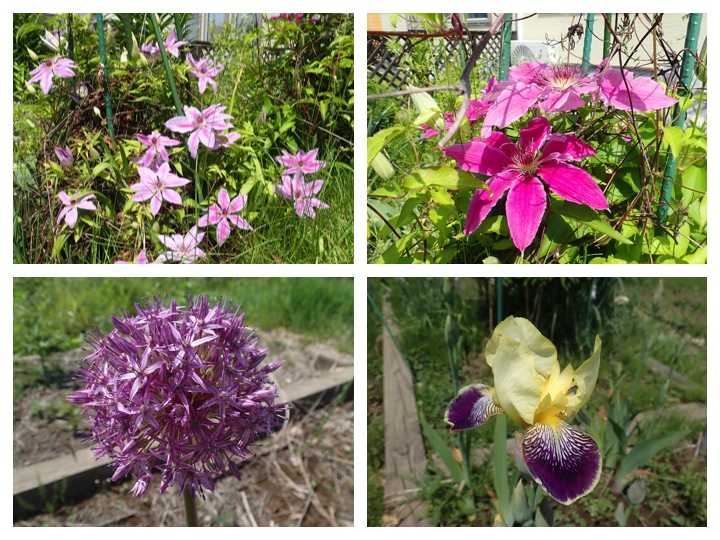
クレマチス2枚(家の庭)、アリウムギガテリウム、アイリス(別科の花壇)6月4日
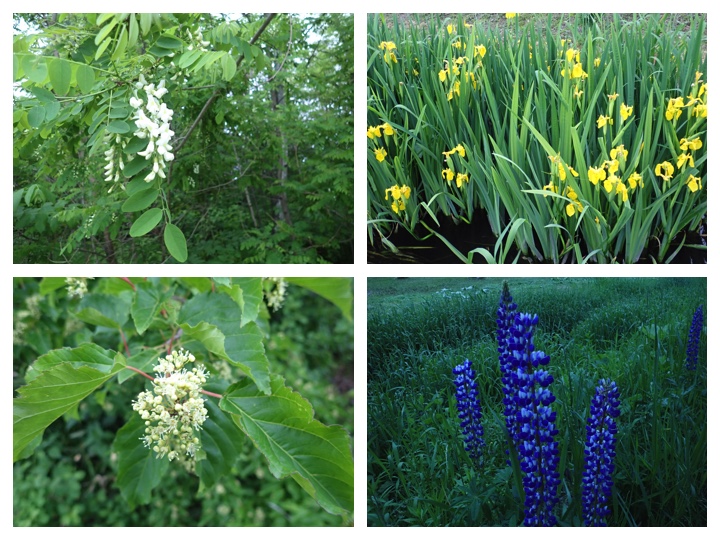
ニセアカシア、キショウブ、カラコギカエデ、ルピナス 6月5日夕暮れ時 機関庫川沿い。
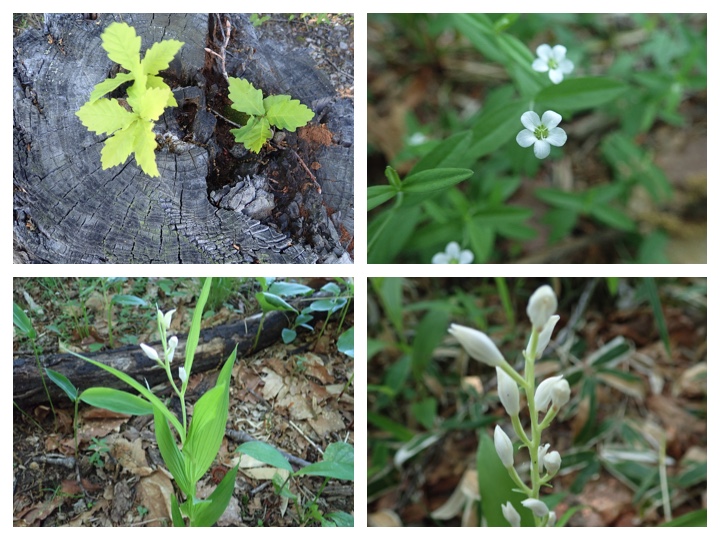
ミズナラひこばえ(機関庫側沿いの散歩道)、オオヤマフスマ、ギンラン、ギンラン(農高林内) 6月6日。
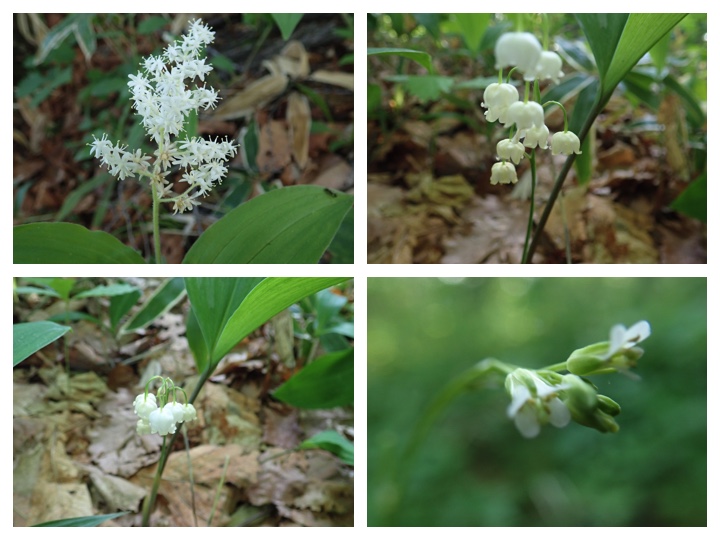
ユキザサ、スズラン、スズラン、ヤマハタザオ(農高林内)6月6日。
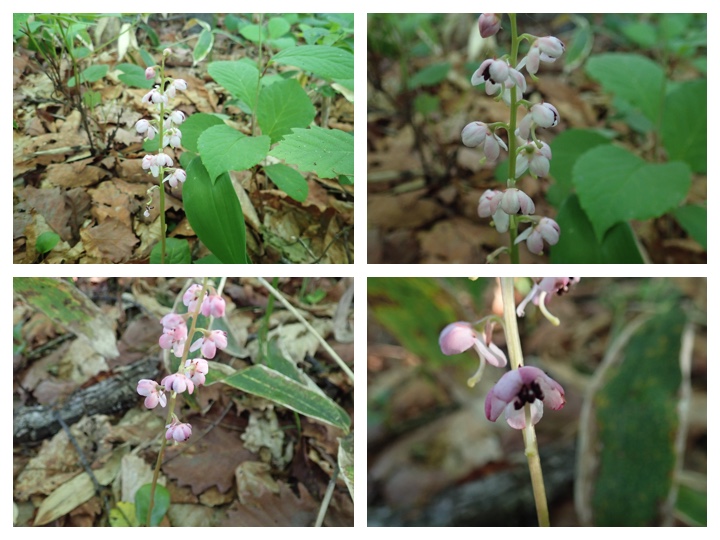
すべてイチヤクソウ(農高林内) 6月6日。
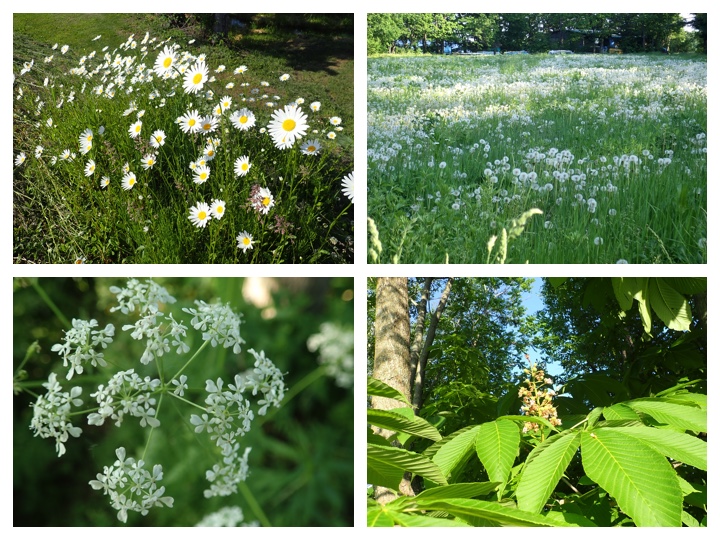
フランスギク、綿毛のタンポポ、シャク、トチノキの花(機関庫の川公園周辺) 6月6日。
Visit to Nagoya on the occasion of alumni meeting of the high school class mates.
高校同年会出席のため名古屋訪問。
名古屋で岡崎高校22回生(1970年3月卒)同年会があったので出席してきました。 同年会の内容については"Monologue" の方に書きましたので、ここでは同年会前日に参拝した熱田神宮の写真を載せます。
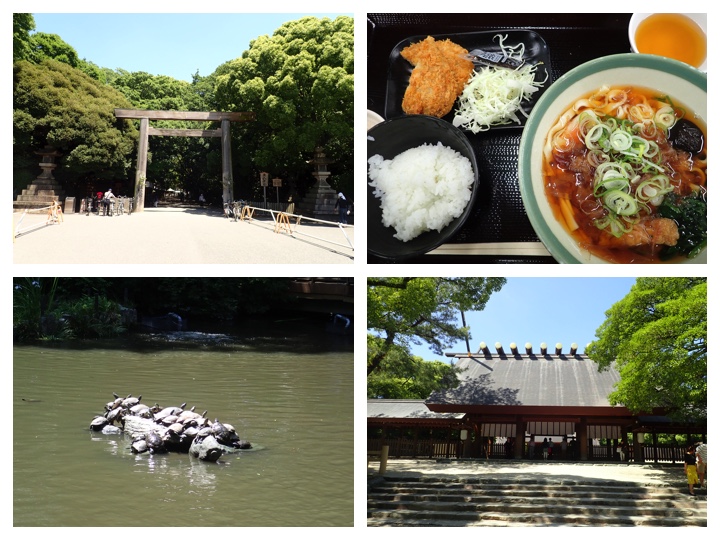
熱田神宮正門、宮きしめん定食、土産物店裏の池と亀のひなたぼっこ、熱田神宮本殿。6月1日
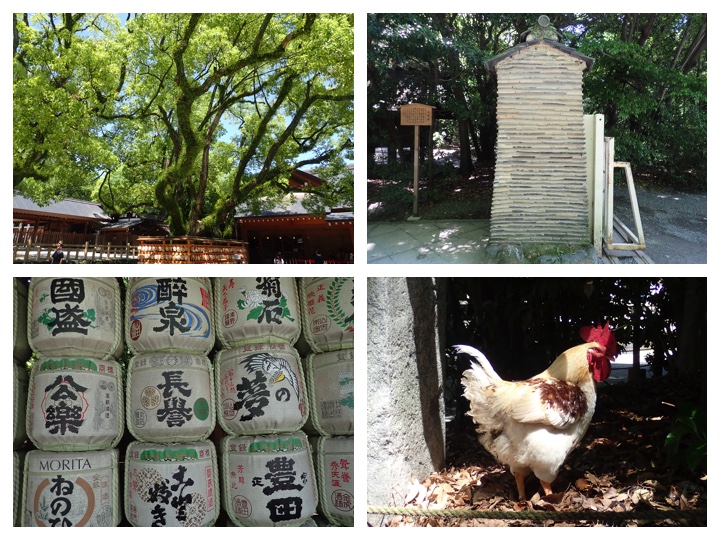
本殿前の楠、信長が寄進した土塀、愛知県産の日本酒(一部)、境内の鶏。6月1日
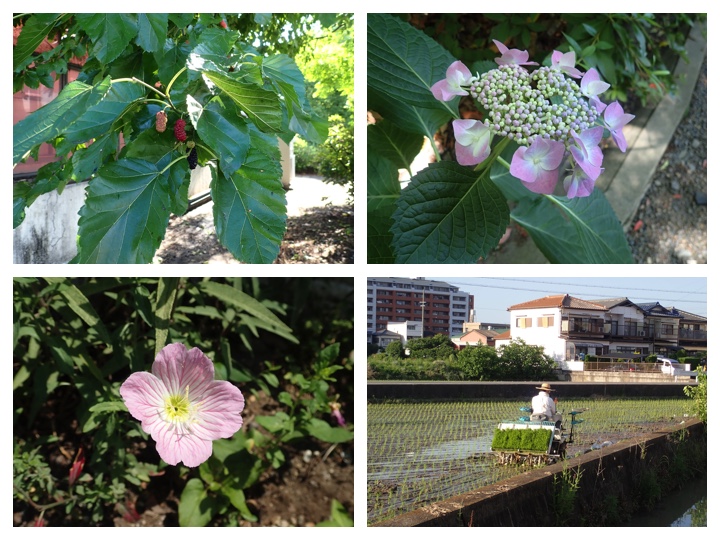
桑の木と実、紫陽花、アオイの花、名古屋郊外の田植え。6月1日
Flowers and etc. in early June. 6月上旬の花など。
6月上旬は暑い日が続きました。シャクナゲが終わり、アザレアが咲き、ハマナス系のバラが咲き始めました。カエデは緑色の新葉の中に赤く色づいた葉が混じり、可愛らしいプロペラ様の実が着きました。
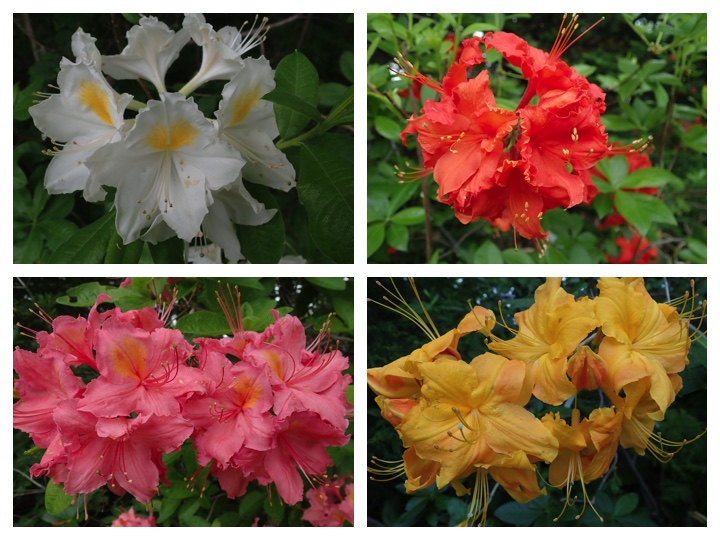
さまざまな色のアザレア。真鍋庭園にて。6月8日
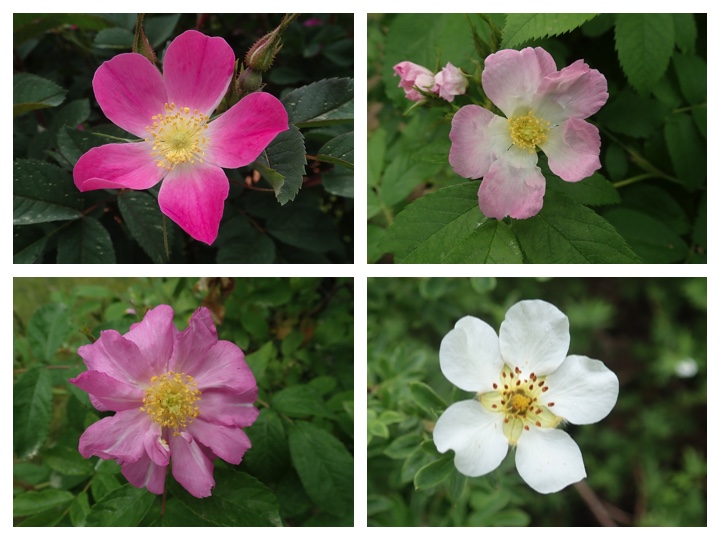
ハマナス系のバラ。真鍋庭園にて。6月8日
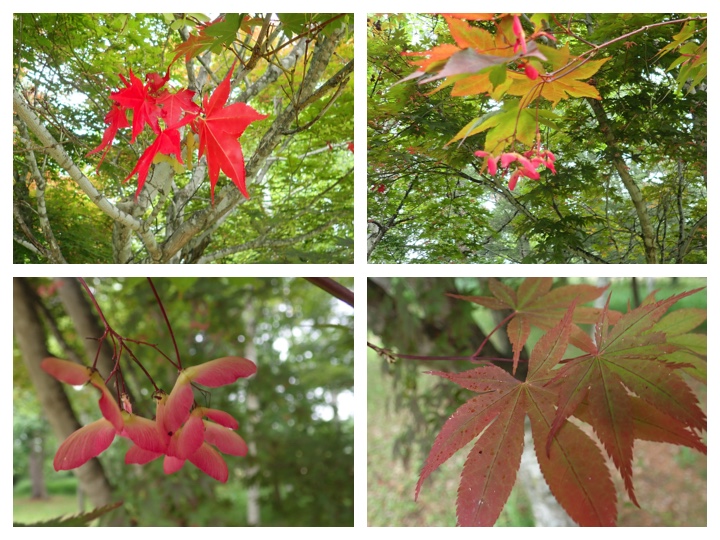
まなびの公園のヤマモミジ。6月8日
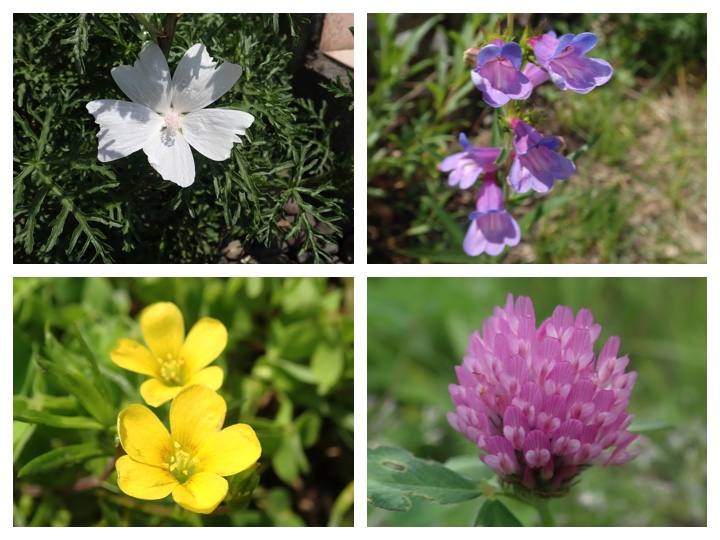
わが家の庭および近所で咲いた野草。6月8日
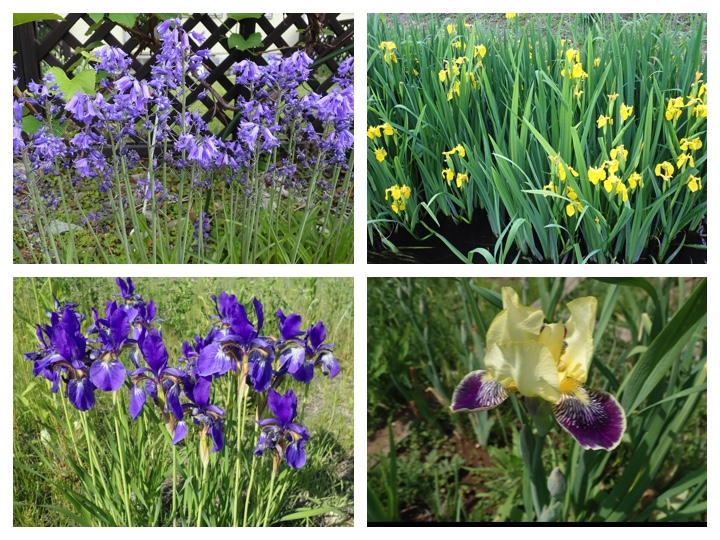
わが家の庭のツリガネズイセンおよび近所で咲いた各種のアヤメ。6月8日
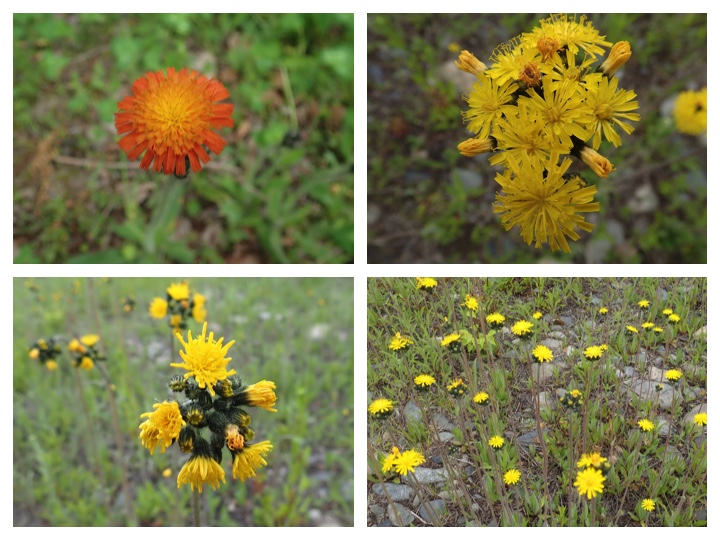
近所の空き地に咲いているコウリンタンポポとキバナコウリンタンポポ。6月8日
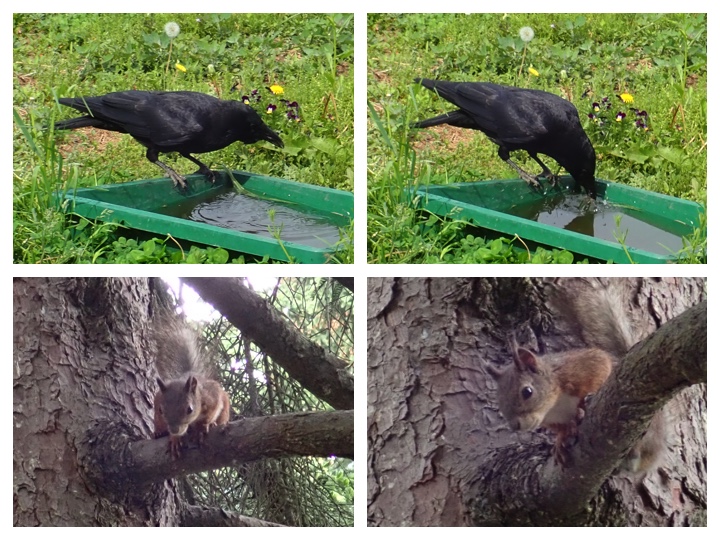
別科圃場のハシボソガラスと真鍋庭園のエゾリス。6月7日と8日
First harvest of pasture grass in the field of Obihiro University of Agriculture and Veterinary Medicine on June 5.
帯広畜産大学圃場における一番草の収穫。
On June 5, pasture grass was harvested in the field of OUAVM for the first time in this year. Because the cows of OUAVM are fed with fresh grass and dent-corn, their mild tastes refreshing and sweet.
6月5日、畜大の牧草地では一番草の収穫が行われていました。畜大で飼われている牛は新鮮な牧草やデントコーンを食べているので、牛乳の味はさわやかで美味しいです。
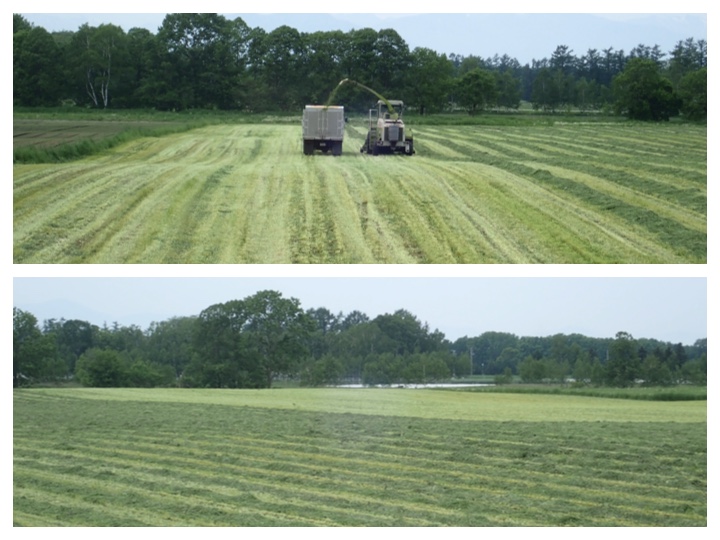
収穫機が畑で乾かした牧草を吸い上げ、並走するトラックの荷台に積み込みます。6月5日正午ごろ。
Pot experiment for the Soil Science and Plant Nutrition Practice Class.
別科土壌作物栄養学実習でのポット試験。
Radish is grown on the subsoil of a volcanic ash soil under different fertilizer treatments. Some pots of plowed layer soil are also tested for comparison. Seeds were sown on June 4. On June 9, almost all seeds have been germinated.
火山灰土の下層土を用いて、さまざまな施肥のもとでハツカダイコンを栽培しています。比較のため作土層のポットも無肥料区と標準施肥区について用意しました。6月4日に播種し、6月9日にはほとんど全ての種子が発芽していました。6月17、18、26、27日の写真も追加しました。
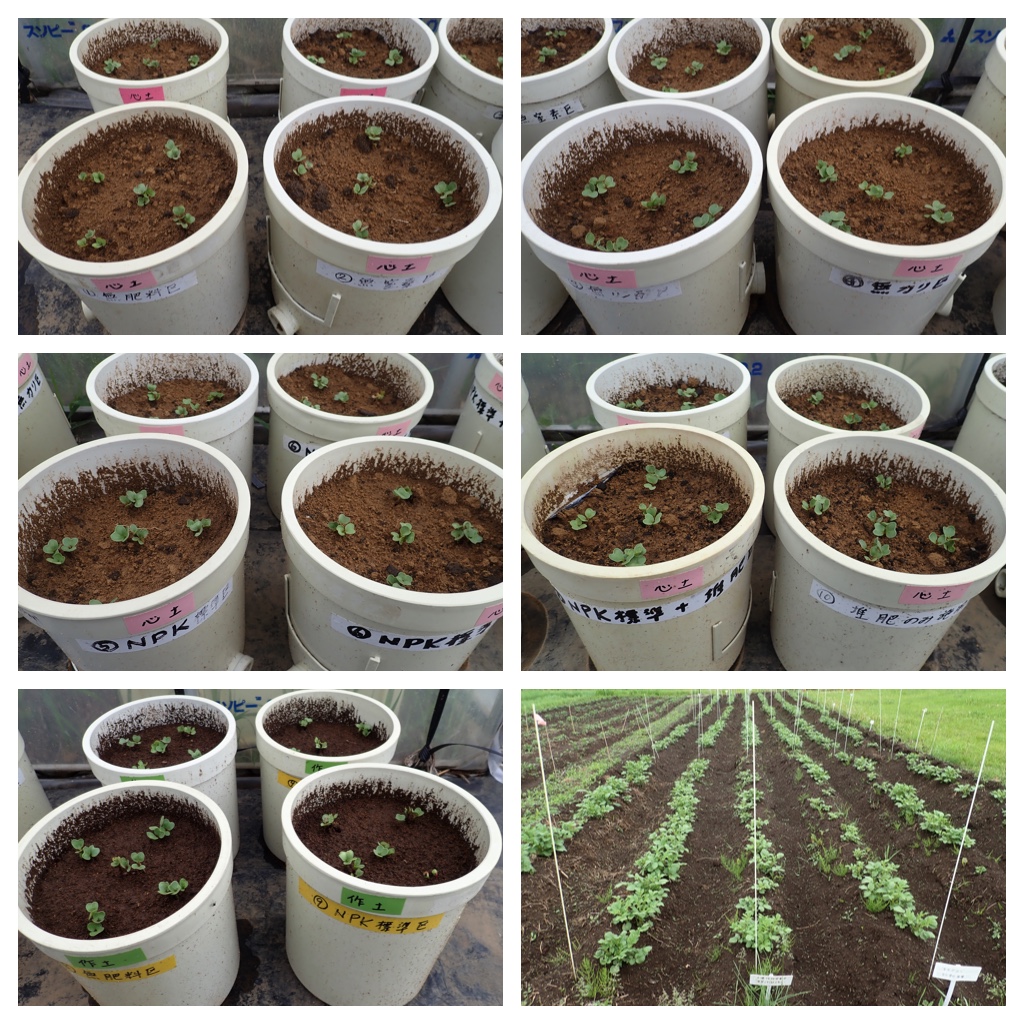
ハツカダイコンの発芽の様子。最後の写真はバレイショ圃場。手前が配合肥料区(6月9日)。
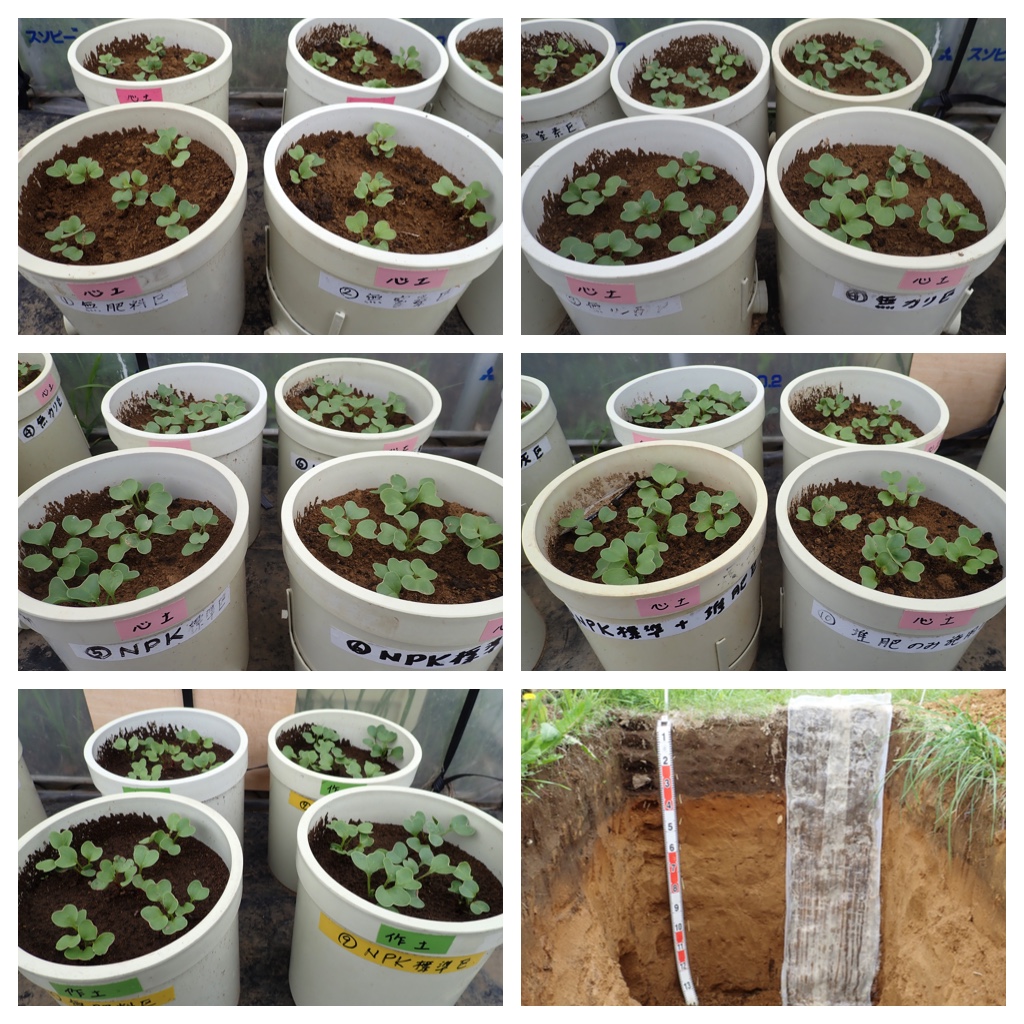
ハツカダイコンの生育の様子。そろそろ間引きを行う予定です。最後の写真は土壌断面でモノリスを作っているところ。(6月17日)。
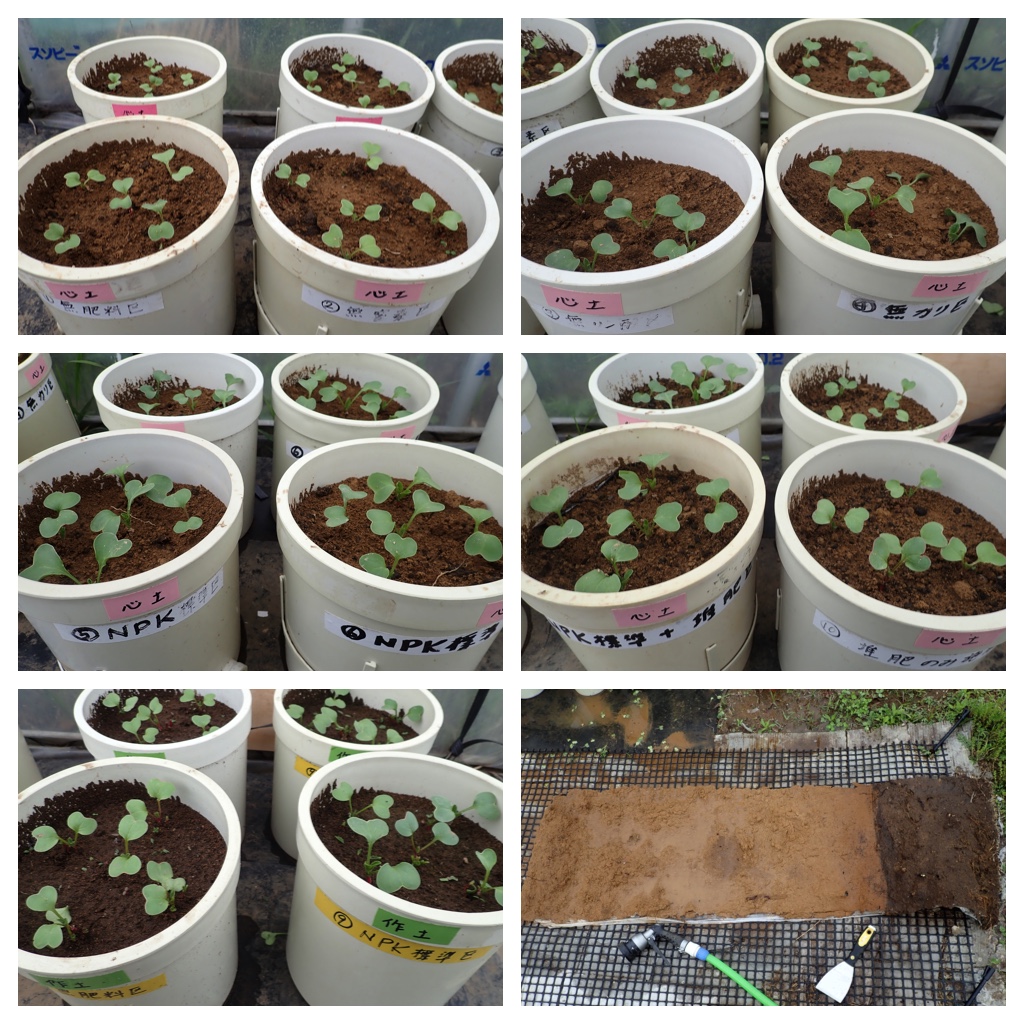
ハツカダイコンの間引き後の写真。最後の写真は土壌モノリスを洗って余分な土を落としているところ。(6月18日)。
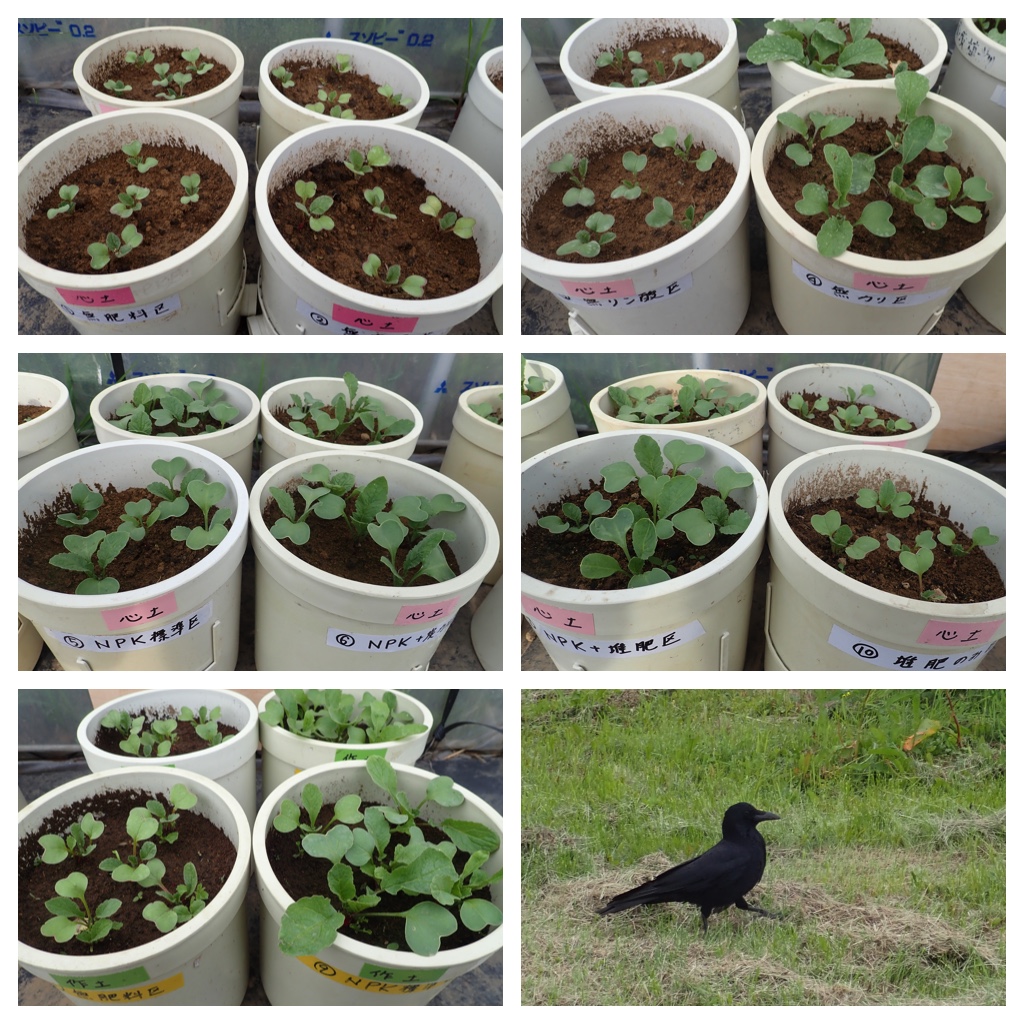
各区の間の生育の違いが明らかになってきた。最後の写真は圃場付近で遊ぶハシボソガラス。(6月26日)。
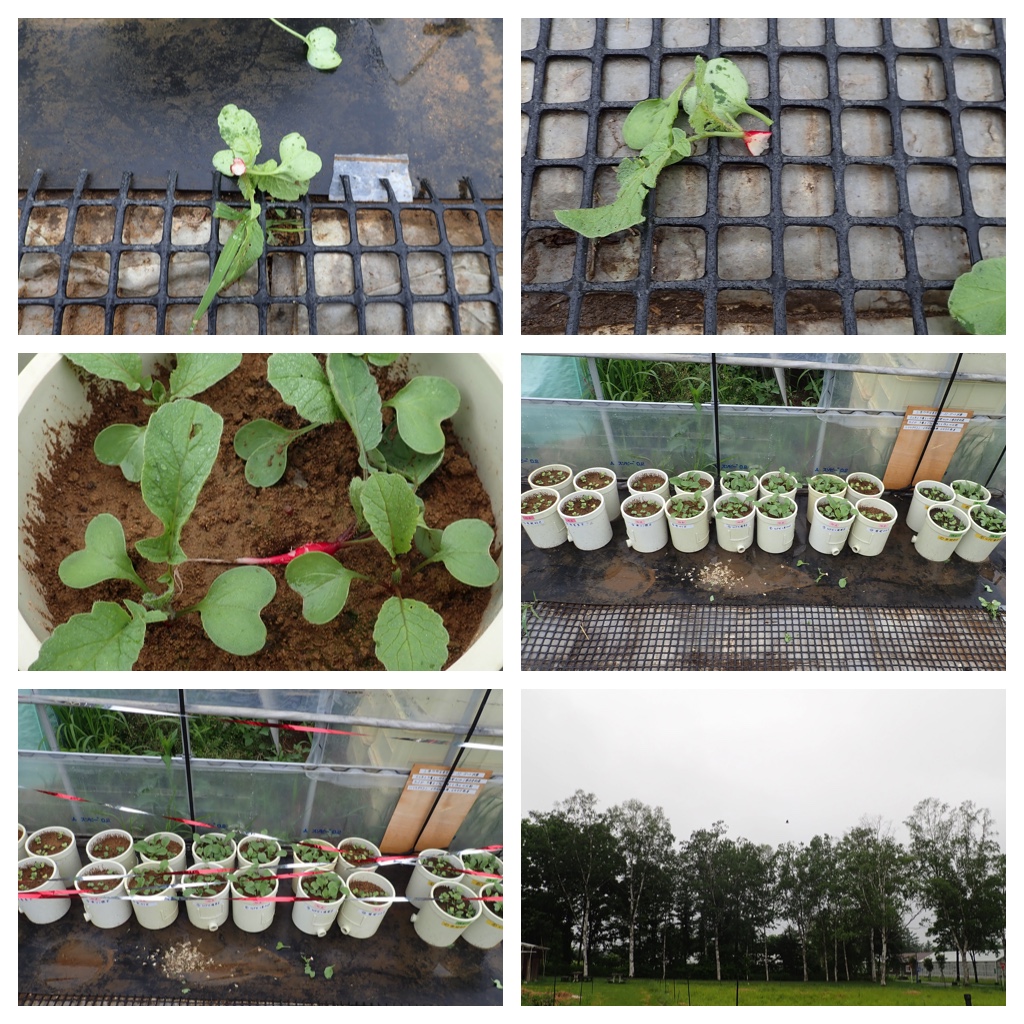
カラスによってポット試験のハツカダイコン4本を引き抜かれました。2個は食べられ、他の2個は小さかったためか抜いたままポットの中に置いてありました。赤と銀色の反射テープを張っておきました。最後の写真はシラカバ並木の上をカラスが飛んでいるところです。遠すぎてよく写っていませんが。(6月27日)。
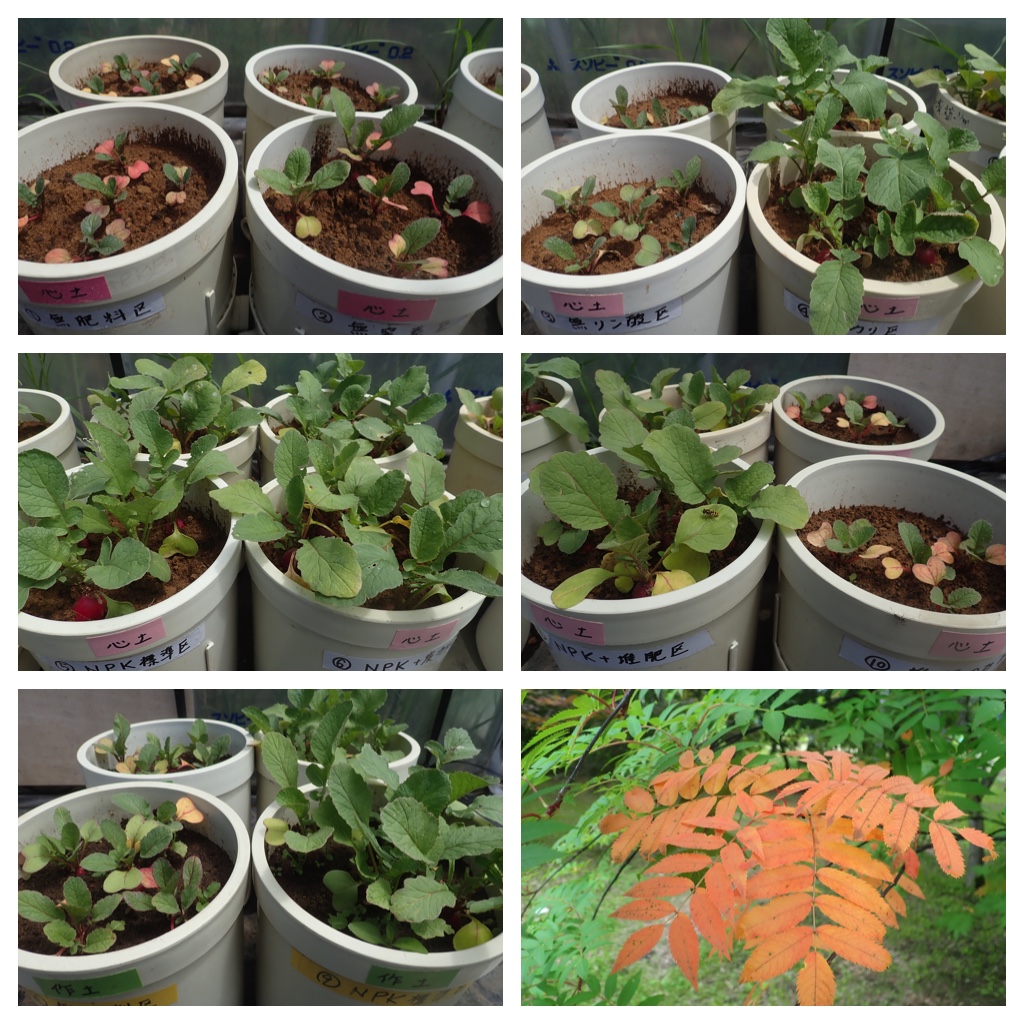
収穫調査前日の各ポットの写真。ポットの順番は上に載せた各写真と同じです。(7月8日)。収穫調査の結果については、My Lecture files 内の「2018年度別科土壌作物栄養学実習」を参照してください。
Soil profile in the house area of my graduated student.
卒業生さんの家の土壌断面。
My former student in Obihiro informed me that he has dug a soil pit in his house site, and I visited him to observe the soil profile. The site is located on a higher terrace than the one on Obihiro University of Agriculture and Veterinary Medicine. It was characterized by deeper and older volcanic ash and loam layers.
近くに住む別科の卒業生さん(農家)が自宅の敷地内に穴を掘ったと知らせてくれたので、見せてもらいに行ってきました。畑ではなく、屋敷の敷地内に掘った穴でした。深く掘ってもレキは出てこないところですが、土壌断面の上の方は畜大の土壌断面と似ていました。卒業生さんにはいつまでも覚えていて頂いて有難いことだと思いました。場所は「別府」という集落内で、地形面は畜大が乗っている上札内 I 面よりも古い「基松面」という段丘面なので、支笏軽石層およびそれより古い火山灰層が残っています。15-20 cm くらいが樽前-c 火山灰、30-40 cm くらいが樽前-d 火山灰、40-50 cm くらいが恵庭-a 上に発達した腐植層、50-80 cm くらいがEn-a ローム層、80-110 cm くらいが恵庭-a 火山砂層、100 cm 以下が支笏軽石が風化したローム層ではないかと思います。
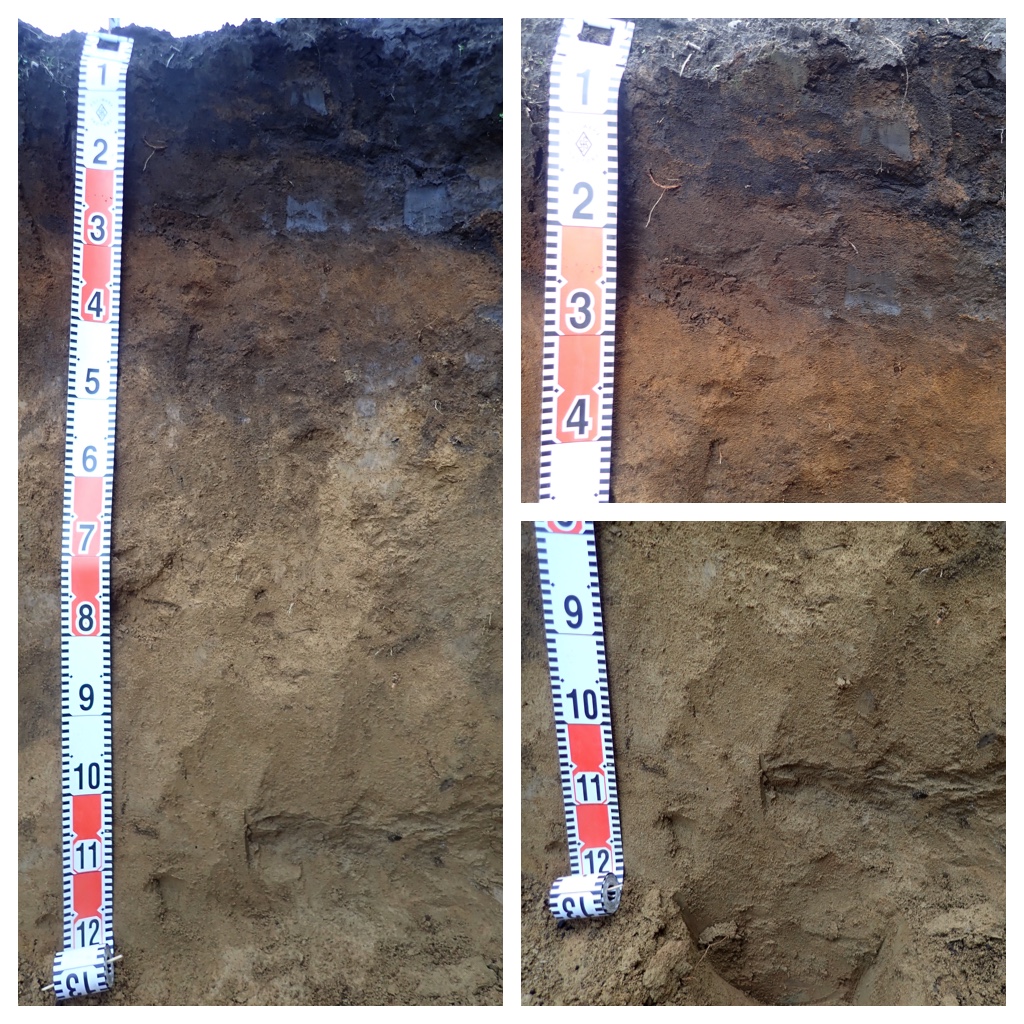
帯広市別府の土壌断面(6月10日)。
Plants and flowers in the Obihiro Wild Grass Garden on June 10.
帯広市野草園の植物と花(6月10日)。
On Sunday morning of June 10, I visited the wild grass garden of Obihiro city. In two weeks, plants and flowers in the garden have changed considerably.
日曜日の午前中、帯広市図書館に行ったあとで、緑ヶ丘の帯広市野草園に寄りました。2週間ぶりの訪問でしたが、草花の様子はすっかり変わっていました。
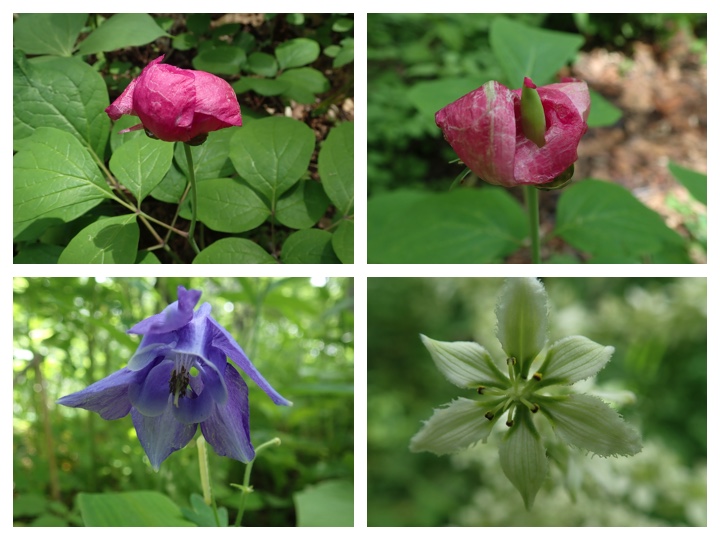
ベニバナヤマシャクヤク、同じく花期の終わったもの、オダマキ、バイケイソウ。
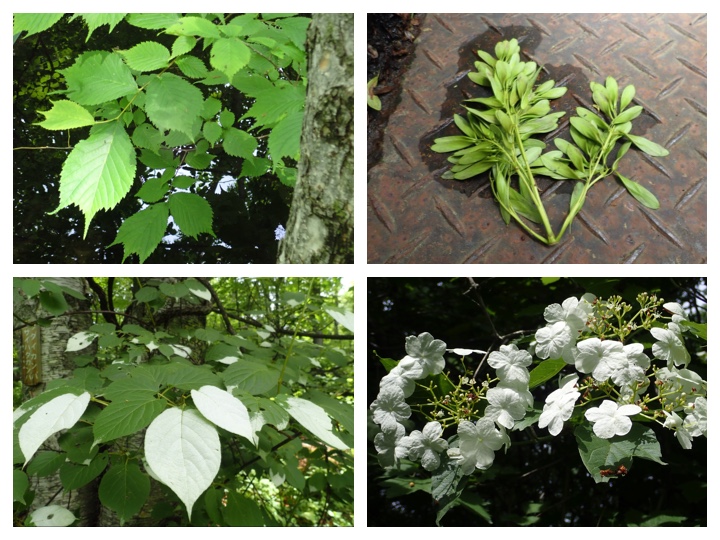
オヒョウの葉、風雨で落ちたヤチダモの実、ミヤママタタビの葉、カンボクの花。
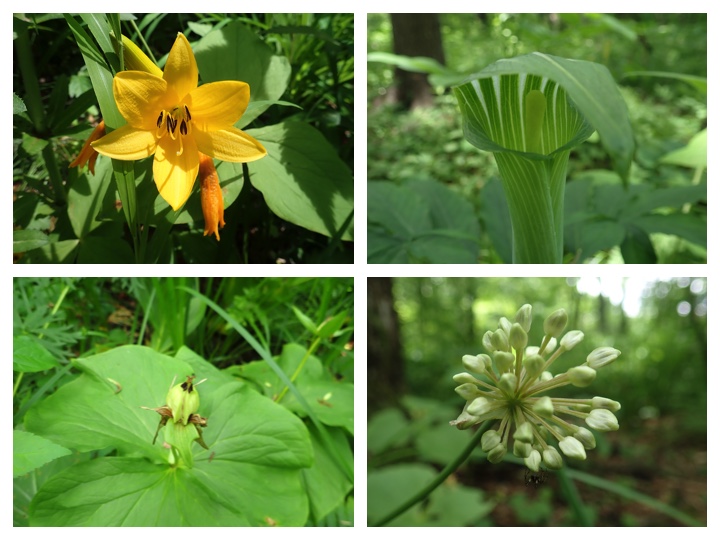
もうすぐ花期が終わるエゾカンゾウ、コウライテンナンショウ、オオバナノエンレイソウの実、名前不明の花。
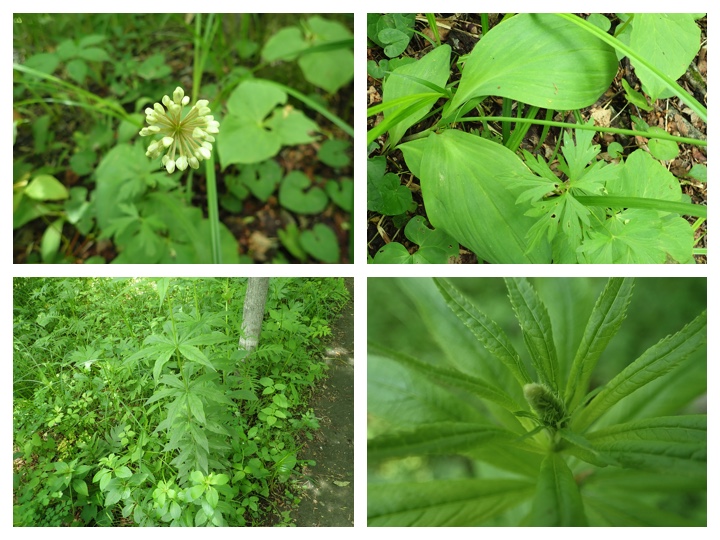
上段の2枚:上記名前不明の植物の全体の姿と葉、下段の2枚:クルマバソウの葉とつぼみ。
Preparation of soil monolith in the field of Junior Course, Obihiro University of Agriculture and Veterinary Medicine.
帯広畜産大学別科圃場における土壌モノリスの作成(6月15日〜6月27日)。
On June 14, I scraped the right half of the soil profile to make a flat surface. Still a small amount of resin was remaining for soil monolith preparation since last year. On June 15, I worked further to prepare the soil monolith. I applied the NS-10 resin on the surface of soil profile little by little from lower portion to upper portion. Then attached a gauze cloth and applied the resin again. Fixed the cloth with bamboo sticks. I just need to wait until Monday. I will show it to the students on Monday (June 18).
6月14日、別科実習で掘った土壌断面の右半分を削って平らな表面を作りました。今年は土壌断面標本(モノリス)を作らないつもりだったのですが、土壌断面作成用の樹脂が1リットルくらい残っているし、せっかく大きめの断面を作ったのでモノリスを作ろうと思いました。6月15日、土壌断面の表面にモノリス作成用の特製樹脂NS-10 を塗布し、その上にガーゼの布を貼り付け、さらにNS-10 樹脂を塗布しました。あとは固化するのを待つだけです。6月18日(月曜日)の実習の際に学生さんと一緒にはがせば興味を持ってくれることと思います。
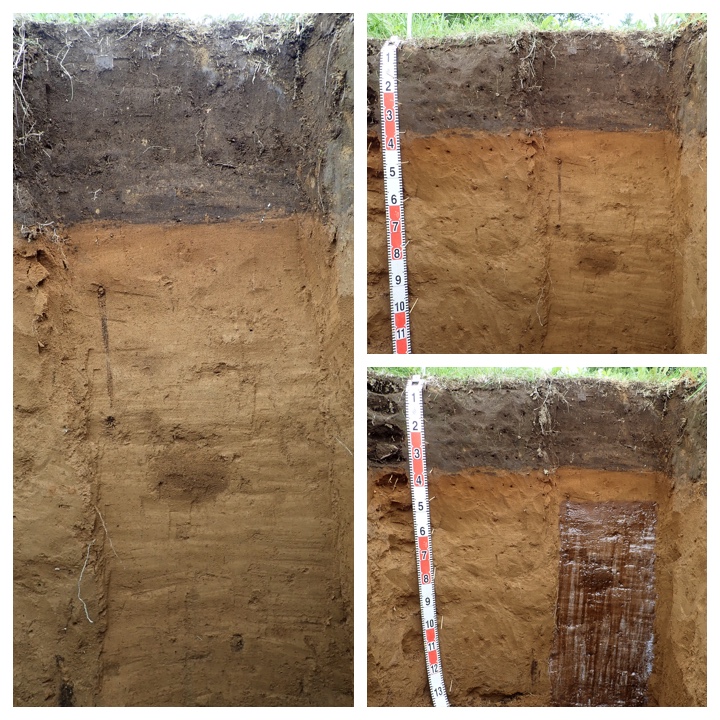
この土壌断面はよく見るととても面白いと思います。動物が掘ったトンネルのあとのようなものが認められますし、断面下部には恵庭火山砂のラミナ(葉理)の跡も認められます。樹脂は断面の下の方から少しずつ塗っていきました。そうすれば、あとで上の方から樹脂に混じって腐植や上の層位の土壌粒子が流れ落ちてきても、既に樹脂によって表面が塞がれているので汚れることがありません。
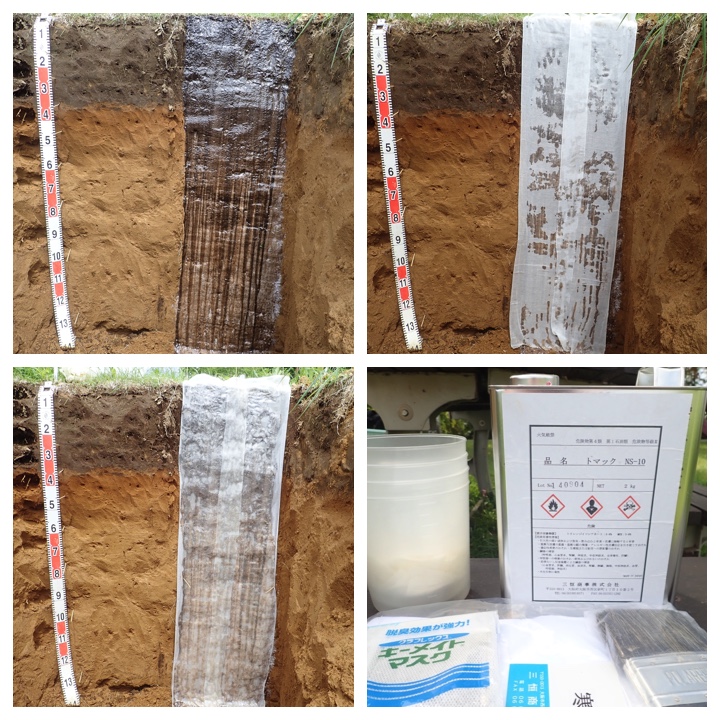
裏打ちの布としては、作成用キットに含まれている寒冷紗ではなくガーゼを用いました。ガーゼの方が樹脂のしみこみ方が良いし、土壌断面によく密着するからです。
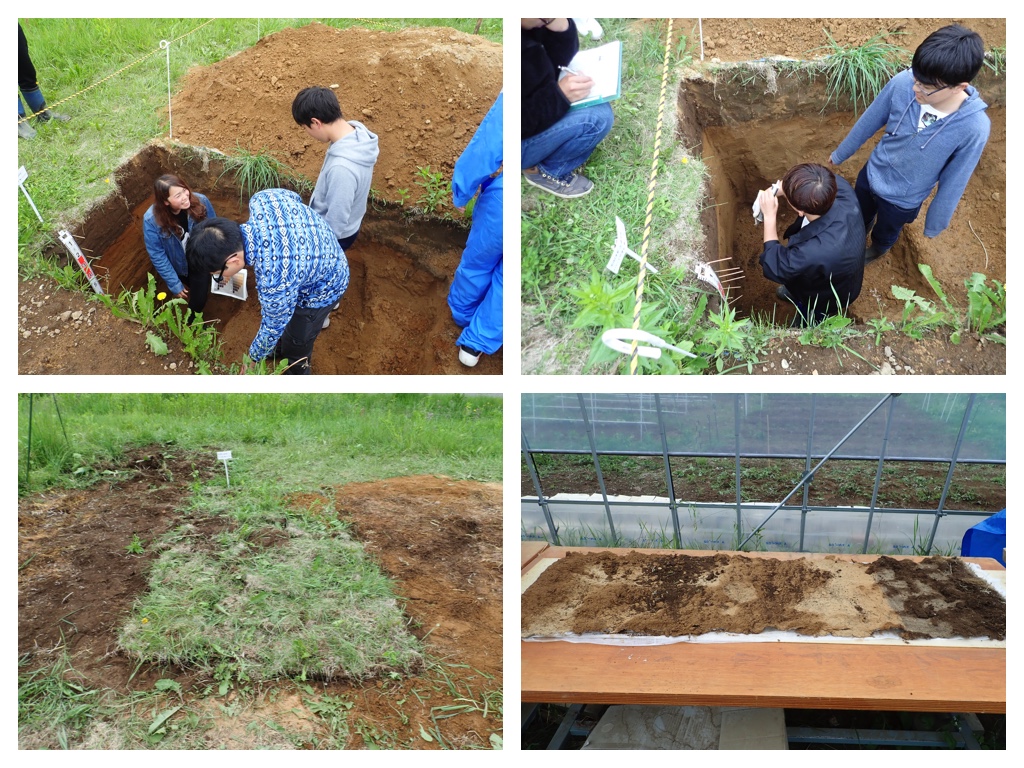
6月18日の実習の様子。モノリスは無事に断面からはがし、学生さんと土壌断面調査の実習をしました。その後、土壌断面の穴は埋め戻しました。モノリスについてはこれからの仕上げがまた大変です。
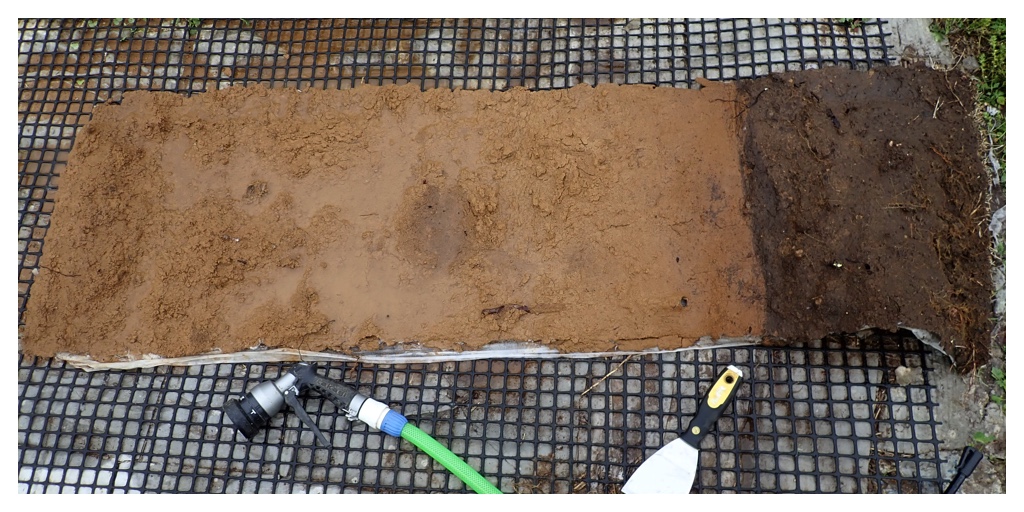
6月19日、モノリスの表面を水で洗い余分な土を落としました。これはマニュアルに書いてある通りの操作なのですが、今まではしたことがありませんでした。万一土が落ちすぎてしまったらいけないと思っていたからです。今日やってみた結果、問題はなさそうでした。土がモノリスにたくさん残りすぎていると、表面を固定するためのツヤ出しニスがたくさん要りますし、乾燥後も部分的に崩れてきてまたニスの塗布を追加でしなくてはならなくなることがあります。
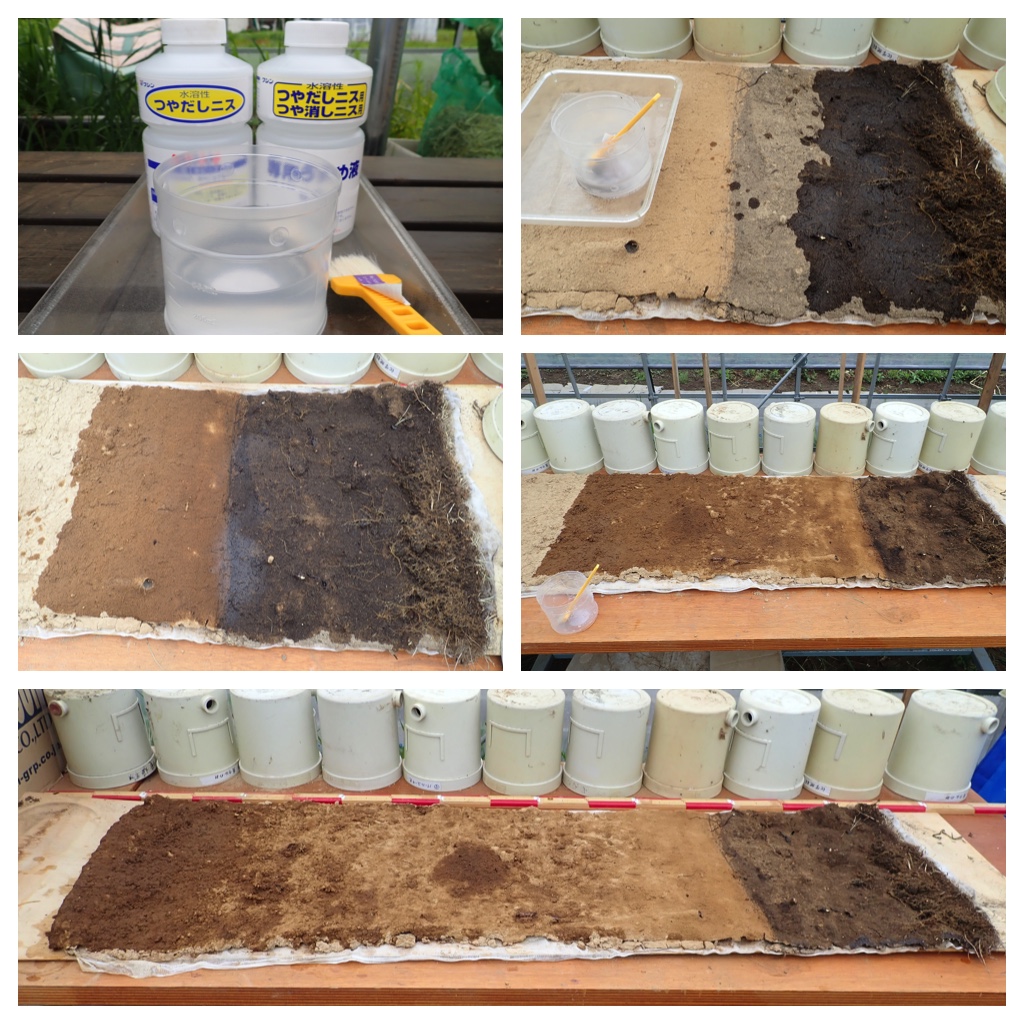
6月27日、乾燥したモノリスの表面に水溶性ツヤ出しニスを塗りました。専用薄め液で1:1に薄めたものを小さめのハケを用いて少しずつ染み込ませました。一応全面に塗り終わりましたが、乾燥後もう一度仕上がりをチェックしつつ塗り直す予定です。このニスはミニモノリスを作った時に試しに使ってみて良い具合に仕上がったのでそれからずっと使っています。メーカーは和信ペイントです。文献によると木工用ボンドを水で薄めたものを使っている場合がありますが、私の経験では仕上がりが曇ったようになって本来の土壌の色が再現されませんでした。
Flowers in the middle of June.
6月中旬の野草(6月16日)。
These flowers were found along my walking way in the forest of Obihiro Agricultural High School in the middle of June. Flowering season of forest floor plants has almost finished, but we can still find some more.
6月中旬に帯広農業高校の実習林の林を散歩していてみかけた花です。林床の野草の開花期はほとんど終わったようですが、歩いているとまだいくつか新しい花を見かけます。
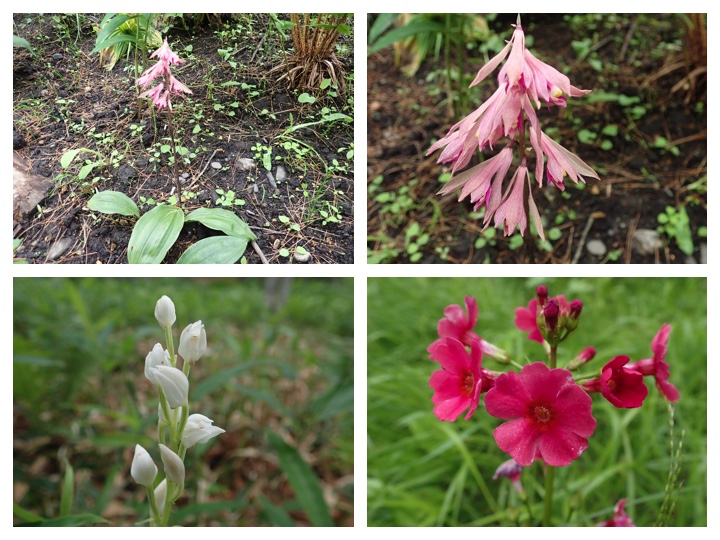
上段2枚:サイハイラン(真鍋庭園内)、下段左:ギンラン、下段右:クリンソウ (農業高校の森)
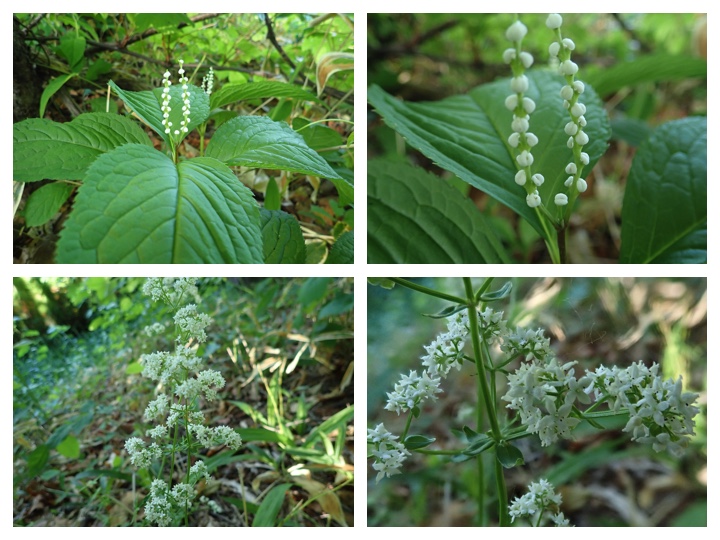
上段2枚:フタリシズカ(農業高校の森)、下段2枚:エゾキヌタソウ(農業高校の森)
Flowers in the Manabe Garden on June 17.
真鍋庭園の花々(6月17日)。
Now, it is the season of deutzia flowers. Late blooming rhododendrons are also beautiful. Small flowers in the shade of trees are also cute.
今はちょうどウツギの花々の季節です。遅咲きのシャクナゲもきれいです。足元の木陰に咲く小さな草花もかわいらしいです。
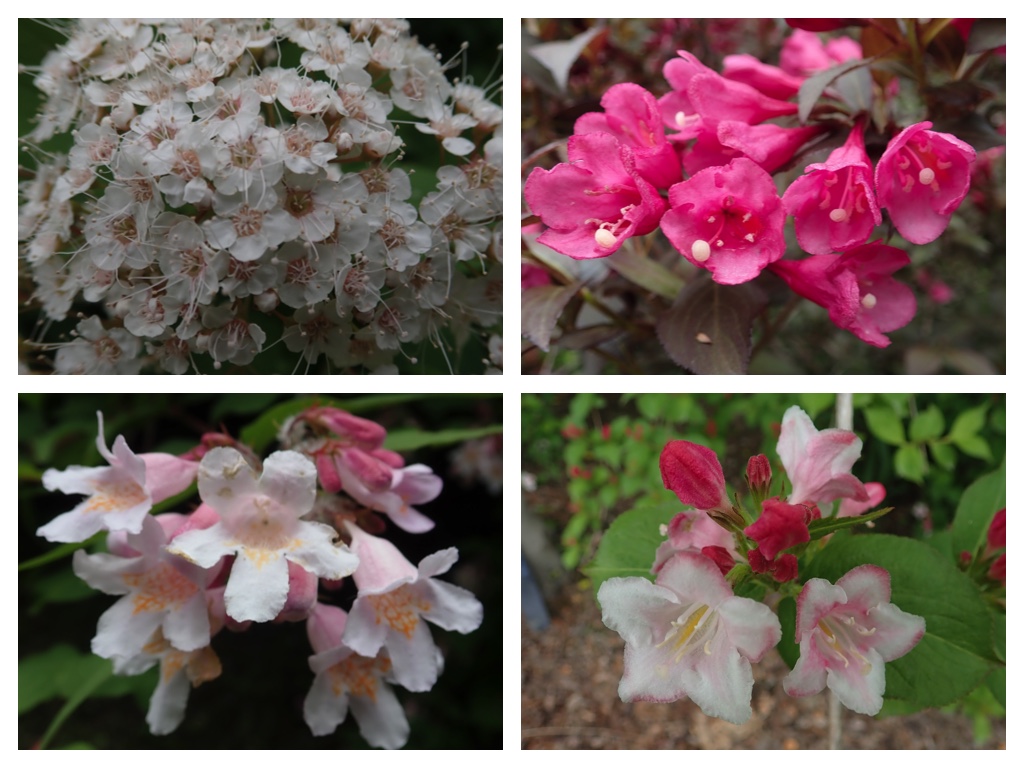
ノリウツギ、ベニバナウツギ、ショウキウツギ、ニシキウツギ
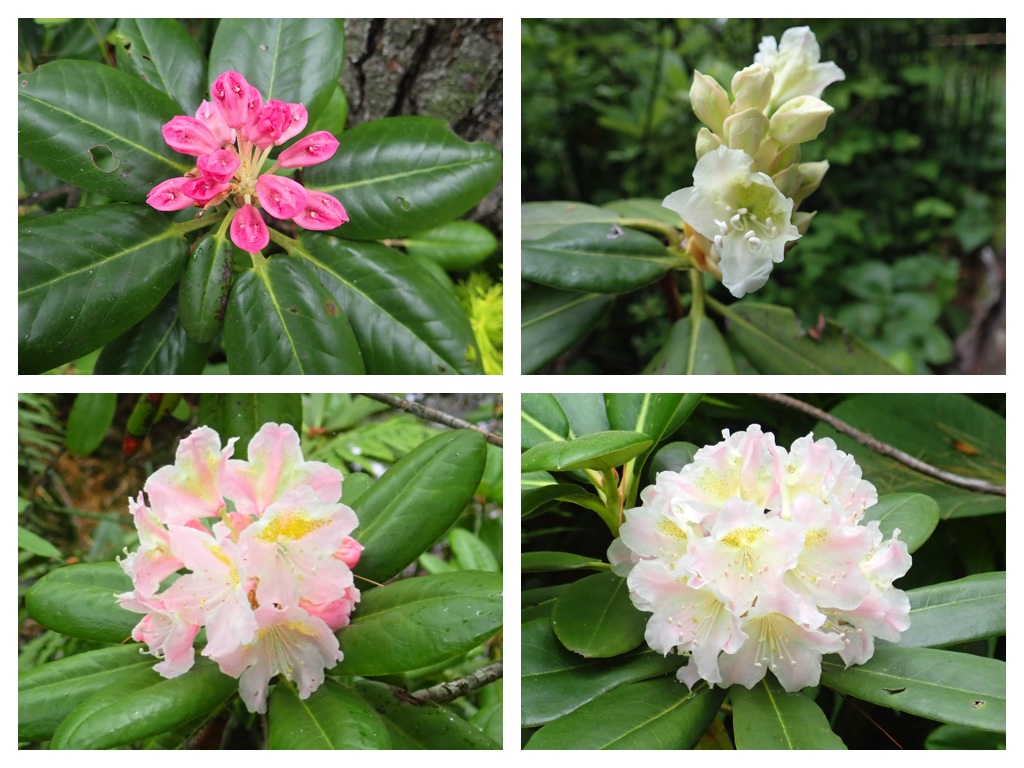
遅咲きのシャクナゲ。シャクナゲの季節はほとんど終わりましたが、まだところどころに咲き残っている花もあり、それも綺麗です。
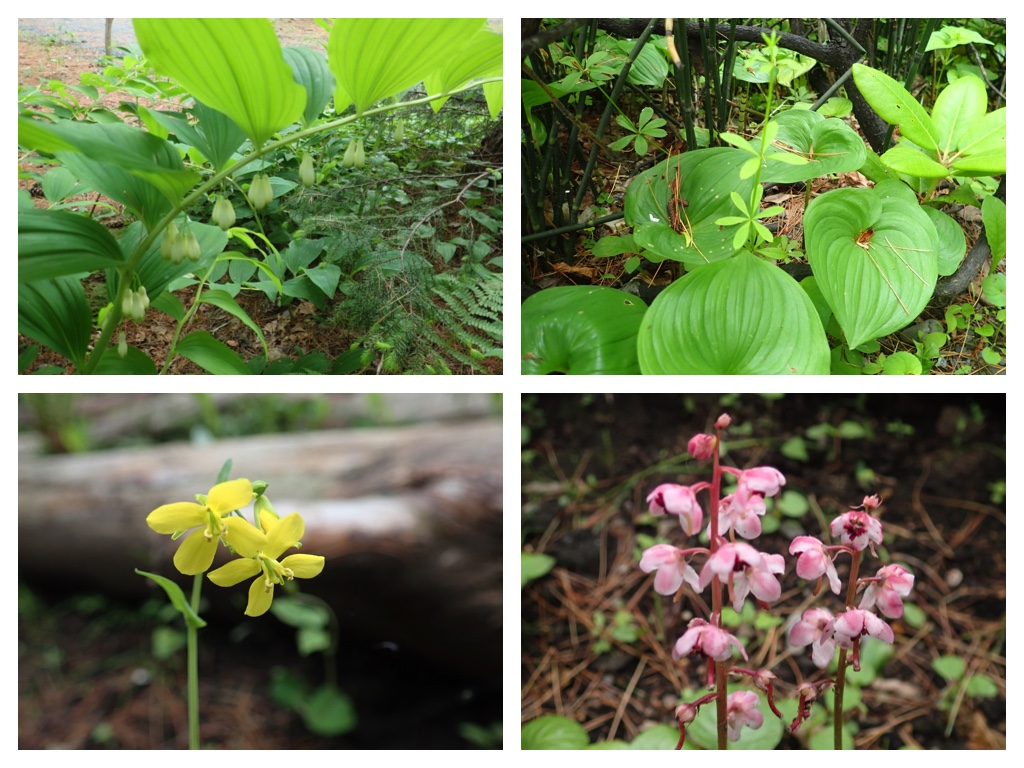
オオアマドコロ、マイヅルソウとクルマバソウ、イヌガラシ、ベニバナイチヤクソウ
Roses and pinks as well as allium in my garden.
バラとナデシコそしてアリウムの季節(6月19日)。
In my garden, it is the season of roses and pinks. Yellow rose “Peace” which I planted last fall could not survive the very cold winter in my place. The red rose “Knock out” could pass the winter. It is indicative of the human world.
I learned from an article that roses with small red or pink color flowers are relatively tolerable to cold temperature, while those with middle to large size yellow or white color are not, because the former group is nearer to wild variety roses. I should have known that before I bought the rose, "Peace".
わが家の庭ではバラとナデシコの季節が始まりました。バラは赤とピンクです。赤いバラ(ノックアウト)は去年の9月に買って庭に植えたものです。同じ頃に買った黄色いバラ(ピース)は越冬できませんでした。何か「ピース」という名前のバラが越冬できなかったのは寂しい気持ちです。
インターネットで検索した記事によれば、赤ないしピンクの小さな花を持つバラは比較的低温に強く、黄色ないし白の大輪のバラは弱いそうです。前者は野生のバラに近いからとのことです。黄色いバラ(ピース)を買う前に知っておくべきでした。
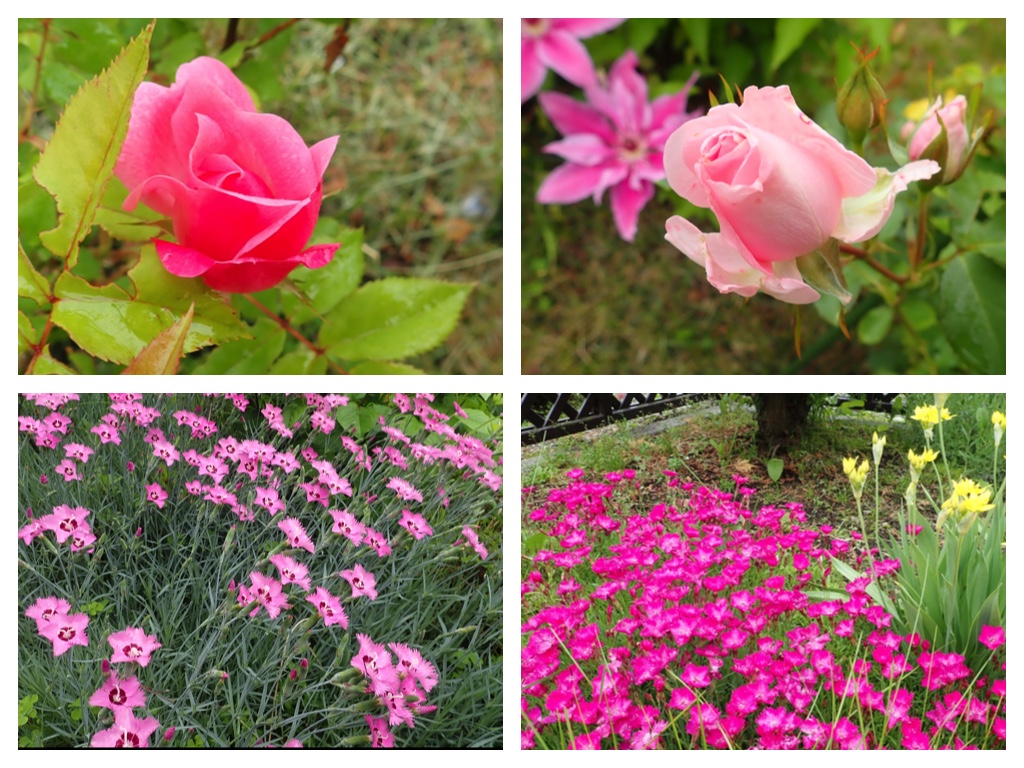
バラ(ノックアウト)、バラ(品種不明)、セキチク、ヒマラヤナデシコ
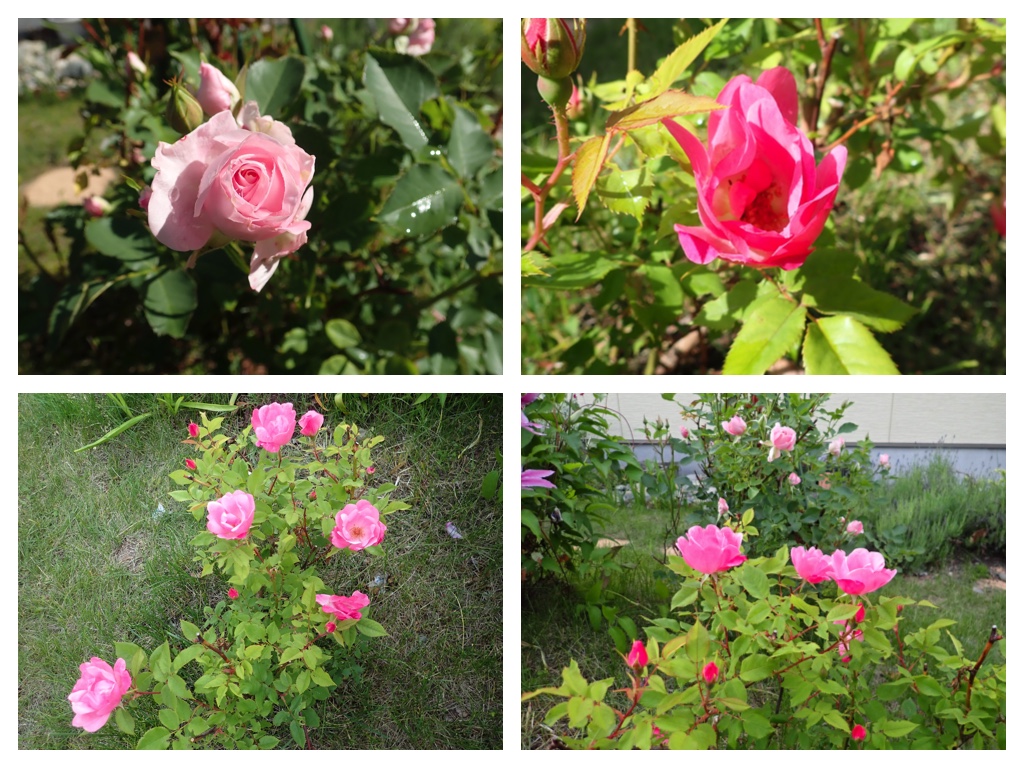
バラ(6月21日と23日)
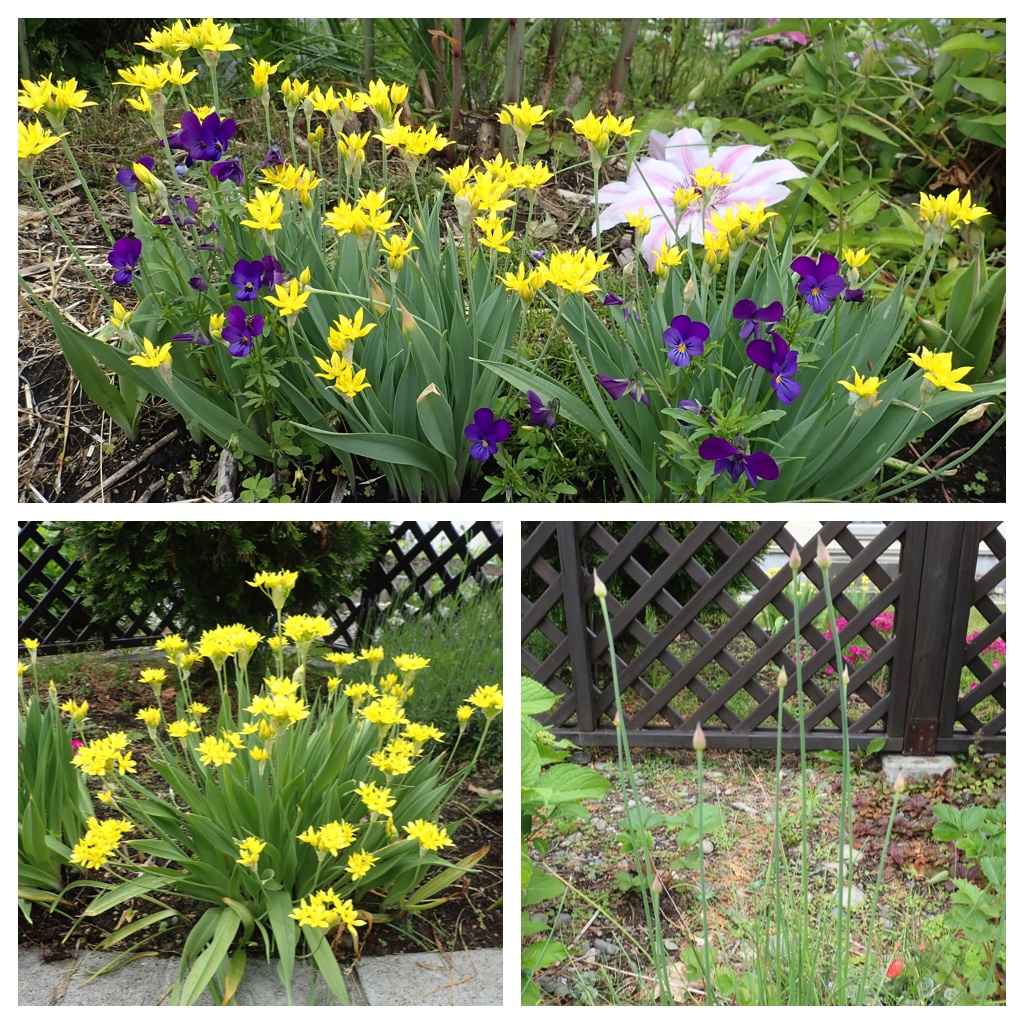
アリウム モーリー、同上、これから咲くアリウムの一種(右下)
Visit to Tokachi Hills Garden and the views to and from the garden.
十勝ヒルズ訪問と往復の道沿いの風景(6月22日)。
This afternoon, I visited Tokachi Hills Garden, around 10 km far from my house by bicycle. It is located on the top of the hill. Final part of the root was a very steep slope and I had to push my bicycle. The view from the garden was very nice, not only the beautiful flowers. Following photos include the rural views taken during the route to and from the garden.
今日は午後から自転車で十勝ヒルズに行ってきました。わが家から10キロくらいのところにあります。丘の上にあるので、最後の1.5キロくらいは自転車を降りて登りました。花も綺麗ですが、眺めもとても良いところです。池にイトトンボがたくさんいました。青いトンボが薄茶色のトンボの首のところをしっぽの先で捕まえて飛んでいました。さて、どちらがメスでどちらがオスでしょう?人間の場合「婦唱夫随」で妻に引っ張られることの方が多いように思うのですが。
以下の写真には十勝ヒルズまでの往復の道沿いで写した愛国町の景色も含みます。
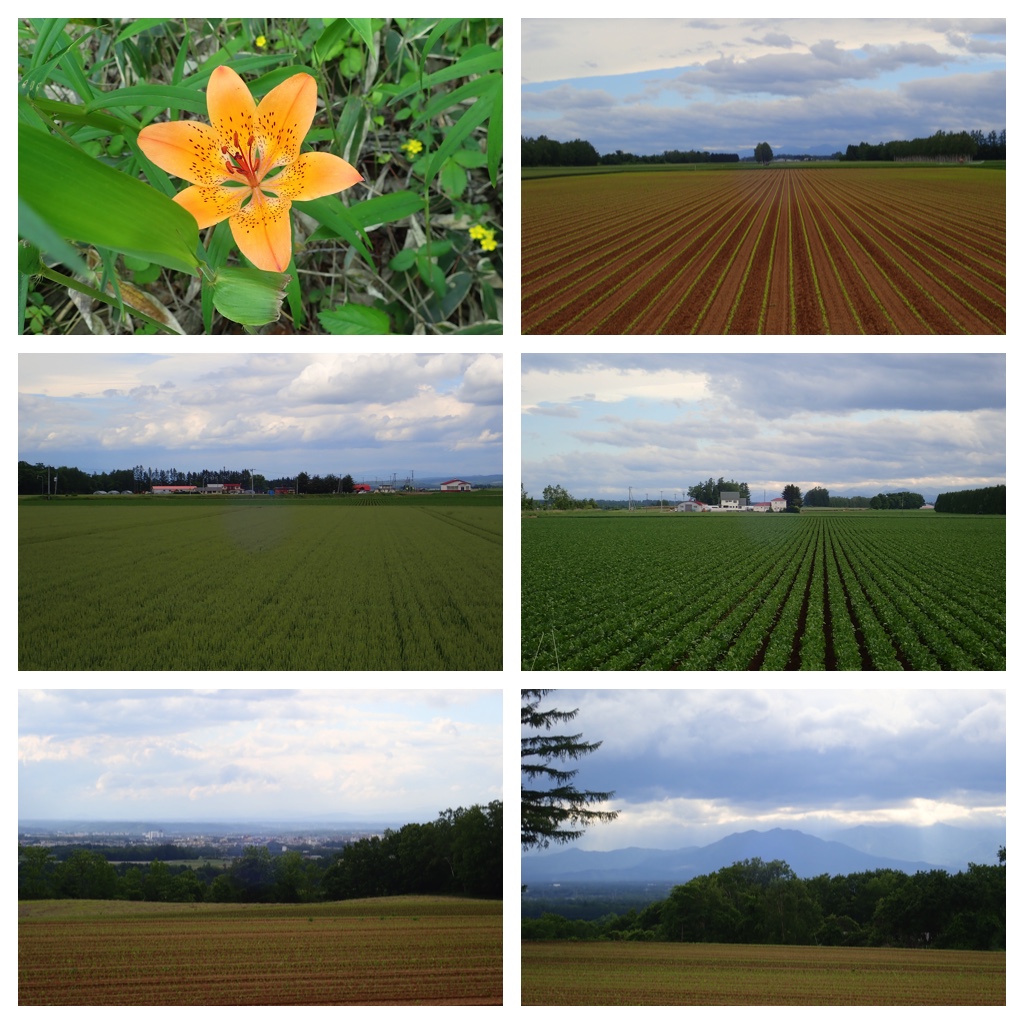
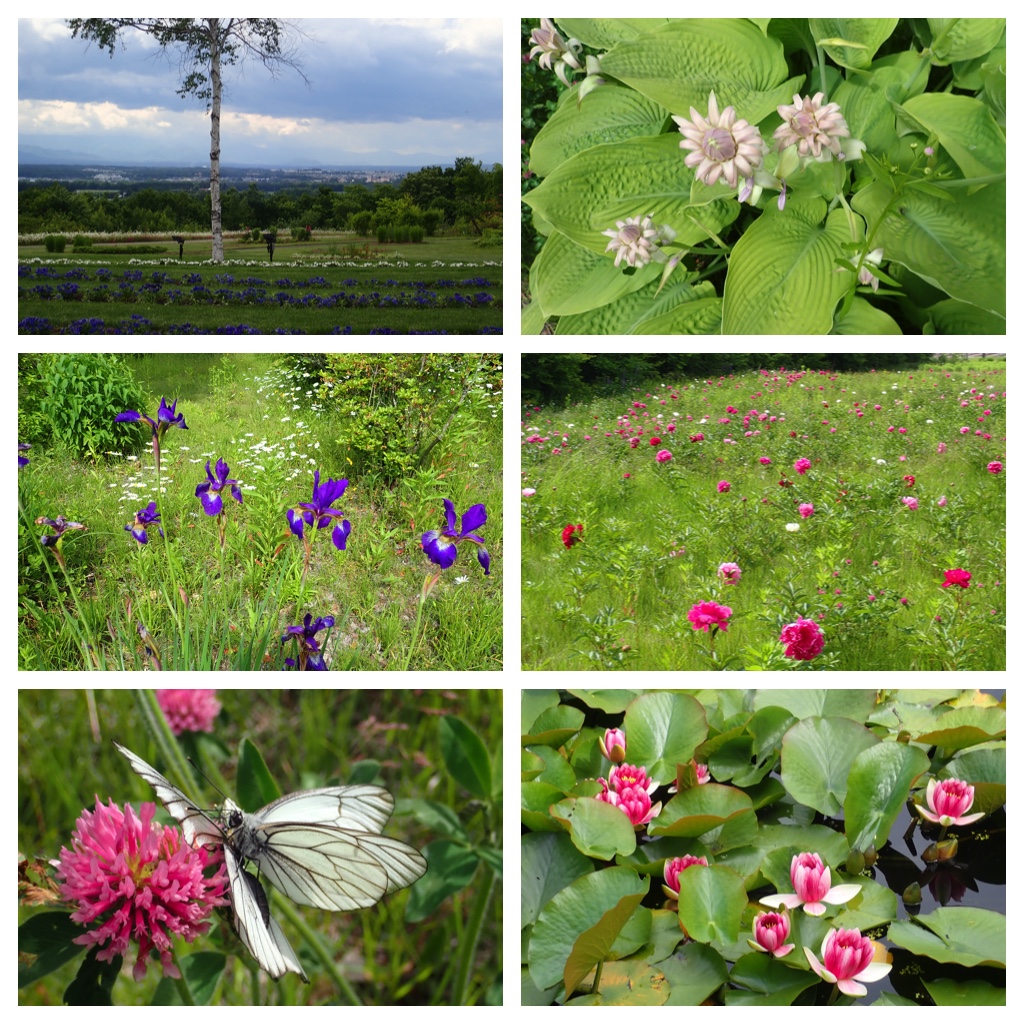
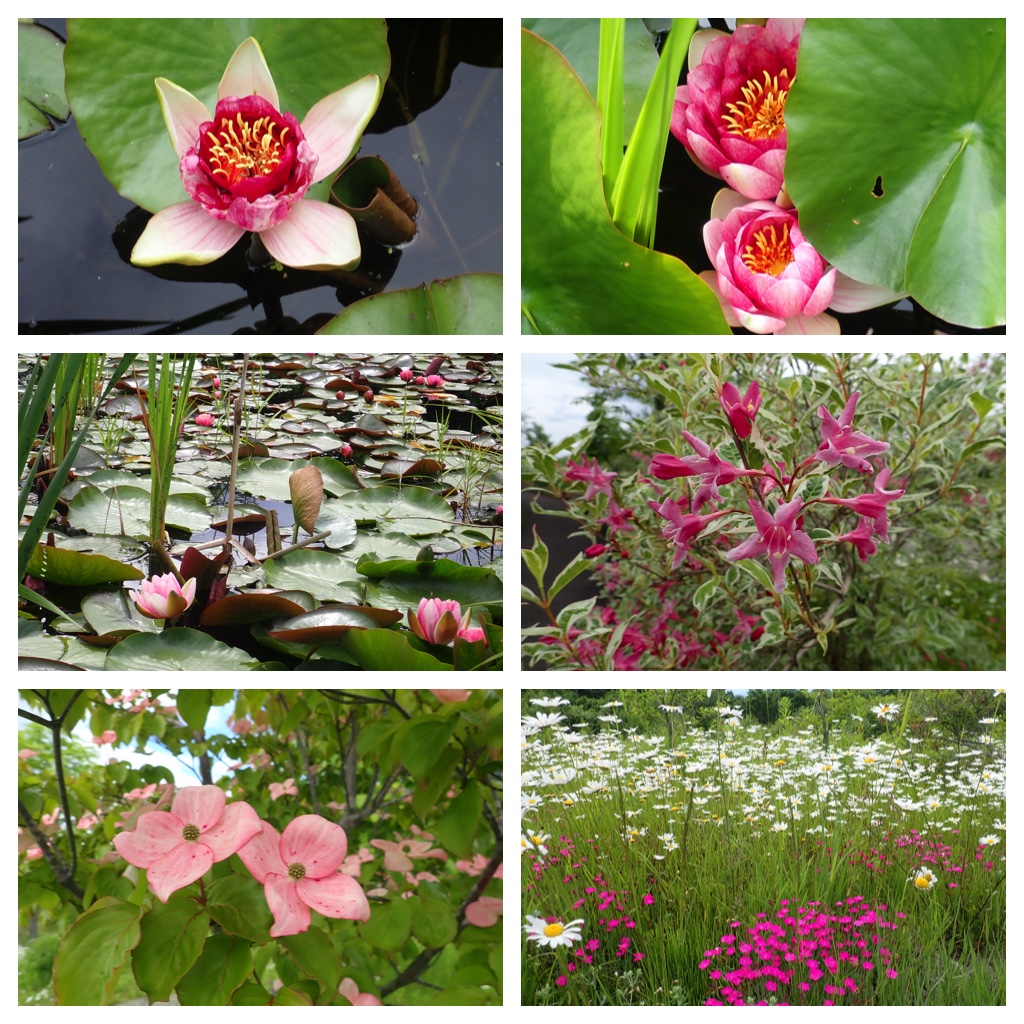
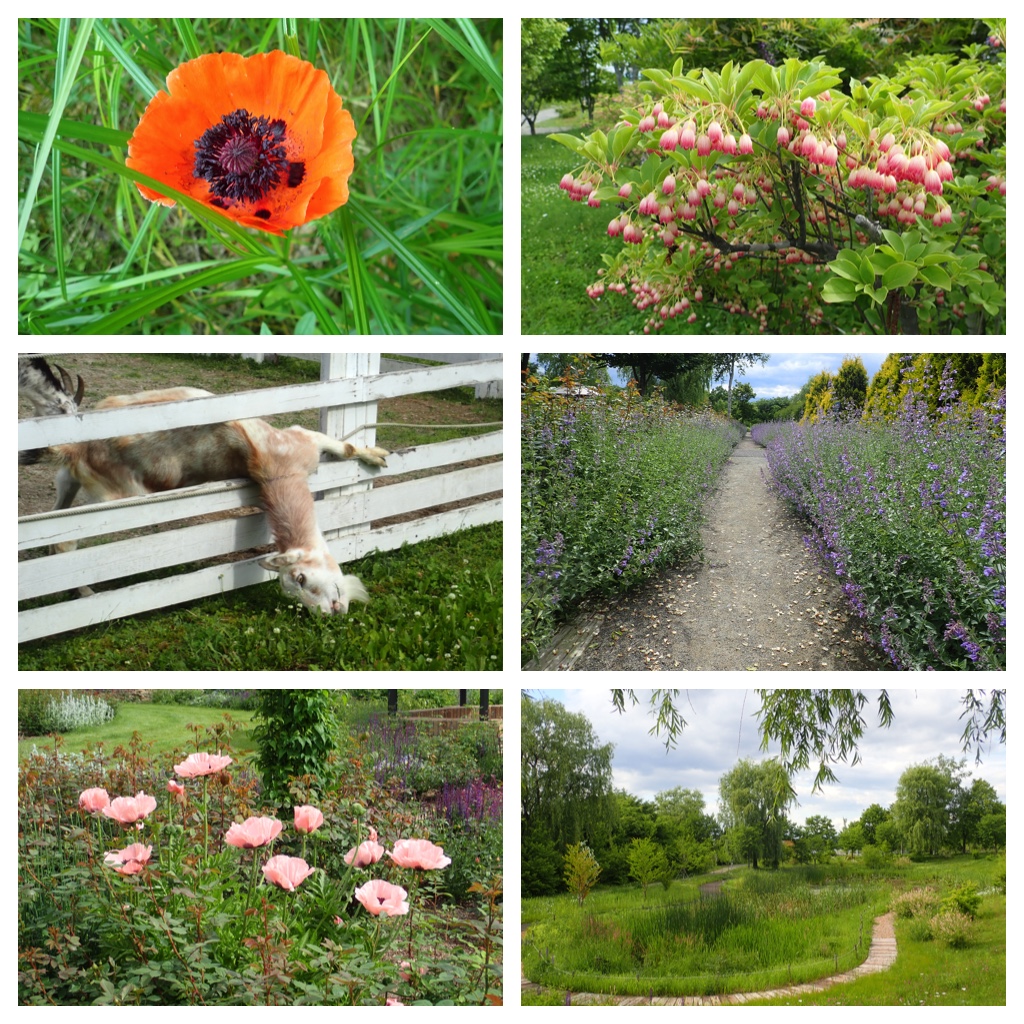
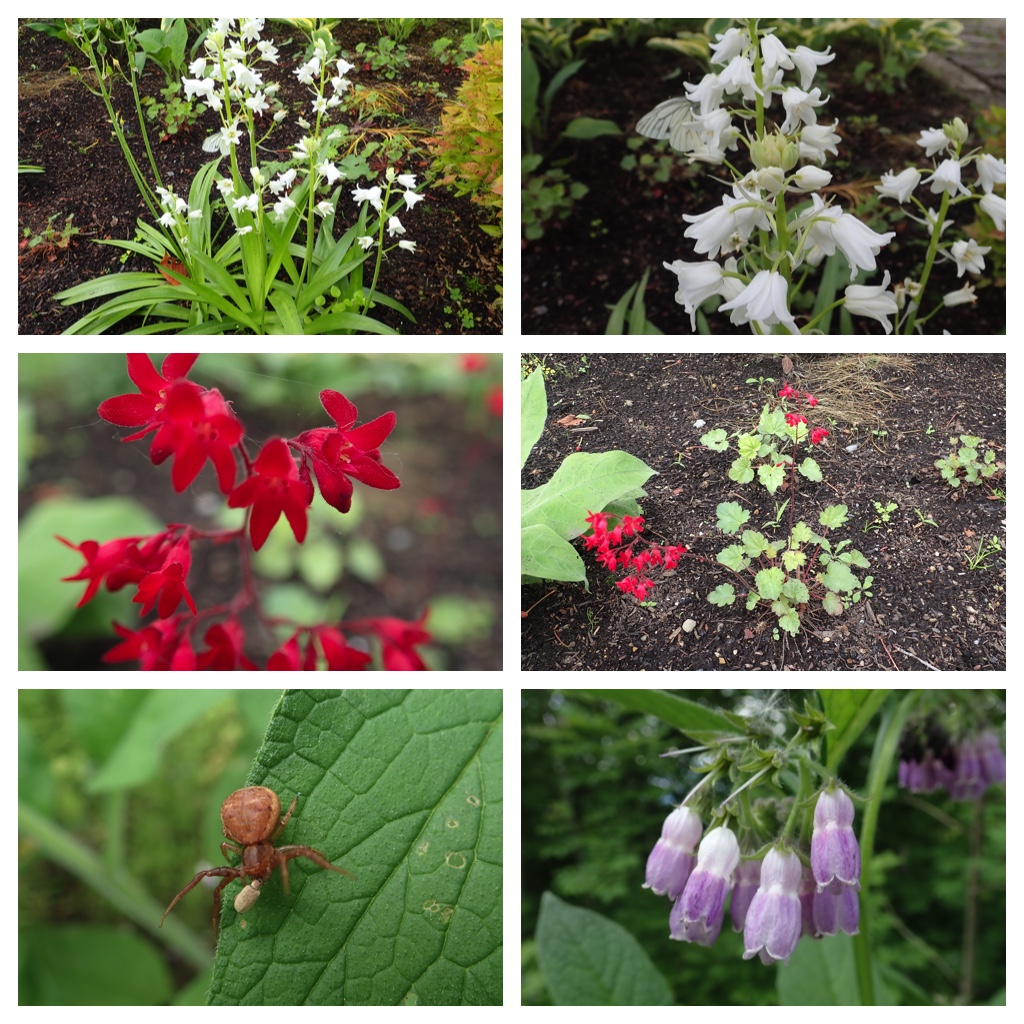
Evening glow through the field of OUAVM.
畜大圃場からの夕焼け(6月28日)。
After the dinner I had a walk along the fields of Obihiro Agricultural High School and OUAVM. I could just see the beautiful evening glow along the field of OUAVM.
6月28日の夕食後、帯広農業高校と畜大の圃場沿いに散歩をしました。ちょうど畜大の圃場沿いを歩いているときに美しい夕焼けを見ることができました。
この景色を見ていたら、「帯広地方の子守唄」を思い出しました。
「ねんねのねたまに、なにせよいの。
あずきもちのとちもちや、
あかいやまにもっていけば、あかいとりがつつく。
あおいやまへもっていけば、あおいとりがつつく。
しろいやまへもっていけば、しろいとりがつつくよ。」
While I was watching this scenery, I reminded myself of a nursery song.
While my baby is sleeping, what can I do?
Adzuki bean cake and horse chestnut cake.
Bring it to red mountains, then red bird will pick it.
Bring it to blue mountains, then blue bird will pick it.
Bring it to white mountains, then white bird will pick it.
——- A nursery song in Obihiro district.
——------------------------ translated by myself.
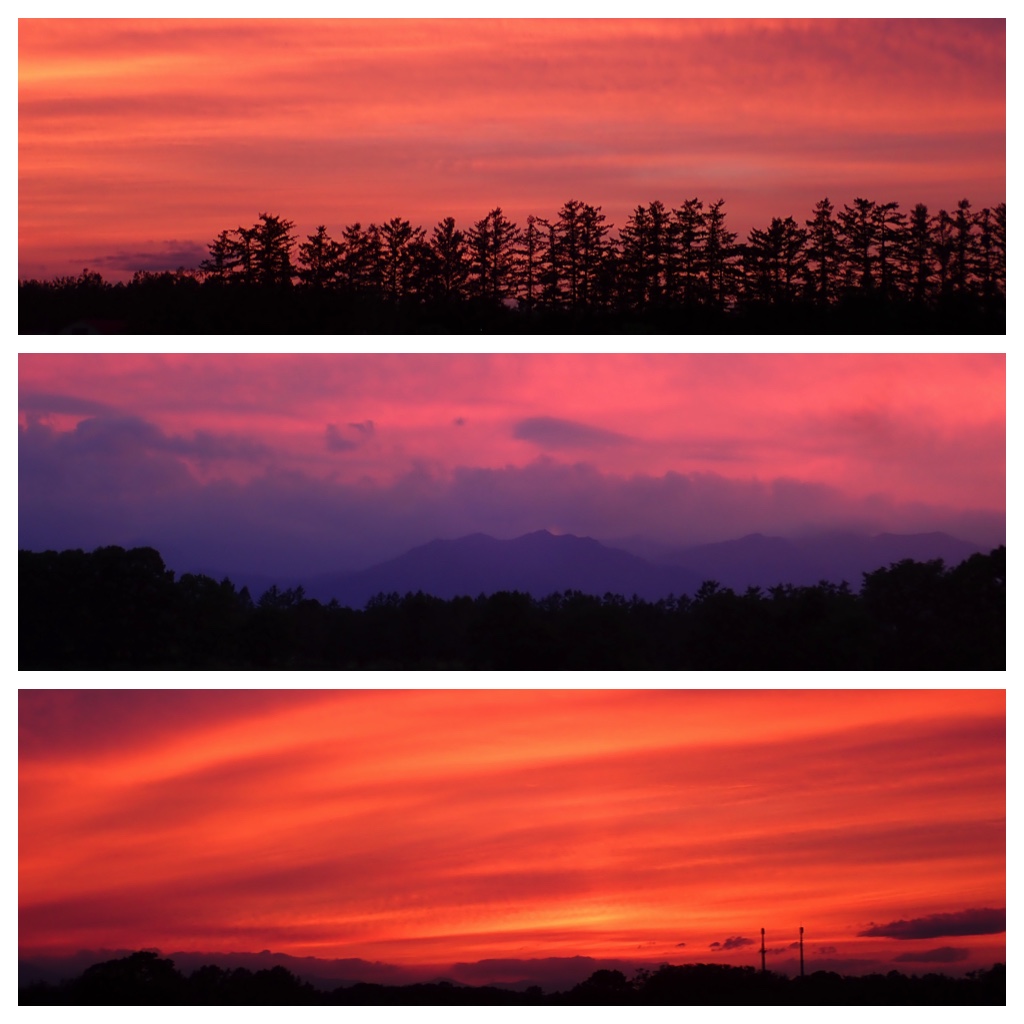
Visit to the Manabe Garden on the opening day of Shinshoukaku.
真鍋庭園の訪問・真正閣の公開日(6月29日)。
While it rained intermittently, I walked to the Manabe garden. From June 29 for 3 days, Shinshoukaku and its surrounding Japanese garden is open to public visitors. Shinshokaku is a very old precious building built more than 100 years ago to accept the members of Japanese imperial family from time to time and it is closed to normal visitors usually. Beautiful natural grasses and trees were arranged in the Japanese garden. Rhododendron was also blooming in the garden. It is a variety original to Hokkaido, “Erimo Shakunage”, which is different from those bloomed in last month.
雨が降ったり止んだりのなか、真鍋庭園まで散歩に行ってきました。6月29日から3日間普段は入ることができない真正閣とその周辺の日本庭園が公開されていました。子供たちが小学生の頃にも一度公開日にあたって中に入ったことがありましたが、25年ぶりくらいになります。今日は子連れでないのでじっくりと見られて良かったです。シャクナゲもたくさん咲いていました。たぶんシャクナゲにもいろいろな品種があるのでしょう。今咲いている品種はエリモシャクナゲのようです。
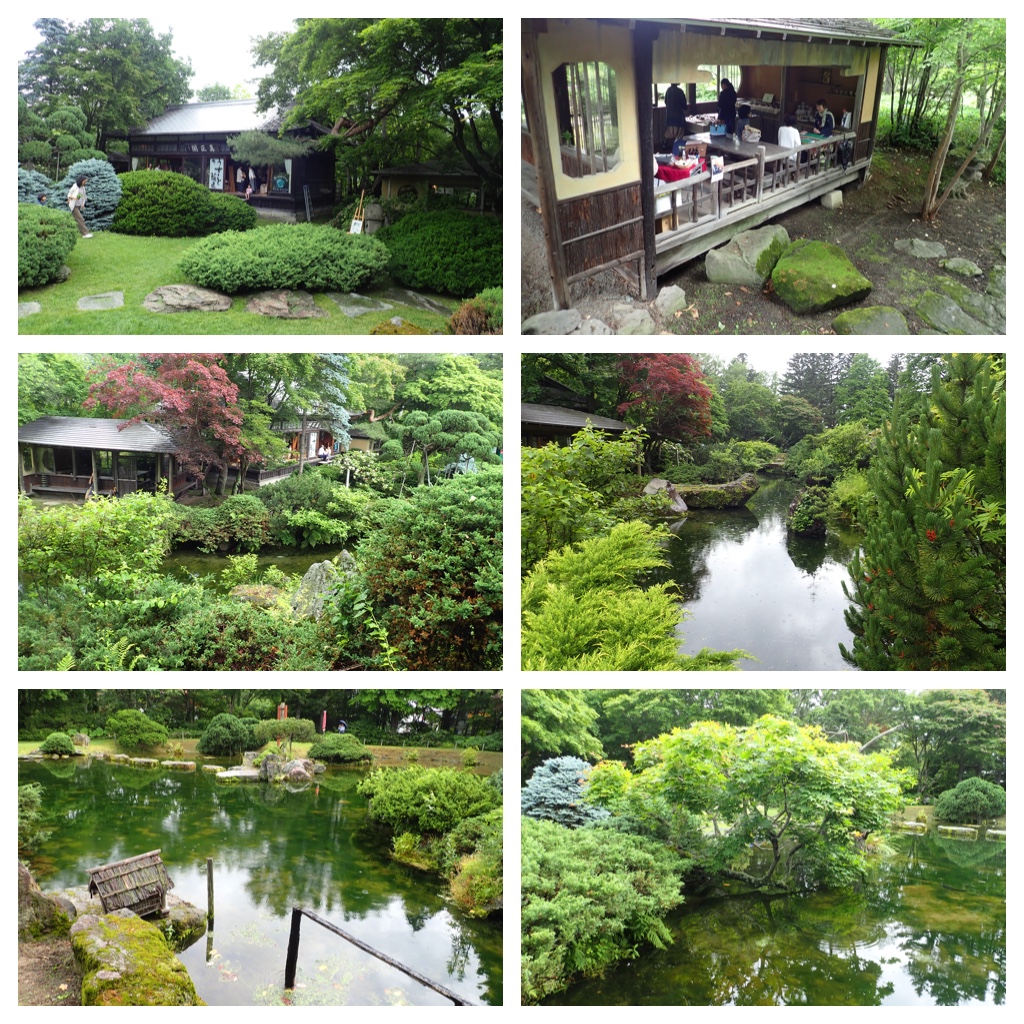
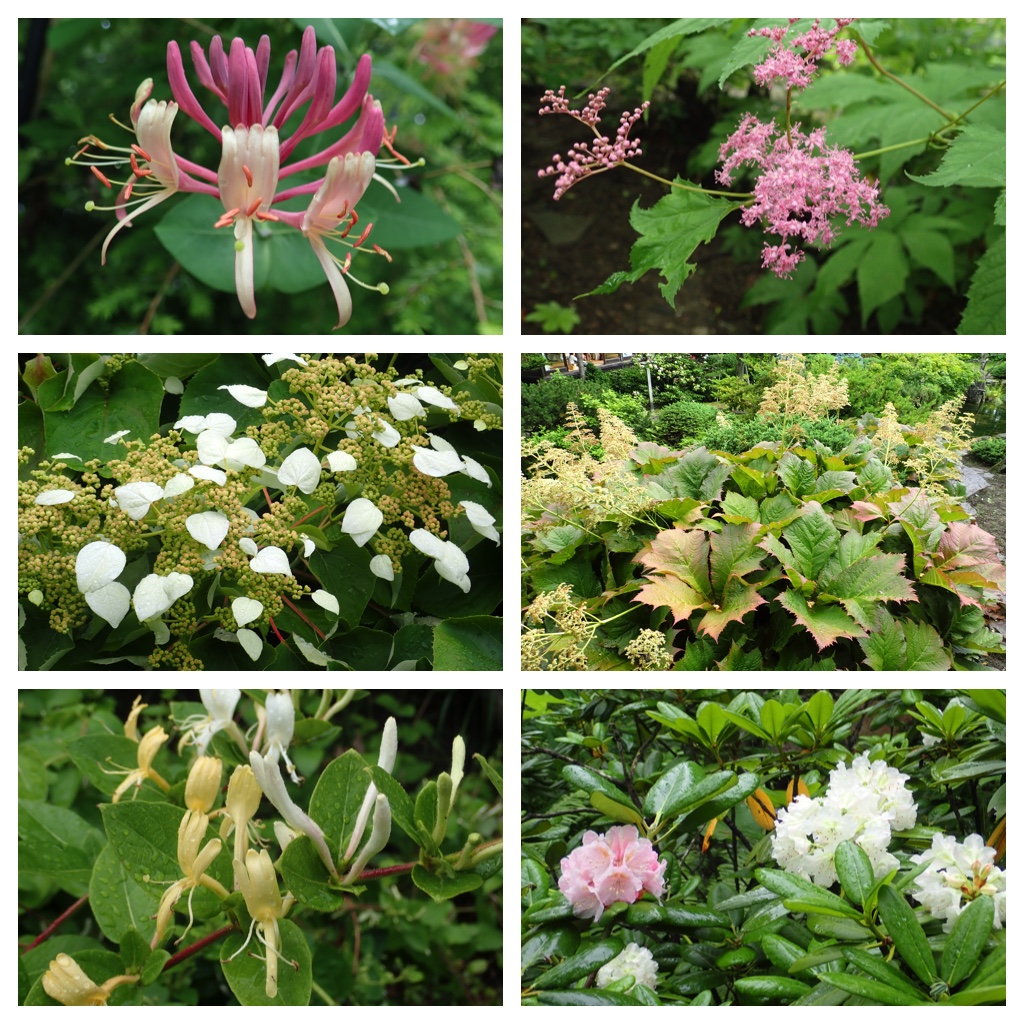
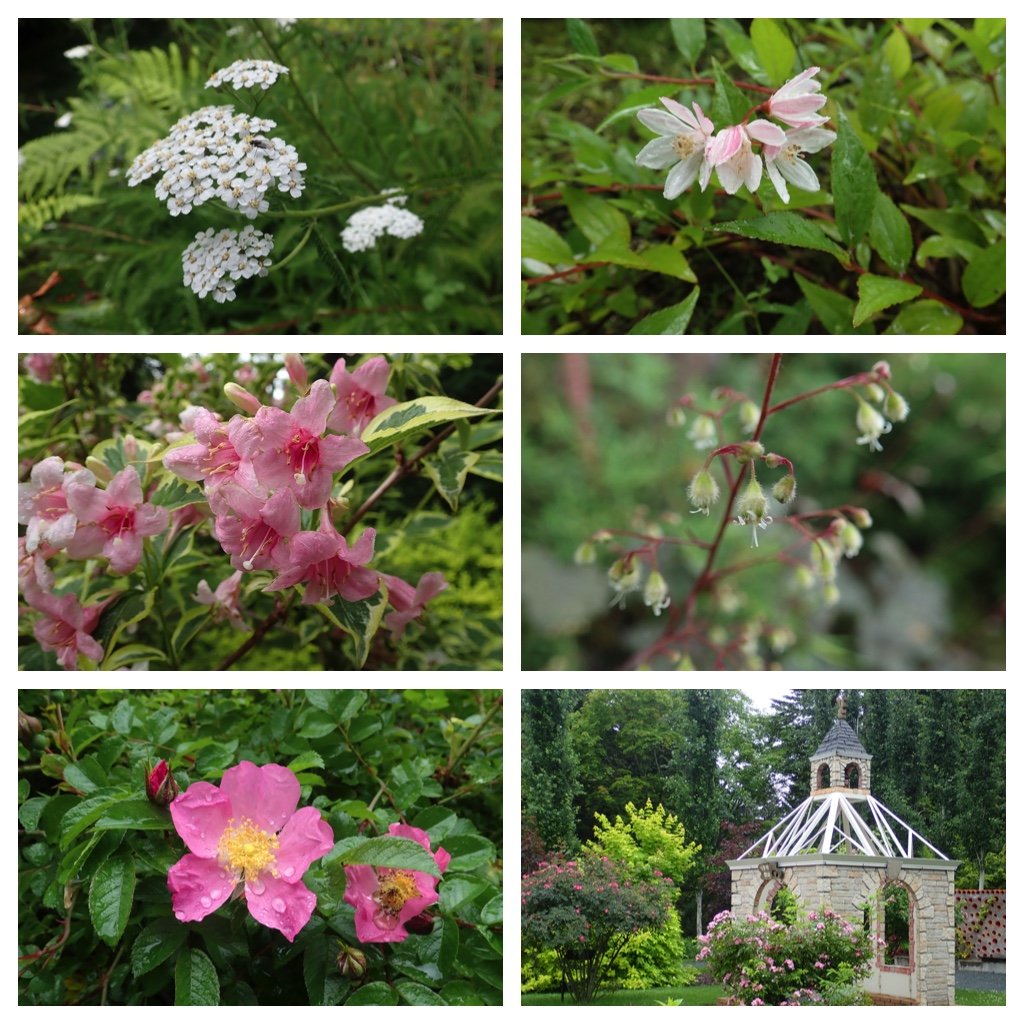
Visit to the Forest of Obihiro and Mori-no-yama.
帯広の森ともりの山の散策(6月30日)。
I visited the "Forest of Obihiro" near "Haguku-mu", a facility of Obihiro city for outdoor education, where I walked around in winter and early spring wearing snow shoes. A large community of Pyrola asrifolia was found in the forest. Its flowering season has almost finished. I should have visited here earlier. I went further to "Morinoyama", a nice observatory site in the forest of Obihiro.
今日の午後は帯広の森の「ハグクーム」付近と「もりの山」に行ってきました。自転車をハグクームにおいて、冬の間にスノーシューで歩いた森の中を再び歩いてみました。ベニバナイチヤクソウの大きな群落が2ヶ所ほどありました。花もそろそろ終わりなので、もっと早く見に来ておけばよかったなと思いました。
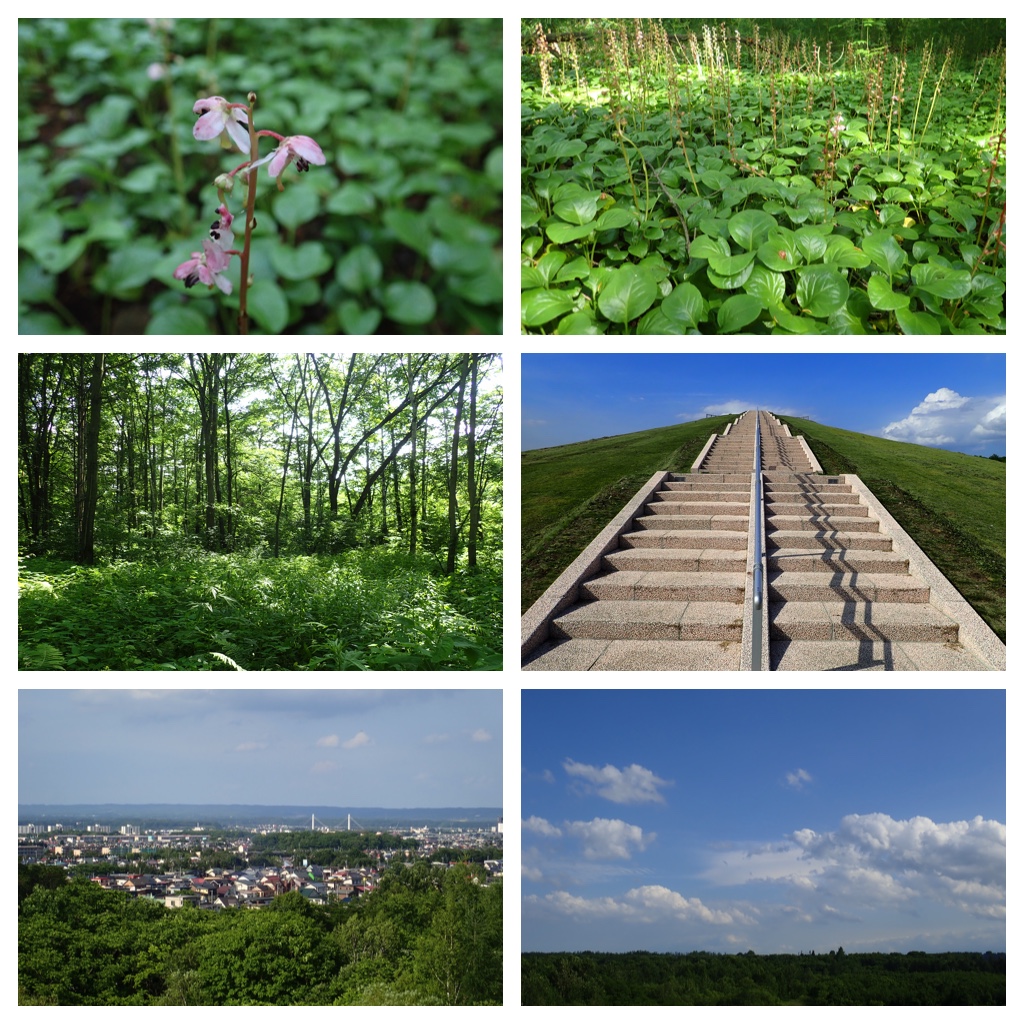
First weekend in July and the rainy Sunday.
7月最初の週末と雨の日曜日(7月1日)。
The get-together party of our neighborhood association has been cancelled due to the heavy rain. We shared the food prepared for the party and distributed to the members who were expected to join the party. Photos shown here were taken in my garden. Flowers look beautiful on rainy days.
今日は町内会懇親会が予定されていましたが雨のため中止になりました。役員さんと班長さんで用意した食べ物を分けあい、参加予定だった町内会員に配布しました。私も数軒分お手伝いしました。ここに示した写真は私の庭の草花です。雨の日は花が綺麗に見えます。
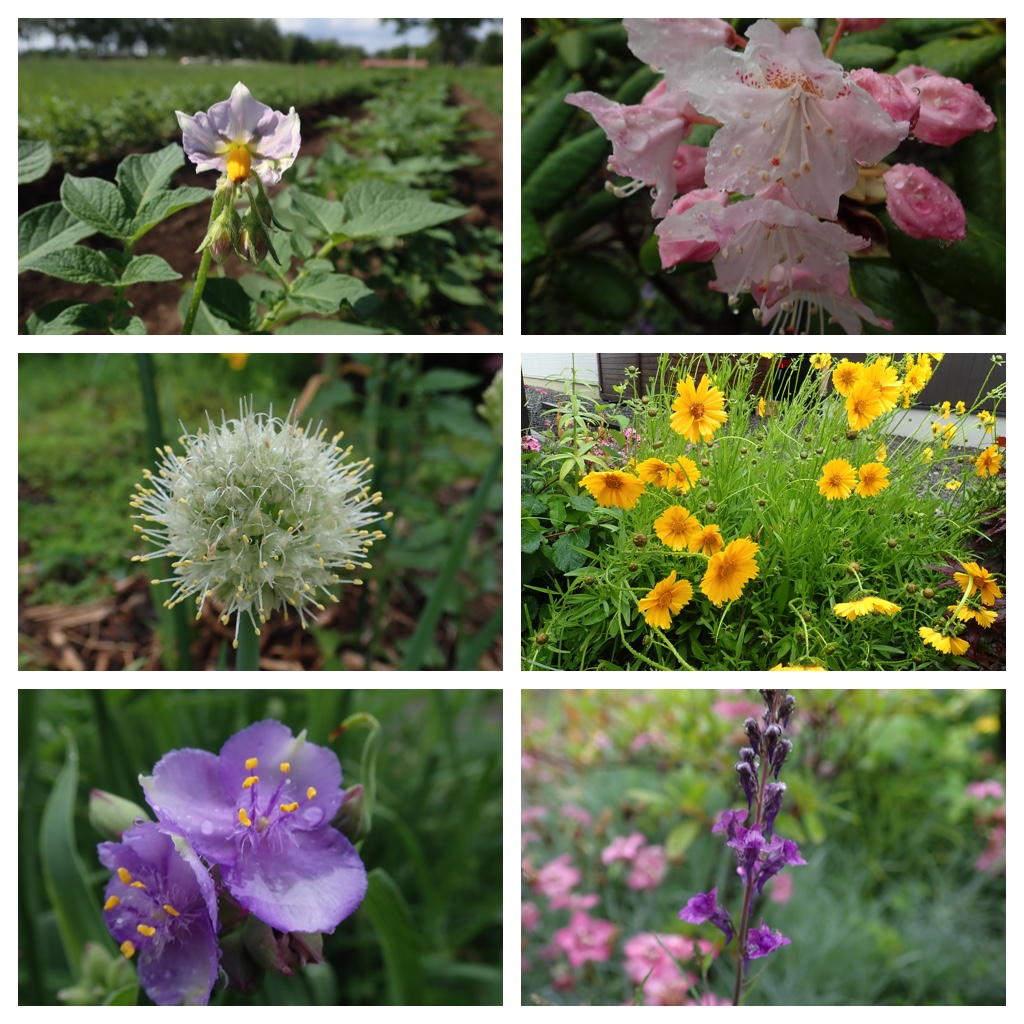
Flowers in rainy season.
雨の中の花(7月5日)。
Since last Sunday, it is continuously raining every day, as if whole Japan will be floated away somewhere. Between the rains, there are also intervals when I can go out for walking. I show here flowers in my garden, in the crop fields, and in the road side.
先週の日曜日以来ずっと雨が降り続いています。日本中どこかに流されていきそうな感じです。でも雨の合間には時々晴れ間があり、私は散歩に出かけています。ここではわが家の庭、大学の畑、散歩の途中の道端で見た草花を載せました。
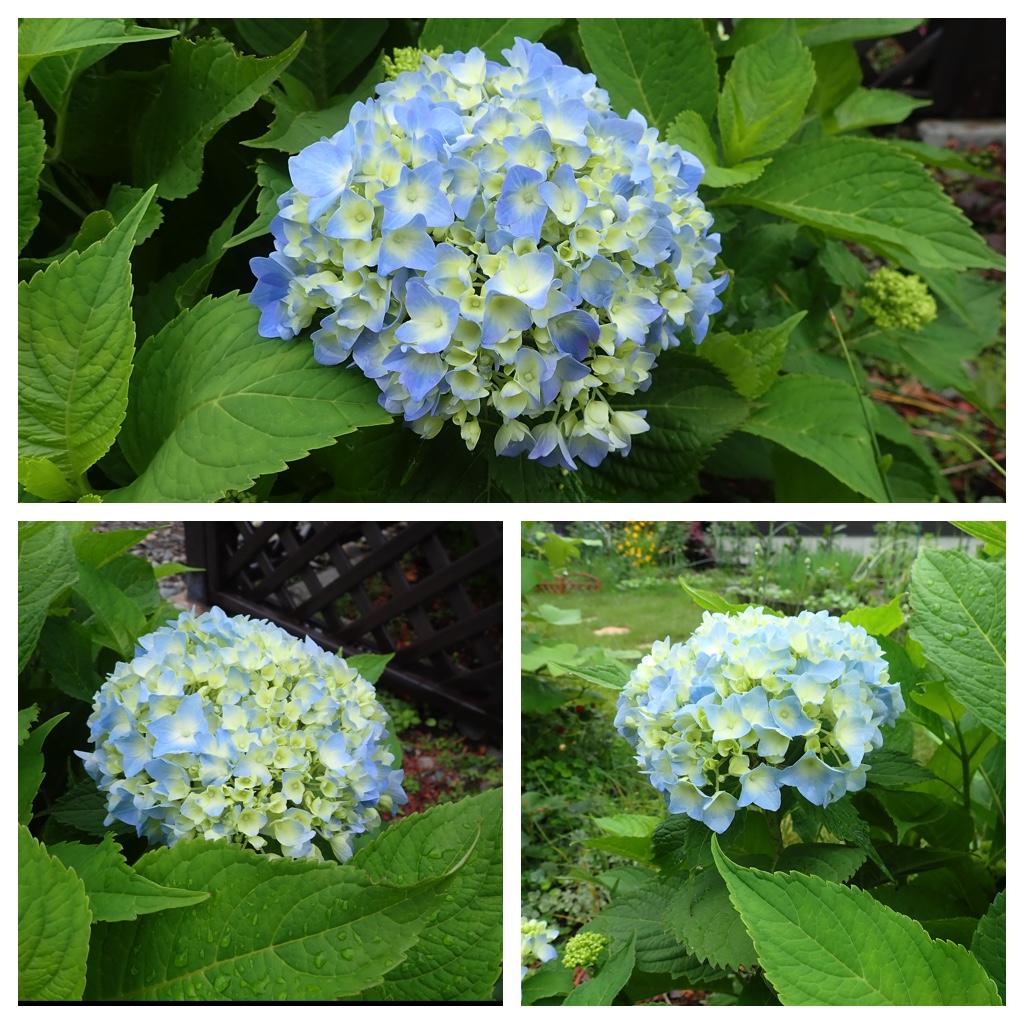
Hydrangea in my garden.
庭の紫陽花
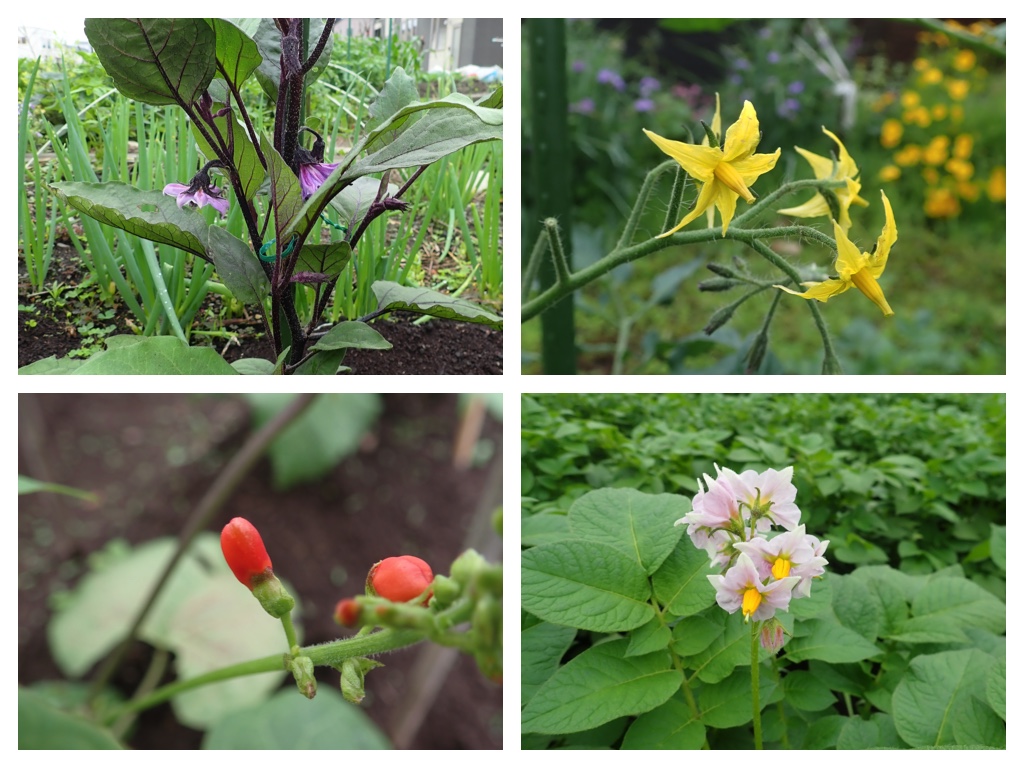
Egg plant, mini-tomato, kidney bean "Hana-mame", and potato "Kita-akari".
ナス、ミニトマト、花豆、キタアカリの花。
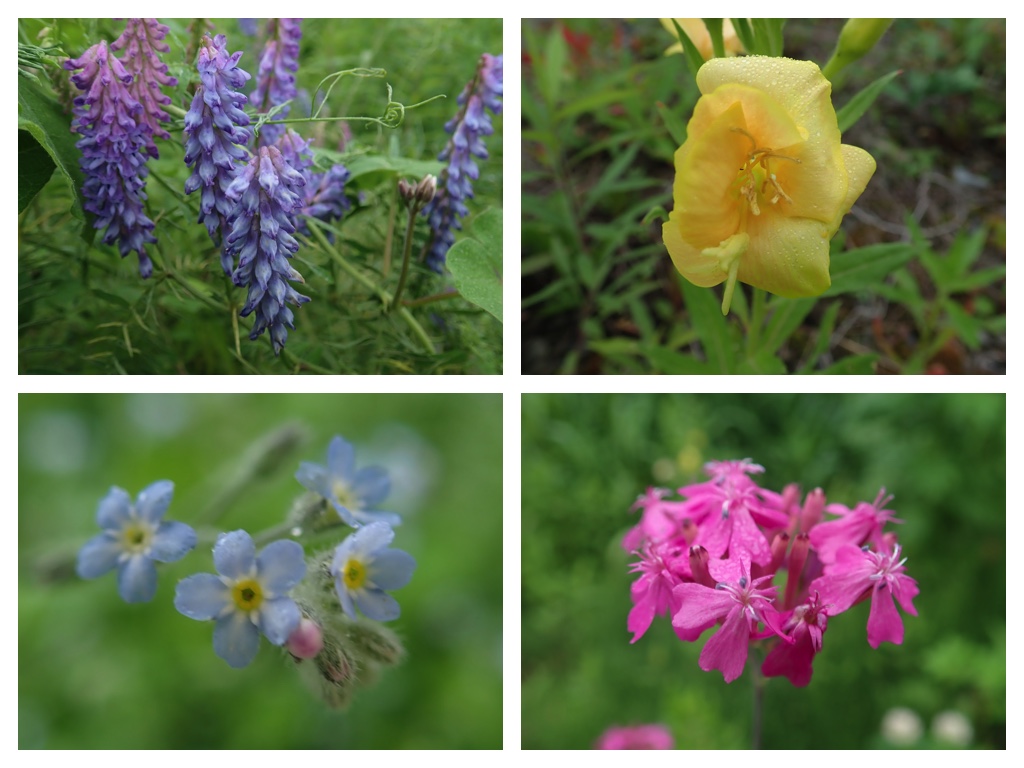
クサフジ、メマツヨイグサ、ノハラムラサキ、ムシトリナデシコ
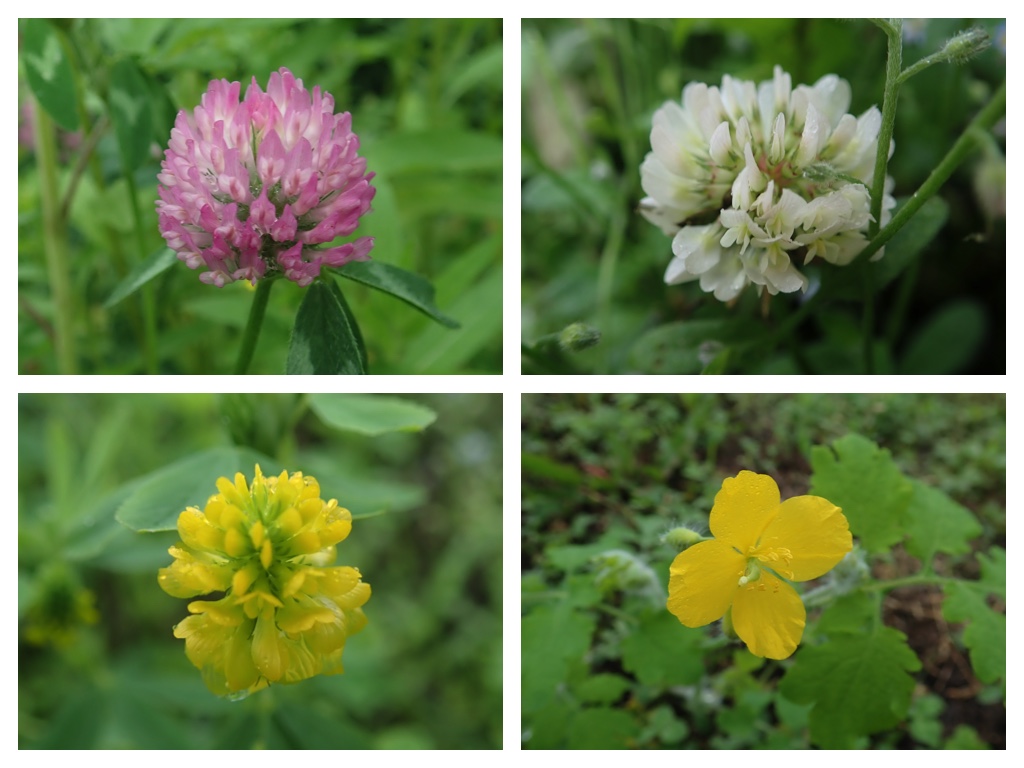
ムラサキツメクサ、シロツメクサ、テマリツメクサ、クサノオウ
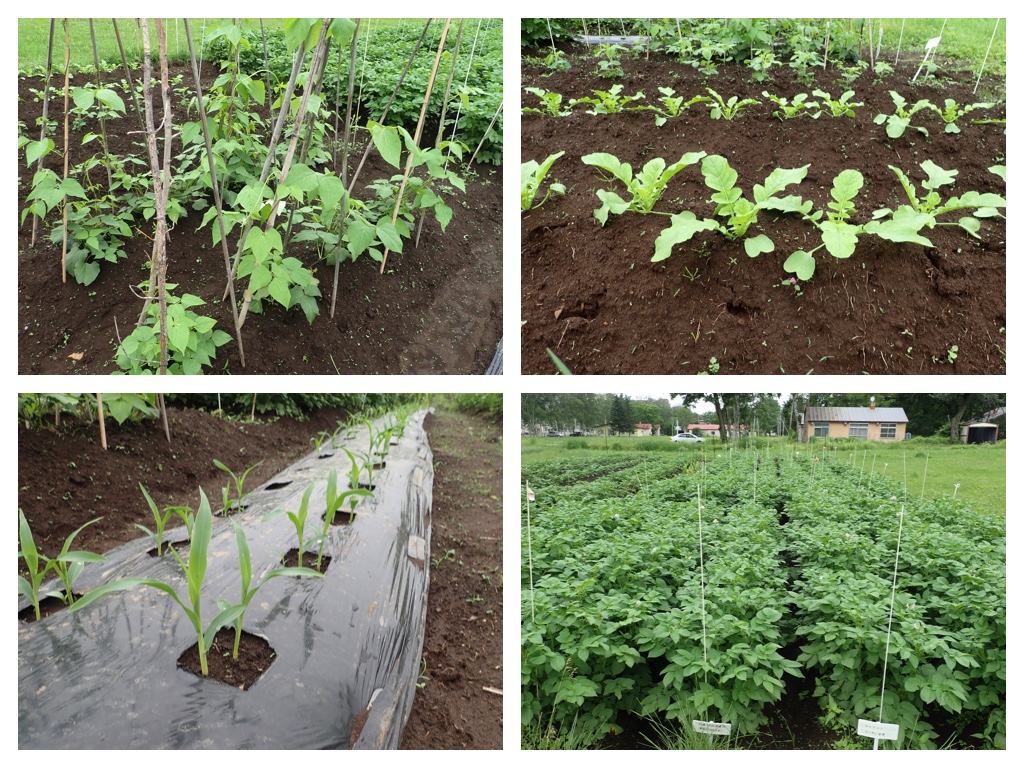
Kidney bean "Hana-mame", Japanese white radish, Sweet corn, Potato.
花豆、大根、スイートコーン、ジャガイモ キタアカリ
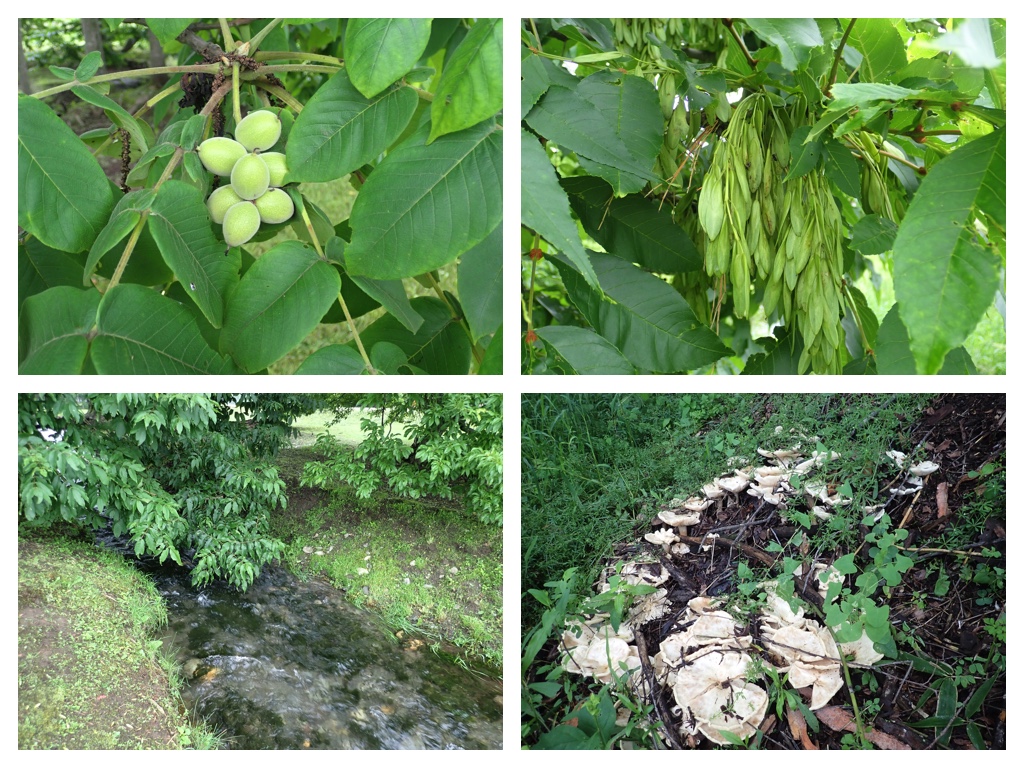
Walnut, Swamp ash, the flow of Kikanko river, mushrooms beneath an elm tree.
オニグルミ、ヤチダモ、機関庫川の流れ、ハルニレの木の下に生えたキノコ
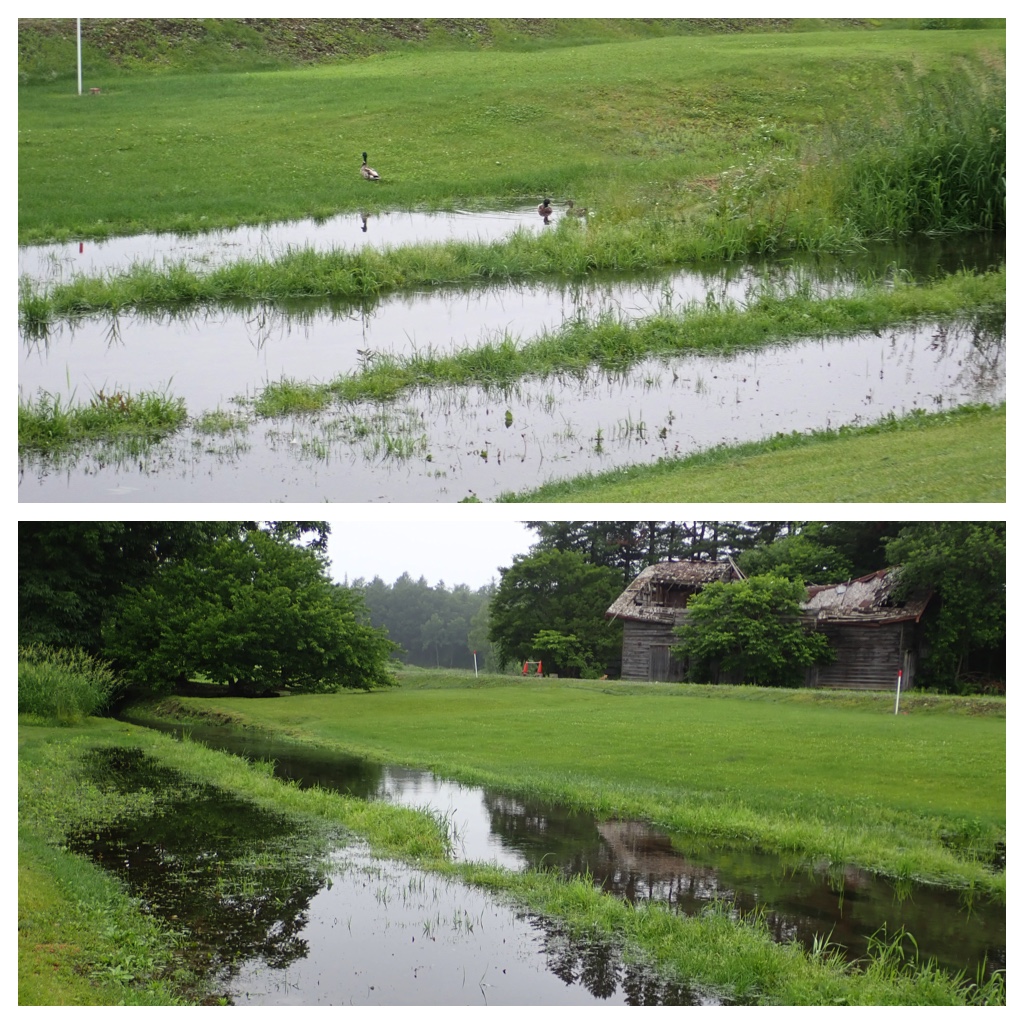
Kikanko river with over-flowing water and wild ducks.
増水した機関庫川とカモ。
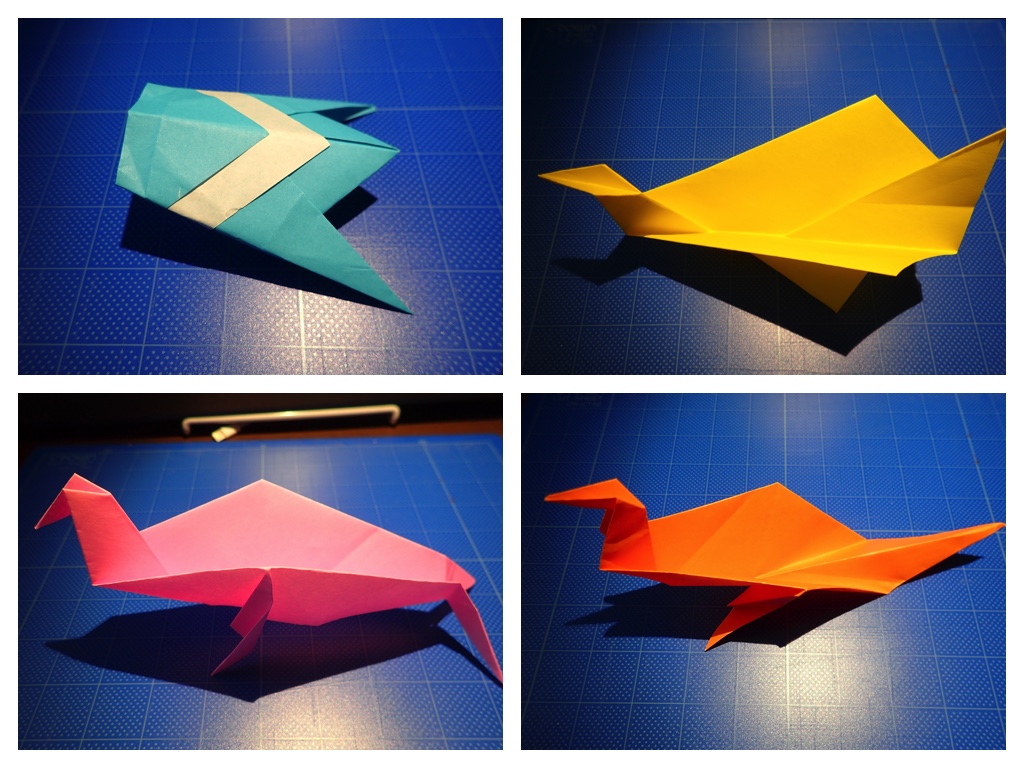
Paper folding works, "Origami", a communication tool with my grandchildren on rainy days.
孫と遊ぶ折り紙。
Season of hydrangea in the Manabe garden.
真鍋庭園は紫陽花の季節(7月6日)。
Last Friday was a special day of Manabe garden when the Shinseikaku was opened to public visitors. Today was a normal day again and the Shinseikaku was closed. However, it was a special day again in another sense. Due to the continuous heavy rain for one week, the water level in the ponds in the garden has raised extremely, and the walking path was submerged below water in two places near the two water falls in the garden. Therefore, I had to walk on the bypass in the garden. Anyway, it was no problem for me, because there were still many nice plants and scenes to see in the garden.
Even in one week, new flowers have started to bloom. Now, the season of hydrangea is beginning. On the return way, I noticed the wild mulberry tree with small fruits colored red and black.
アジサイの季節。今日はやっと雨が止んだので、真鍋庭園まで散歩に行ってきました。1週間ぶりですが、今日はアジサイの仲間がいろいろたくさん開花していました。帰り道ではヤマグワの木と実を見ました。名古屋で見た桑の木と似た実をつけていましたが、葉の形は違っていました。1週間以上降り続いた雨のため、園内の池は増水して、散策路も2つの滝の近くで水没していました。そのため歩く距離は短くなりましたが、草花や景色は十分楽しめました。
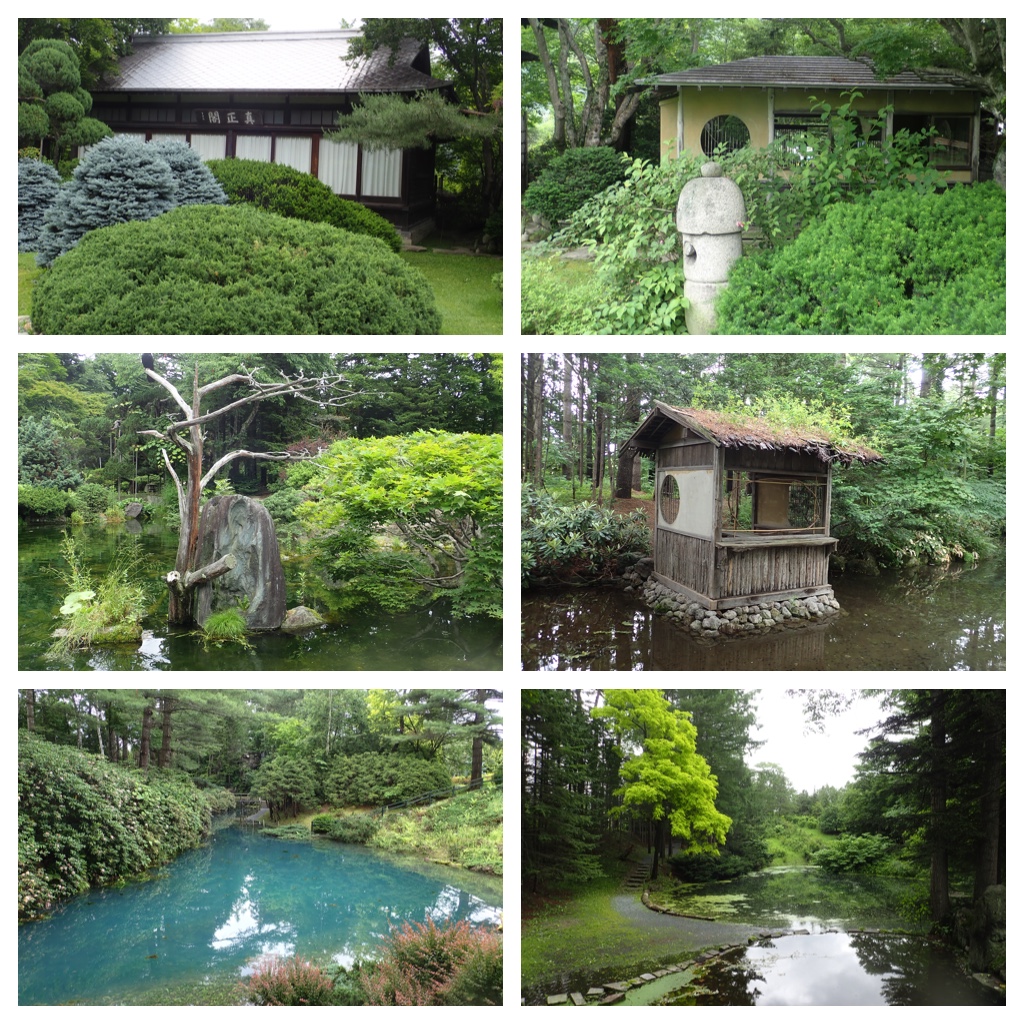
Manabe garden between the long rain.
Fifth photo: There is a high water fall beyond this pond, but we could not approach the water fall today due to the rise in water level of the pond.
Sixth photo: There is a wide water fall between the higher pond and lower pond. The path below the wide water fall was also submerged and not accessible.
雨間の真鍋庭園
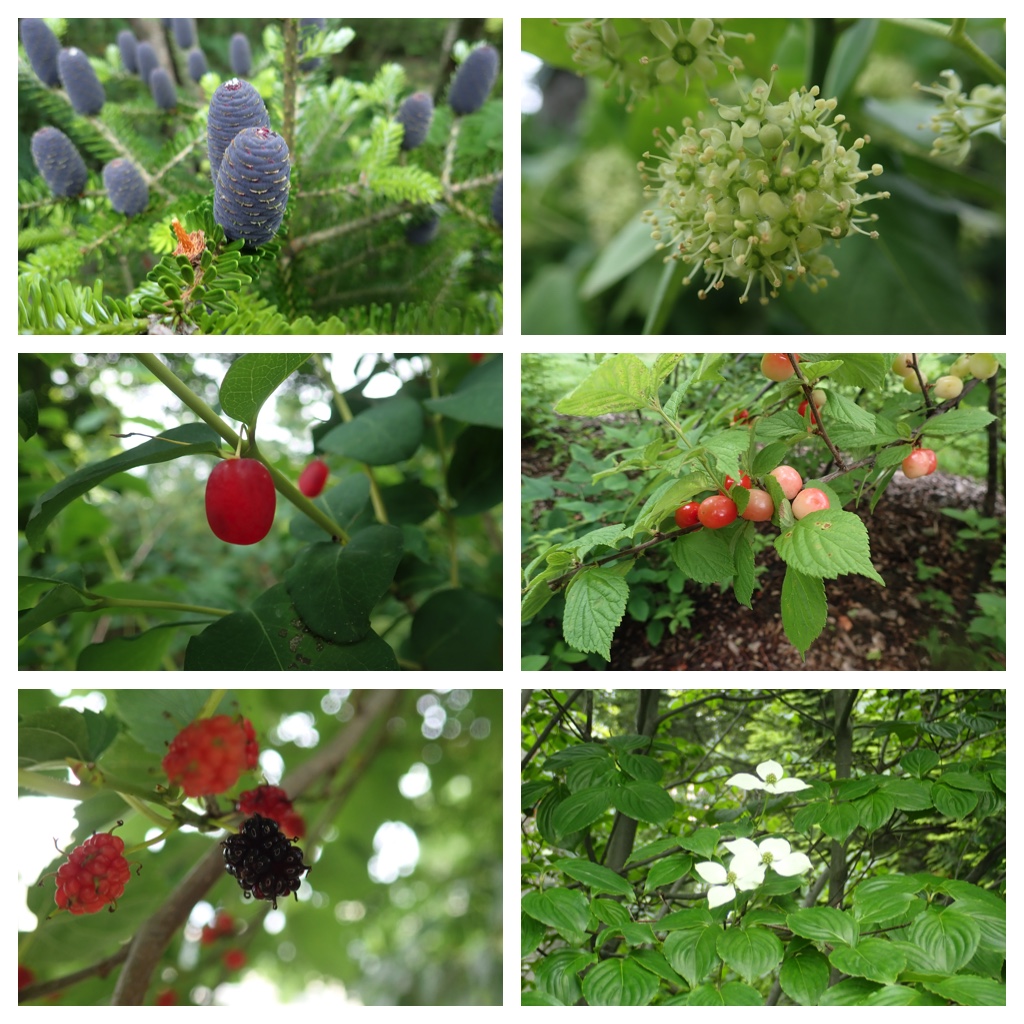
Korean fir, English names are unknown for the plants in middle rows, wild mulberry, Kousa Dogwood (Japanese Flowering Dogwood).
チョウセンシラベ、ツルマサキ、中段不明、ヤマグワ、ヤマボウシ。
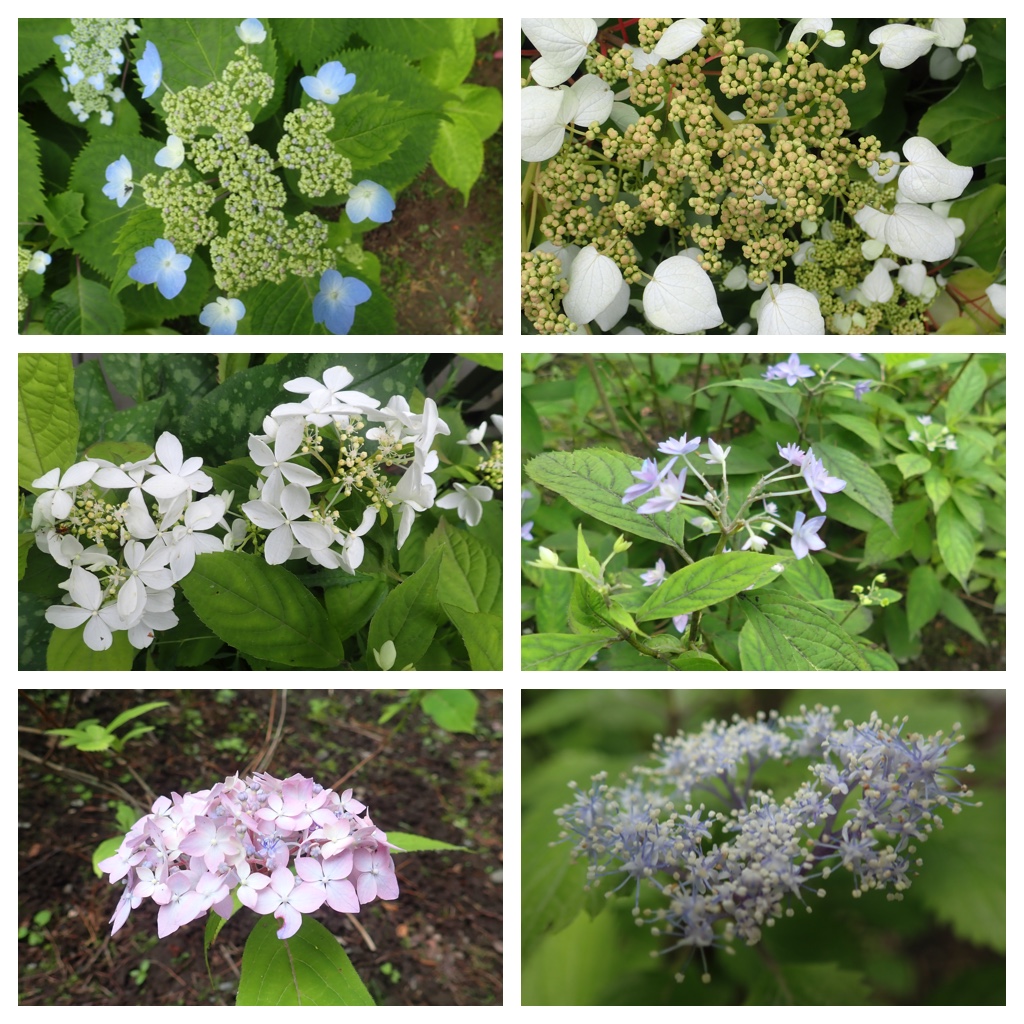
Hydrangea in the Manabe garden.
真鍋庭園の紫陽花、エゾアジサイ、イワガラミ、他。
Mushrooms which have mistaken the season.
季節を間違えたキノコ(7月8日)。
Mushrooms and wild flowers along the walk way. These mushrooms might have mistaken the season, due to the long lasting rainy days and cold temperature. Leaves of maples and mountain ash have also partially turned red and yellow like in autumn. Along the walking way, I found a yellow colored small flower which I saw for the first time. Pasture plant like alfalfa is also mixed in the wild grasses. Plants which I am growing in pails have also started to grow big.
散歩の途中の道沿いのあちこちでキノコが出ているのをみつけました。最近の雨がちの天気と低温のため、秋と勘違いして生えてきたのではないかと思いました。散歩の途中、黄色い小さな花をみつけました。初めて見る花でしたが、まだ名前はわかりません。牧草のアルファルファが雑草に混じって咲いていました。他のイネ科の牧草も雑草に混じっています。私がバケツで育てている作物、雲南百薬、ジャガイモのキタアカリ、小ネギもやっと大きくなり始めました。
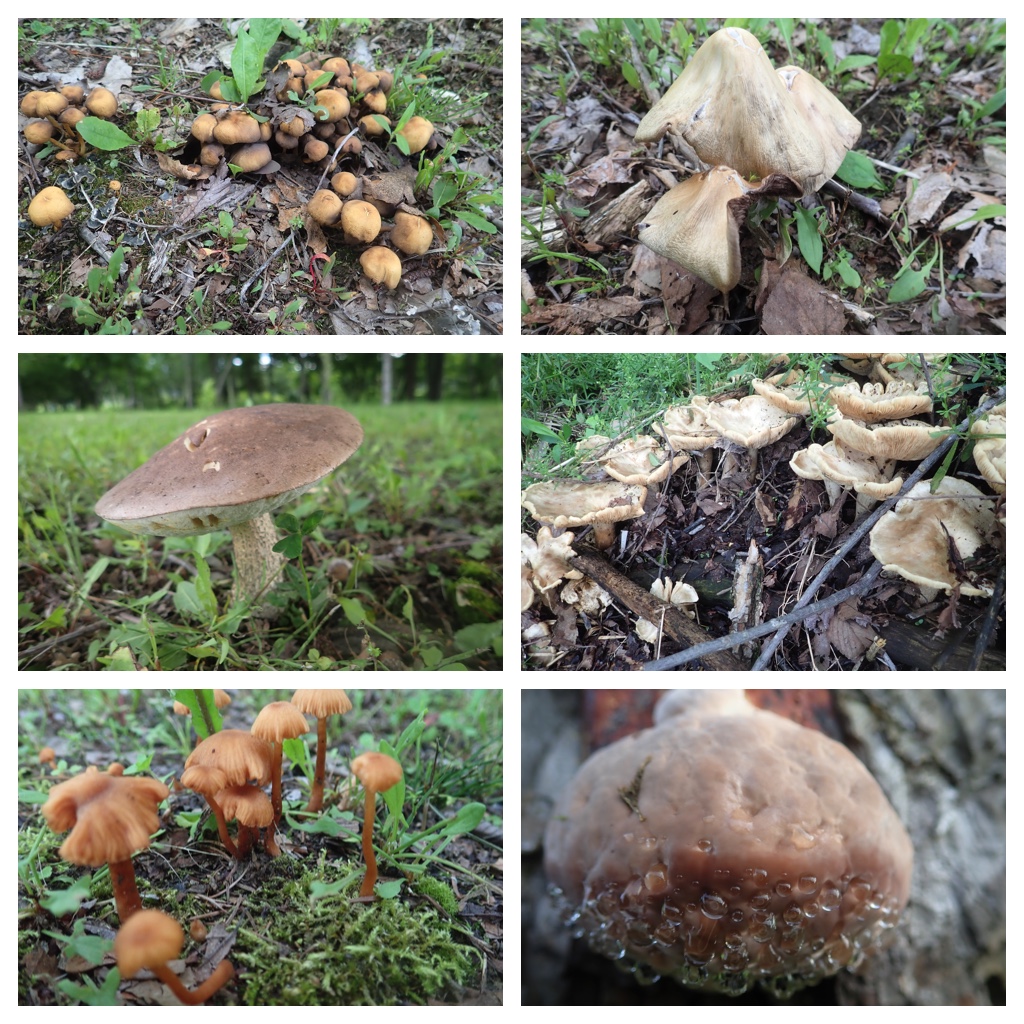
Mushrooms and wild flowers along the walk way.
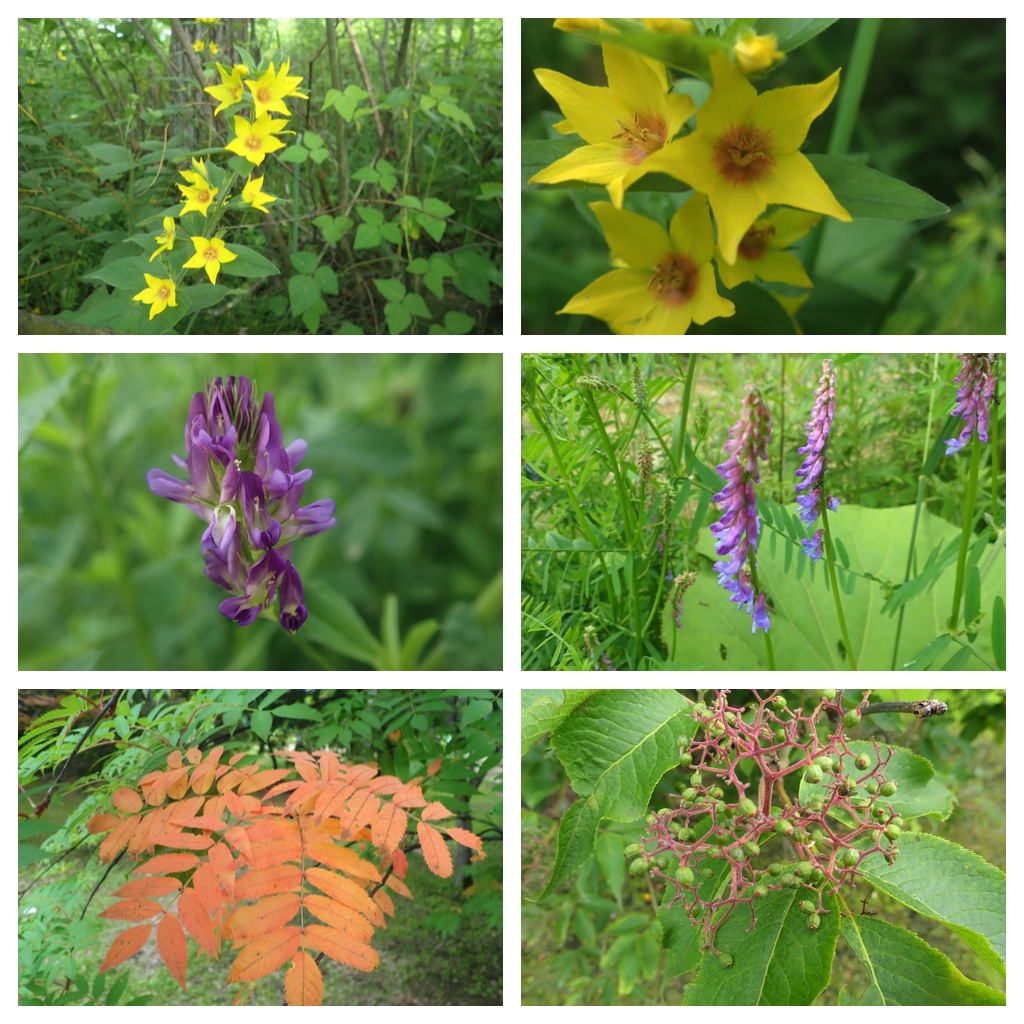
Wild grasses and trees along the walk way.
上段:名前不明の黄色い花、中段:アルファルファとクサフジ、下段:一部紅葉したナナカマドの葉とエゾニワトコの実。
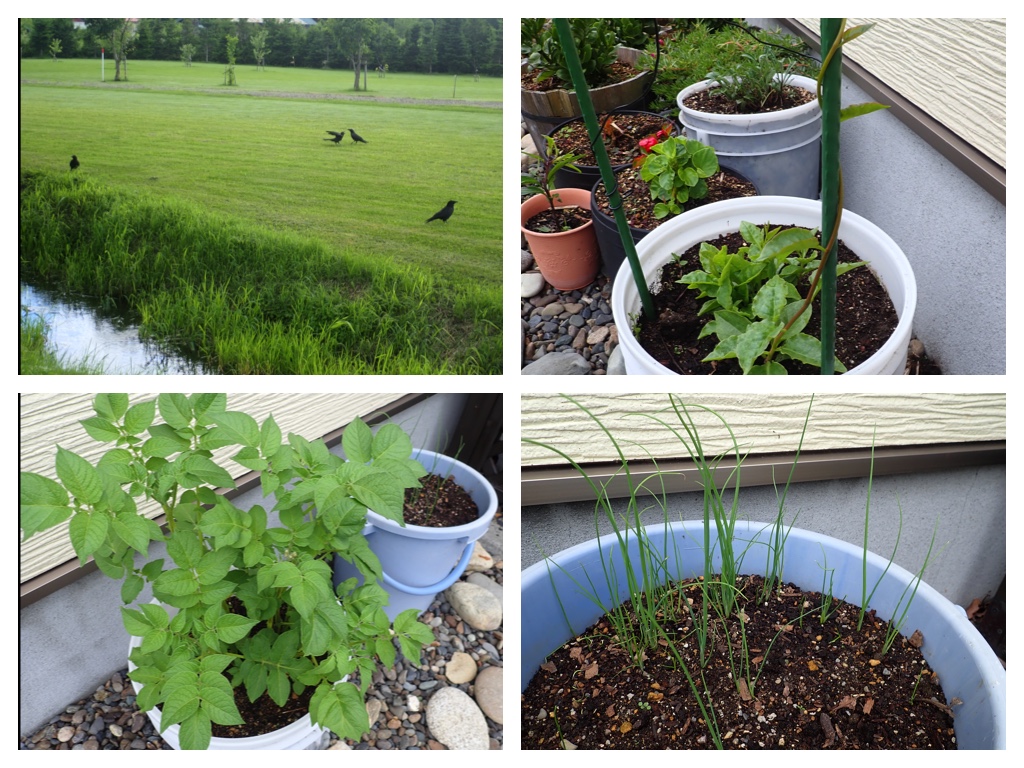
Crows in the river bank of the Kikanko river. 機関庫川の河原で遊ぶカラス。
Plants which I am growing in pails. バケツで育てている作物、雲南百薬、ジャガイモのキタアカリ、小ネギ。
Flower arrangements with raw and dried flowers from the garden.
庭の花で作った生け花とドライフラワー(7月9日)。
As it is raining almost everyday in these days, my wife said,“It is a pity of the flowers in our garden that they are wet and nobody admires them", and she brought some of them and put them in a vase in our living room. Dried flowers have been also made and arranged.
雨続きで花がかわいそうと、妻が庭から切り取ってきて室内に飾りました。ドライフラワーは庭の花や頂いた花束などから折々に妻が作ってきたものです。最近作った花は芍薬です。
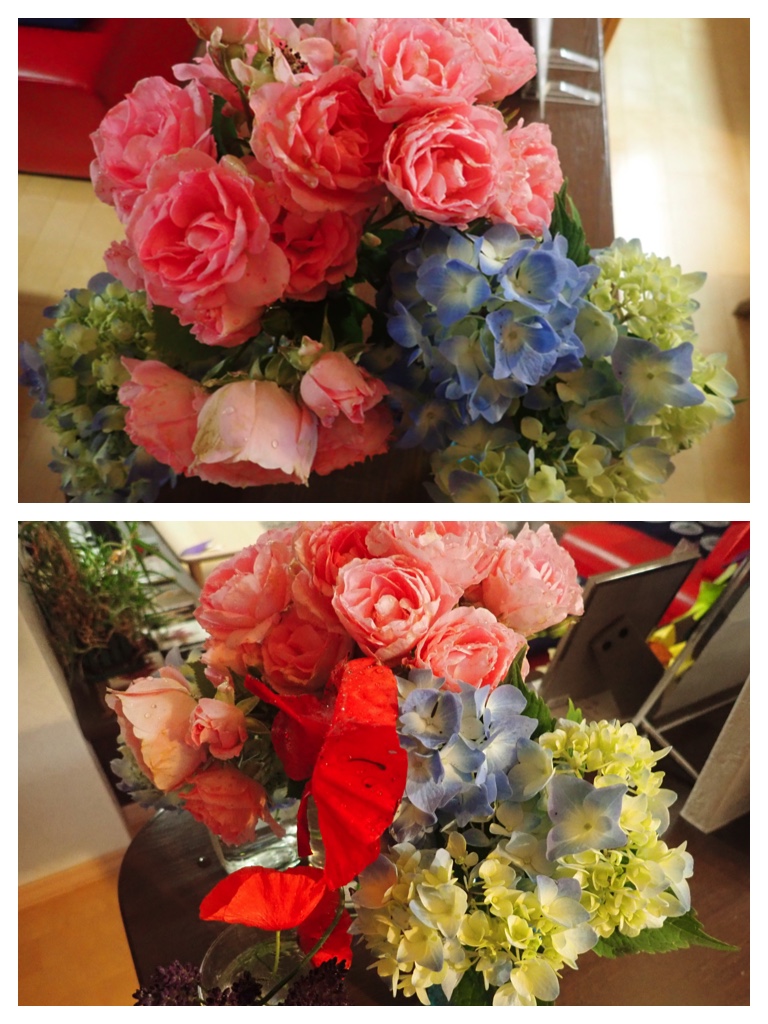
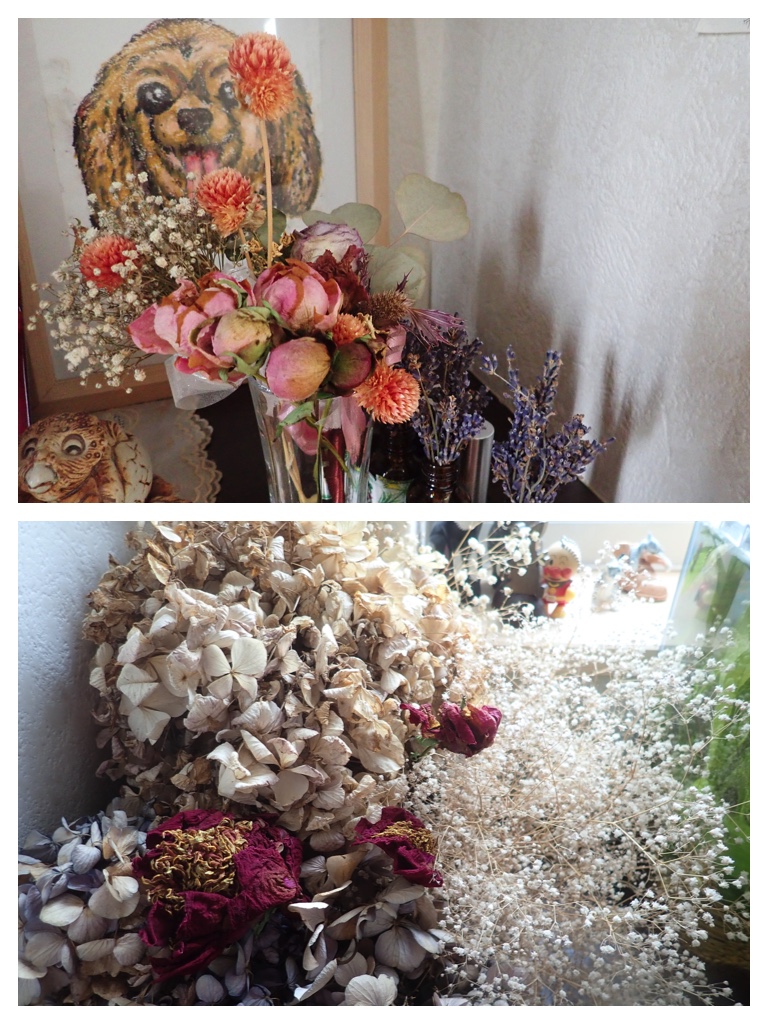
Season of potato flowers.
ジャガイモの花の季節(7月11日)。
The first and second weeks of July are the season of potato flowers. In most of farmer's fields, potato flowers are in full bloom now. In my experiment field, not yet. Flowering time depends on the growth stage. Therefore, if the potato grows faster, its flower blooms earlier. The colors of potato flower are also different among different varieties.
7月の第1週と第2週はちょうどジャガイモの花の季節です。ほとんどの農家さんの畑では満開になっています。私の実習圃場ではまだ満開になっておらず、また施肥条件によっても花のつき具合が違います。花が咲く時期はジャガイモの生育段階に依存しています。そのため、ジャガイモが早く生育すれば花も早く咲くわけです。ジャガイモの花の色は、ジャガイモの品種によって異なっています。
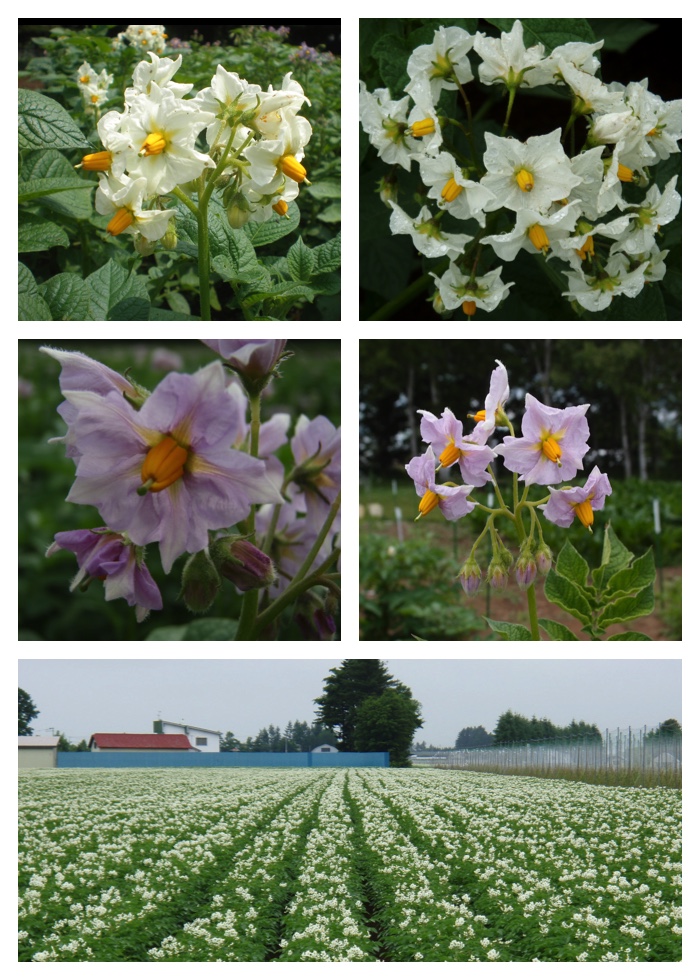
下の段のジャガイモ畑はトヨシロを栽培しています。 トヨシロの花は白です。
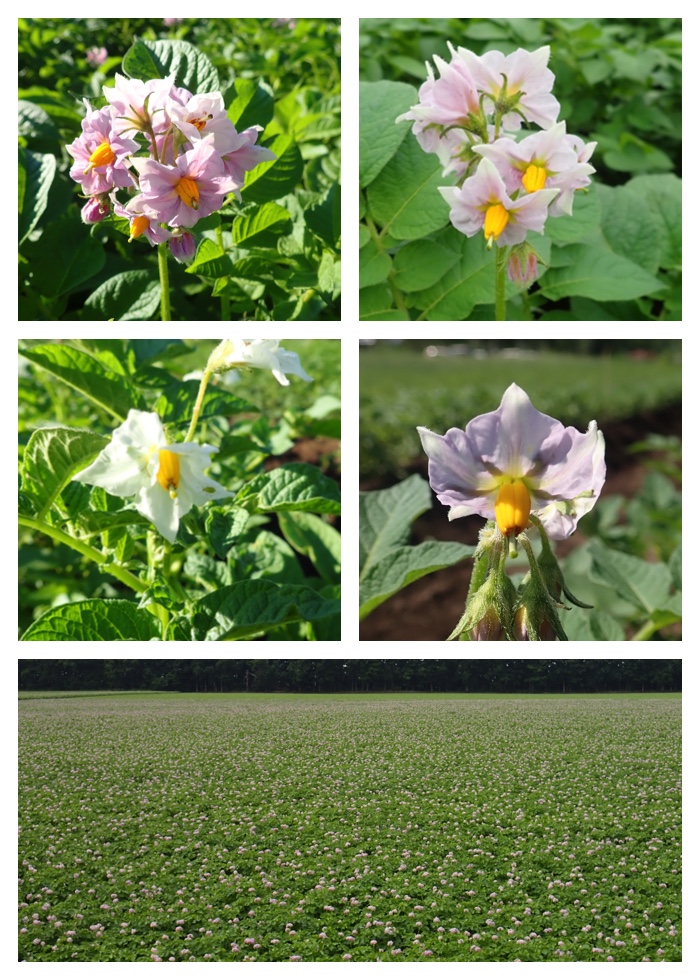
下の段のジャガイモ畑はメークイーンを栽培しています。メークイーンの花は紫がかっています。1番目の写真の中段にあります。上段の2つの写真は大学の実験圃場のキタアカリの花です。
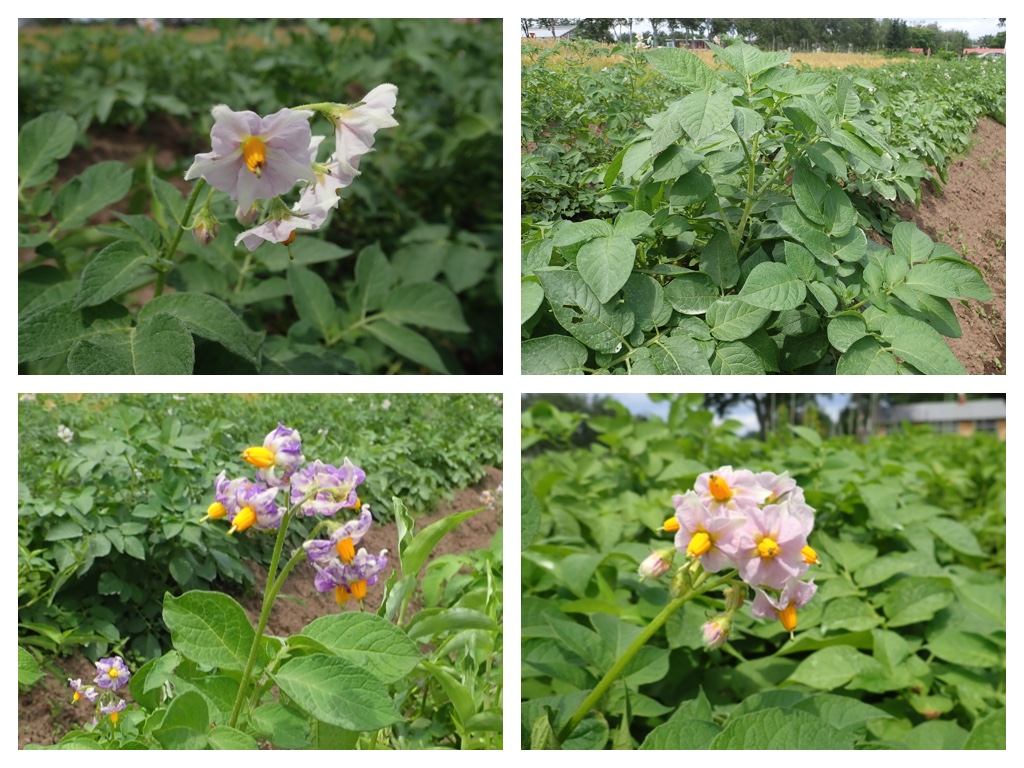
2018 年7月22日、別科圃場のコナフブキ、男爵、メークイーン、キタアカリです。男爵は花が咲いていませんでした。
Potato flowers in a farmer's field in Haobi town, Tokachi.
ジャガイモの花(7月14日 羽帯、十勝)。
On the way to the Millennium Forest of Tokachi, I saw a potato field with full bloom flowers in Haobi town. The growth of potato is delayed around 10 days due to the long lasting rainy days and low temperature.
十勝千年の森に向かう途中、羽帯で満開のジャガイモ畑を見ました。今年は長雨と低温のため、ジャガイモの生育が10日ほど遅れているような気がします。
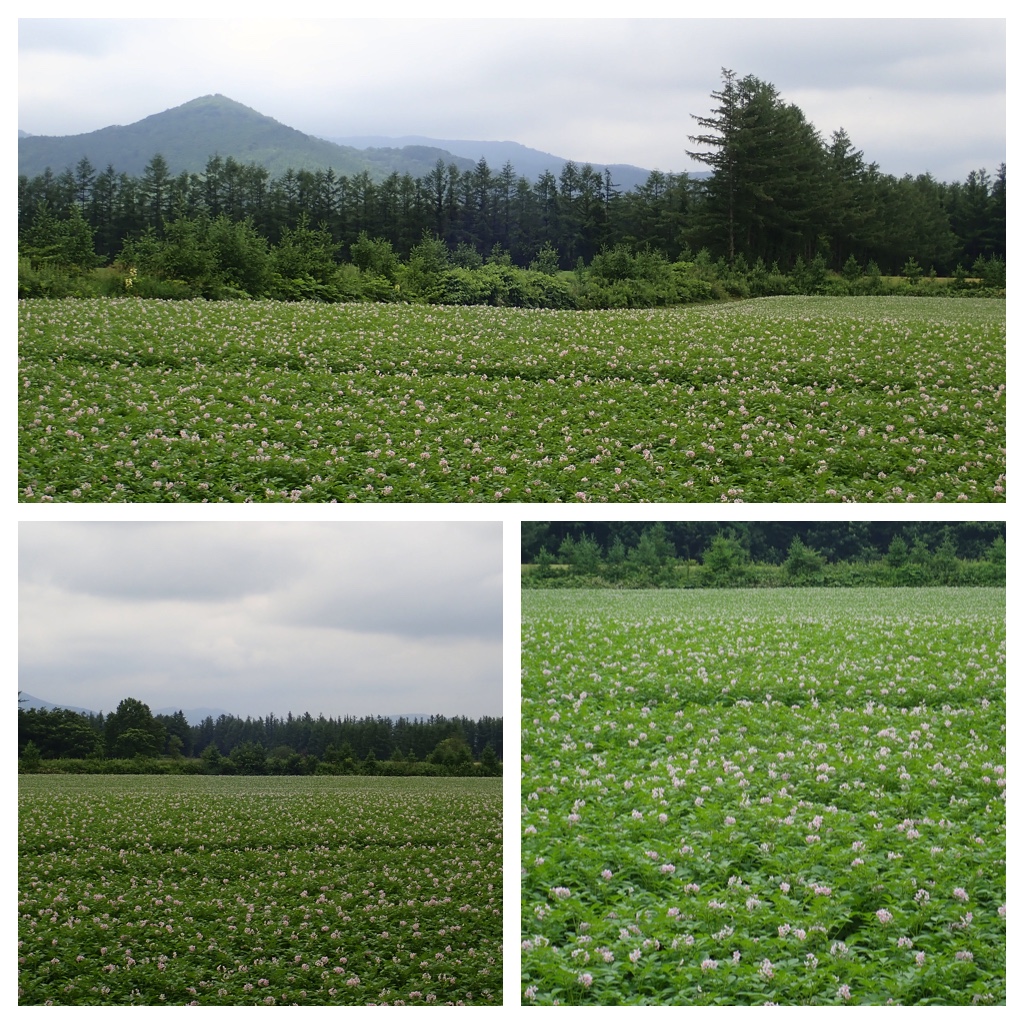
羽帯のジャガイモ畑。
Preparation of soil monolith.
土壌モノリスの作成
After fixing the surface of soil monolith with varnish, I trimmed it and pasted it on a plywood and attached the frames.
透明ニスで表面を固定したのち、土壌モノリスの両脇と下部をベニヤ板の大きさに合わせて切り落とし、ベニヤ板にボンドで貼り付けました。モノリスの周辺にはフレームを取り付けました。
この段階に至るまでの作業の様子は、以下の記事をご覧ください。
Soil Profile Survey Practice for the Junior Course 2nd year students in 2018. 2018年度における土壌断面調査実習の様子。 ...2018.5.28
Preparation of soil monolith in the field of Junior Course, Obihiro University of Agriculture and Veterinary Medicine in 2018.
2018年度帯広畜産大学別科圃場における土壌モノリスの作成。 ...2018.6.15 - 6.27
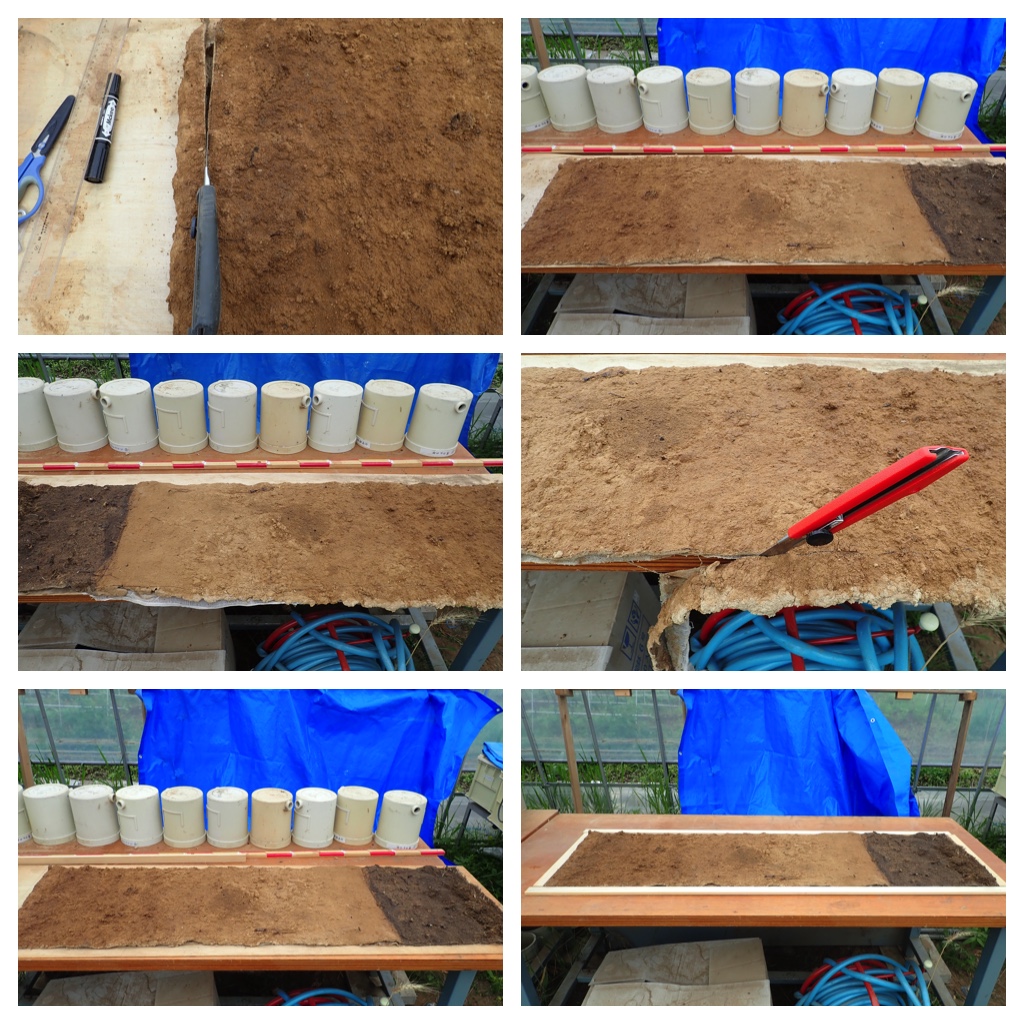
土壌モノリスの大きさを調整しているところ。
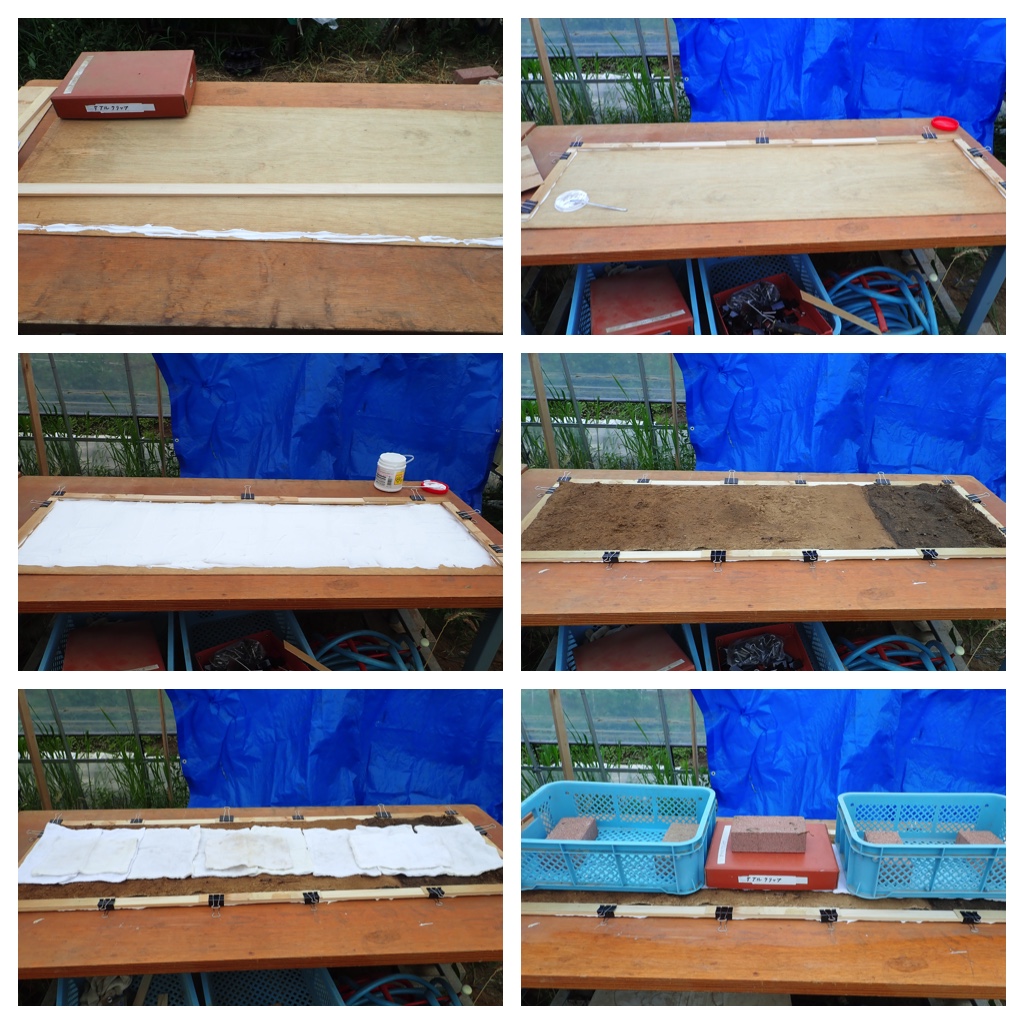
土壌モノリスベニヤ板に貼り付け、その後重石を乗せてベニヤ板に密着させているところ。
Visiting the "Forest of Rokka" and "Tokachi Millennium Forest".
六花の森と十勝千年の森の訪問
I visited the "Forest of Rokka" on July 12 and "Tokachi Millennium Forest" on July 14.
六花の森を7月12日に、十勝千年の森を7月14日に訪問しました。
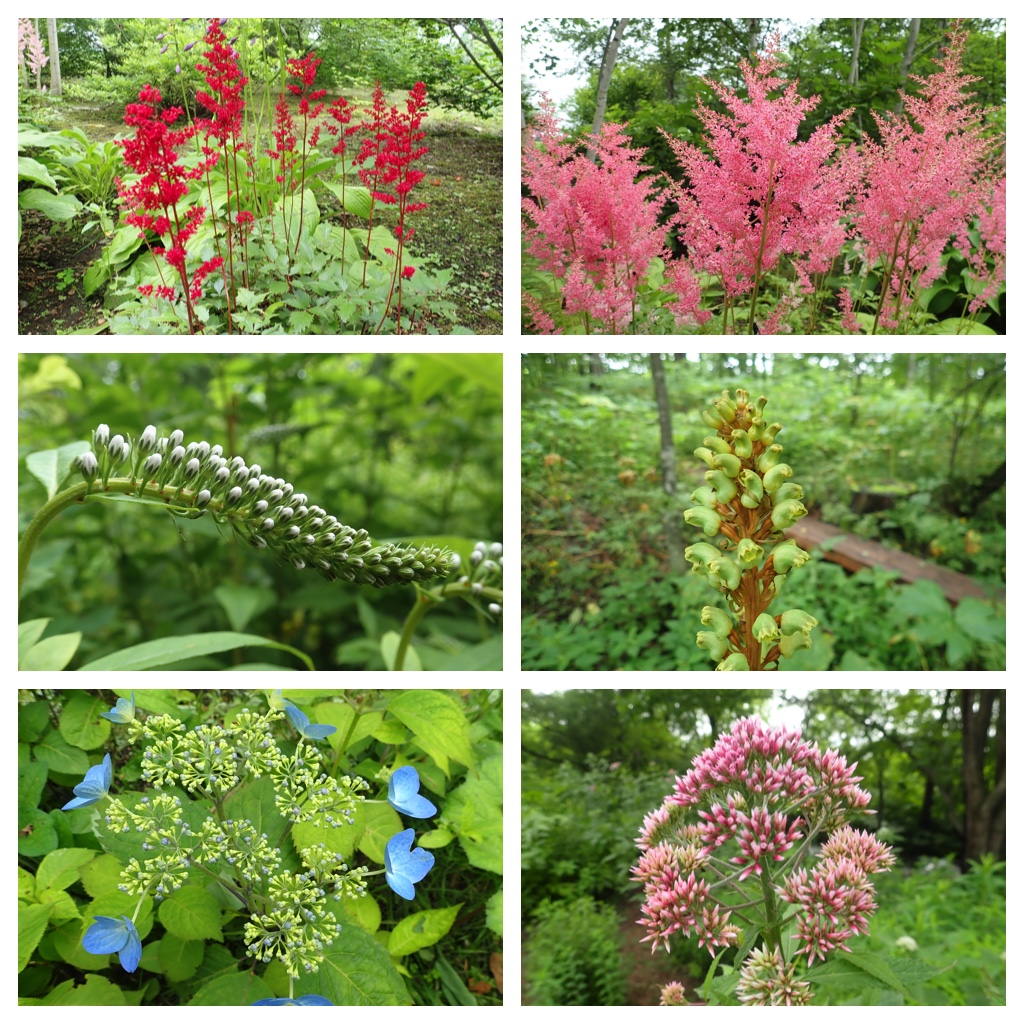
Forest of Rokka. 六花の森の花。上段2つはアスチルベ(升麻)、中段はオカトラノオとオニノヤガラ、下段はエゾアジサイとヨツバヒヨドリ。
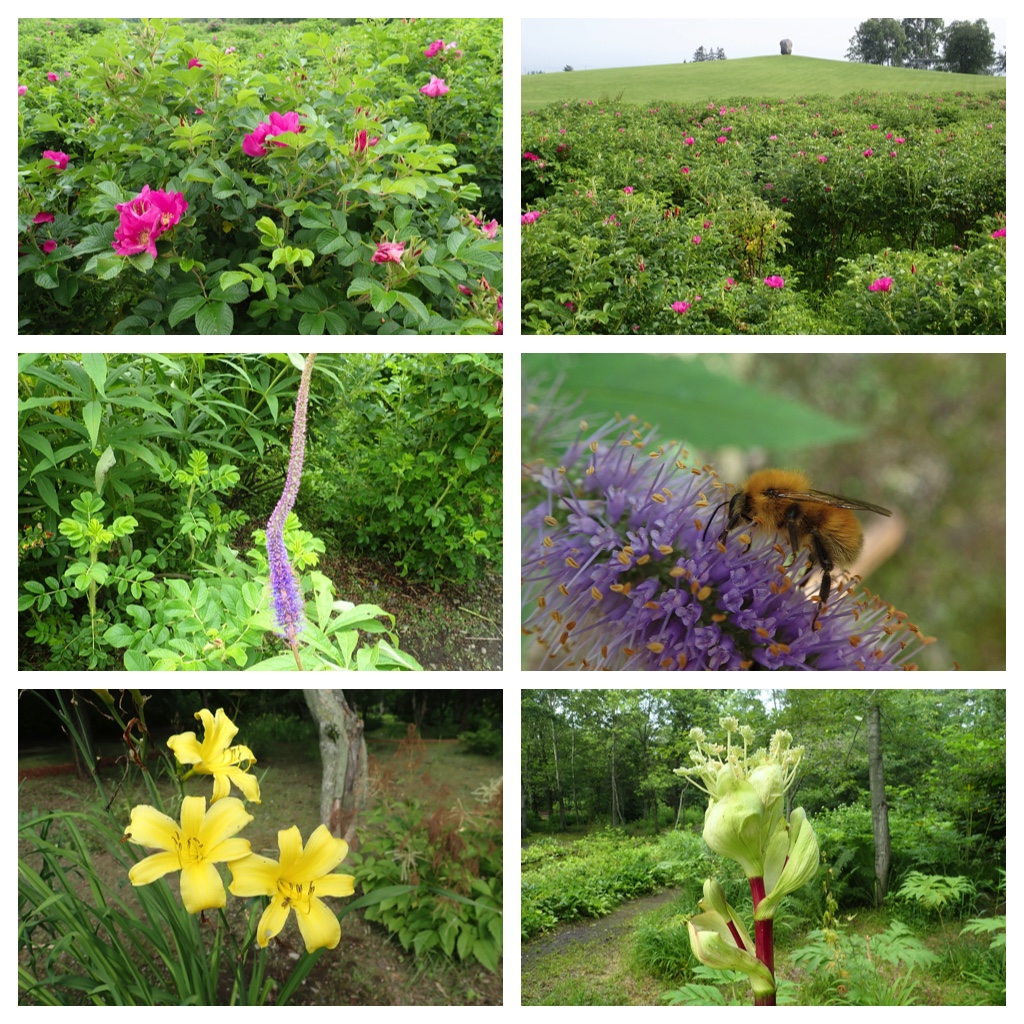
Forest of Rokka. 六花の森の花。上段2つはハマナス、中断2つはエゾクガイソウ、下段はエゾキスゲとエゾニュウ。
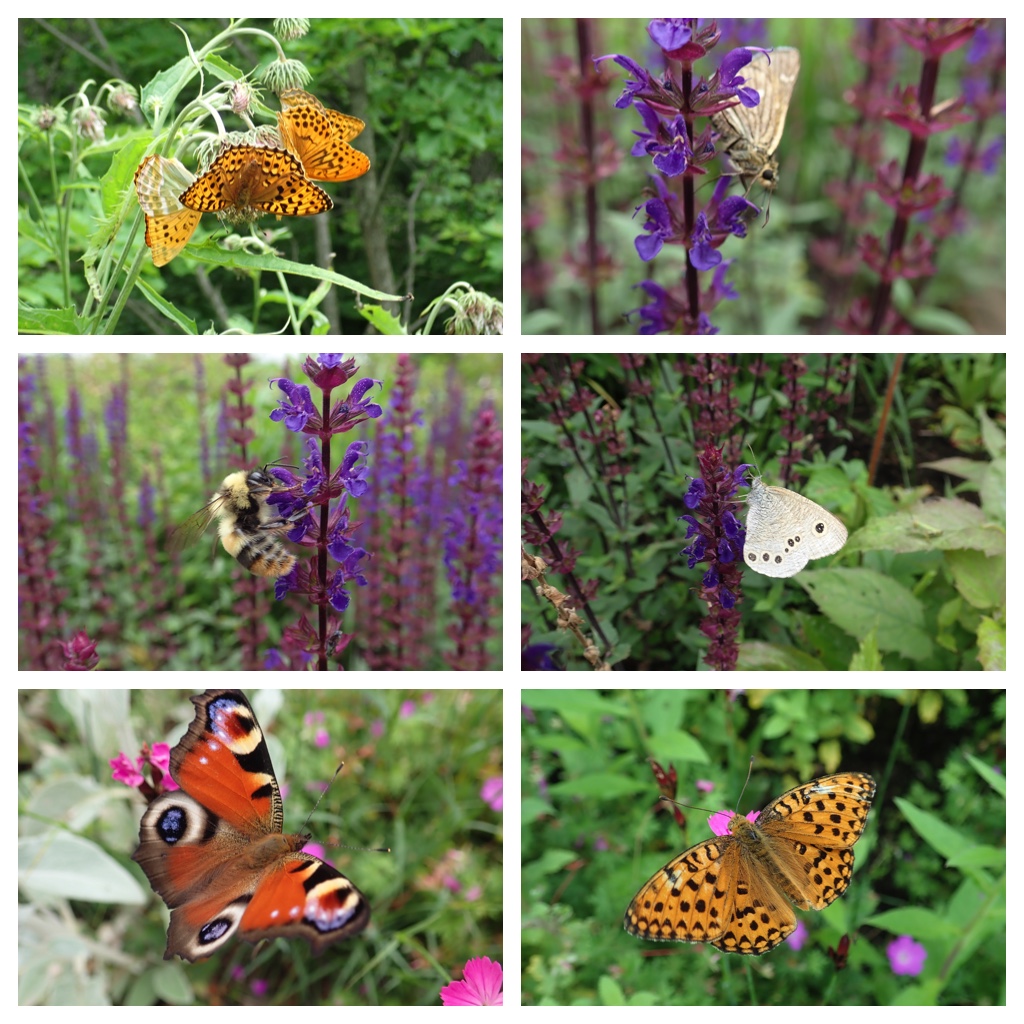
Tokachi Millenium Forest. 十勝千年の森。
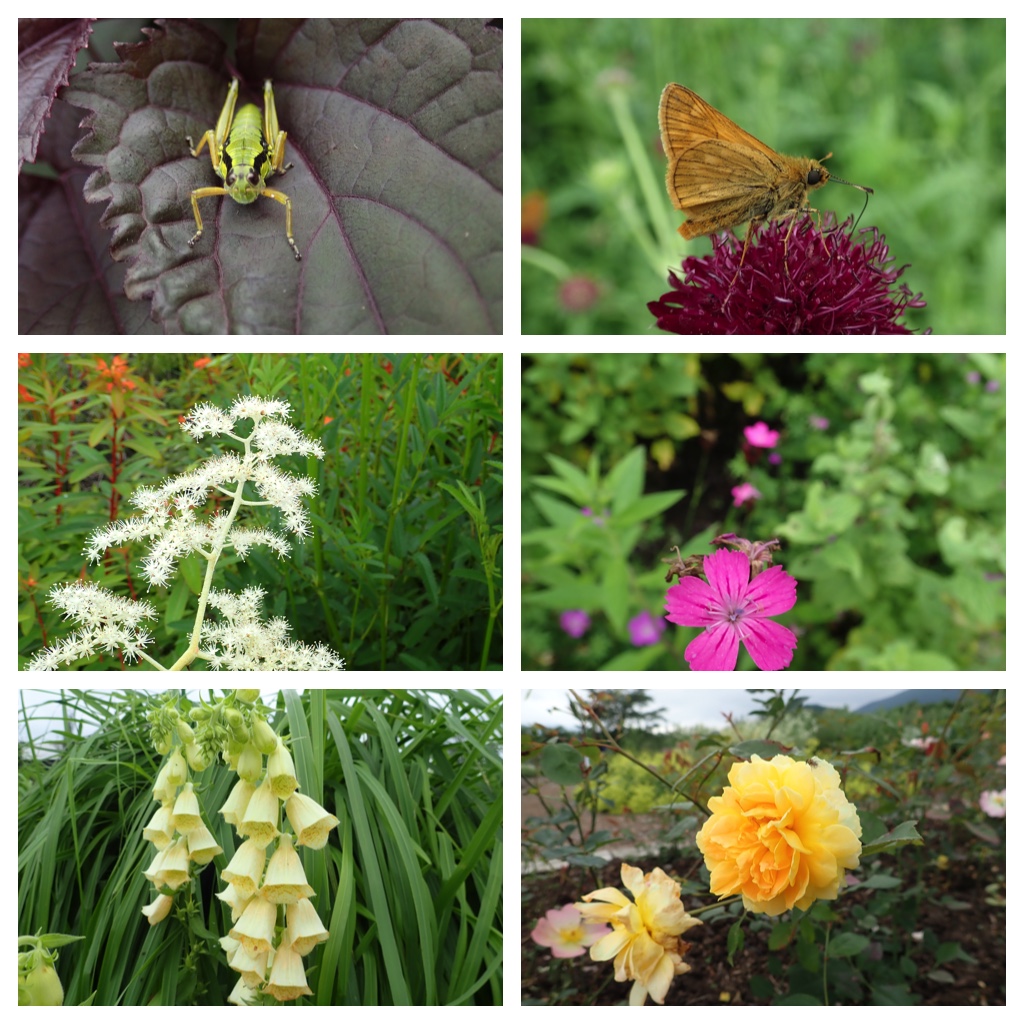
Tokachi Millenium Forest. 十勝千年の森。
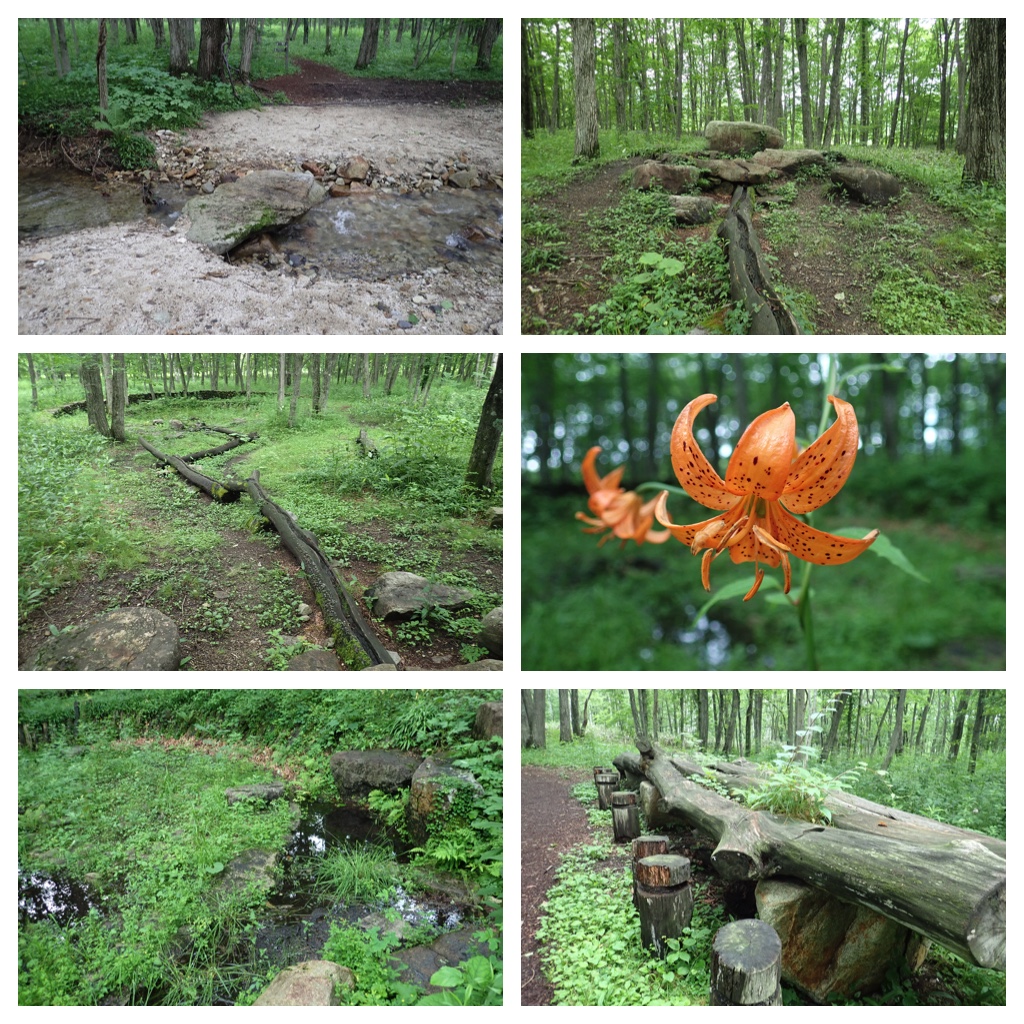
Tokachi Millenium Forest. 十勝千年の森。フォレストガーデン内の風景。
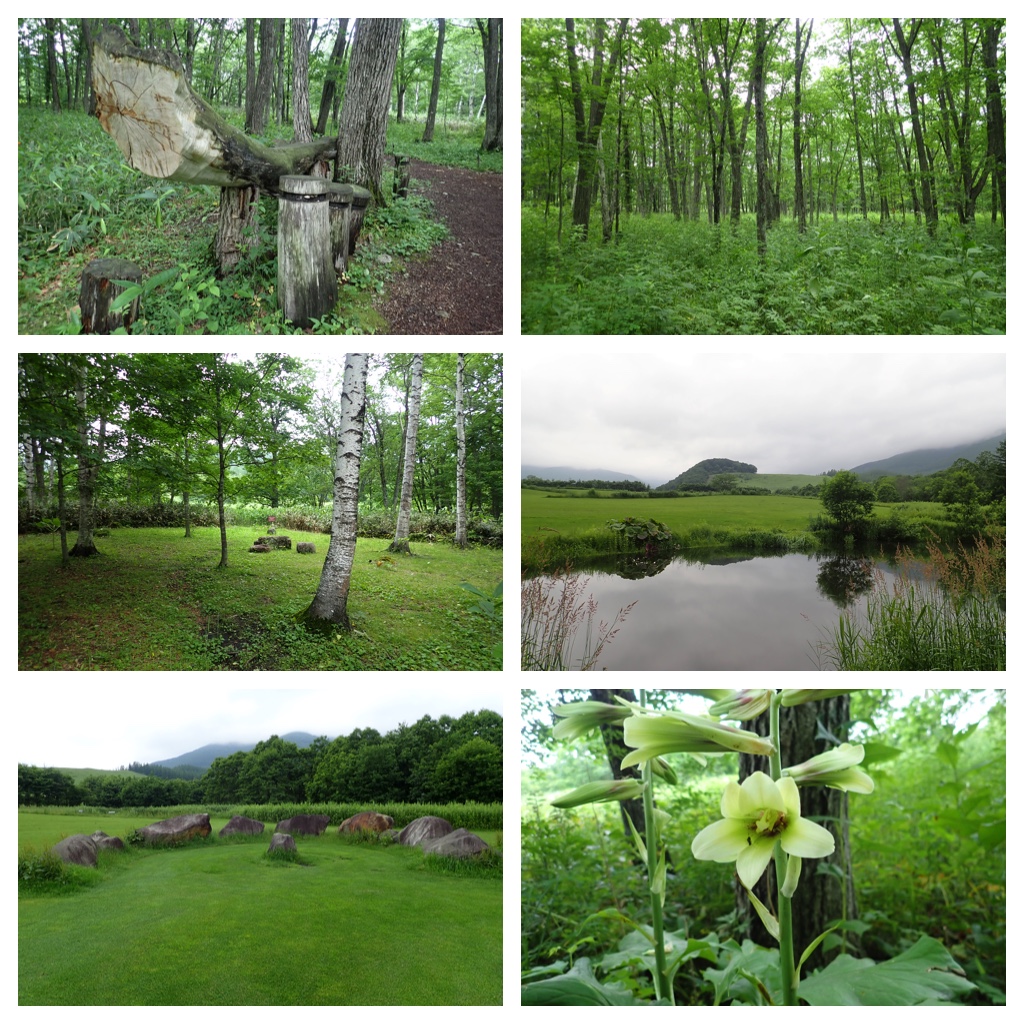
Tokachi Millenium Forest. 十勝千年の森。フォレストガーデン内の風景。右下はオオウバユリ。
Visiting the three estuarine lakes along the coast of Pacific Ocean in the Tokachi district.
十勝地方太平洋沿岸域の3つの湖を訪問。
On July 16, it became fine after long rainy days. After considering for a while, I decided to visit the three estuarine lakes along the coast of Pacific Ocean in the Tokachi district as it was the "Day of Ocean" on the same day. Though the good season for spring flowers has passed already, the views of lakes and ocean were very nice. I also visited the hot spring at Bansei, wild birds observatory site in the western shore of Oikamanai lake, and the historical site of pioneer dairy farming enterprise, Banseisha company in the eastern shore of Oikamanai lake.
7月16日は久々に快晴となり、気温も昨日までの10℃代から一挙に30℃代にまではね上がりました。どこに行こうかと考えた末、海の日なので海を見に行くことにしました。行き先はホロカヤントウ、晩成温泉、生花苗沼、湧洞沼などで、途中生花苗沼の野鳥観察施設と晩成社の史跡にも立ち寄りました。
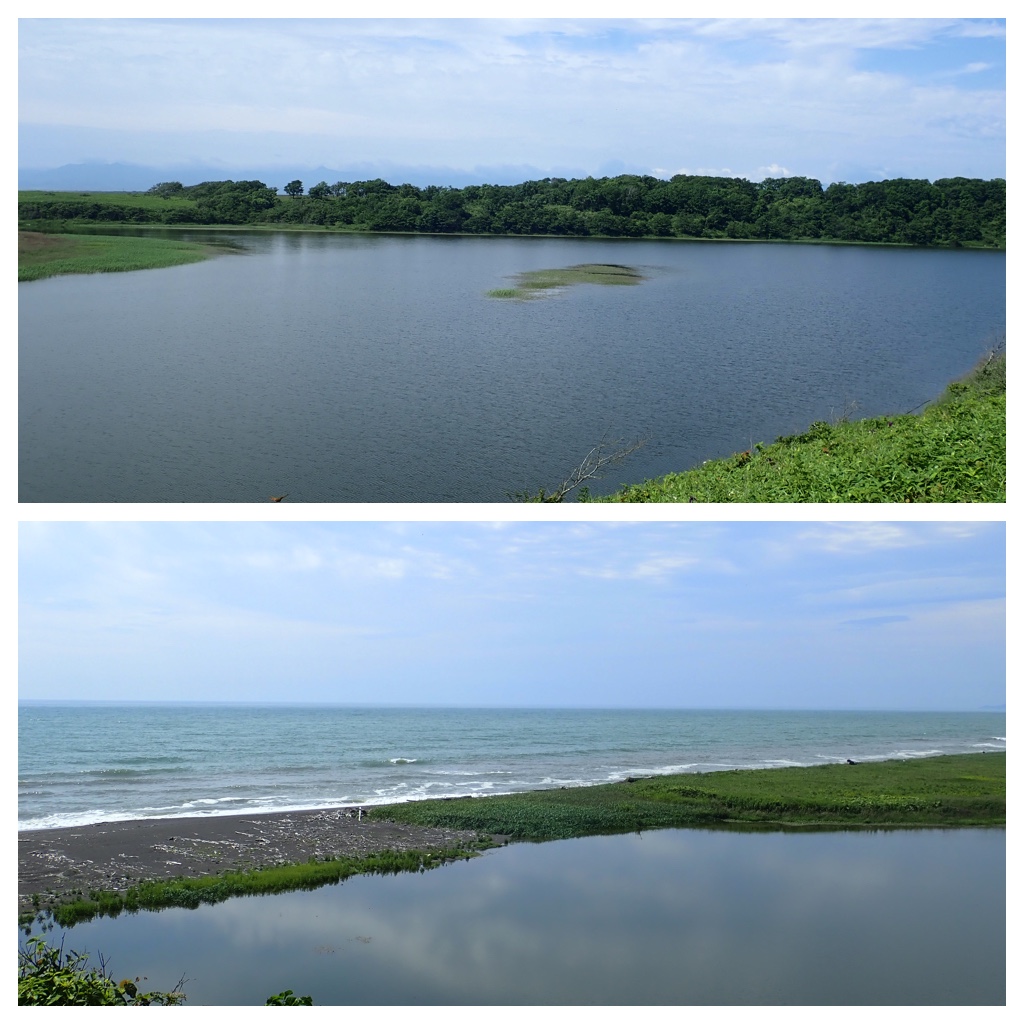
Horokayanto lake and the Pacific Ocean. ホロカヤントーと太平洋。
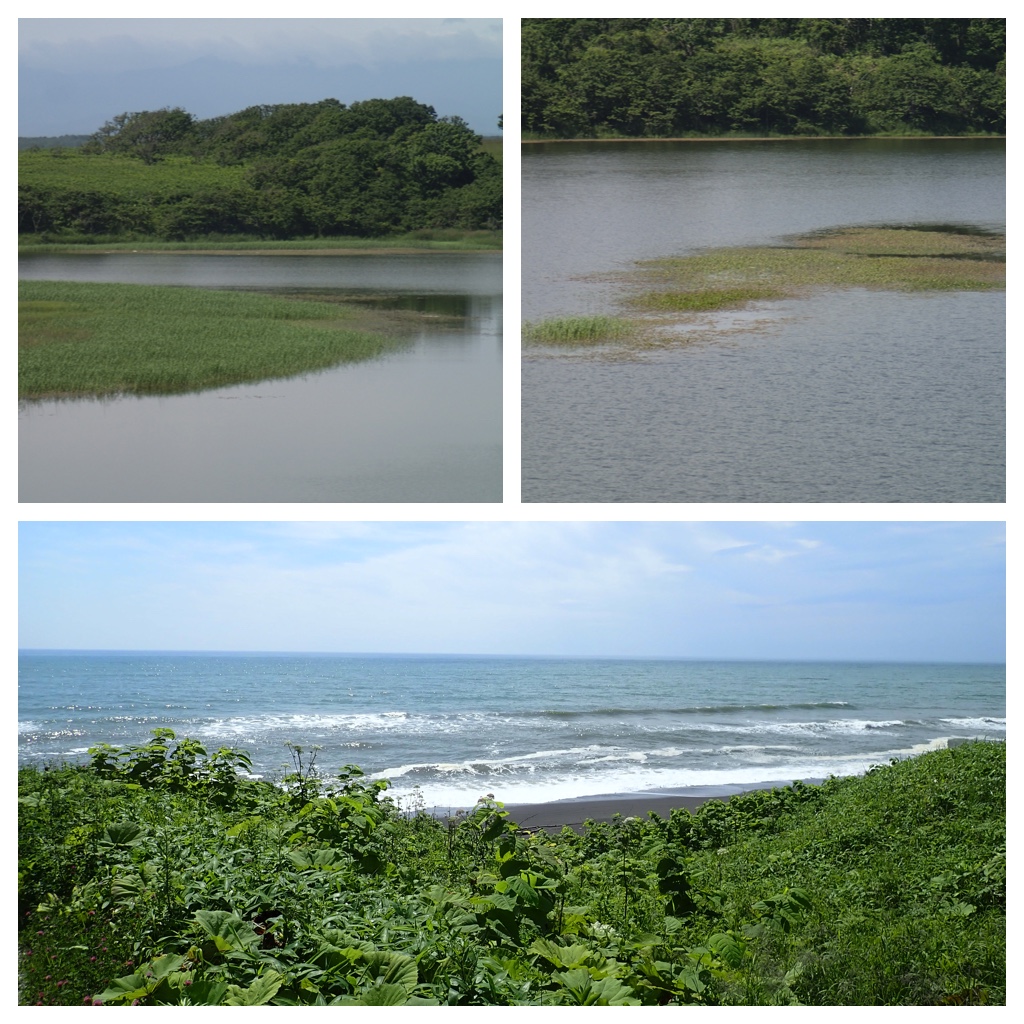
Horokayanto lake and the Pacific Ocean. ホロカヤントーと太平洋。
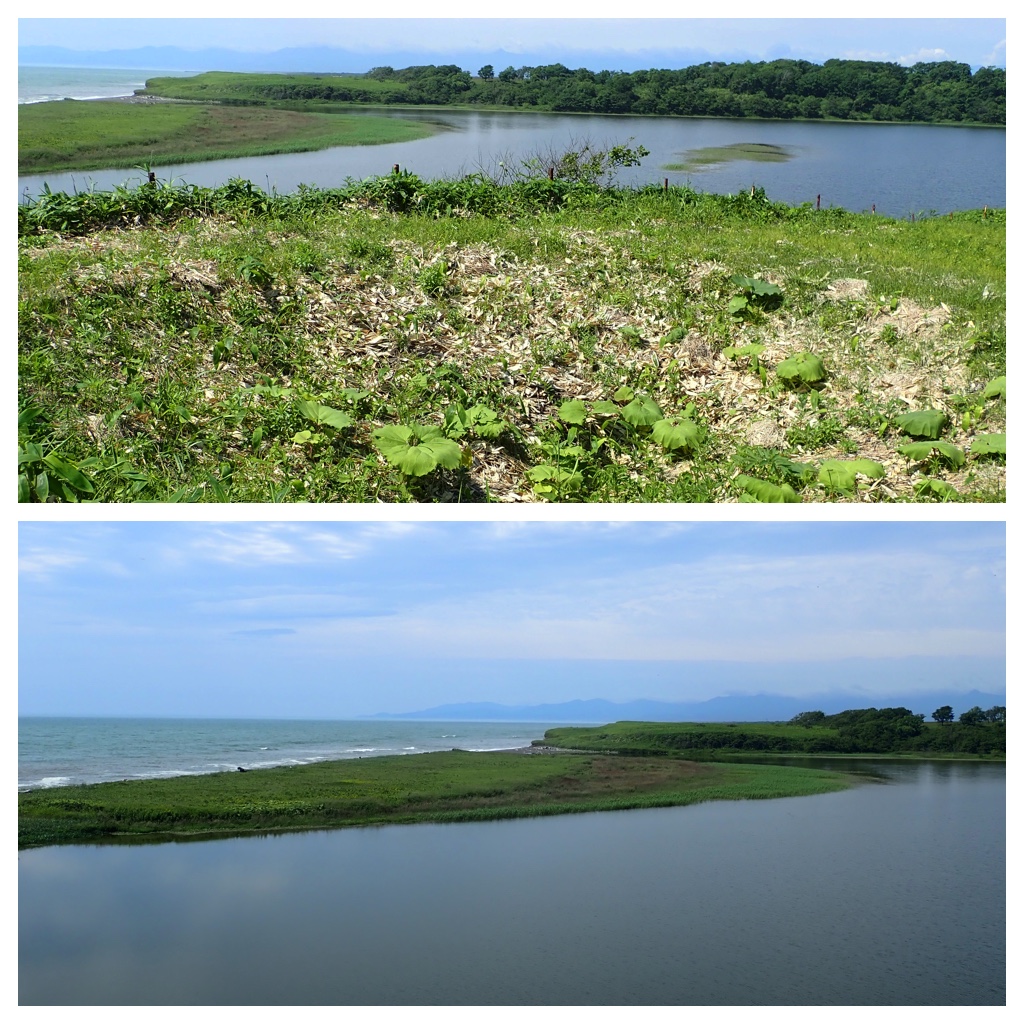
Horokayanto lake and the Pacific Ocean. ホロカヤントーと太平洋。上の写真はおよそ1000年前の擦文文化時代に作られたホロカヤントー竪穴式住居群のひとつ。縄文文化を祖先に持ち、のちのアイヌ文化にも影響を及ぼしたと言われている。
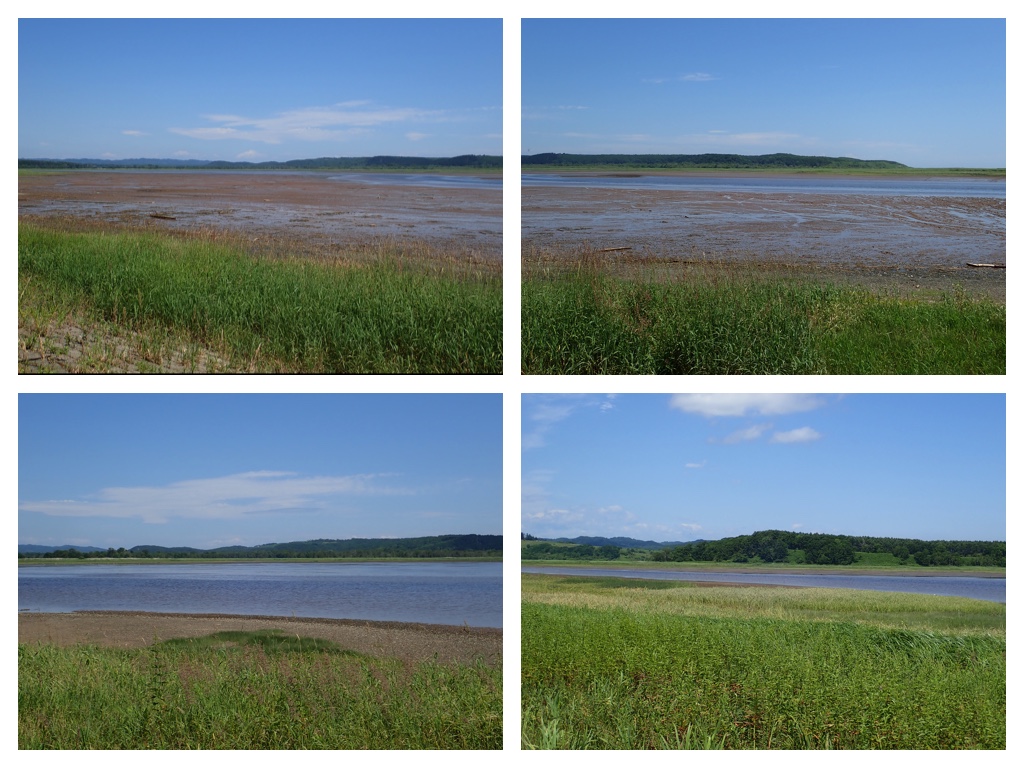
Oikamanaito lake. 生花苗沼。上の2つの写真はB&G海洋センター艇庫付近、下の2つの写真は野鳥観察施設付近の湖畔から写した写真。対岸の干潟にはサギ、タンチョウなどの野鳥がたくさんいました。
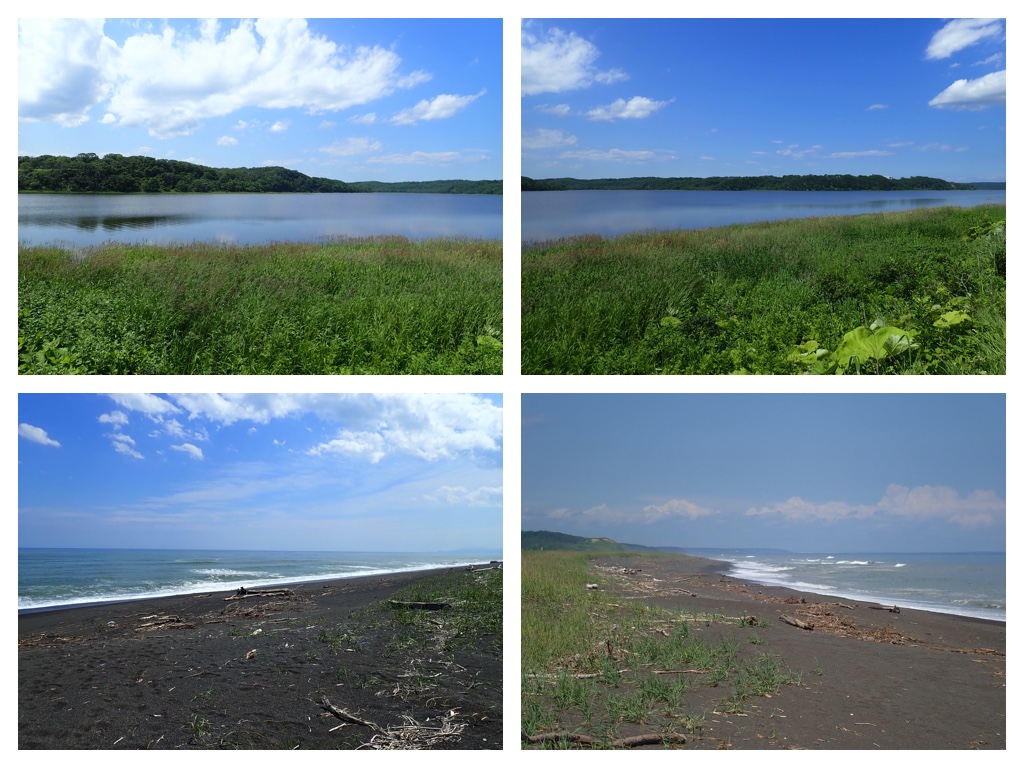
Yudonuma lake and the Pacific Ocean. 湧洞沼と太平洋。
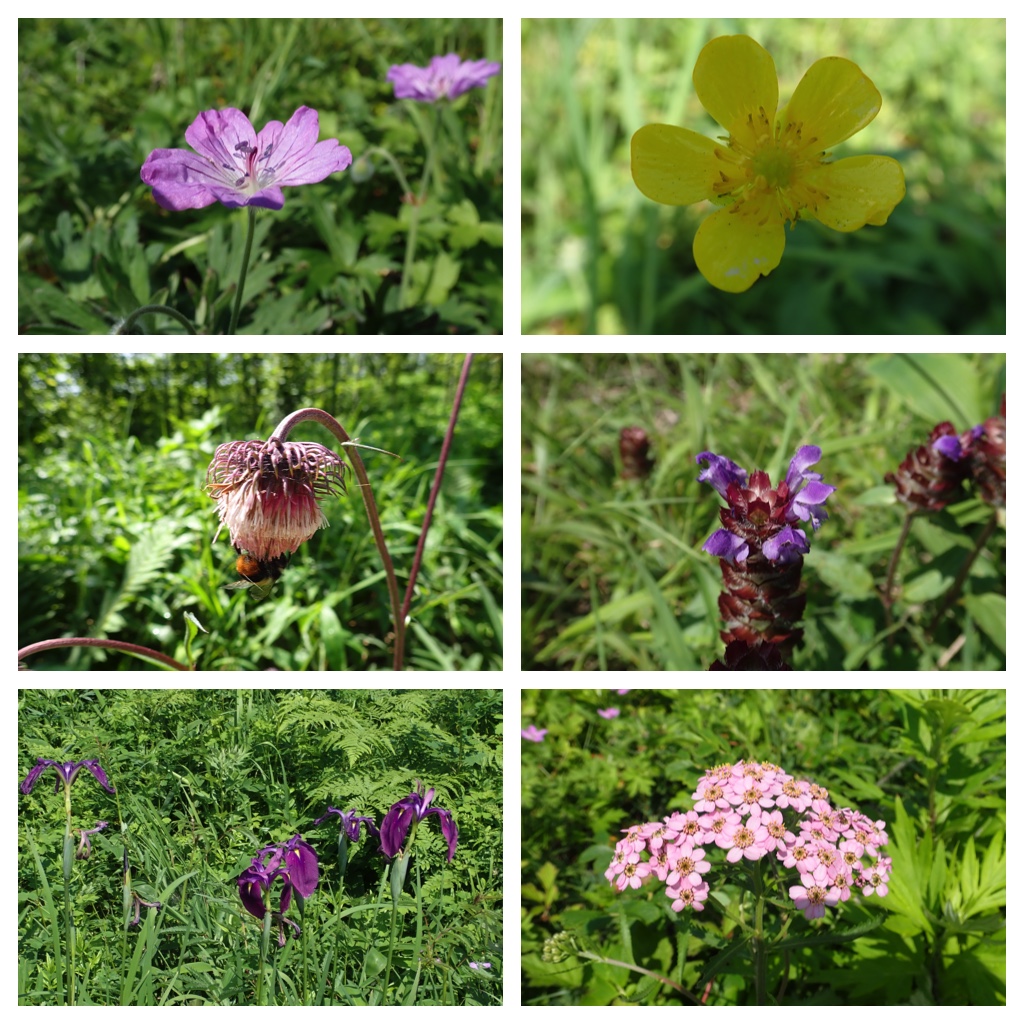
Flowers around the lakes. 湖周辺の花々。左上から、チシマフウロ、シコタンキンポウゲ、シコタンアザミ、ウツボグサ、ノハナショウブ、セイヨウノコギリソウ。
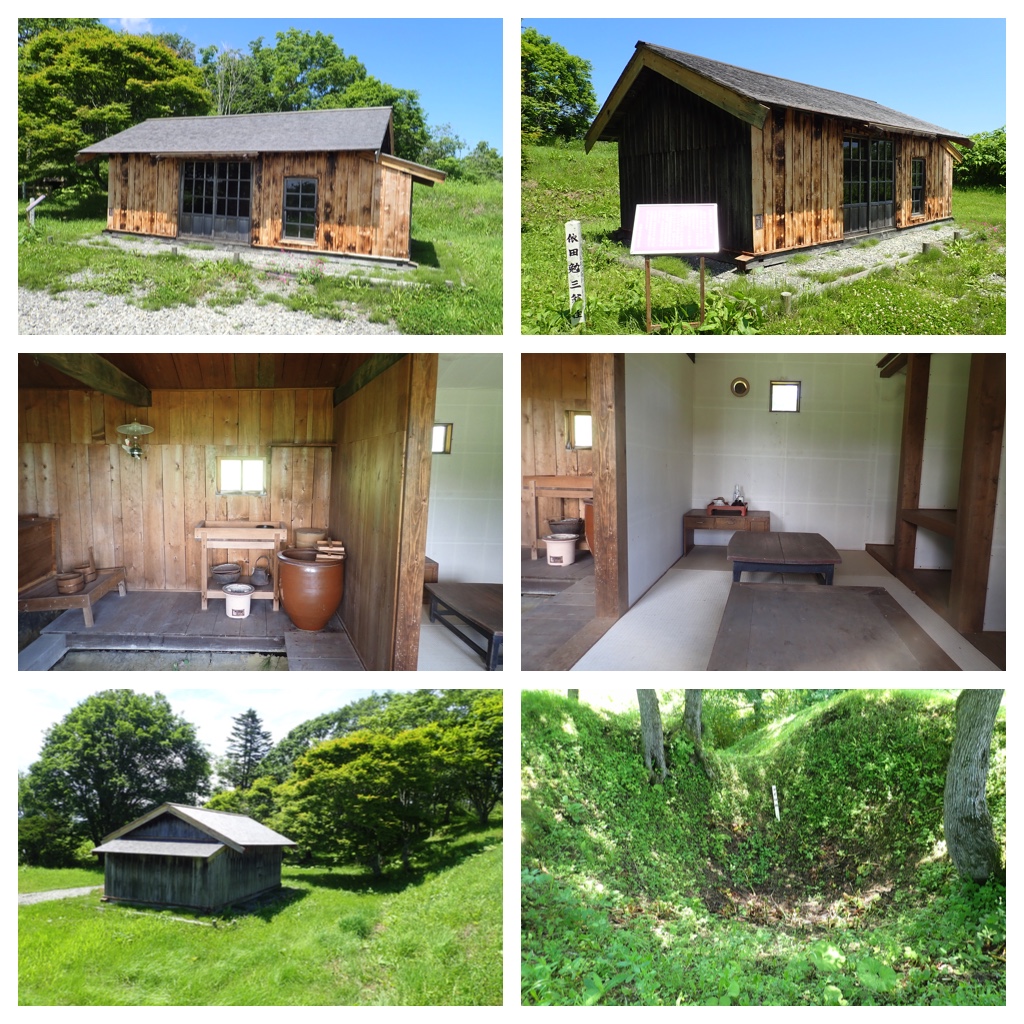
Historical site of pioneer dairy farming enterprise, Banseisha company. 晩成社跡。依田勉三が1893年から1915年まで住んでいた家。彼はここで大規模酪農をめざした。右下はサイロ跡。
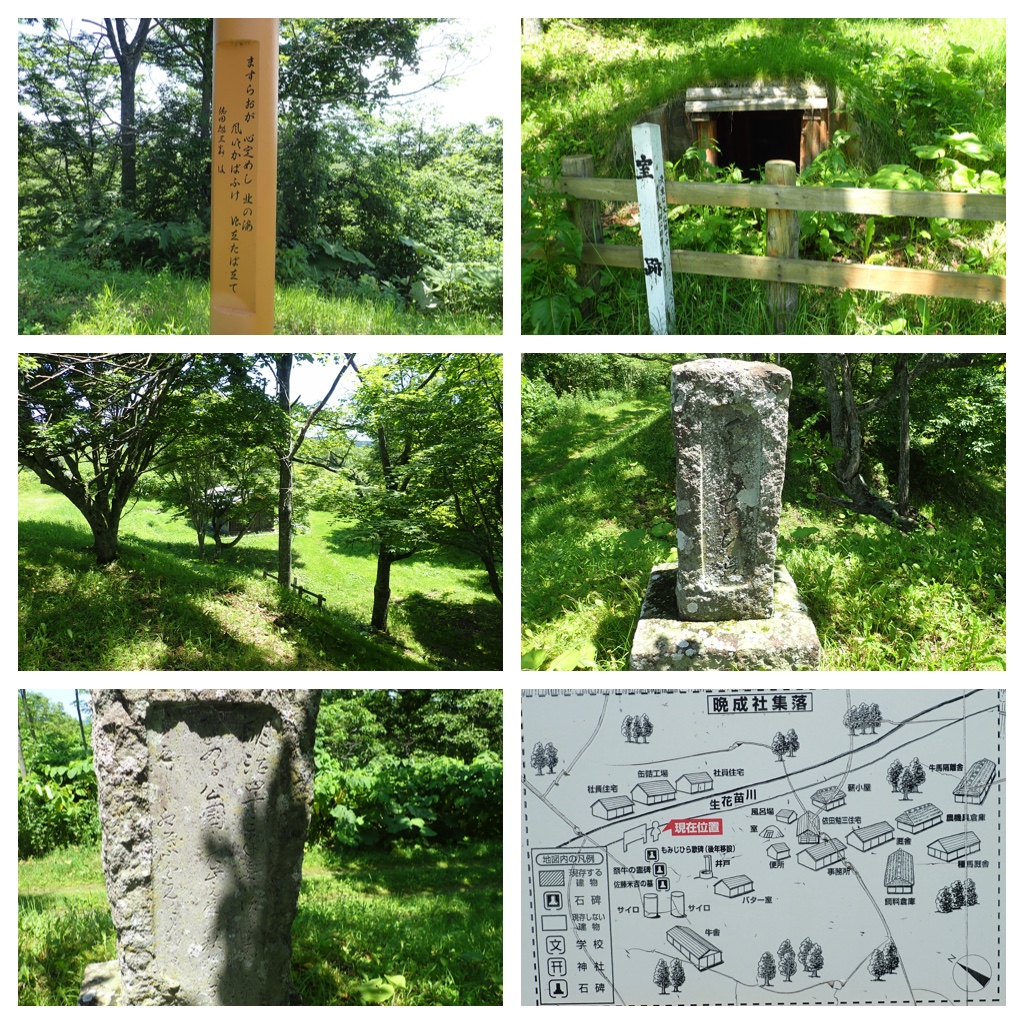
Historical site of pioneer dairy farming enterprise, Banseisha company. 晩成社跡
Flowers and crops in my house garden and the junior course field.
我が家の庭と別科圃場の作物と花。
Though the growth of crops has been delayed due to the long rain and cold temperature, the growth is recovering these days as the weather has become fine and the temperature has increased.
今年は長雨と低温のため作物の生育が遅れていましたが、やっと好天が続くようになり作物の生育も回復してきました。
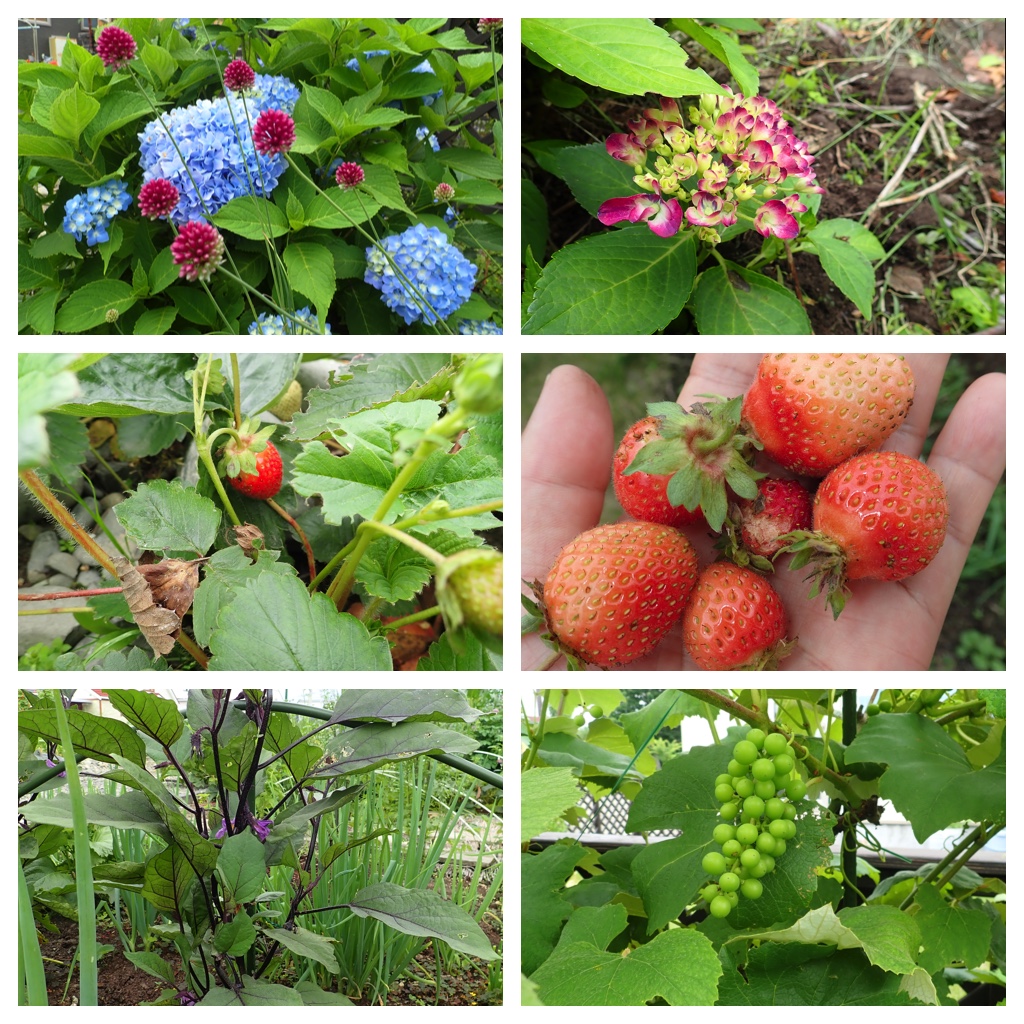
家の庭のアジサイとアリウム、赤いアジサイ、イチゴ、収穫したイチゴ、ナス、ブドウ。イチゴのピークは過ぎましたが、孫のおやつに十分なくらいは毎日収穫できます。(家の庭)
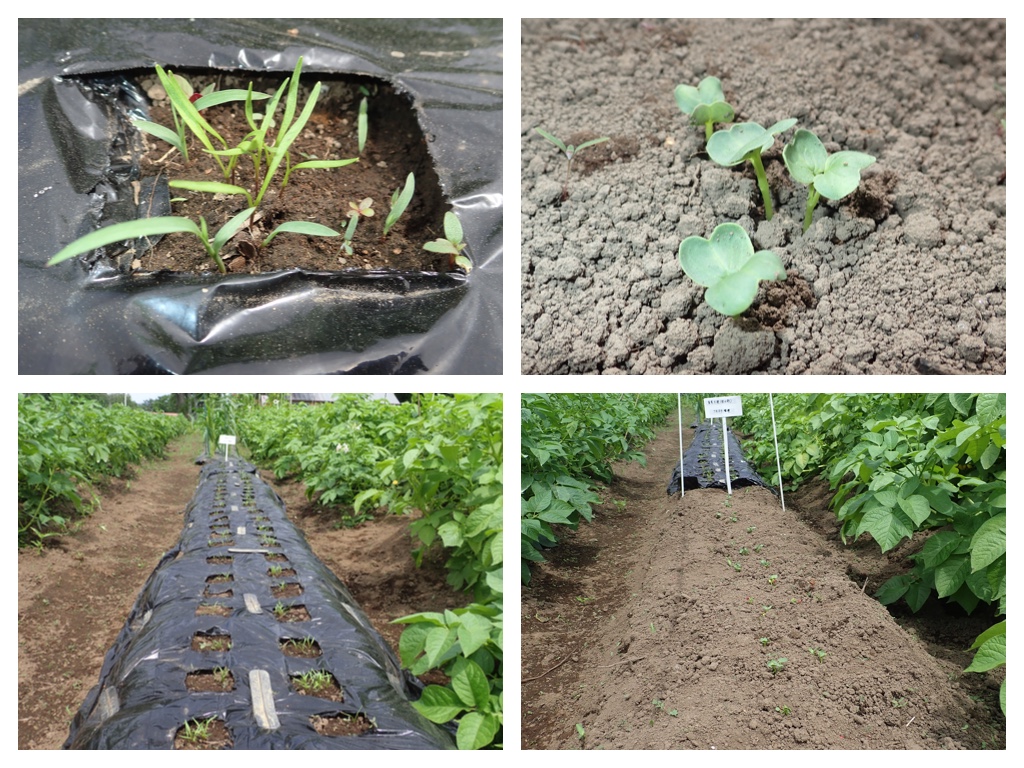
7月13日に播種したニンジンと7月18日に播種した秋大根。(別科圃場)
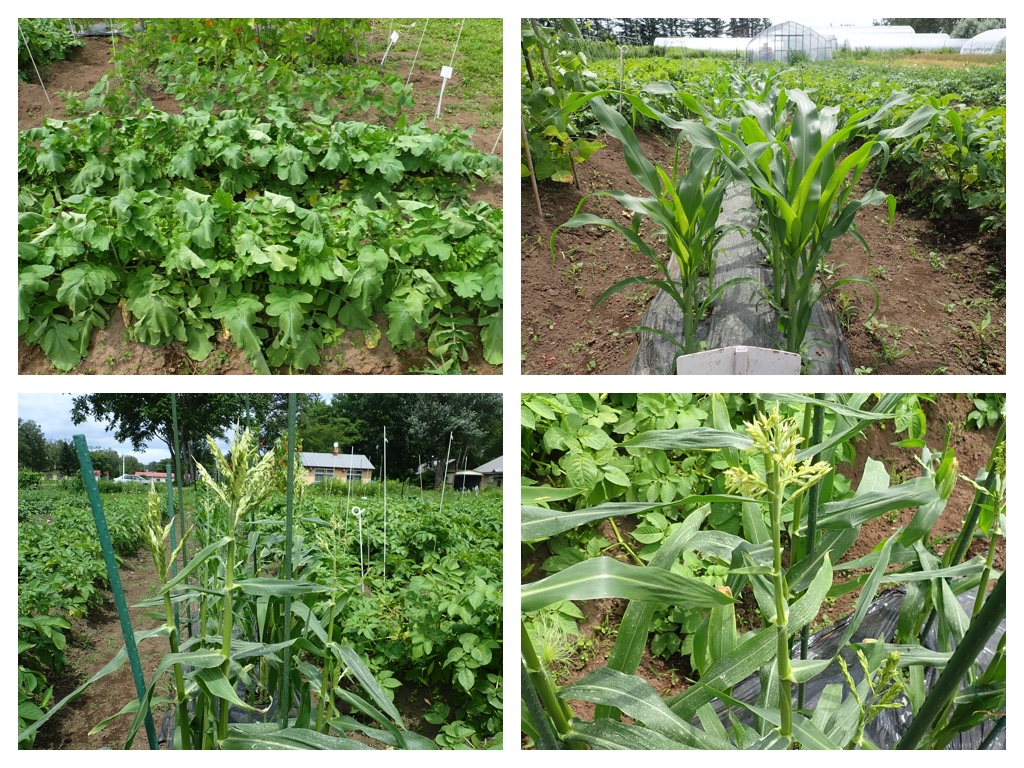
6月15日に播いた夏大根と6月23日に播いたスイートコーン。下段の写真は同じ日に苗で植えたスイートコーン。既に雄花の穂が出てきました。(別科圃場)
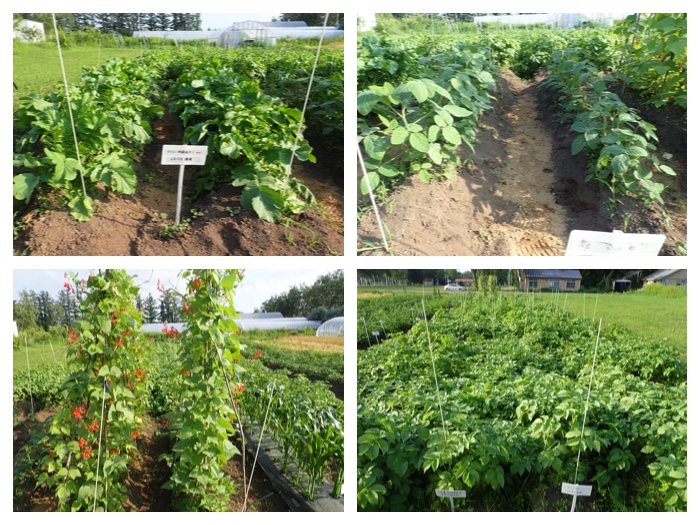
夏大根、大豆(茶小粒、5月23日播種)、花豆(5月23日播種)、バレイショ圃場(5月7日種芋播種)。(別科圃場)
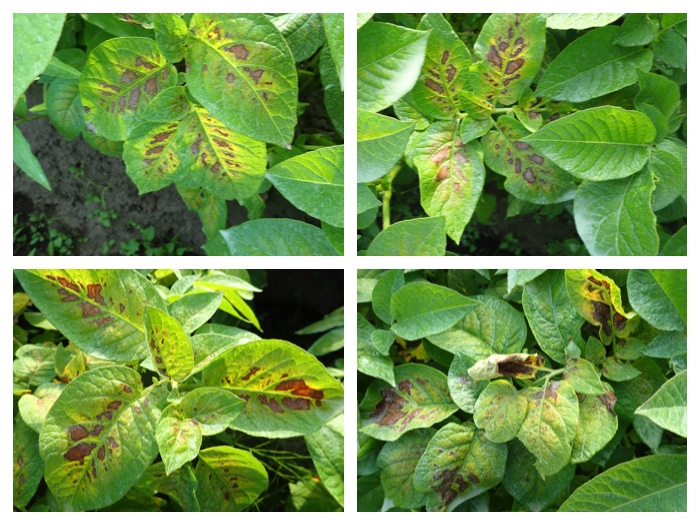
バレイショの葉の一部に壊死斑が出ています。夏疫病なのか?有機肥料単独施肥区なのでカリ欠乏のようにも見えます。(別科圃場)
その後専門家の方から、これは疫病の症状ではなく、マグネシウム欠乏あるいは老化症状であると教えて頂きました。
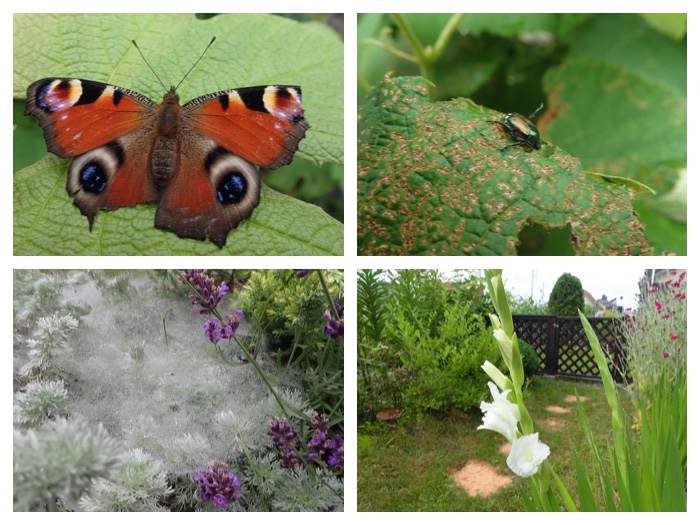
ブドウの葉に止まったクジャクチョウ、ブドウの葉を食害するマメコガネ、アサギリソウの上に張られたクモの巣、白いグラジオラス。(家の庭)
Autumn sky and flowers.
秋の空と花。
Though it is still very hot in the main islands of Japan, it has become very cool in Obihiro, Hokkaido. The color of sky has also changed to dark blue. Flowers in the late summer and early autumn can be seen in the field.
本州以南ではまだとても暑い日が続いているようですが、帯広ではかなり涼しくなりました。空の色も濃い青に変わり、晩夏から初秋の花々が見られるようになりました。
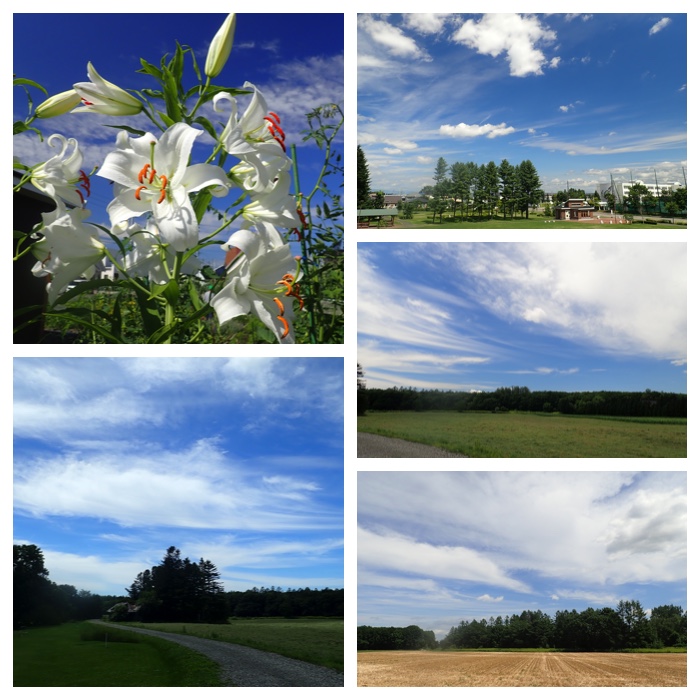
雨上がりの空
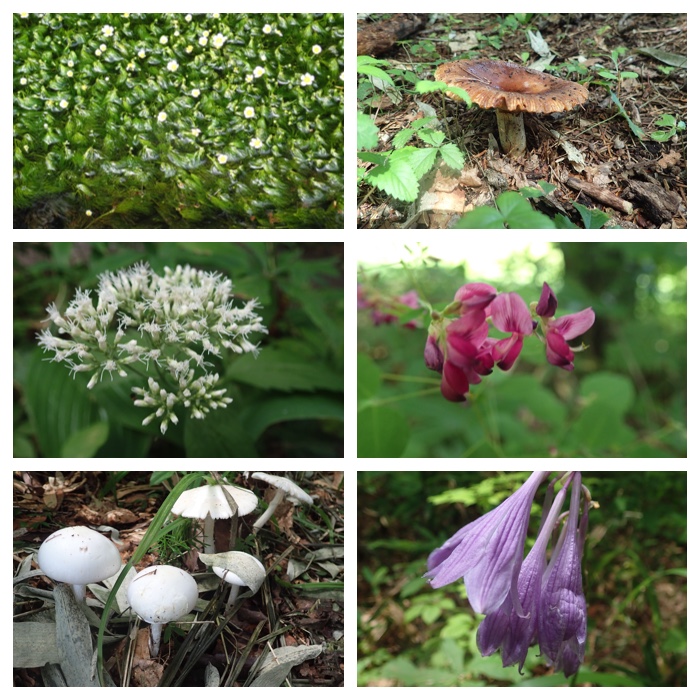
晩夏・初秋の草花1 機関庫川沿いの散歩道にて、左上から、バイカモ、ヒヨドリバナ、キノコ、右上から、キノコ、エゾヤマハギ、ギボウシ
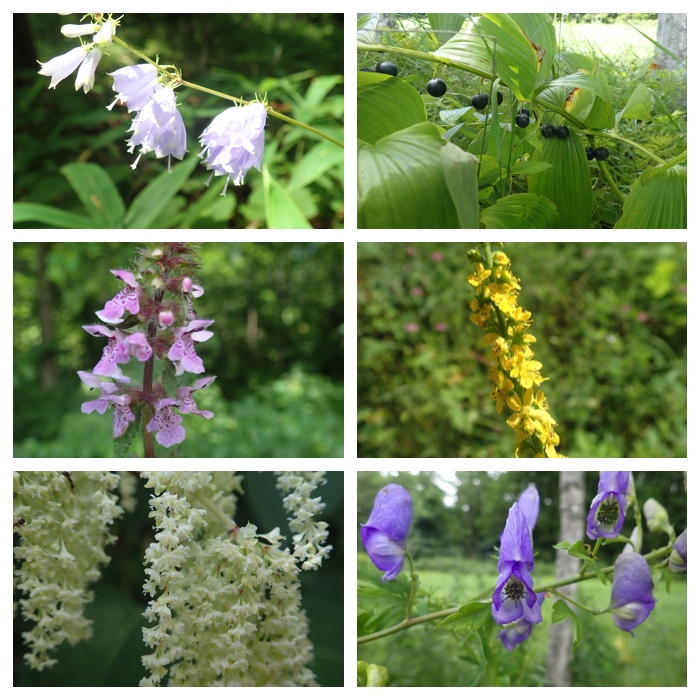
晩夏・初秋の草花2 農業高校の森周辺にて、左上から、ツリガネニンジン、イヌゴマ、イタドリ、右上から、オオアマドコロの実、キンミズヒキ、エゾトリカブト
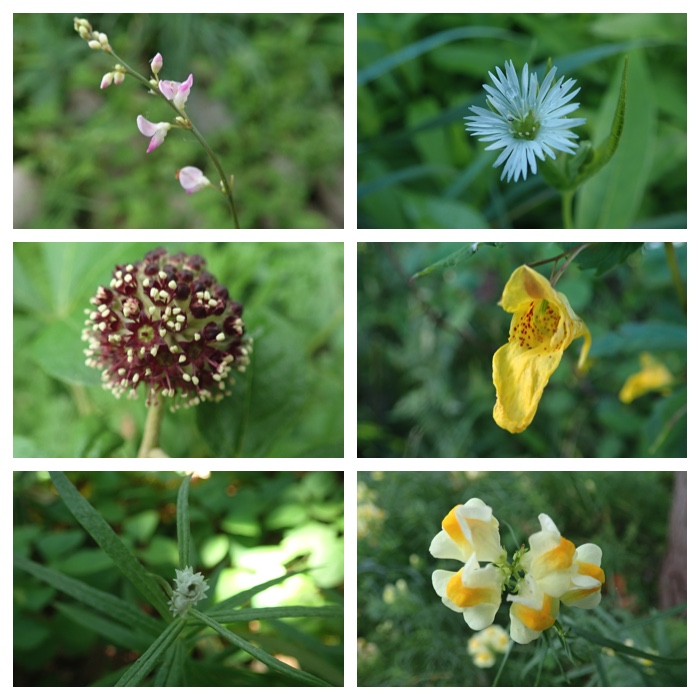
晩夏・初秋の草花3 農業高校の森周辺にて、左上から、ヤブハギ、不明、ヤマハハコ、右上から、エゾオオヤマハコベ、キツリフネ、ホソバウンラン
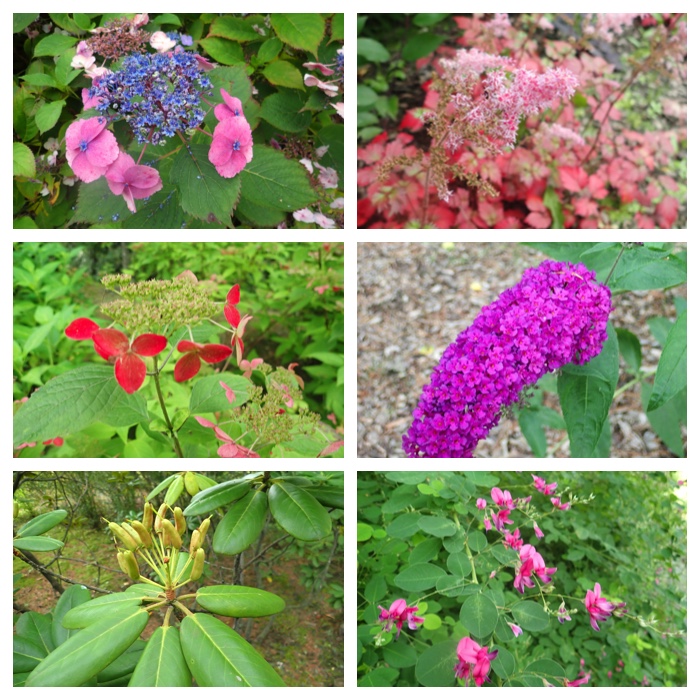
晩夏・初秋の草花4 真鍋庭園にて、左上から、アジサイ2種、シャクナゲの実、右上から、升麻(アスチルベ)、フサフジウツギ、ヤマハギ
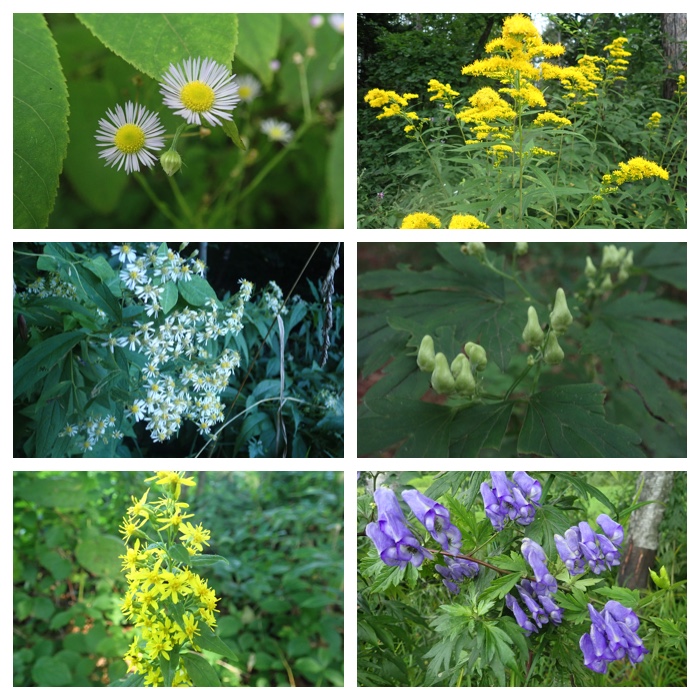
晩夏・初秋の草花5 農業高校の森周辺にて、左上から、ヒメジョオン、エゾゴマナ、キンミズヒキ、右上から、オオアワダチソウ、トリカブトの一種、エゾトリカブト
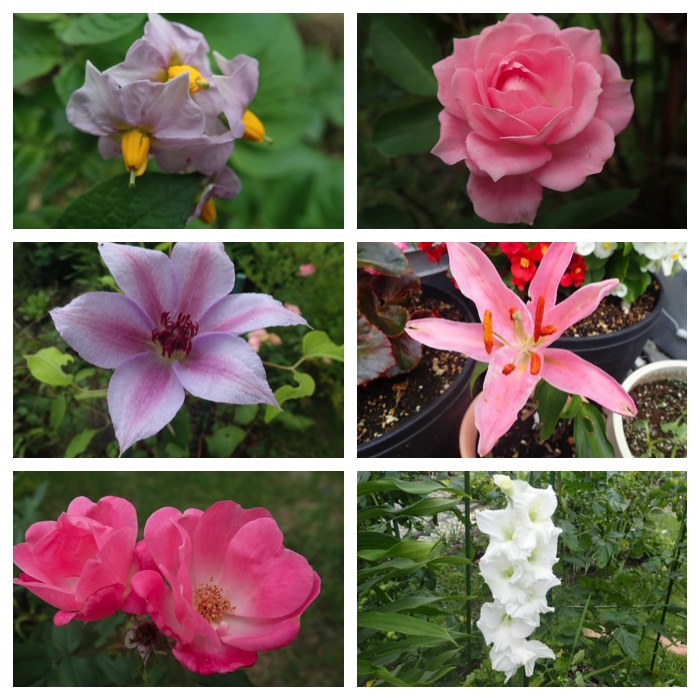
晩夏・初秋の草花6 わが家の庭にて、左上から、バレイショ(キタアカリ)の花、クレマチス、バラ(ノックアウト)、右上から、ミニバラ、ユリ、グラジオラス
Paper works made with and for my grandchildren. 孫たちと作った紙の作品。
When I am with my grandchildren, I often make paper crafts with and for them. Maybe, grandchildren also like them.
孫がわが家に来ている時には、よく折り紙などの紙の作品を作ります。子供達も喜んでいるようです。
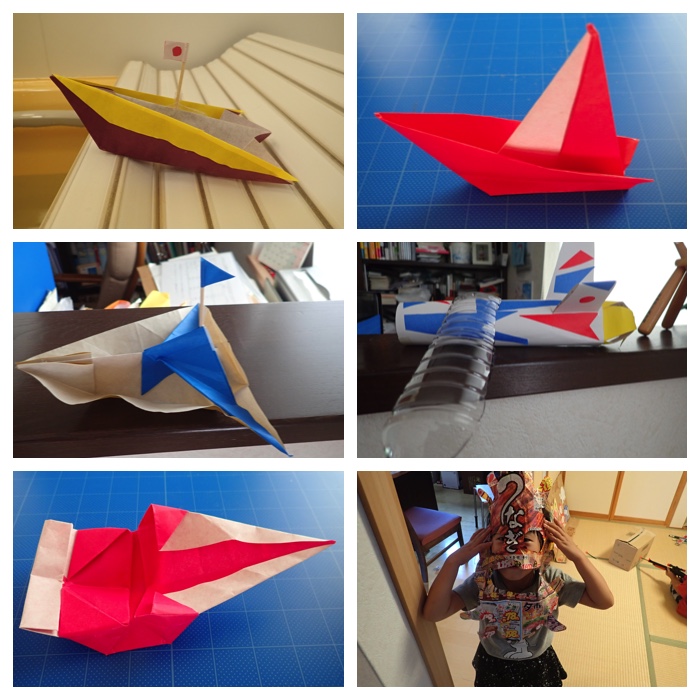
紙の船と飛行機。防水スプレーをかけてお風呂でも遊べるようにしました。
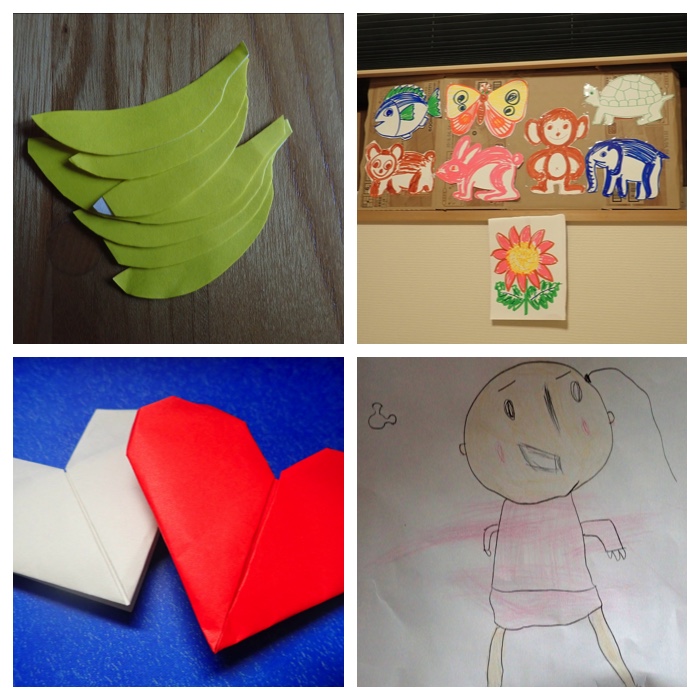
バナナ、ハート、孫娘作の自画像、射的の標的
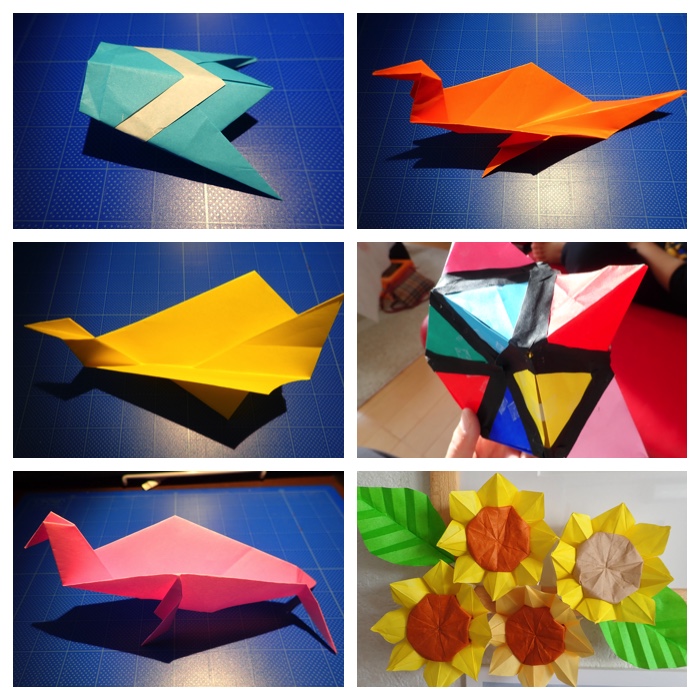
セミ、恐竜、冠、花。
Late summer flowers in the Wild Grass Garden of Obihiro.
帯広市野草園の晩夏の花々。
I visited the wild grass garden of Obihiro to learn the correct names of wild flowers in late summer.
晩夏の花々の正しい名前を学ぶため、帯広市野草園を訪問しました。
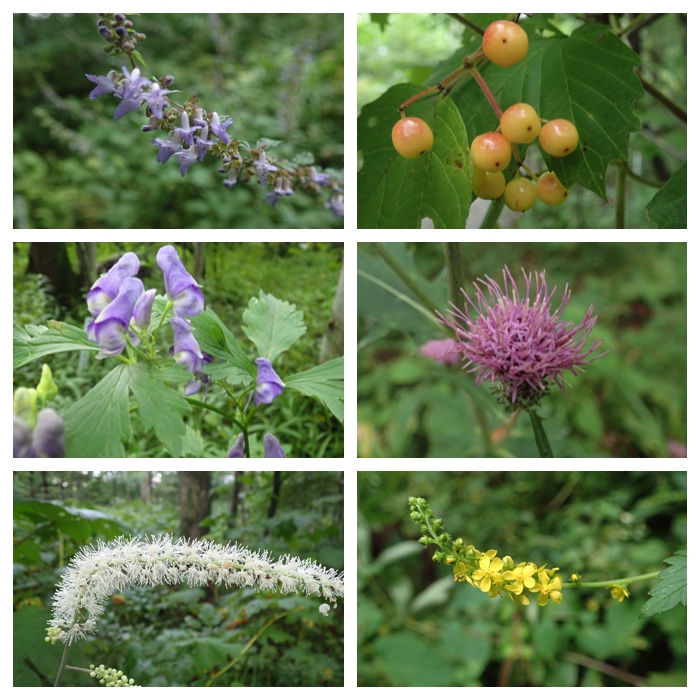
晩夏・野草園の草花1 。左上から、ヤマハッカ、トリカブト、サラシナショウマ、右上から、カンボク、アザミ、キンミズヒキ
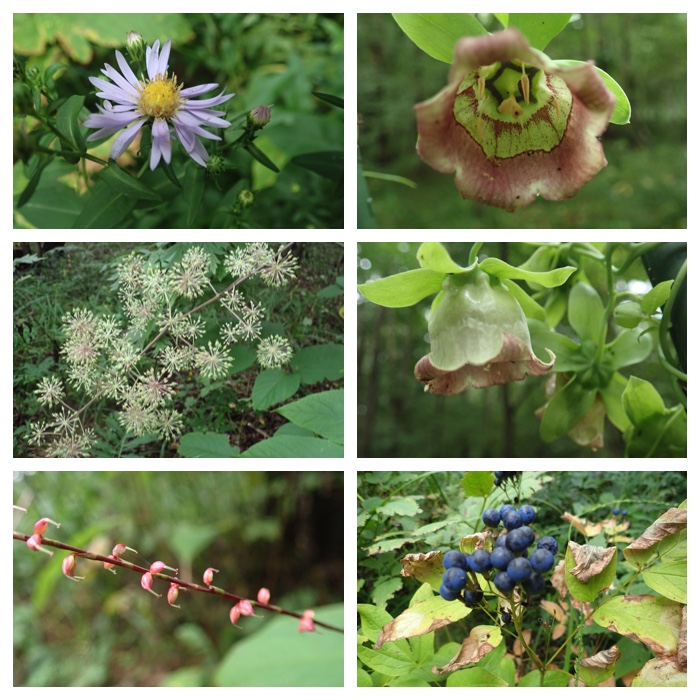
晩夏・野草園の草花2 。左上から、エゾノコンギク、ウド、ミズヒキ、右上から、ツルニンジン(ジイソブ)、ツルニンジン、ルイヨウボタンの実
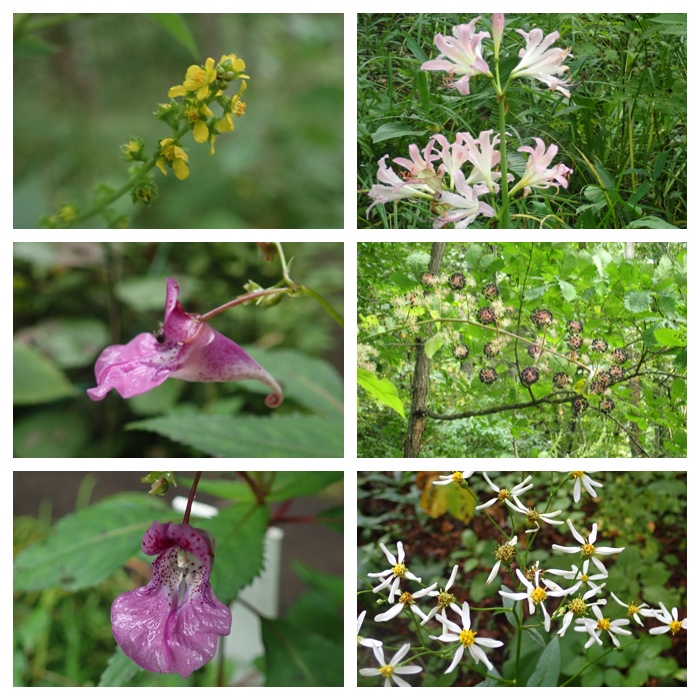
晩夏・野草園の草花3 。左上から、キンミズヒキ、ツリフネソウ、ツリフネソウ、右上から、 ナツズイセン、ウド、シラヤマギク
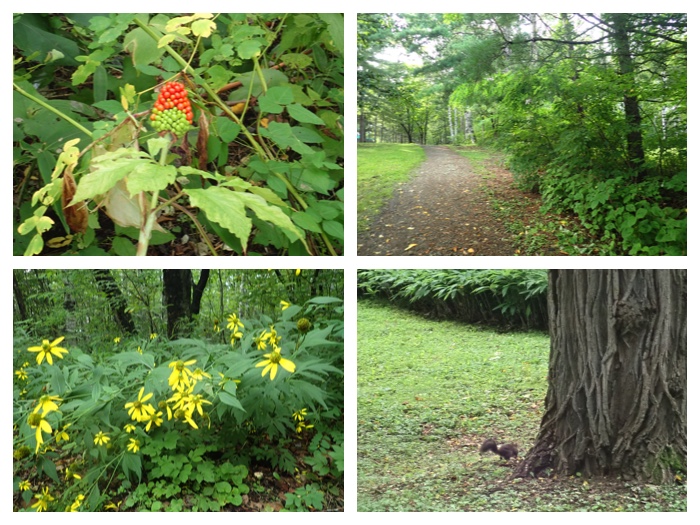
晩夏・野草園の草花4 。左上から、コウライテンナンショウ、オオハンゴンソウ、右上から、動物園外東北側の道、彫刻の道の南端とエゾリス
Mushrooms in the early autumn with some wild flowers.
初秋のキノコといくつかの野草の花。
Soon after I started walking, I felt that it is a mushroom day today. I could find many different kinds of mushrooms along my walkway beside the stream and in a forest. It is a pity that I do not know the names of these mushrooms. As it is already September from today, I can say that these are the mushrooms of early autumn.
散歩を始めてすぐに、今日はキノコをたくさん見られるぞと思いました。機関庫川沿いの道や農業高校の森の中で、期待通り色々な種類のキノコをたくさん見つけることができました。キノコの名前は残念ながらわかりません。 今日からもう9月なので、これらは初秋のキノコと言っても差し支えないでしょう。
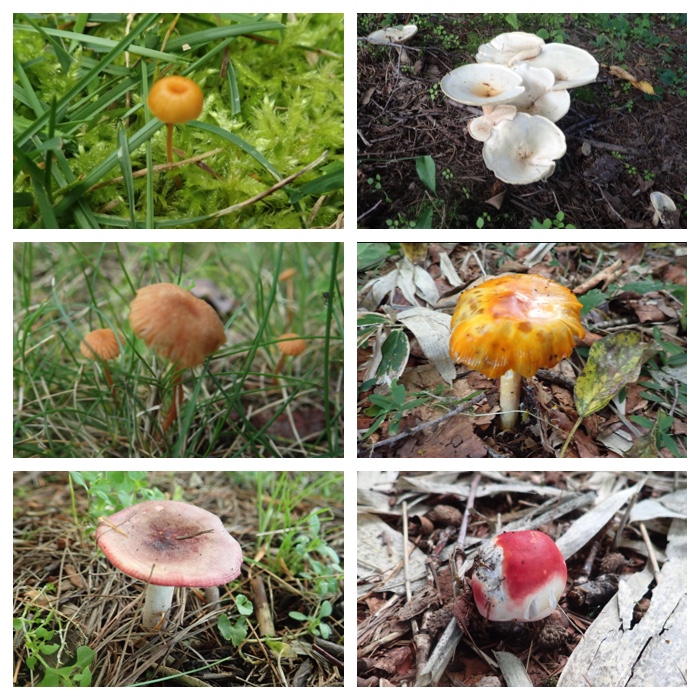
初秋のキノコ1 。
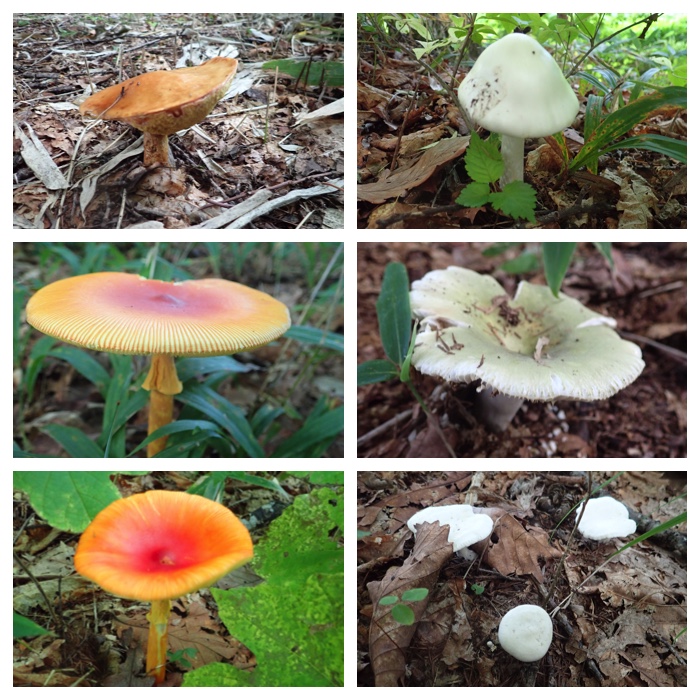
初秋のキノコ2 。
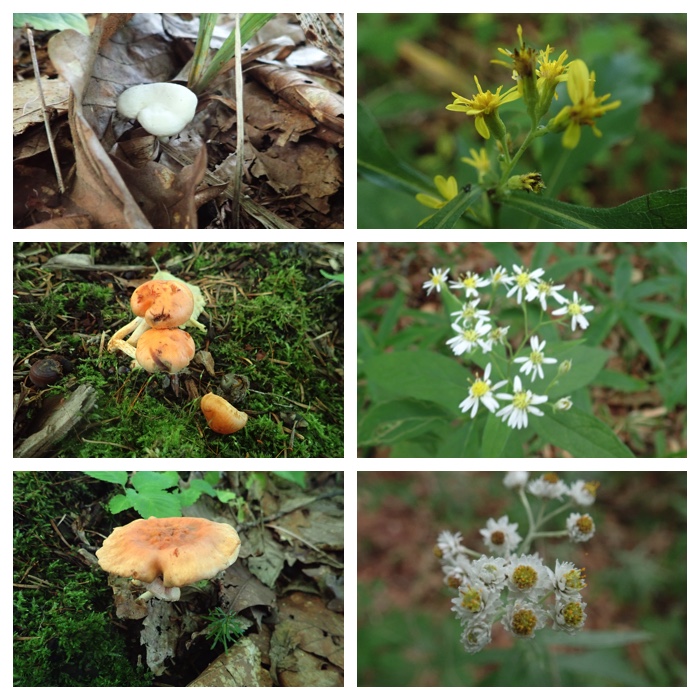
初秋のキノコと野草の花 3 。右上から、オトギリソウ(?)、エゾゴマナ(?)、ヤマハハコ
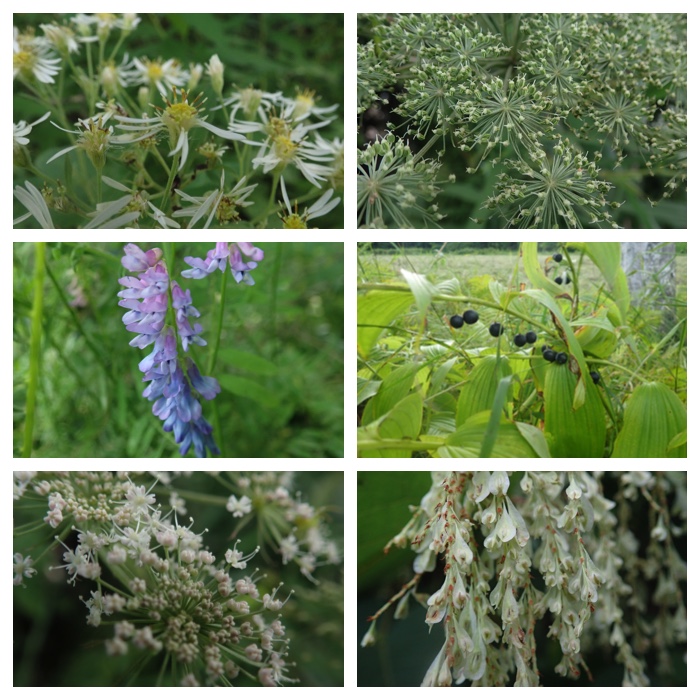
初秋の野草の花 4 。左上から、エゾゴマナ(?)、クサフジ、オオバセンキュウ、右上から、 オオバセンキュウ、オオアマドコロ、イタドリ
Skies in the early autumn in Obihiro.
帯広の初秋の空。
Upper photo was taken near the field of Obihiro University of Agriculture and Veterinary Medicine on August 31. The lower photo was taken near the pasture field of Obihiro Agricultural High School on September 1, 2018.
上の写真は8月31日に帯広畜産大学の圃場近くで撮ったもの。下の写真は9月1日に帯広農業高校の牧草地と白樺並木を撮ったもの。
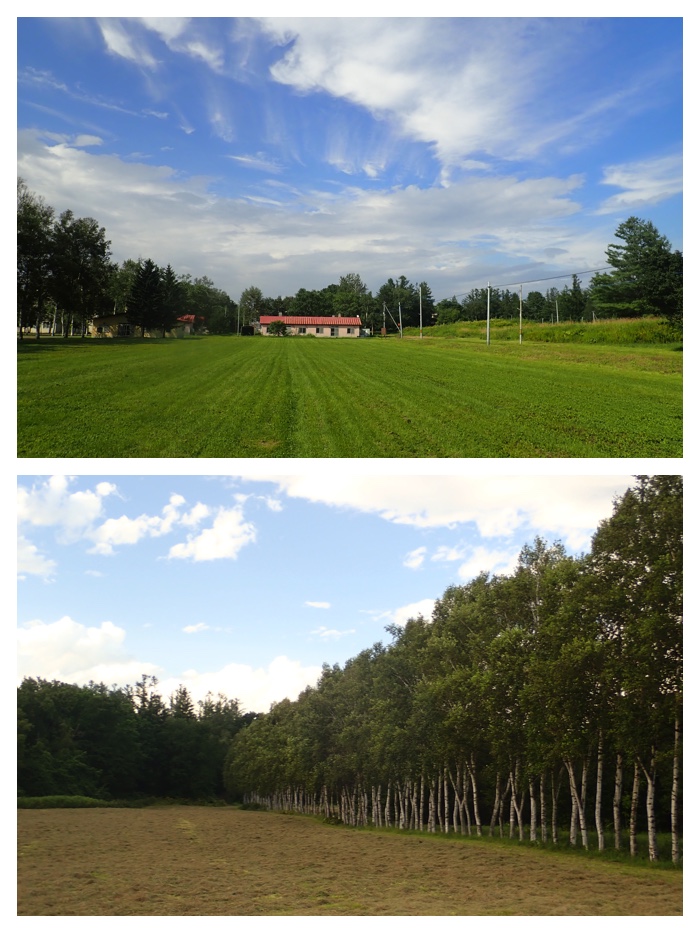
Skies in the early autumn in Obihiro. 帯広の初秋の空。
Mushroom from my garden.
わが家の庭で採れたキノコ。
On September 2, my wife harvested a mushroom from our garden. She has noticed the mushroom since several days ago and has waited till it grow large. The same mushroom emerged from the same place in these years. It is an edible mushroom, and my wife has cooked it mixed with rice. It has a good flavor and taste. The name of the mushroom is "Hatake-shimeji" in Japanese, and "Fried chicken mushroom" in English common name. The scientific name is "Lyophyllum decastes". Compared with my past contributions in this homepage, mushrooms came out more than a month earlier in this year.
9月2日に妻が家の庭からキノコを収穫してきました。彼女はもう1週間以上前からキノコが生え始めていることに気がついていて、大きくなるのを待っていました。このキノコは数年来わが家の庭の同じ場所から生えてきています。ハタケシメジという可食のキノコで、数年前からわが家では食べてきました。ご飯と一緒に炊いてキノコご飯にしていますが、香りも味もとても良いものです。過年の本ホームページへの投稿と比べると、今年は1ヶ月以上早くキノコが出てきたようです。
Mushroom from my garden. (2013.10.13)
庭に生えたキノコを食べてしまった話について(K.A.氏より)
および返信(Woodpecker)。(2013.11.14)
Mushrooms found in nearby fields and the dishes cooked from the mushroom. (2017.9.28)
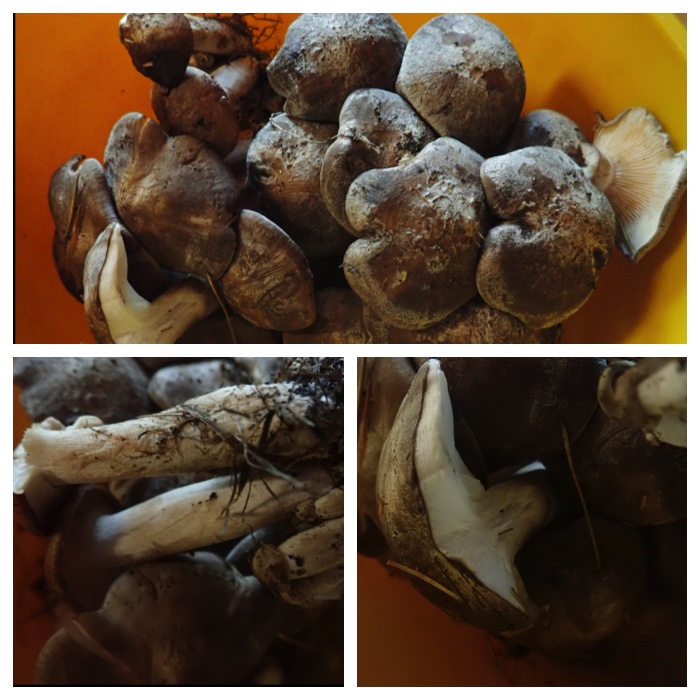
Mushroom from my garden. わが家の庭で採れたキノコ。
Potato harvest in a farmer's field in Aikoku, Obihiro.
バレイショの収穫風景。帯広市愛国町の農家さんにて。
In the experiment field in my university, we harvested the potato with our hands. In farmer's field, they use a potato harvesting machine pulled by a tractor. I could see the scene of potato harvest in Aikoku town, Obihiro.
私の大学の実験圃場ではジャガイモは手で収穫しましたが、農家さんは専用のジャガイモ収穫機で収穫します。帯広市愛国町で、ジャガイモの収穫の様子を見ることができました。
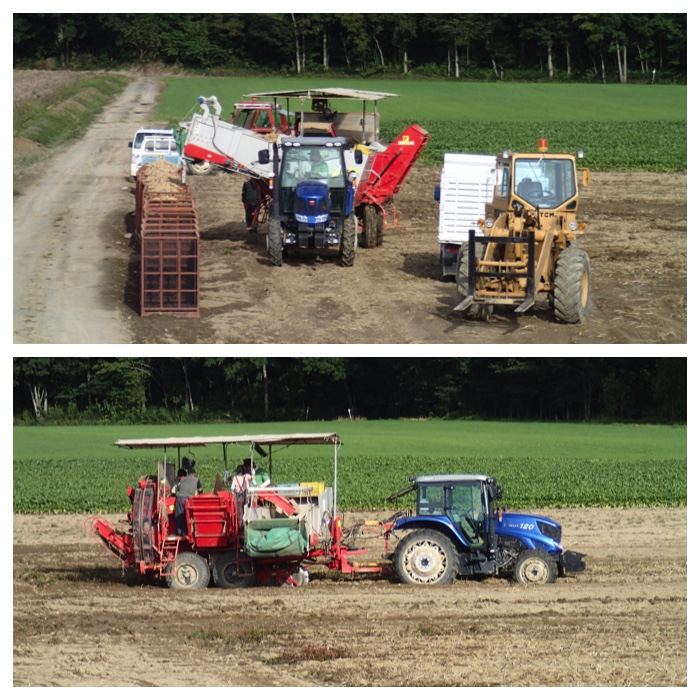
Potato harvest in a farmer's field in Aikoku, Obihiro.
バレイショの収穫風景。帯広市愛国町の農家さんにて。
Views from the eastern bank of Satsunai river in Aikoku, Obihiro.
札内川東側堤防からの風景。帯広市愛国町にて。
After visiting the Manabe garden on September 2, I rode a bicycle on the eastern bank of Satsunai river to enjoy the scenery of early autumn.
9月2日、真鍋庭園を訪問したあと、札内川の東岸の堤防をサイクリングし、初秋の風景を楽しみました。
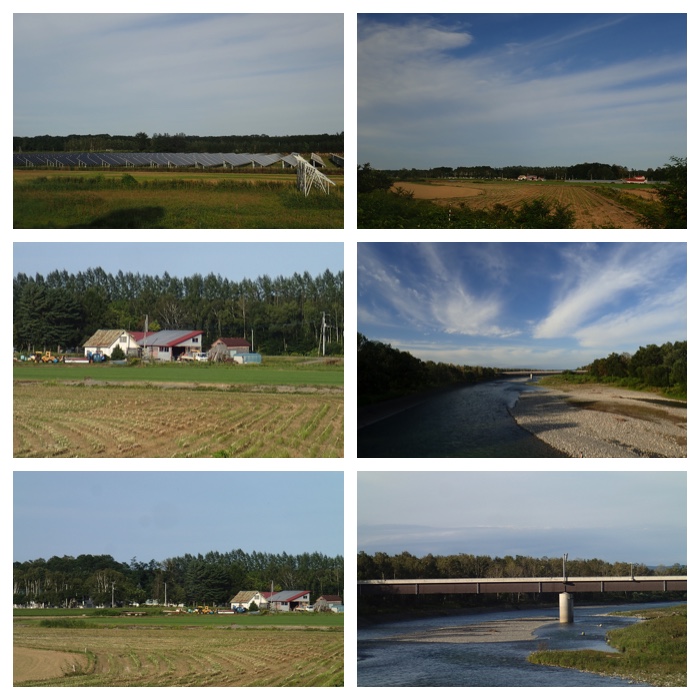
札内川東岸の堤防と南帯橋からの風景。
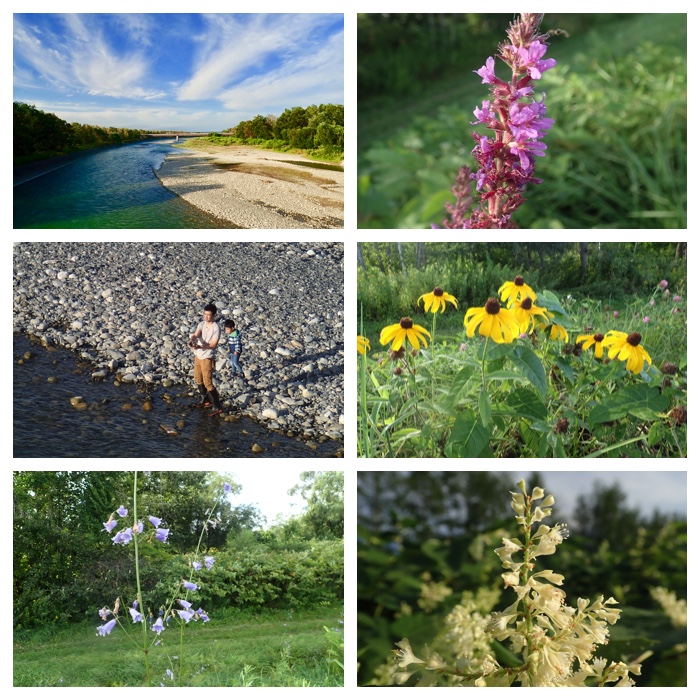
左上から、南帯橋からの風景、釣りを楽しむ親子、ツリガネニンジン、右上から、エゾミソハギ、アラゲハンゴンソウ、イタドリの花。
Early autumn in the Manabe garden, Obihiro.
初秋の真鍋庭園。
I visited the Manabe garden on September 2 to enjoy the scenery of early autumn.
9月2日、真鍋庭園を訪問し、初秋の風景を楽しみました。
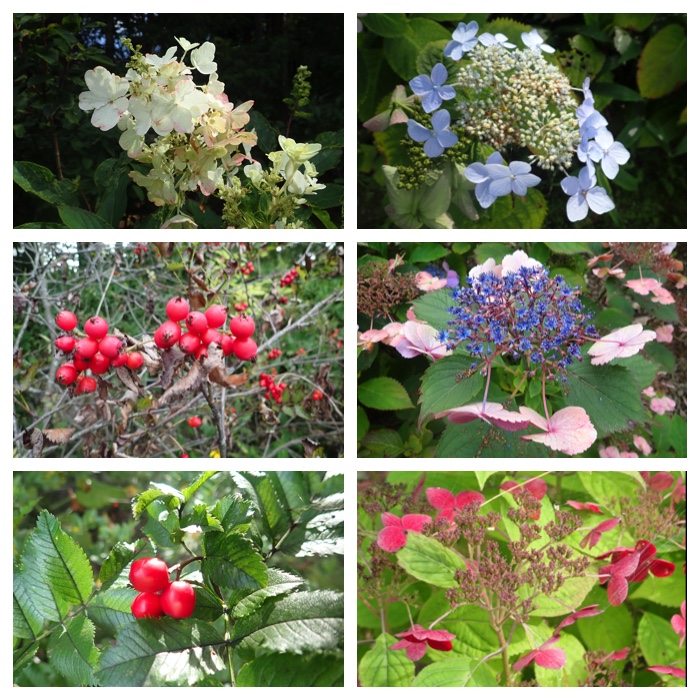
紫陽花各種とミヤマナナカマドの実。
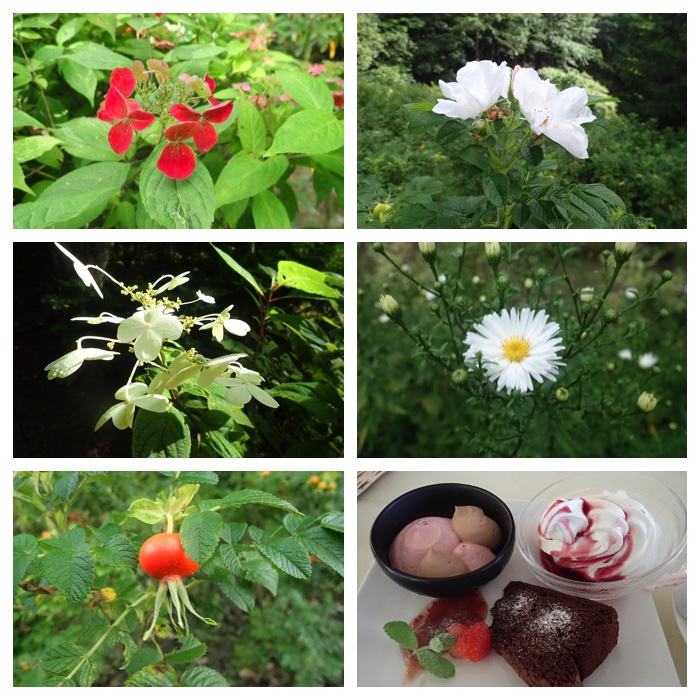
紫陽花2種とハマナスの実、白いハマナスの花、ヒナギクの仲間(詳細名不明)、グリーンカフェのスイーツプレート。
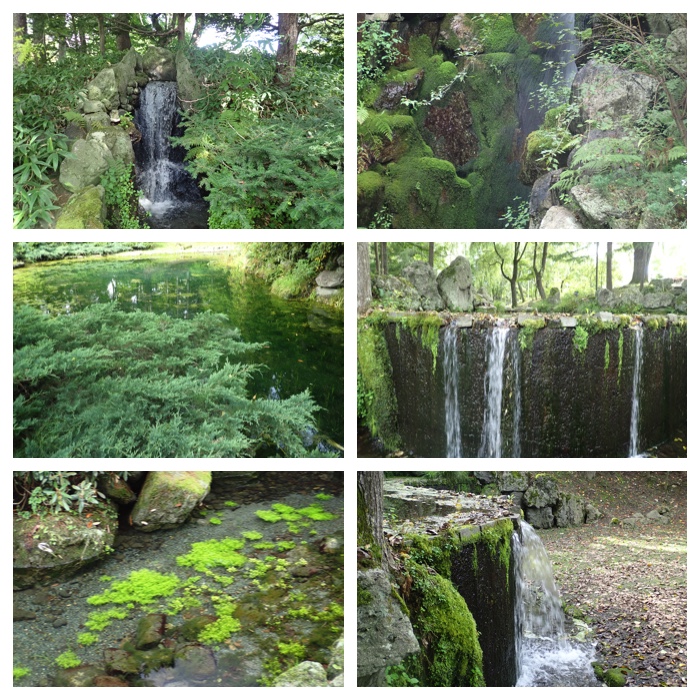
庭園内の池と滝。
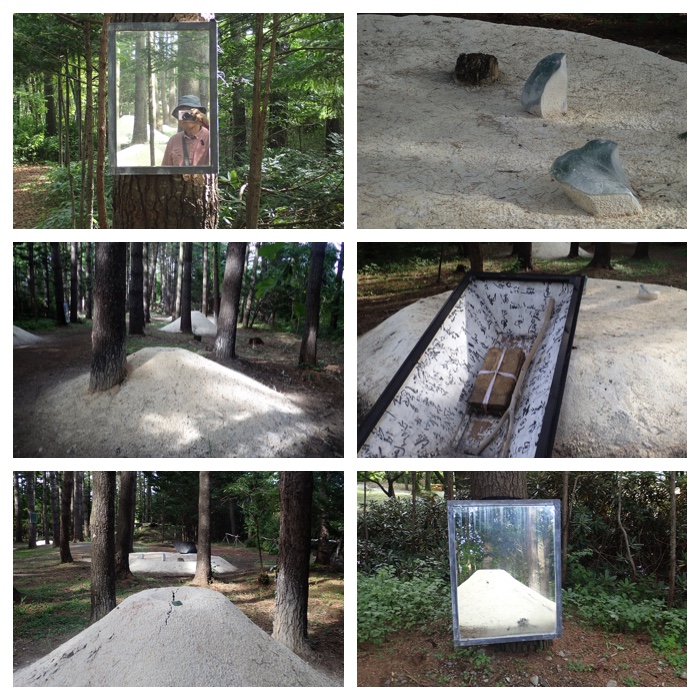
森の中のアートワーク、「シロイルカの森」。
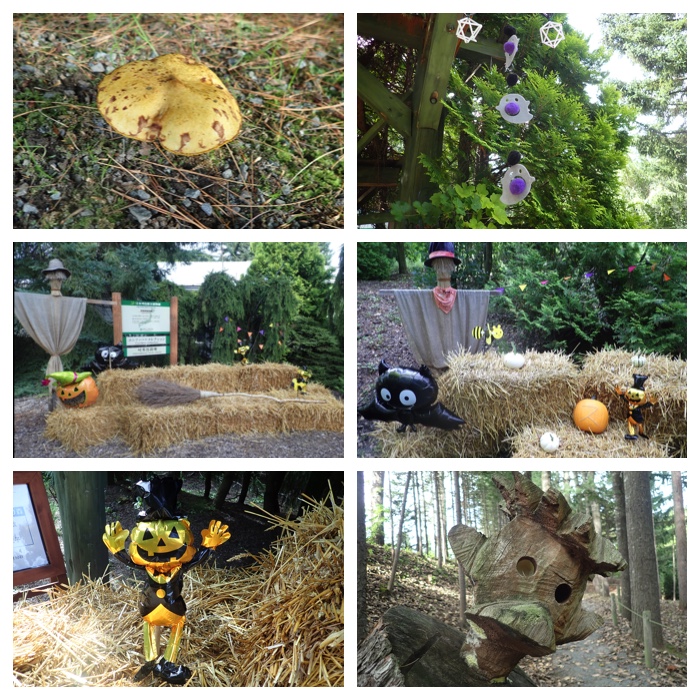
ハロウィーンの飾り。
Walk along the Kikanko river and in the forest of Agricultural High School in early September.
機関庫川沿いおよび農業高校の森の散歩。
Very big typhoon No. 21 is approaching Japan. I went out walking before it started raining on September 3. Though I am walking the same way, what I see is every time different.
超巨大級の台風21号が日本に近づいており、帯広付近でも雲行があやしくなってきました。雨が降る前に私はいつもの散歩にでかけ、機関庫川沿いと農業高校の森の中を散策しました。
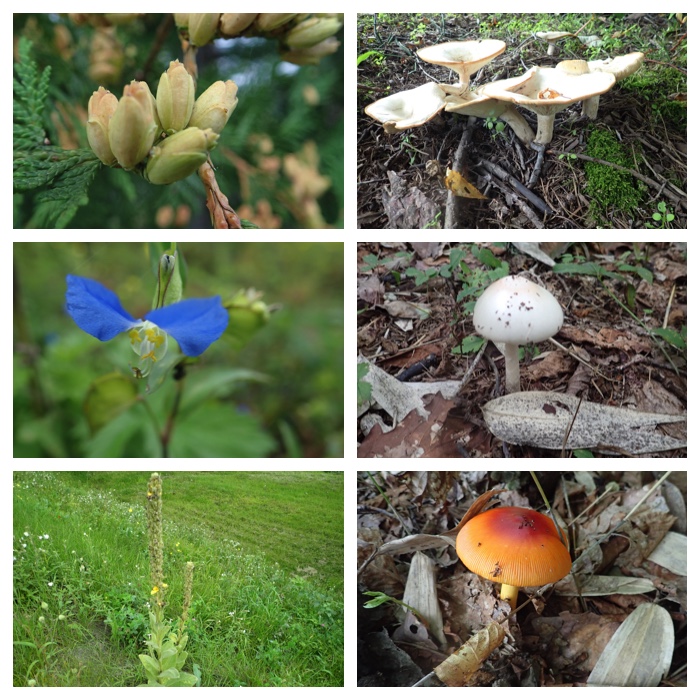
左上から、ニオイヒバ、ツユクサ、ビロードモウズイカ、右側:キノコ3種。
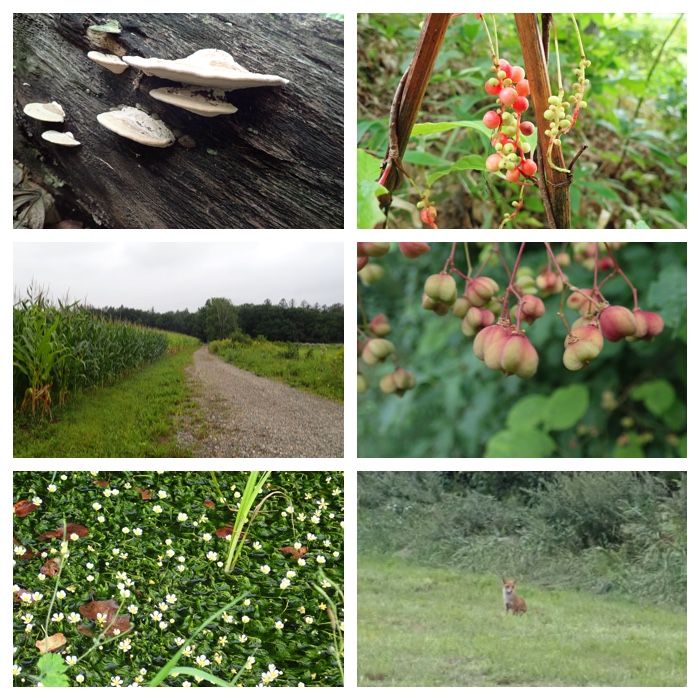
左上から、サルノコシカケ、農高の森に向かうデントコーン畑と牧草地の間の道、機関庫川の支流に咲くバイカモの花、右上から、チョウセンゴミシの実、マユミの実、牧草地の若いキツネ。
After the typhoon No.21 left.
台風21号が去って。
After the typhoon left. The peak of typhoon was in the midnight in Obihiro, Hokkaido. As the typhoon passed Japan sea very far from Obihiro, the damage was not so serious here compared with the areas in western Japan, Kobe, Osaka, Kyoto and many other places.
I thank sincerely my friends for their concern and sympathy on the typhoon damage.
The photos show my crops and plants in my garden and in the university field. A big pine tree in the campus was broken. I fixed my crops again in the afternoon.
台風21号が去って。台風の雨と風のピークは帯広付近では深夜から未明にかけてでした。台風は帯広から離れた日本海上の進路をとったので、西日本各地、神戸、大阪、京都などと比べると、帯広での被害は軽微でした。メール、SNS等で心配してくださった海外の友達に心よりお礼申し上げます。下の写真は大学のキャンパス、実験圃場、わが家の庭で撮ったものです。キャンパスの生協北の森では大きな松の木が根本から折れていました。今日の午後は私が栽培している作物、花豆、スイートコーン、家のミニトマトなどを支柱に固定して元に戻しました。
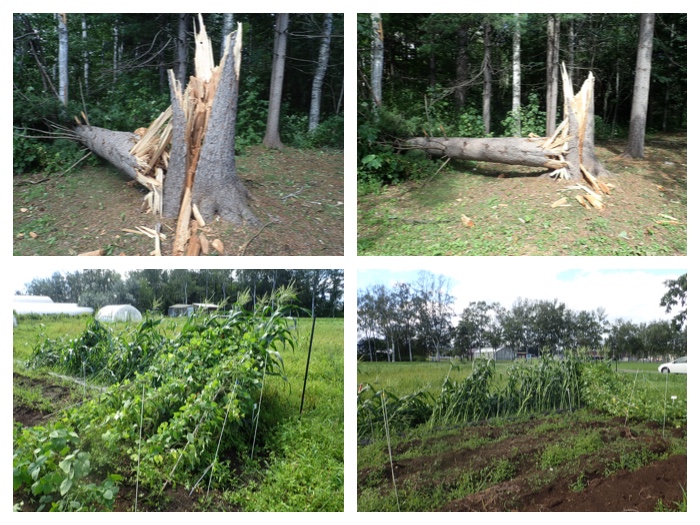
上2枚、倒れた松の木、下:大学の圃場の花豆とスイートコーン。
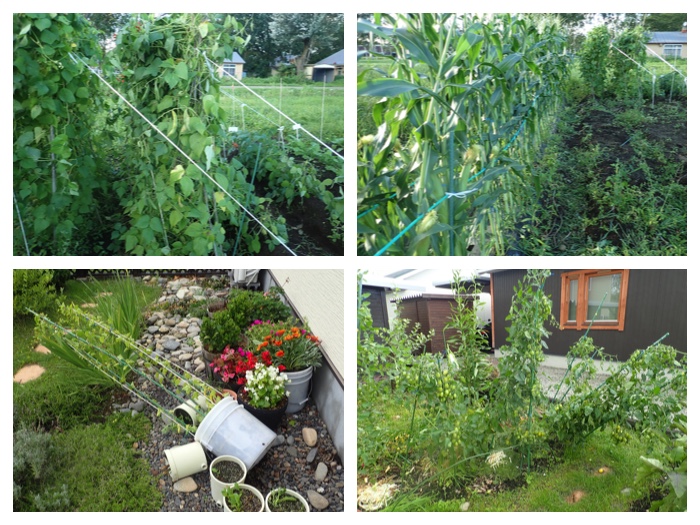
上2枚、支柱やヒモで固定した花豆とスイートコーン。、下:家のプランターとミニトマト(今朝の様子)。
Outbreak of gigantic earthquake in Hokkaido just after the typhoon No.21 left.
台風21号が去った翌日に北海道胆振東部地震が発生。
After the typhoon No. 21 left in the morning of September 5, we had a very fine day. However, a very big earthquake occurred at Atsuma town in the south western coast of Hokkaido at 3 a.m. on September 6. As the center of the earthquake (epicenter) was more than 100 km far from Obihiro, we were safe from the direct earthquake damage, though we suffered from the power break for 2 days.
The direct damage was extremely serious in Tomakomai, Sapporo, and the surrounding area. The earthquakes are still occurring in those areas (aftershock). The largest thermal power plant in Hokkaido was located very close to the epicenter, and stopped immediately after the outbreak of the earthquake. It was also partially damaged, and the recovery of which requires some more period.
台風21号が去って、9月5日と6日は非常に良いお天気となりました。しかし9月6日の未明、午前3時頃、北海道南西部の厚真町で大地震が発生しました。震源は帯広から100km 以上離れていたため、帯広では直接的な被害はありませんでしたが、2日間にわたって停電が続きました。
地震の直接的な被害は苫小牧、札幌およびその周辺の地域で甚大でした。余震はまだこれらの地域で続いています。北海道で最大の火力発電所、苫小牧東発電所が震源のすぐ近くに位置しており、地震発生の直後に運転を停止しました。その復旧にはまだ日にちがかかると言われています。
わが家では夫婦ともにスマホやiフォンなどを所持しておらず、日頃の情報源はテレビと私のパソコン、そして妻のガラケーのみでした。停電とともにWi-Fiも止まったので、インターネットは使用できず、もちろんテレビもつきません。妻のガラケーも6日の午後には電池切れとなり、メールの受信も送信もできなくなりました。
そんななか、妻は両隣の奥様たちとお話するなかで、いろいろな情報を得てきてくれました。3人寄れば文殊の知恵とかいいますが、女の人が3人寄れば最強ですね。わが家になかった携帯ラジオも、お隣が2台持っていたからとのことで、貸して頂くことができました。しかし停電の回復のスケジュールについは全く情報が無く、7日の深夜に回復するまでわかりませんでした。
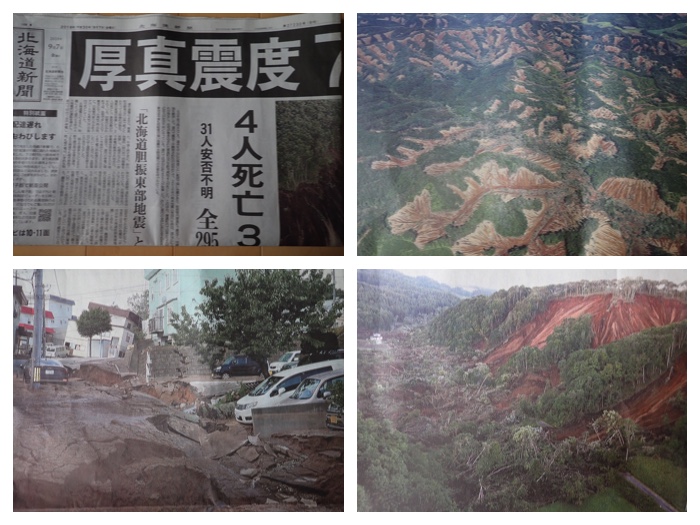
地震発生を報道する9月7日の北海道新聞朝刊。 Hokkaido Newspaper on September 7, morning.
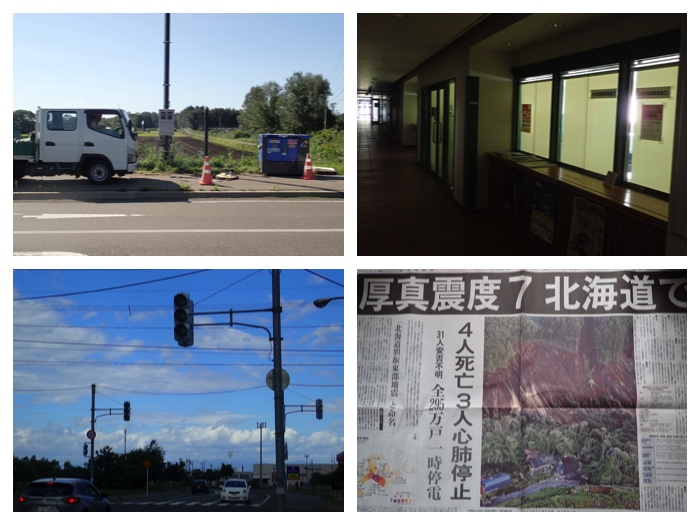
9月6日午前中のわが家近くの様子。1:非常用電池で水道水を送るポンプに給電しているところ、2: 閉まっていた大学の事務室、3: 点灯しない信号、4: 北海道新聞
An emergency battery was operated to work a water pump to supply tap water to houses. Thanks to the staffs of waterworks station for keeping the water supply for us. I went to the university on foot to get any information, but the office was closed. There was no light on the street signals.
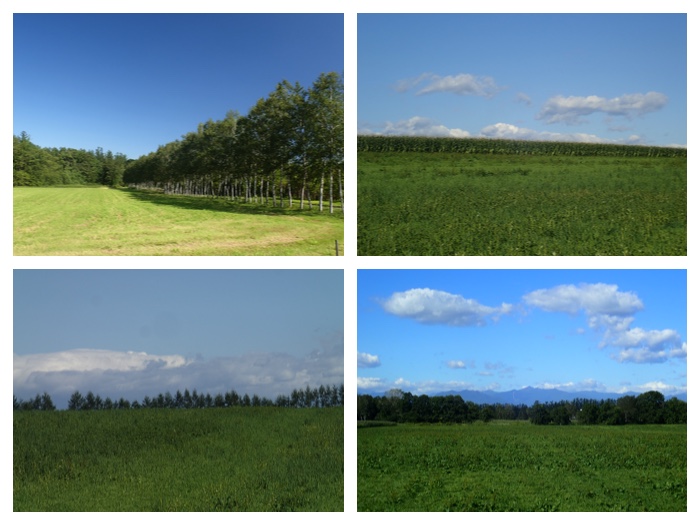
農業高校と畜大(右下1枚)の圃場と空。Field and sky.
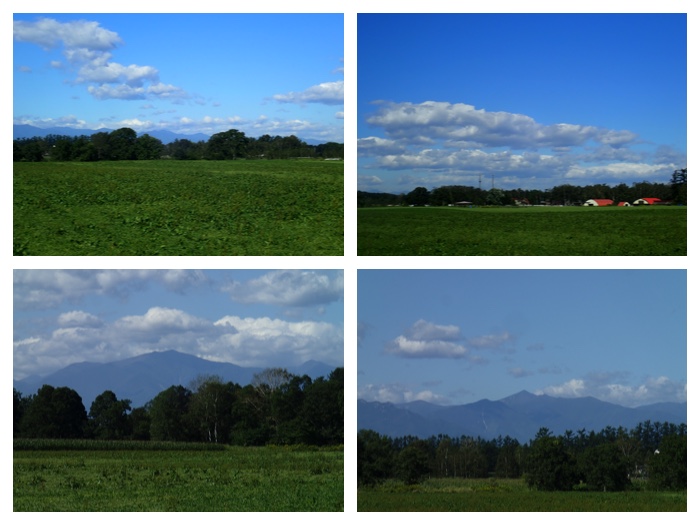
畜大の圃場越しに見た日高山脈。Hidaka mountain range beyond the field of OUAVM.
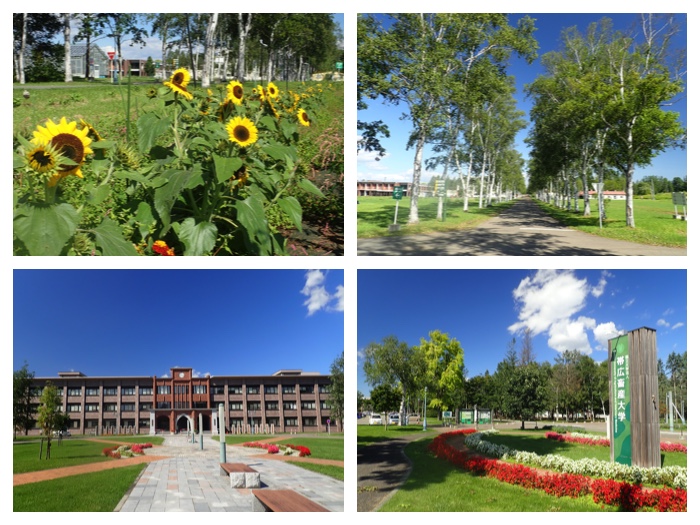
9月6日の帯広畜産大学キャンパス。Campus of OUAVM on September 6, morning.
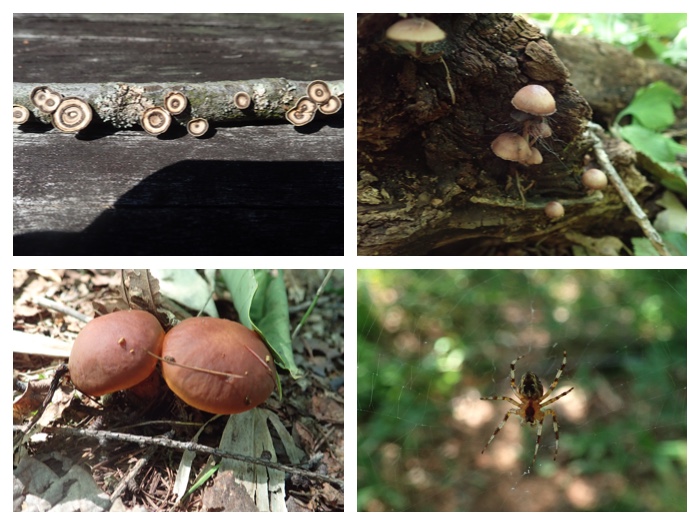
農業高校の森の中。In the forest of agricultural high school.
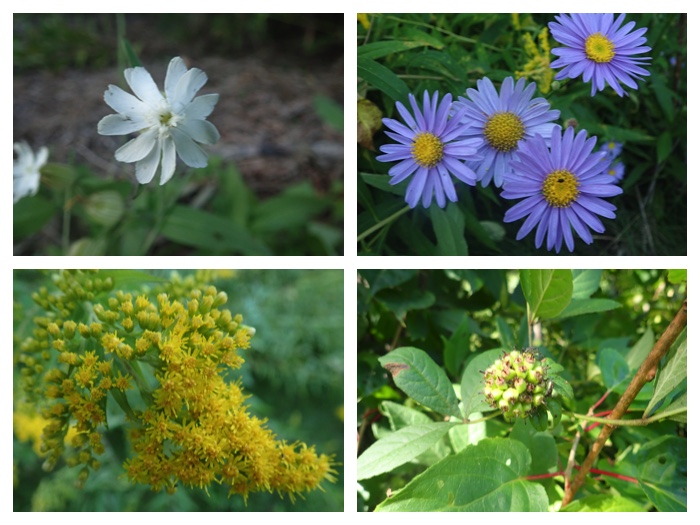
散歩中見かけた植物。Plants seen along the evening walk.
左上から、マツヨイセンノウ、オオアワダチソウ、右上から、エゾノコンギク、エゾウコギ(?)
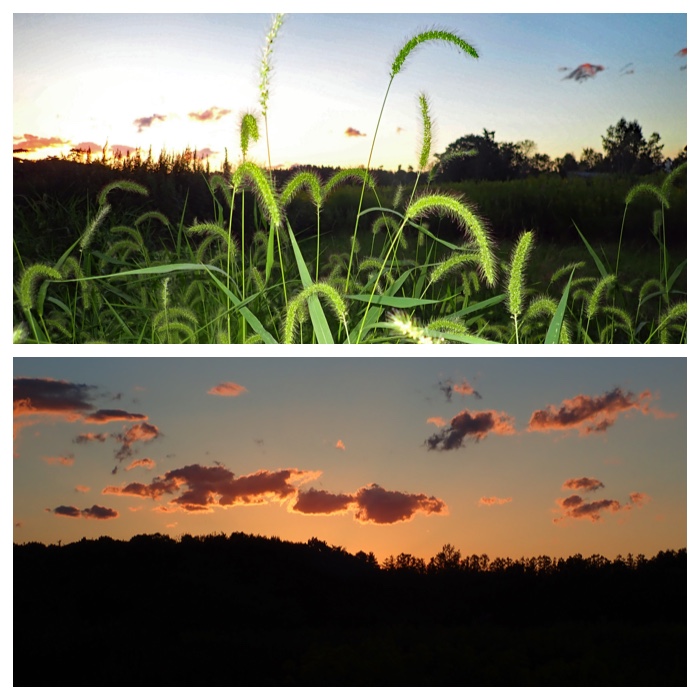
9月6日、機関庫川沿いの夕暮れ。Sunset scenes along the Kikanko river on September 6.
Views along my walking way. Mountains, trees and a small stream.
散歩道の風景。山、木立、小川。
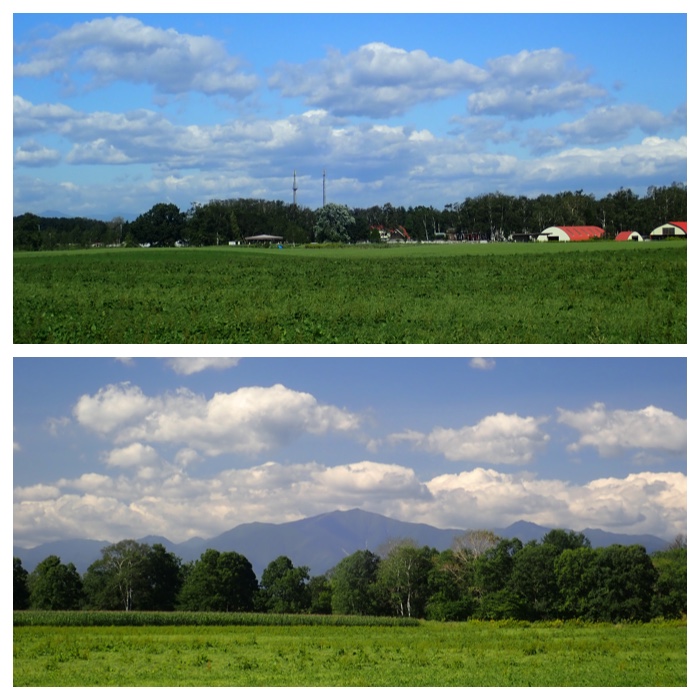
Tokachi-Poroshiri mountain and a pasture field of OUAVM.
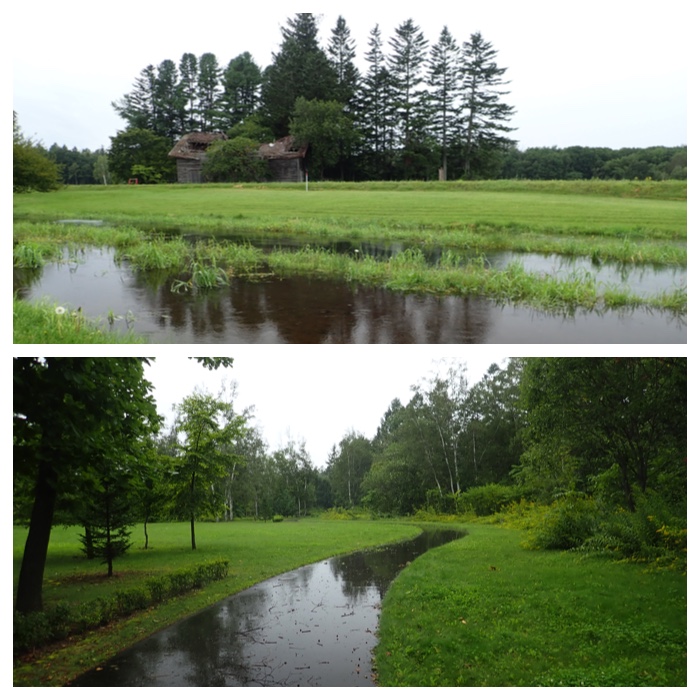
Kikanko river and my walking path in a park.
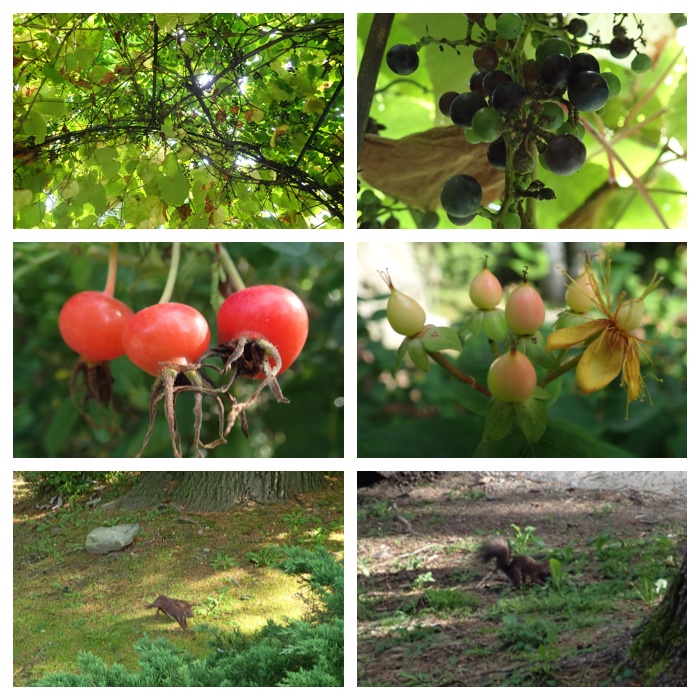
Manabe garden on September 12, 2018.
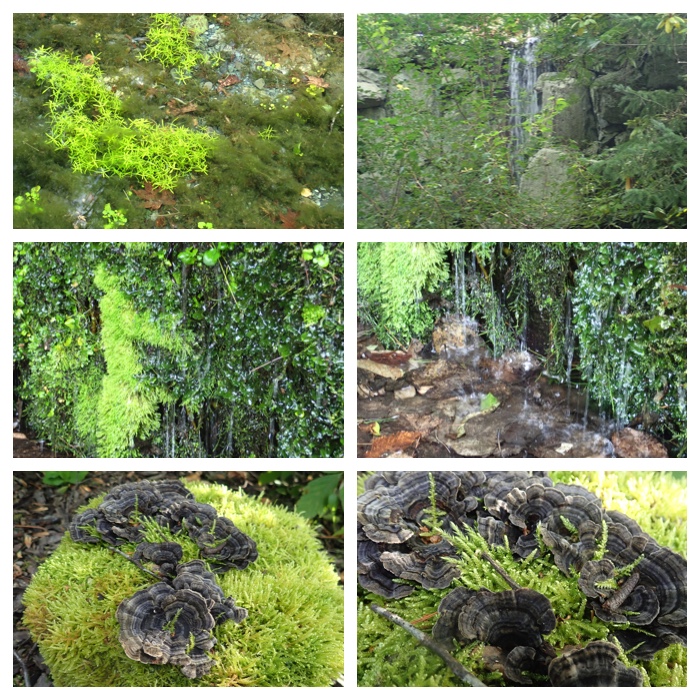
Manabe garden on September 12, 2018.
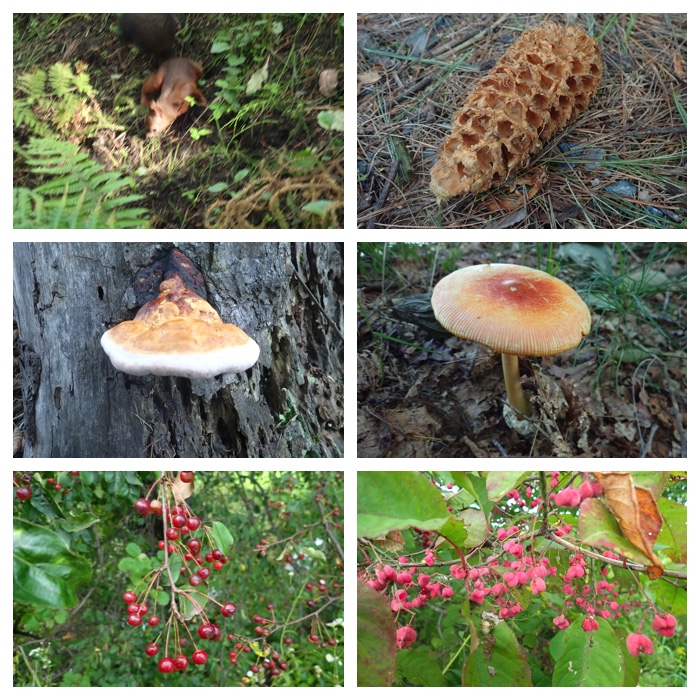
Manabe garden on September 12 and my routine walk on September 13, 2018.
Views of farmers' fields in southern Obihiro in the harvest season.
収穫の秋を迎えた帯広市南部の農地の風景。
View of agricultural fields in southern Obihiro. In the afternoon of September 14, I rode my bicycle to Shichiku garden around 15 km far from my house. I could enjoy nice views of farmer’s fields. Now, harvest of potato and onion are in process. Soy bean, adzuki bean, sugar beet, and Chinese yam are remaining in the fields.
帯広市南部の農地の眺め。9月14日の午後は自転車に乗って、家から15 km ほど離れた紫竹ガーデンに行ってみました。途中、収穫期を迎えた農地の眺めを楽しむことができました。今はジャガイモと玉ねぎの収穫が進んでいます。大豆、小豆、テン菜、長芋などはまだ収穫されずに農地に残っています。
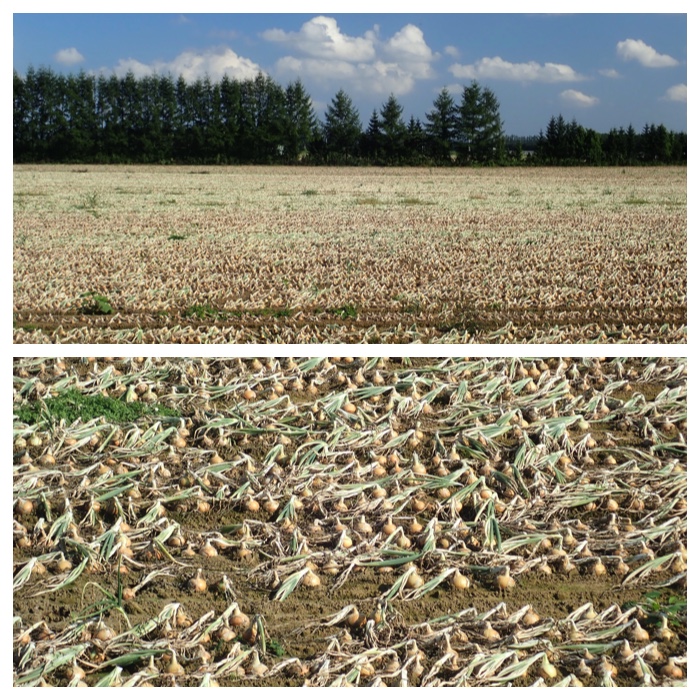
Onion field.
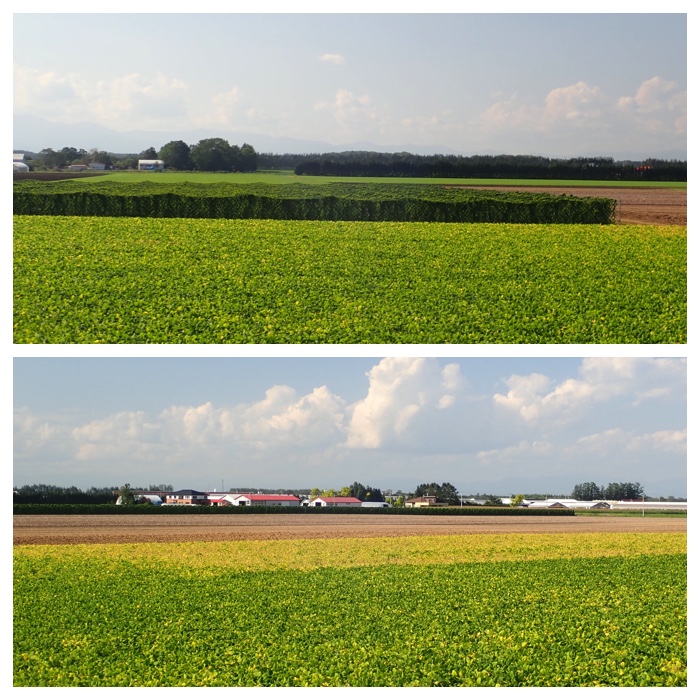
Chinese yam and soy bean field.
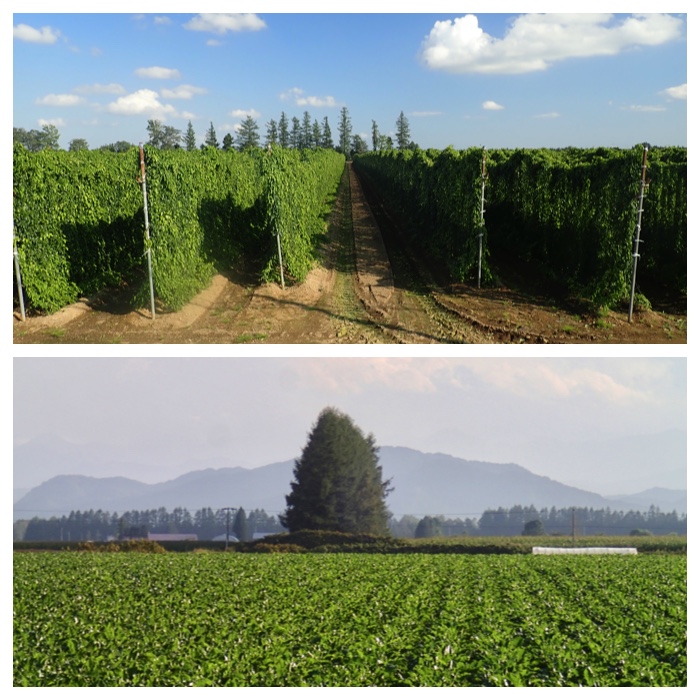
Chinese yam and sugar beet field.
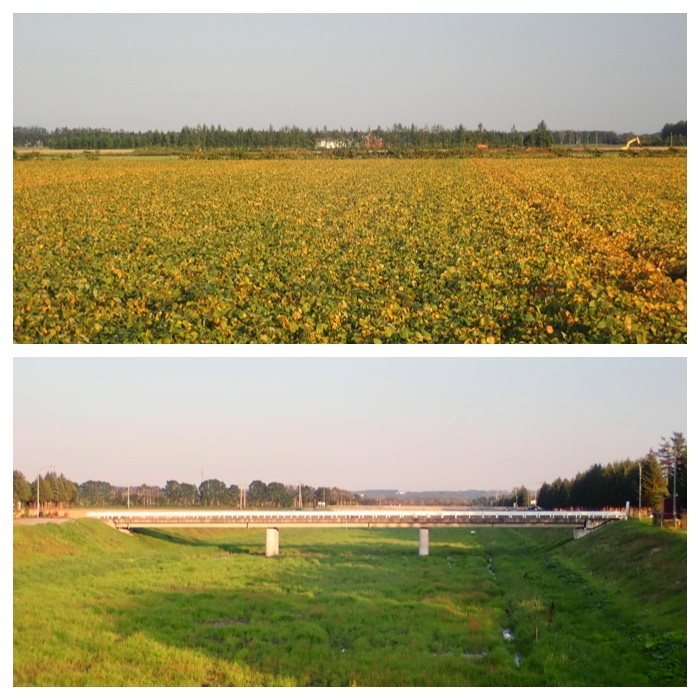
Soy bean field and the bypath of Urikai river for preventing the flood.
Shichiku garden in the early autum.
初秋の紫竹ガーデン。
In the afternoon of September 14, I rode my bicycle to Shichiku garden around 15 km far from my house. It was the first time to go there by bicycle. It took around 90 minutes from my house. Side walk way in the rural area is damaged and covered with weeds, not comfortable for bicycle riders. Shichiku garden was nice with many decorations and flowers in autumn.
9月14日の午後は自転車に乗って、家から15 km ほど離れた紫竹ガーデンに行ってみました。自転車で紫竹ガーデンに行ったのは初めてでした。車なら20分くらいで行けるのですが、自転車だと90分くらいかかりました。紫竹ガーデンは秋のデコレーションや花々できれいでした。
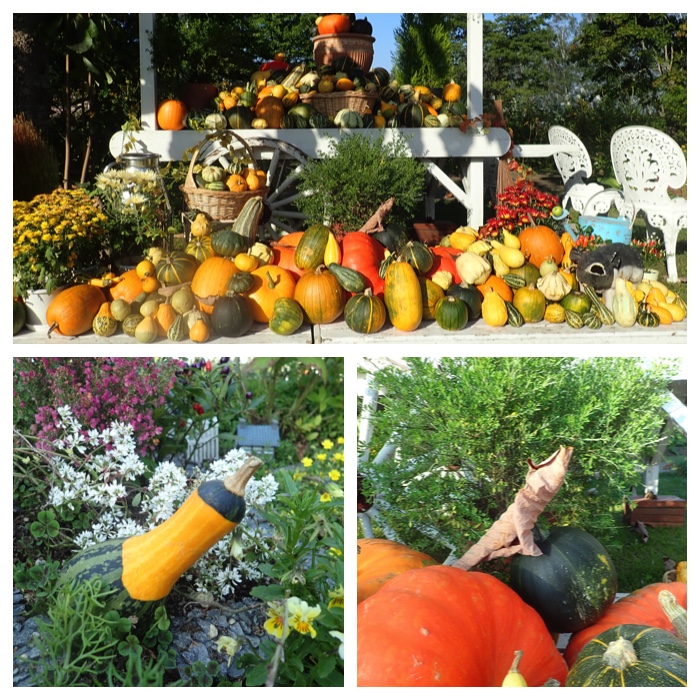
Autumn decorations.
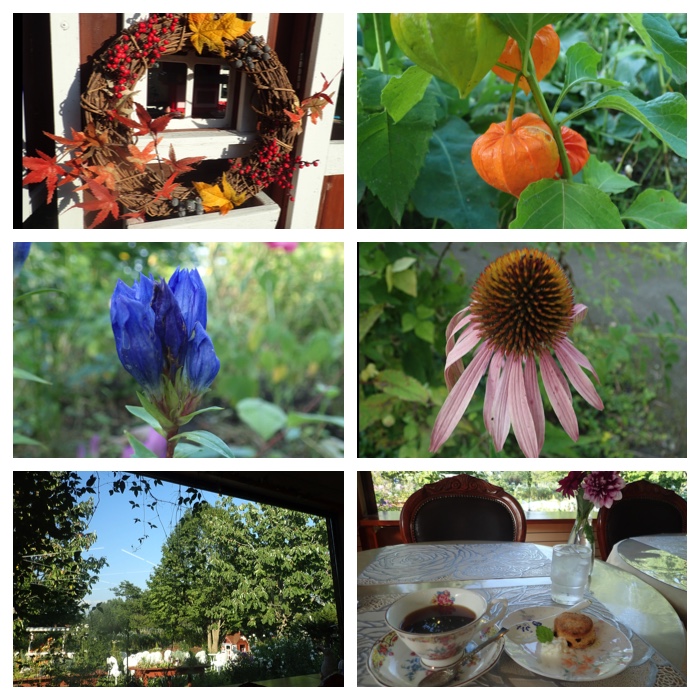
Autumn decorations and tea room.
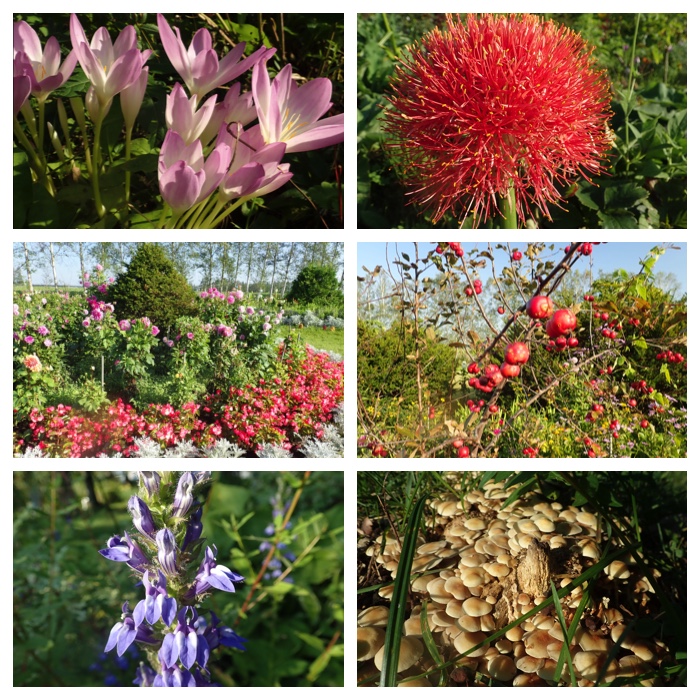
Autumn flowers.
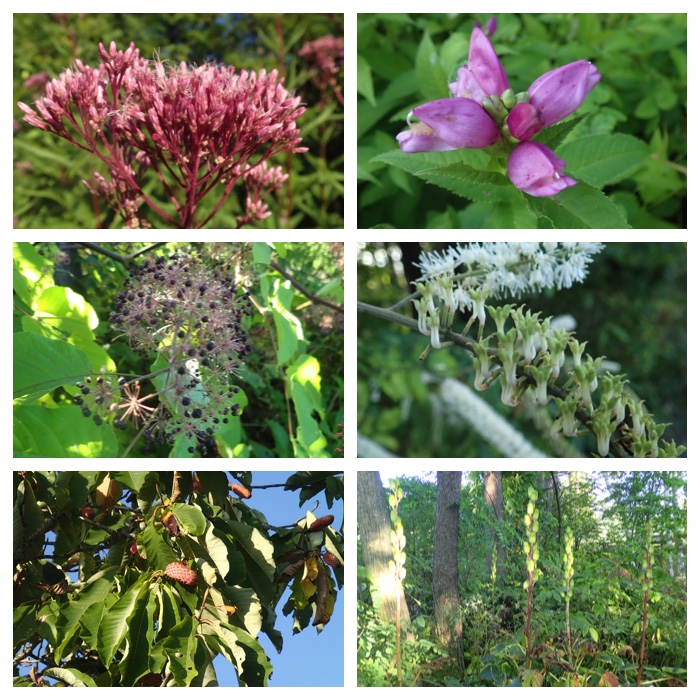
Autumn flowers.
View from the western bank of Satsunai river and "Mori no Yama" in the forest of Obihiro.
札内川西岸堤防および帯広の森「もりの山」からの眺め。
I walked along the western bank of Satsunai river on September 18. Sky was blue and the air was refreshing. I also visited "Mori no Yama" in the forest of Obihiro on September 21 to enjoy the nice view under the blue sky.
9月18日の午後は空がきれいなので札内川の西側の堤防を散歩しました。暑くも寒くもなく気持ちよく歩くことができました。おなじく晴天の下、9月21には帯広の森の「もりの山」を訪れました。
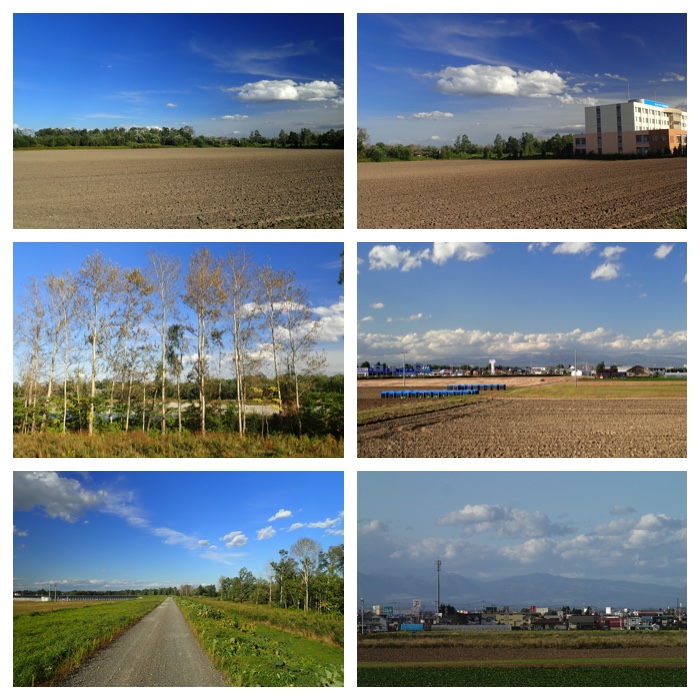
Western bank of Satsunai river.
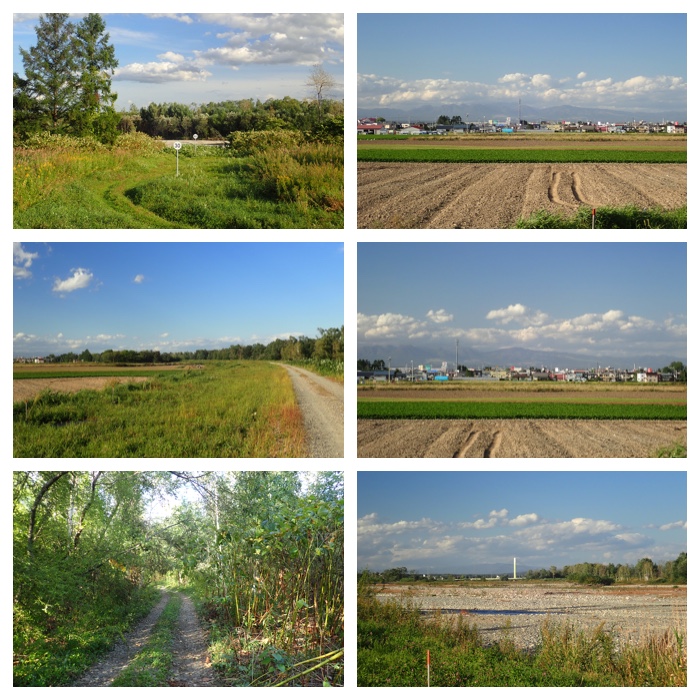
Western bank of Satsunai river.
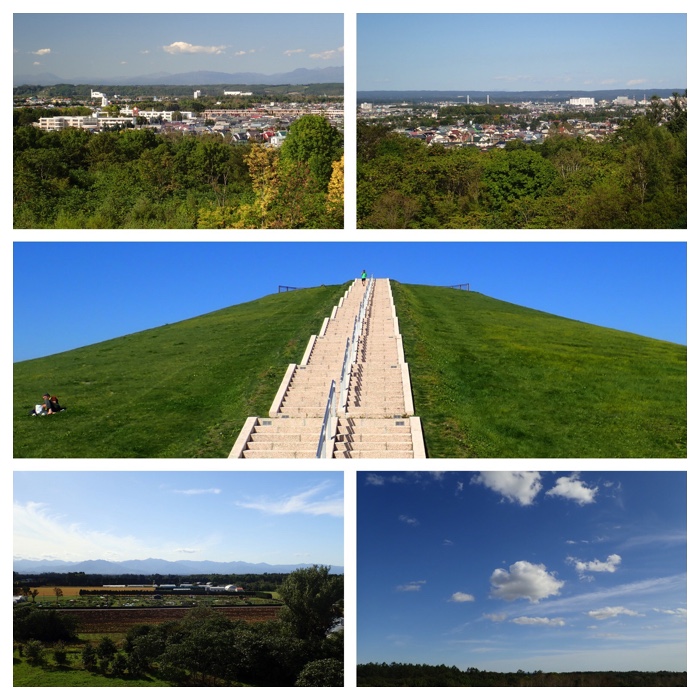
"Mori no Yama" in the forest of Obihiro.
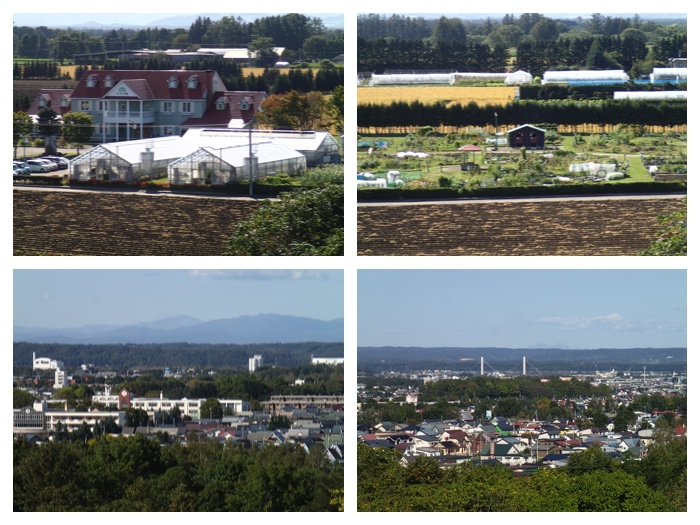
"Mori no Yama" in the forest of Obihiro.
Scenes of middle autumn in Seiryu, Obihiro.
帯広市清流地区の中秋の風景
Skys in the evening on September 20 and 23. Photos of moon on both dates are included. These moons corresponded to 11th day and 14th day in the moon age. Full moon on the 15th day was too cloudy to take a photo. Color of tree leaves have started to change yellow and red. Insects have become slow in their action due to low temperature.
9月20日と23日の夕刻の空と同じ日の月の写真。月齢は11日目と14日目(待宵月)にあたります。十五夜の日は曇っていて月の写真は撮れませんでした。2番目の写真セットは真鍋庭園での紅葉、3番目の写真セットはガガイモの写真とシマハナアブ、家の玄関前で見つけたツノアオカメムシの写真です。
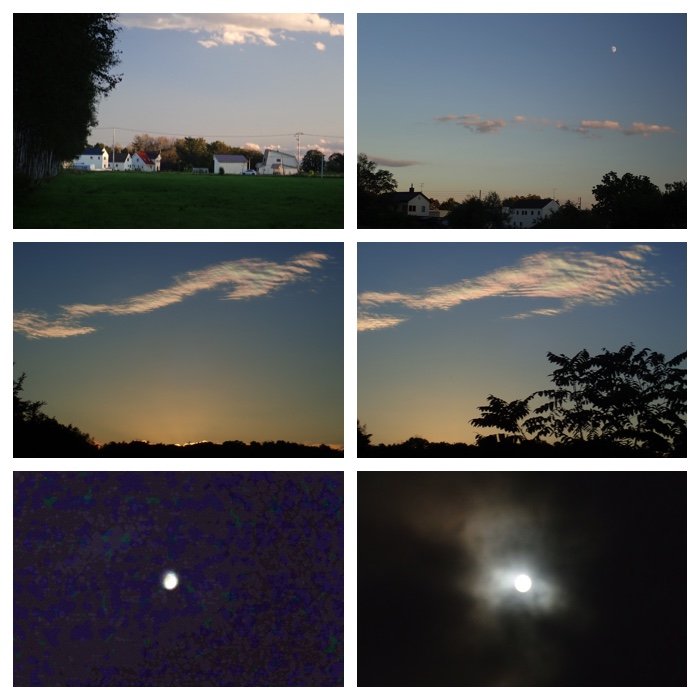
Skys in the evening on September 20 and 23. Photos of moon on both dates are included. Upper two photos were taken at 17:05-06 on September 20. Middle line photos were taken at 17:08-09 on September 23. Lower two moon photos were taken at 18:42:50 and 18:45:35 on September 23.
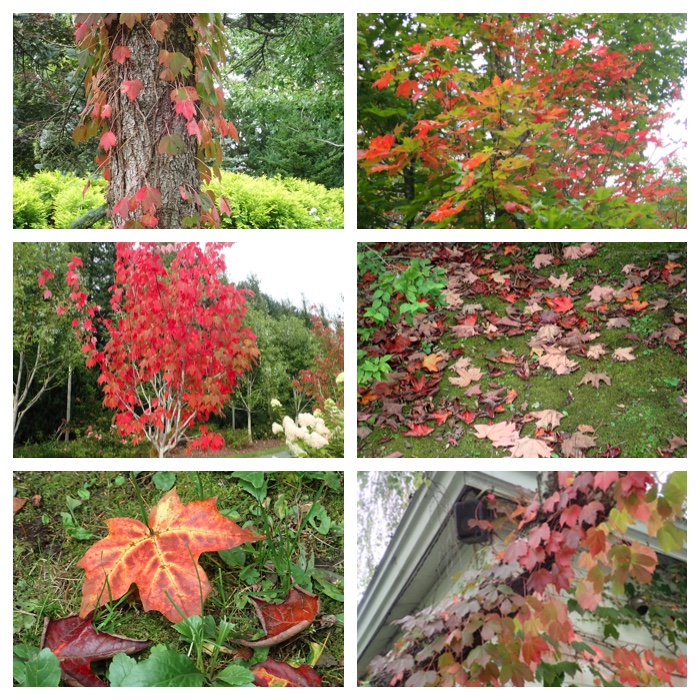
Leaves of Norway maple and ivy have turned red in Manabe garden.
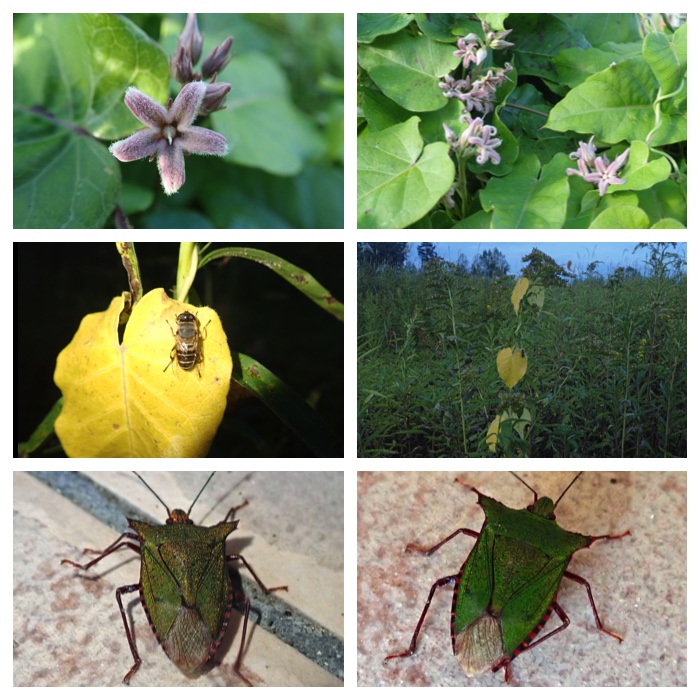
A weed plant, "Metaplexis japonica", and a beautiful stinkbug found in front of my house door.
Fruits and seeds of trees in autumn.
秋の木の実
Photos of autumn tree seeds seen during my routine walk have been uploaded.
毎日の散歩の途中見かけた秋の木の実の写真です。
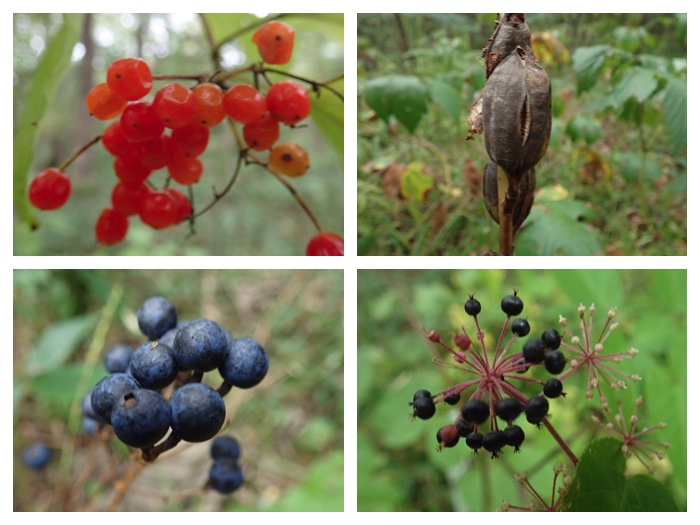
左上から横方向に、カンボク、オオウバユリ、ルイヨウボタン、ウド
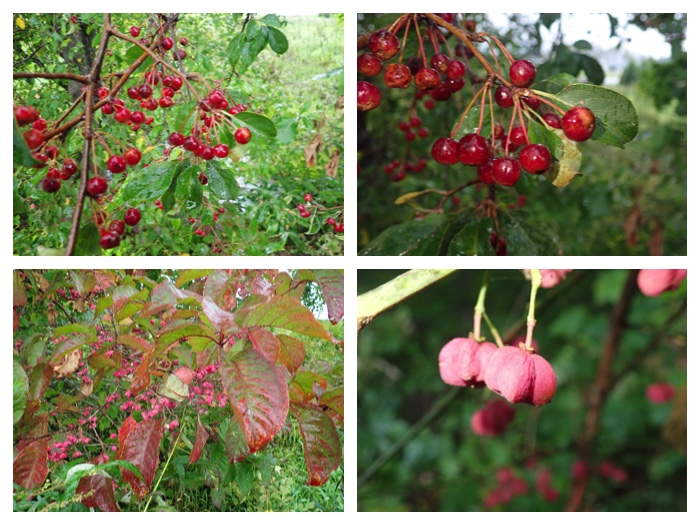
左上から横方向に、ズミ、ズミ(接写)、マユミ、マユミ(接写)
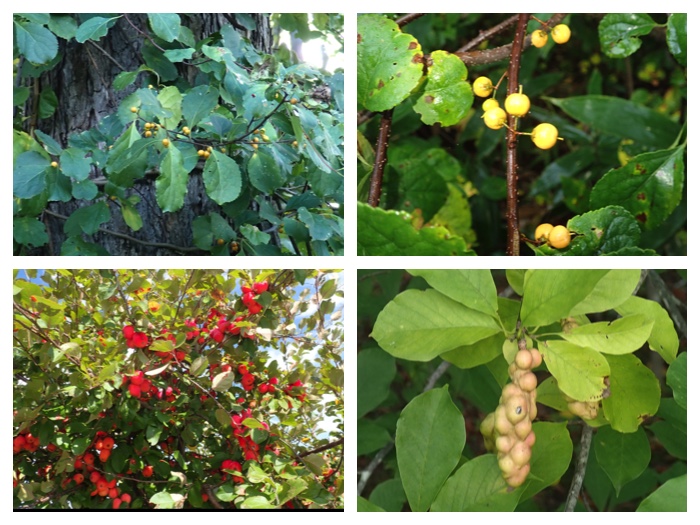
左上から横方向に、ツルウメモドキ、ツルウメモドキ(接写)、ヒメリンゴ、キタコブシ
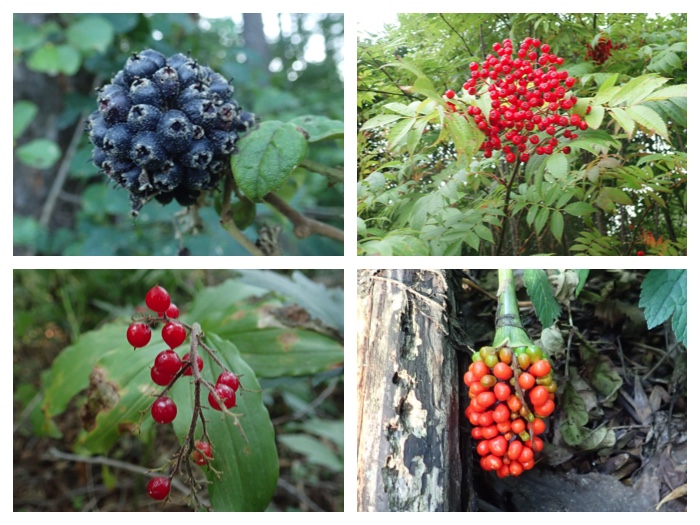
左上から横方向に、エゾウコギ 、ナナカマド、ユキザサ、コウライテンナンショウ
Elm tree and the history of land development in Obihiro.
ハルニレの木と帯広開拓の歴史
A 200 years old elm tree near the Inada water pump station, and a big elm tree with many combined tree trunks near Kikanko river. Monuments of pioneers from Sakauchi village, Gifu prefecture, settled in Kawanishi village, and an another monument in the campus of OUAVM, praising the pioneer land owner who offered his land to Obihiro Agricultural High School and OUAVM. How are they related each other?
When the elm tree near the Inada water pump station started to grow, no people from the main island of Japan lived in this place. Later, people settled in this place cut the trees around this tree. Therefore, this tree could spread its branches and twigs widely from its very thick trunk with around 3 m diameter.
On the other hand, when I saw the elm tree near the Kikanko river, I wondered why this tree has so many combined trunks. A curator of the Obihiro Centennial Museum, Mr. Ikeda, taught me that this tree should have been cut once. After being cut, many new stems grew again from the stump and grew big again. Many trunks from the stump were combined together and formed the present tree.
When this elm tree was cut once? It should have been the age when people settled in Kawanishi village around 120 years ago. In 1897 (Meiji 29), people from the Sakauchi village in Gifu prefecture, central Japan, settled in this place. One or two years ahead, Mr. Nakamura from Fukui prefecture, central Japan, also settled in this place, and started clearing the forest and cultivating the land. The land cultivated by the family of Mr. Nakamura was later-on donated to Obihiro Agricultural High School and the Obihiro University of Agriculture and Veterinary Medicine.
稲田浄水場の隣の樹齢200年のハルニレの木と機関庫川のほとりのたくさんの幹が寄せ集まったハルニレの木。岐阜県坂内村から帯広市川西村に入植した人たちの渡道百年記念碑と、帯広畜産大学と帯広農業高校に用地を提供した初期開拓者の顕彰碑。これらはどのように関係しているのでしょうか?
稲田浄水場の隣のハルニレの木は樹齢200年ですから、この木が生え始めた頃には、まだ和人はこの土地にほとんど住んでいませんでした。この木は直径3メートルほどもある太い幹からたくさんの枝が広く拡がっています。入植者によって周りの木々が切られたことによって、残されたこの木は枝を広く拡げることができたのでしょう。
他方、機関庫川の辺りの幹がたくさん寄せ集まった大きなハルニレの木を見て、どうしてこのような生え方をしているのか不思議に思っていたところ、百年記念館学芸員の池田さんが、いったん切られたためだろうと教えてくださいました。いったん切られたあと切り株から再びひこばえが生えて大きく育ち、お互いに密着してこのように寄せ集まったもののようです。
それでは、このような大きなハルニレの木がいったん切られたのはいつのことかというと、川西村に人々が入植した時代(約120年前)ということになります。明治29年に岐阜県坂内村からの人々がこの地に入植しました。この年に「北海道国有未開地処分法」という法律が施行され、移住者1戸あたり5ヘクタールの未開拓地が貸し与えられ、その土地を5年以内に開拓し終えた移住農家には無償でその土地が与えられるという法律です。そのため、この期間に森林の伐採が急激に進みました。またその少し前に福井県平泉寺村出身の中村善右衛門という人が同じく川西村に入植し現在の農業高校付近の土地を開拓しました。その後、中村家の開拓地は帯広農業高校に提供され、さらに帯広畜産大学に分譲されることになりました。
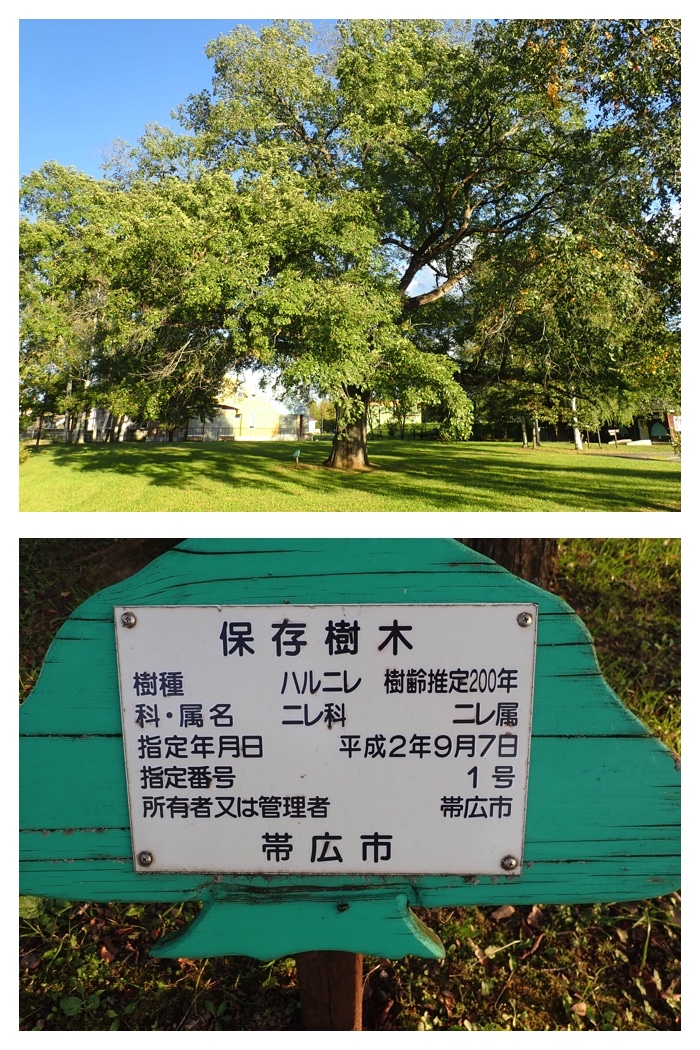
A 200 years old elm tree near the Inada water pump station.
稲田浄水場の隣の樹齢200年のハルニレの木。
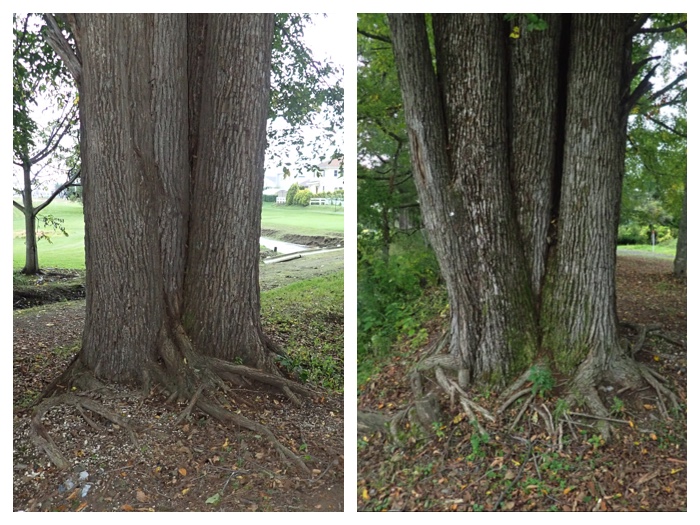
A big elm tree with many combined tree trunks near Kikanko river.
機関庫川のほとりのたくさんの幹が寄せ集まったハルニレの木。
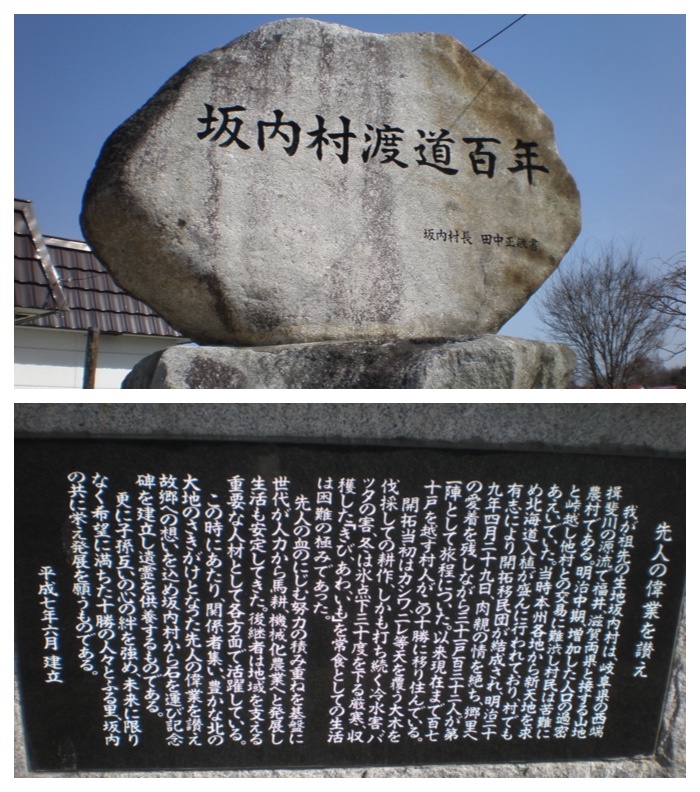
Monuments of pioneers from Sakauchi village, Gifu prefecture, settled in Kawanishi village.
岐阜県坂内村から帯広市川西村に入植した人たちの渡道百年記念碑。
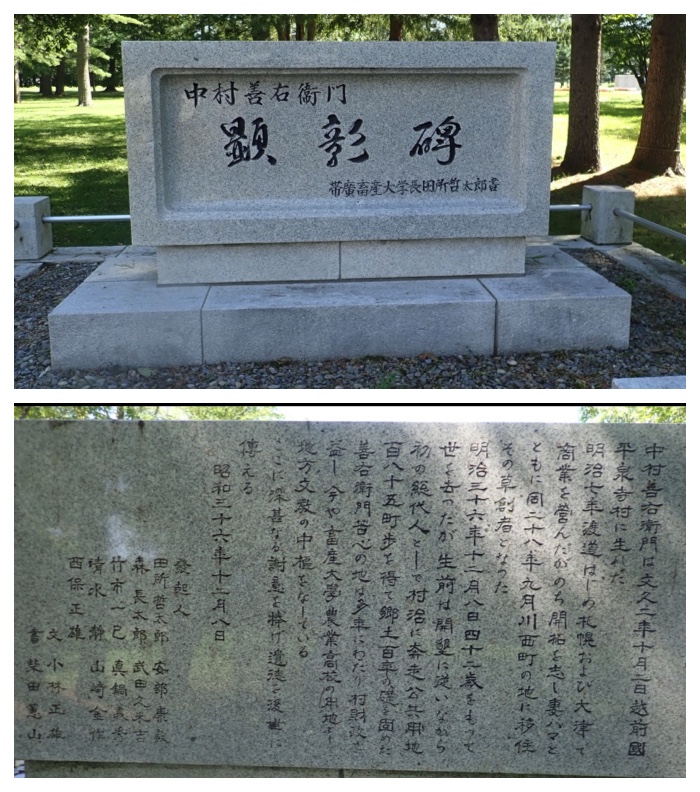
An another monument in the campus of OUAVM, praising the pioneer land owner who offered his land to Obihiro Agricultural High School and OUAVM.
帯広畜産大学と帯広農業高校に用地を提供した初期開拓者の顕彰碑。帯広畜産大学キャンパス内。
Views from Tokachi Hills Garden and Morinoyama.
十勝ヒルズと帯広の森「もりの山」からの眺め。
My friend during my student age visited me after 37 years absence since the occasion of my wedding ceremony with my wife. I brought him to some places in Obihiro where we can enjoy the nice view.
名古屋大学の学生時代の友達が、37年ぶりに訪問してくれたので、十勝ヒルズ、旧愛国駅、畜大、森の山などへ案内しました。快晴で眺めもよくて良かったです。私たち夫婦の結婚式に来てくれて以来の再会でした。
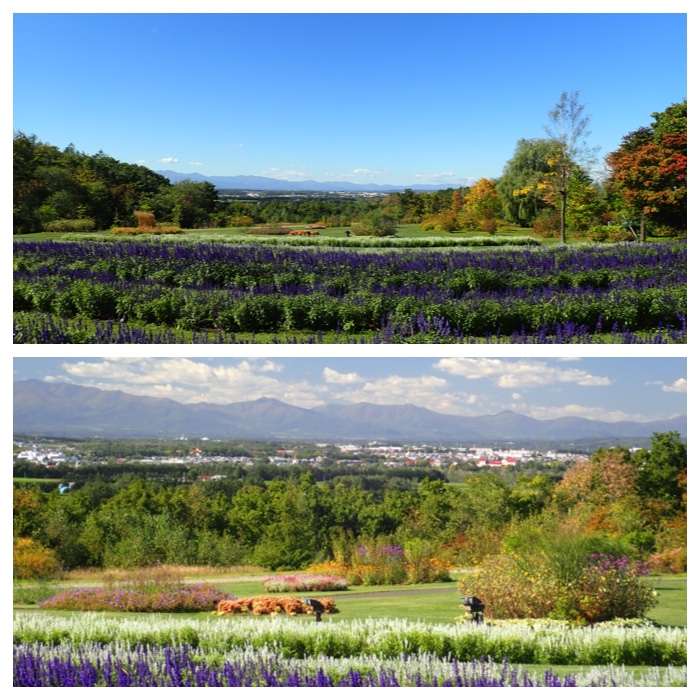
十勝ヒルズガーデン内からの帯広市街方向の眺め。
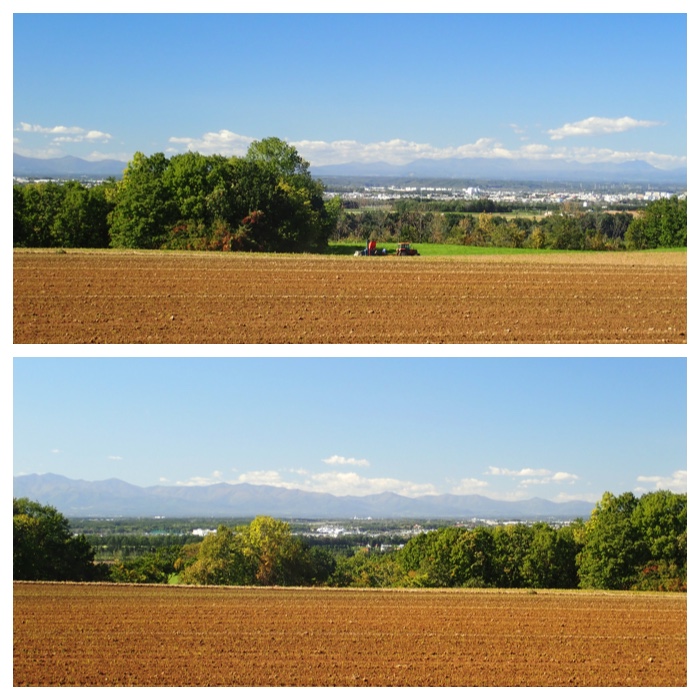
十勝ヒルズガーデン導入路付近からの日高山脈の眺め。
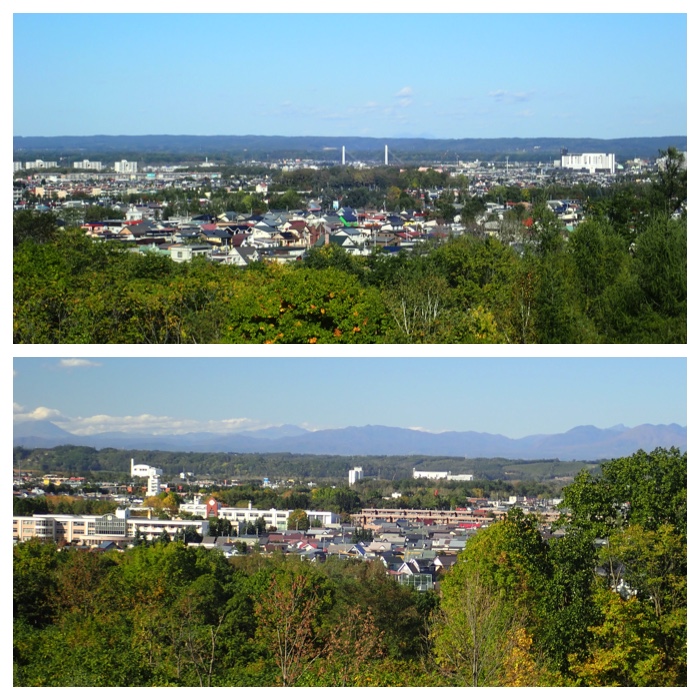
もりの山からの眺め。
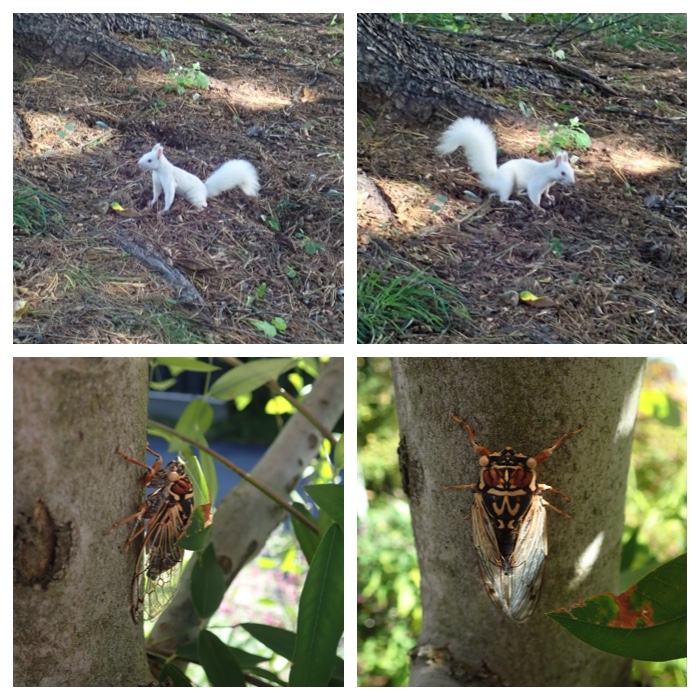
白いリスとコエゾゼミ。遠来の友に見てもらえて良かったです。
Outing to Fukuhara-Sansou lodge with red maple leaves and Mt. Haku-un-san.
紅葉の福原山荘と白雲山の散策。
On October 5, I went out to see red maple leaves in the garden of Fukuhara-Sanso lodge in the mountain foot area of Shikaribetsu. It is a private garden, and open to public only in this season until October 21.
After visiting the garden of Fukuhara-Sanso lodge, I proceeded to Shikaribetsu lake and Mt. Haku-un-san. As it was already after 3 o'clock when I arrived at the starting point of Mt. Haku-un-san, I could not climb to the summit of the mountain. I walked around 2 hours in the mountain and came back. It was a very comfortable walk, because the weather was fine and not hot.
台風25号の接近で連休中はお天気が崩れそうなので、10月5日の昼過ぎから福原山荘と然別湖・白雲山に行ってきました。福原山荘には初めて行きましたが、紅葉がとてもきれいでした。場所は菅野温泉に向かう道に入って、3キロほど進んだところにあります。個人の庭園なので、今の時期だけ特別開園されています(10月21日まで)。
福原山荘で紅葉を見たあと、然別湖と白雲山に行きました。白雲山の登山口に着いたのが15時過ぎだったので、山頂まで行って帰ってくる時間はなく、最初の尾根まで登って帰ってきました。往復2時間くらいでした。去年も10月の連休に白雲山に登りました。天気も良く、暑くもなく、快適な山歩きとなりました。
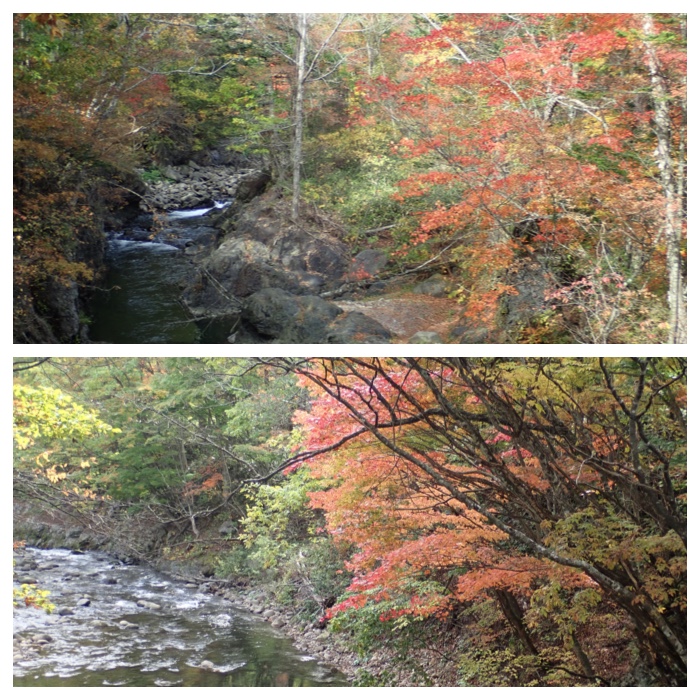
第2駐車場東側の渓流。
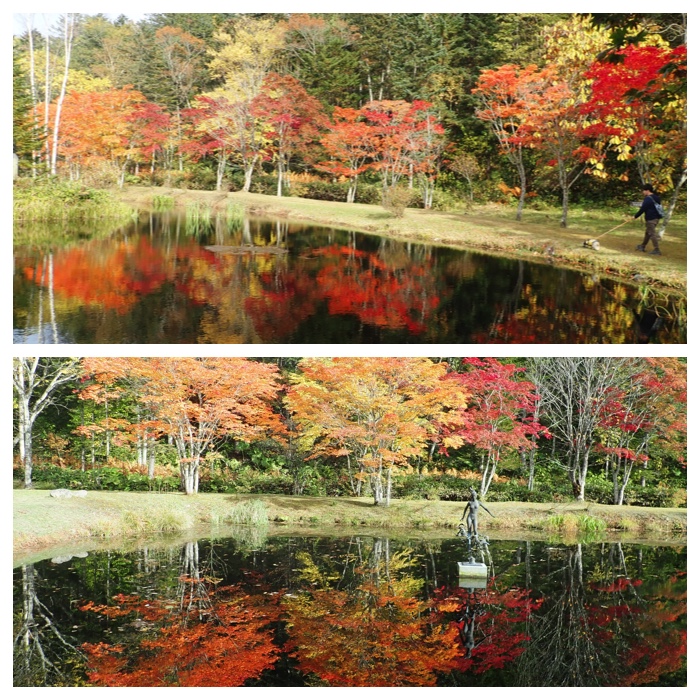
福原山荘内の紅葉。
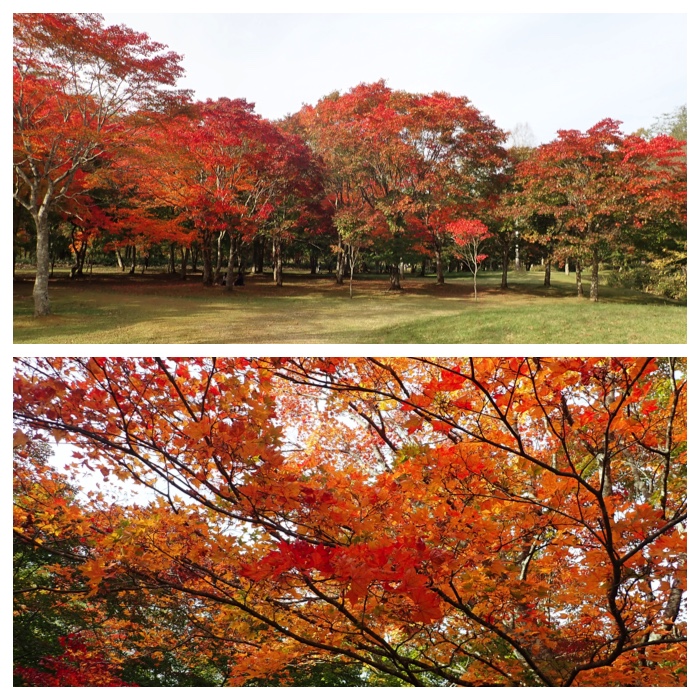
福原山荘内の紅葉。
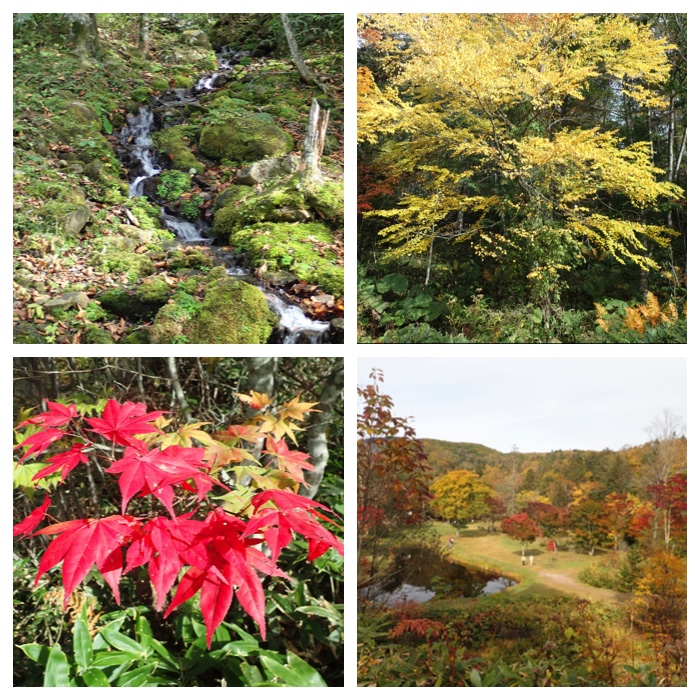
福原山荘内の紅葉。
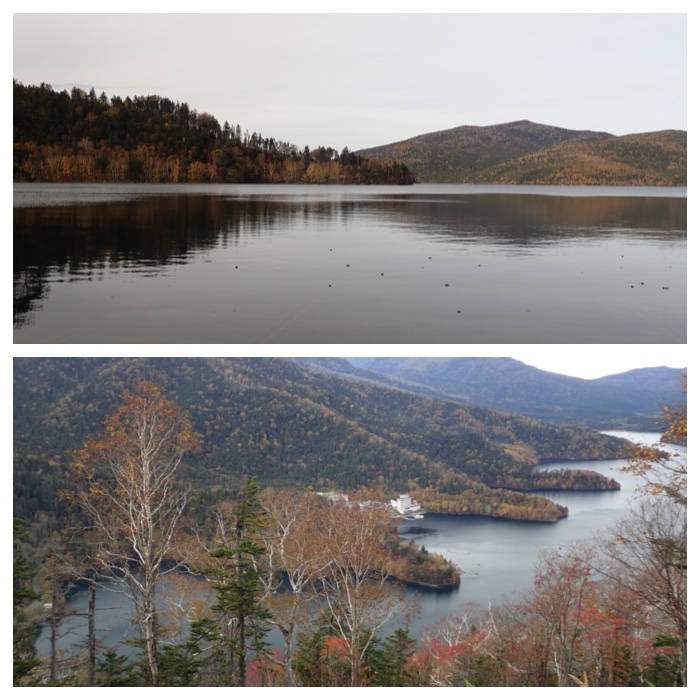
登山口、登山道と湖畔からの然別湖の眺め。
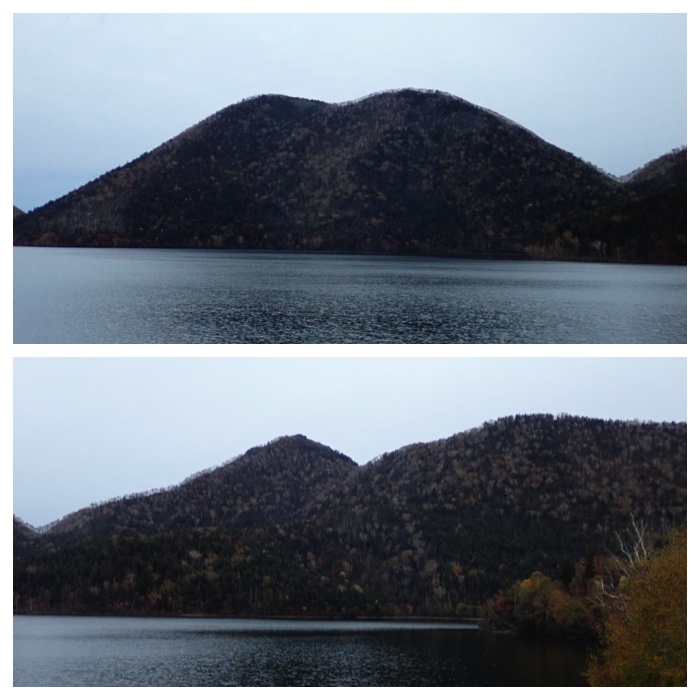
然別湖の眺め。 天望山と白雲山。

然別湖、天望山と白雲山のパノラマ。
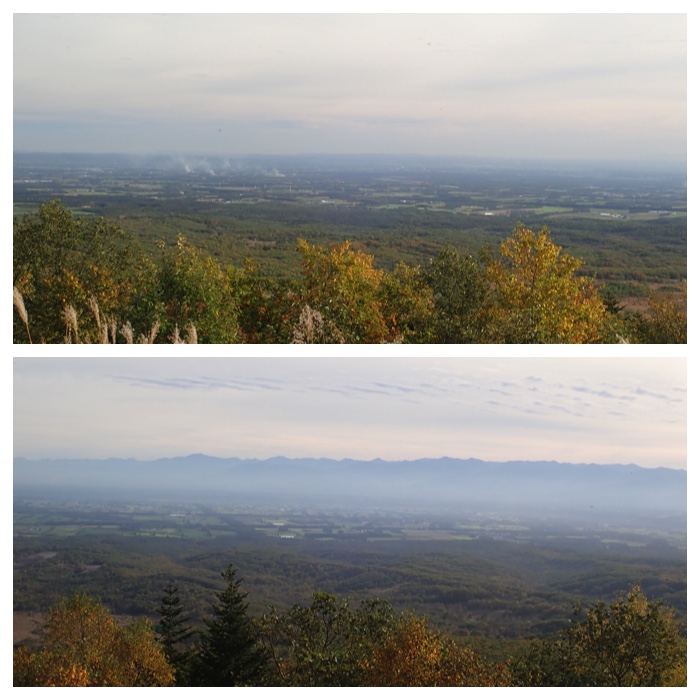
扇ヶ原展望台からの眺め。
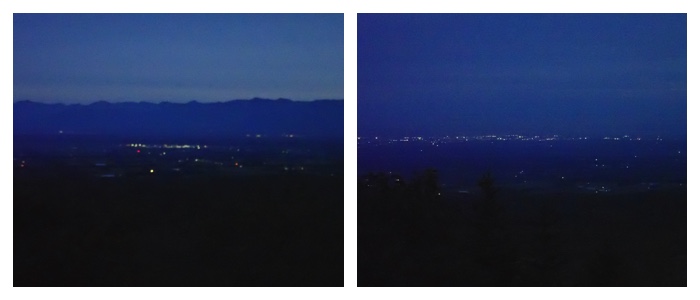
扇ヶ原展望台からの夕刻の眺め。at 17:22, October 5.
Autumn festival in Manabe Garden.
真鍋庭園、秋の祭典。
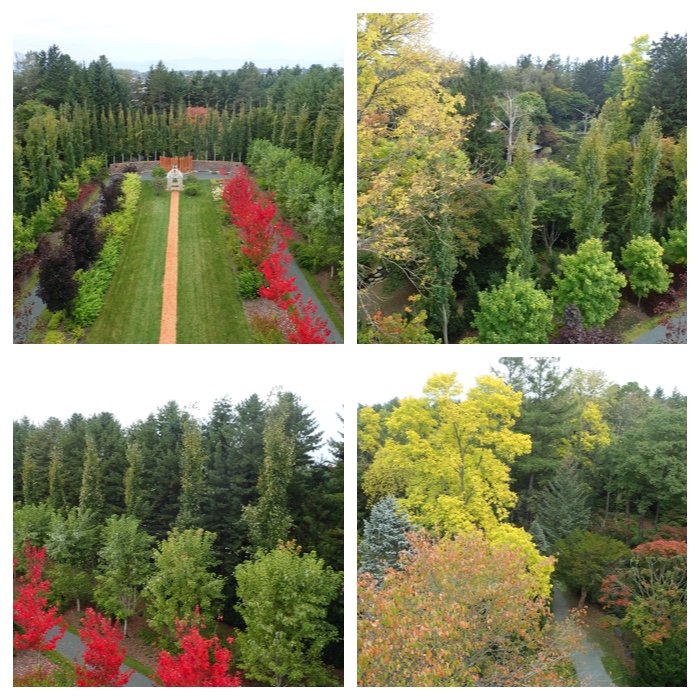
リバースボーダーガーデン周辺の眺め。秋の祭典の特別企画で高所作業車の作業台に乗せてもらって撮りました。
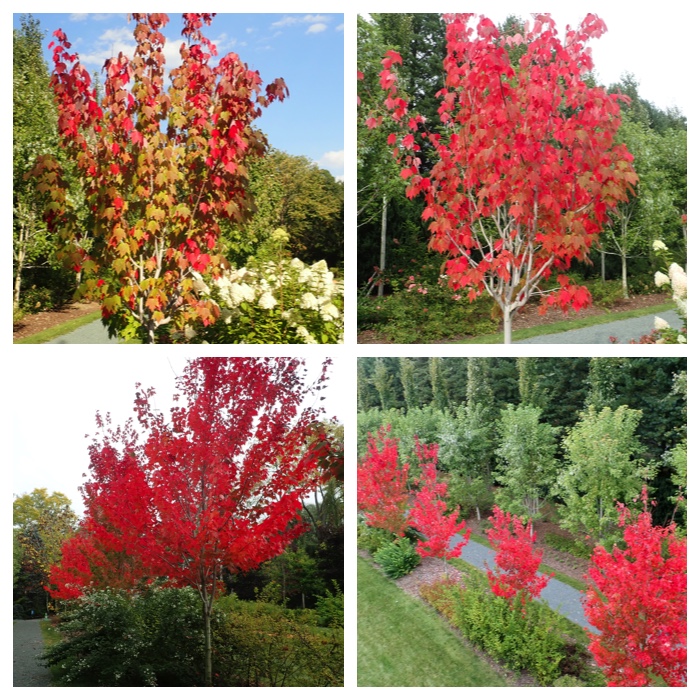
カナディアンメープルが赤く色づいていく様子を9月17日、9月24日、10月6日に撮りました。
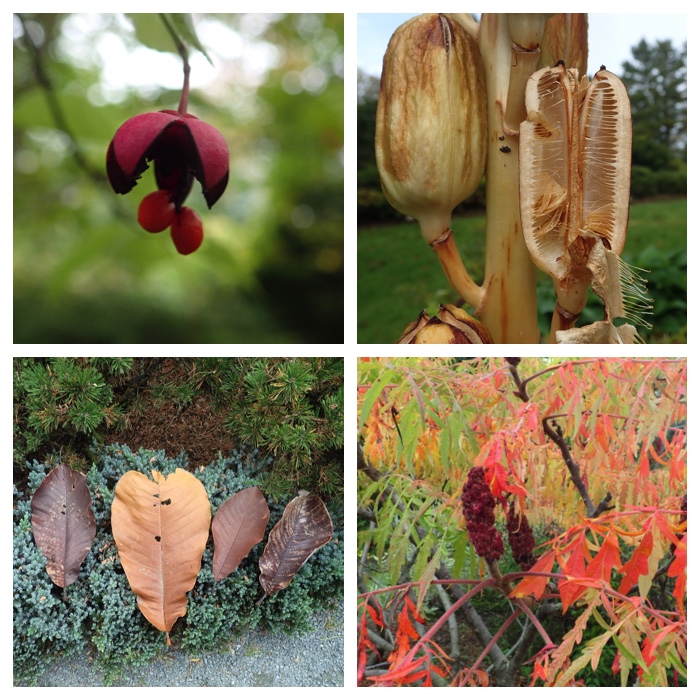
ツリバナ、オオウバユリ、ホオノキの落ち葉、名前不明の草花。
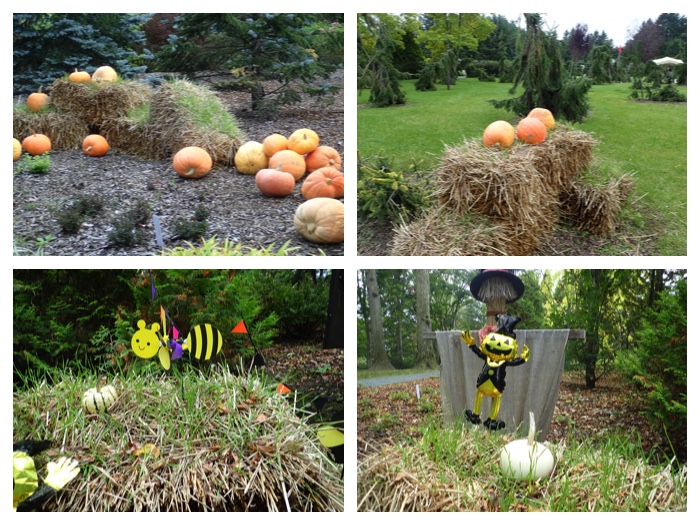
小麦の芽が発芽したハローウィーンデコレーション。
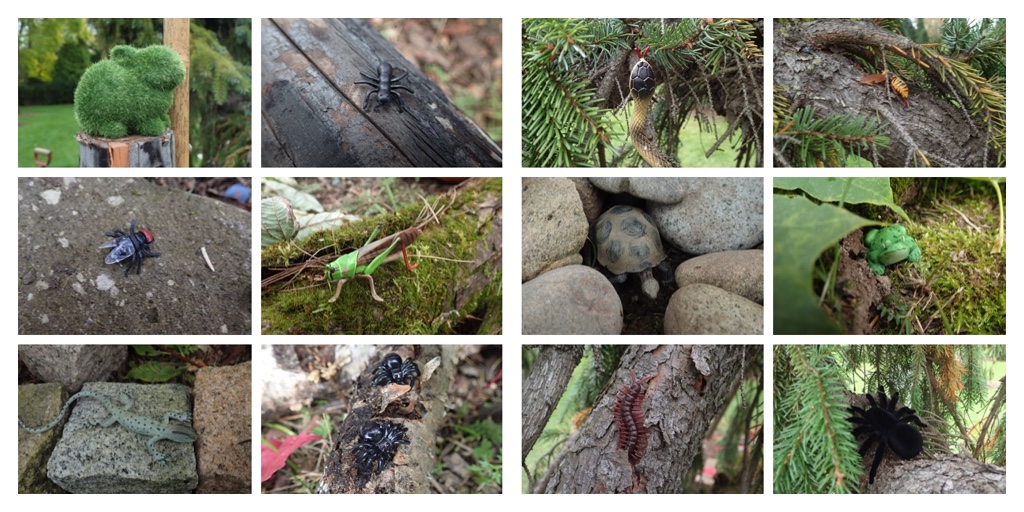
生き物探しゲーム。
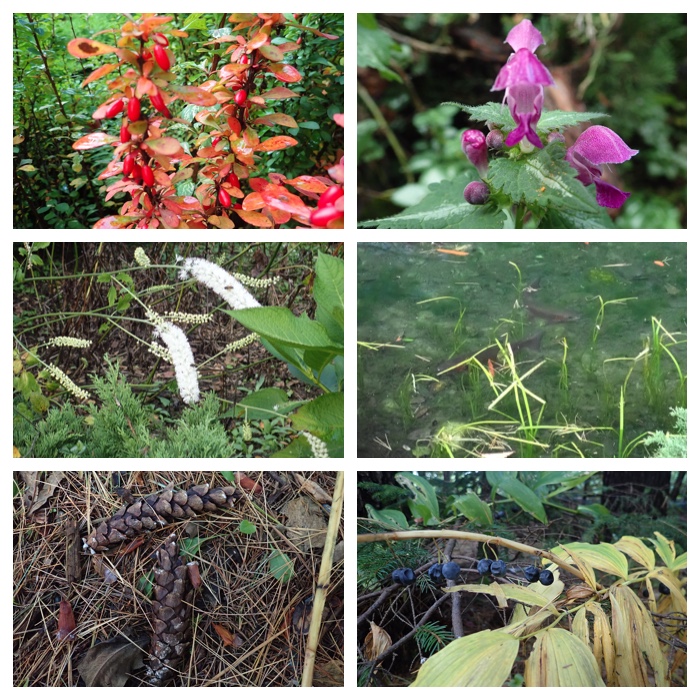
園路の片隅で。
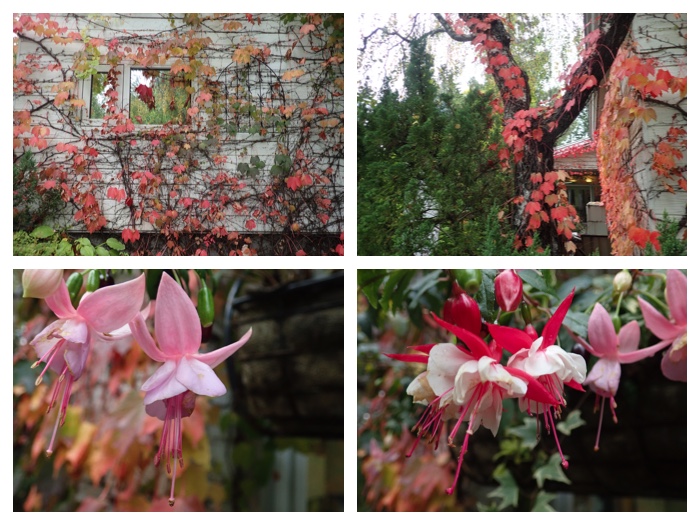
ガーデンセンターのツタと吊り下げられたフクシアの花。
Forest of Agricultural High School and my walking path in autumn color.
秋も深まる農業高校の森と機関庫川沿いの散歩道。
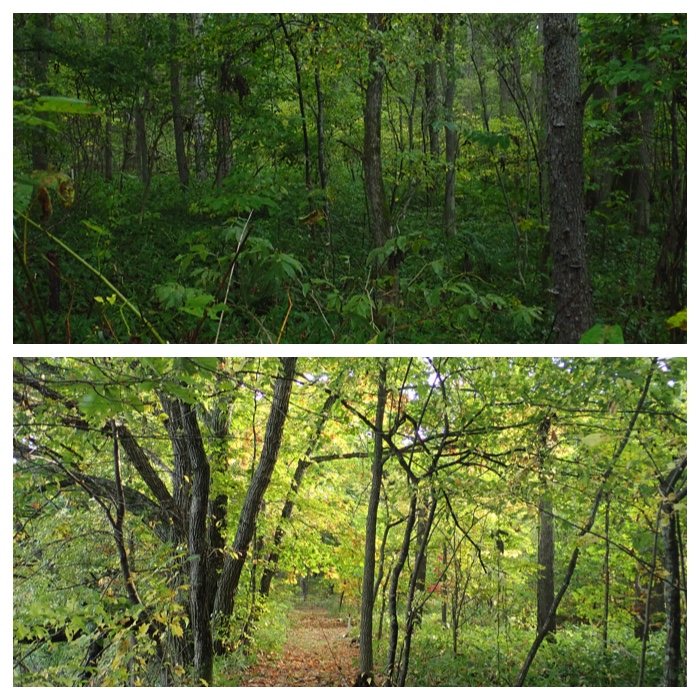
農業高校の森。 上は湿地林、下は段丘崖の上の道。October 9.
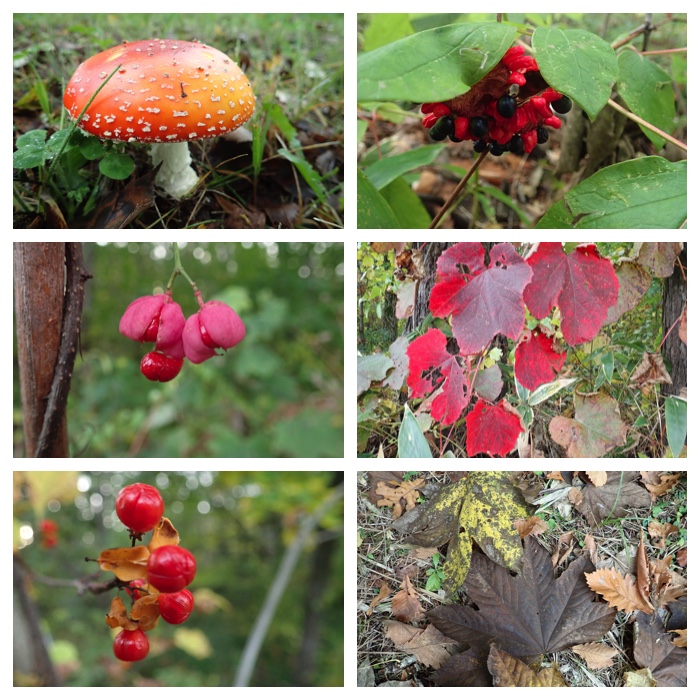
林内の道沿いに見つけた草木の種、落ち葉、キノコなど。 October 9.
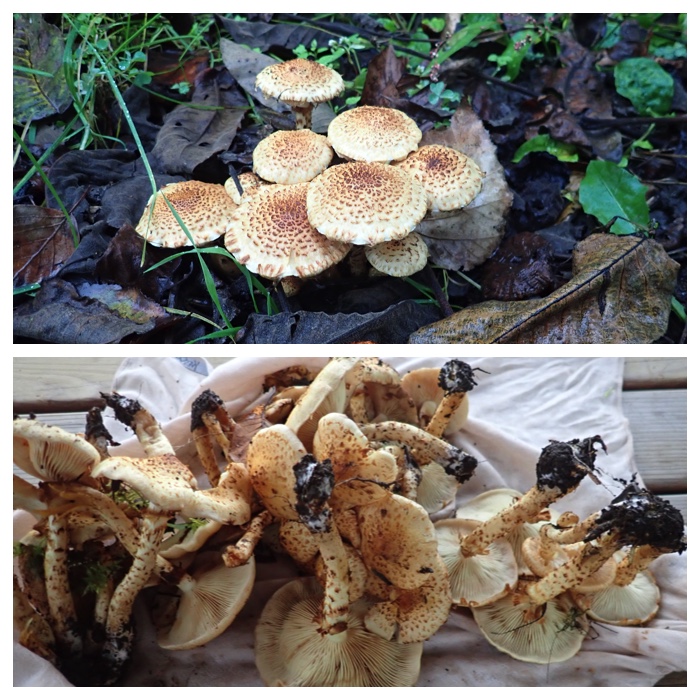
機関庫川沿いの林床に生えていたツチスギタケ。人によっては食中毒を起こすこともあるそうなので注意が必要です。 October 11.
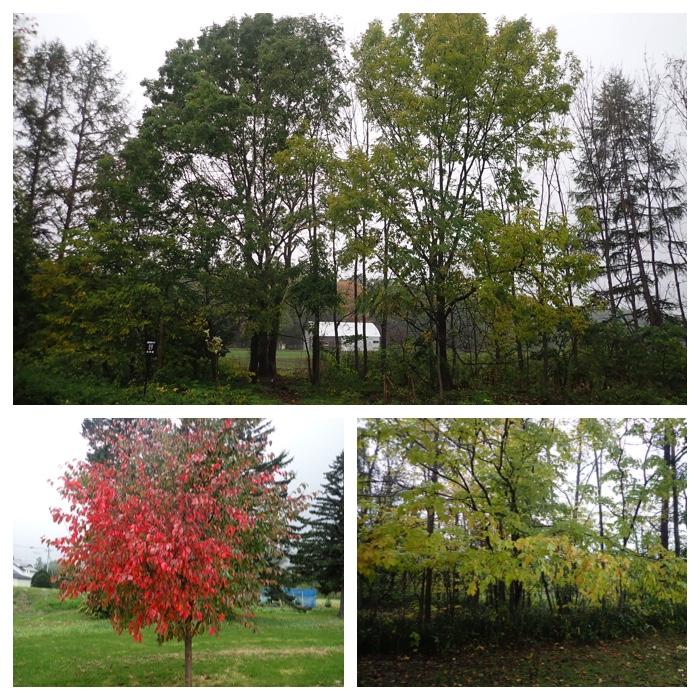
黄色い葉と緑の葉のヤチダモ。木によって葉の色の変わり具合が違うのは何故?エゾヤマザクラの葉の色は枝ごとに違っています。ヤマグワの葉は下の方から黄色になっていました。 October 11.
Autumn colors in the Green Park of Obihiro.
帯広グリーンパークの紅葉。
I visited the green park of Obihiro by bicycle to enjoy the colored leaves. Compared with last year, the autumn color is delayed and not so brilliant maybe damaged by the strong typhoons which attacked Japan repeatedly.
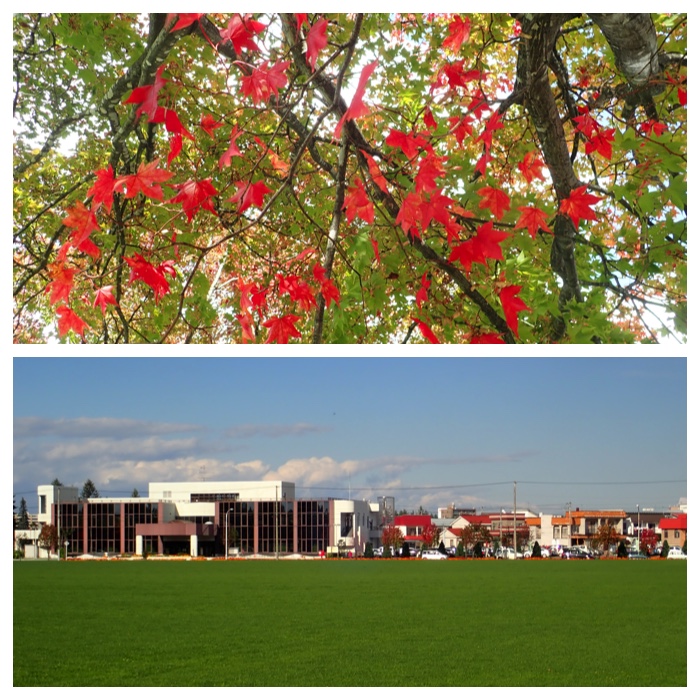
Red maple leaves and the lawn of the green park.
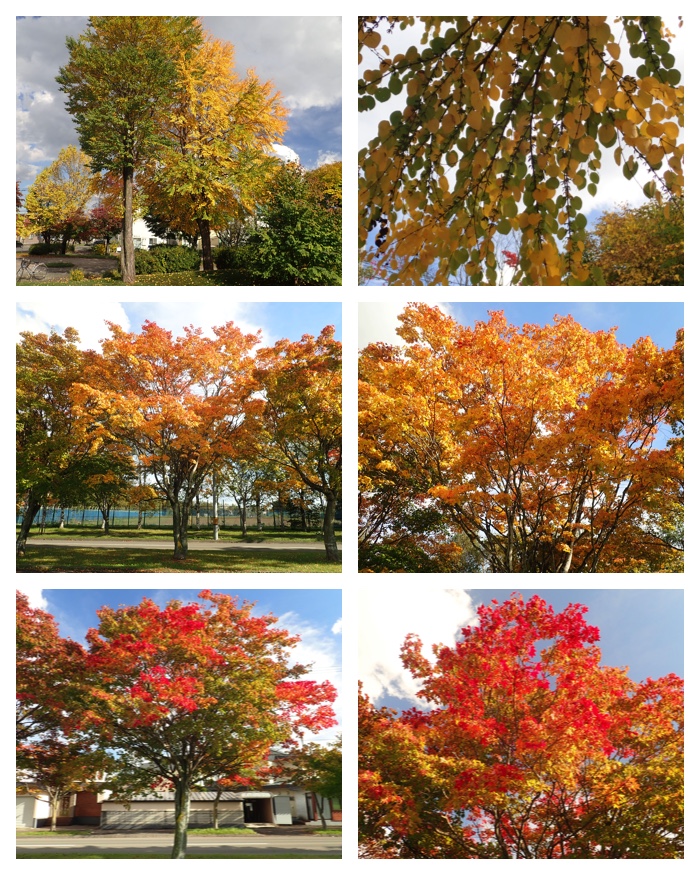
Yellow and red leaves of katsura and maple trees.
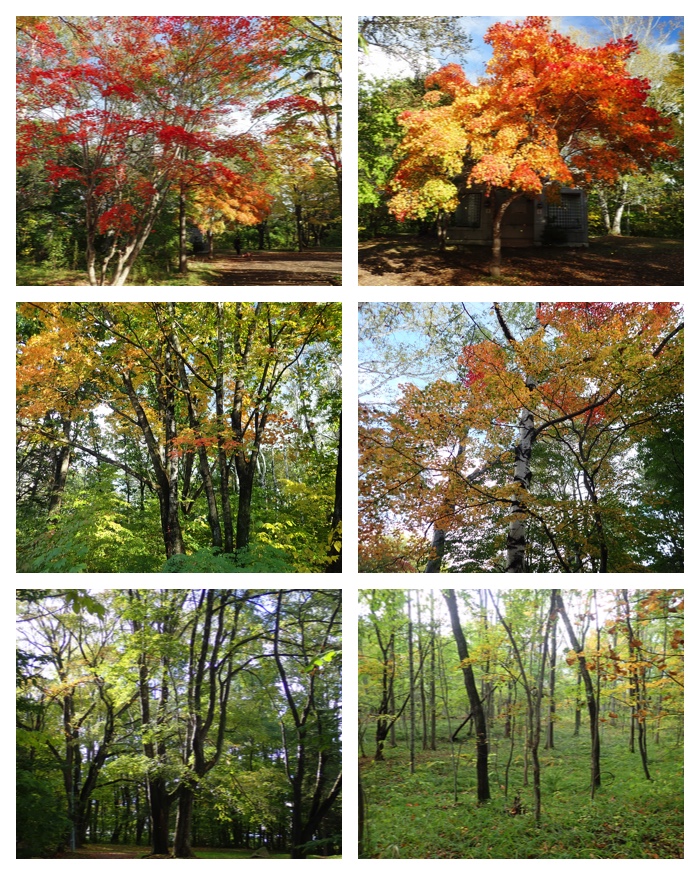
Maple trees and forest in the park.
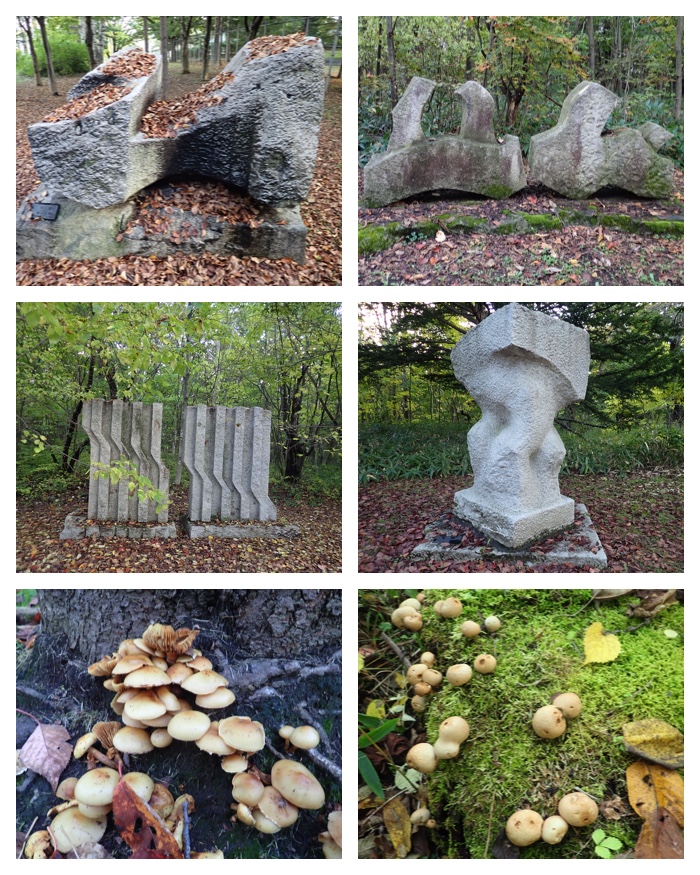
Art stone carvings along the walking path and mushrooms found along the way.
On a super fine day typical in Tokachi.
十勝晴れの日に。
今日は久しぶりの十勝晴れでした。朝からキノコ採り、庭の作物の片付けなどをしたあと、岩内仙境まで行きました。わが家から真南に25kmほど離れたところにありますので、自転車では無理と思い、自家用車で行きました。去年も同じ時期に行きましたが、去年のほうが紅葉はきれいでした。その後、帰り道に紫竹ガーデンにも寄り、さらに真鍋庭園も巡って帰ってきました。
Today, we had a very fine day here in Tokachi. People in Tokachi, Hokkaido, are proud of such fine day calling "Tokachi-bare". I went to the river-side forest of Kikanko river to pick mushrooms, cleaned my crops in the garden, then visited three view spots in the suburbs of Obihiro city, Iwanai Senkyou (hidden valley in Iwanai), Shichiku garden, and Manabe garden.
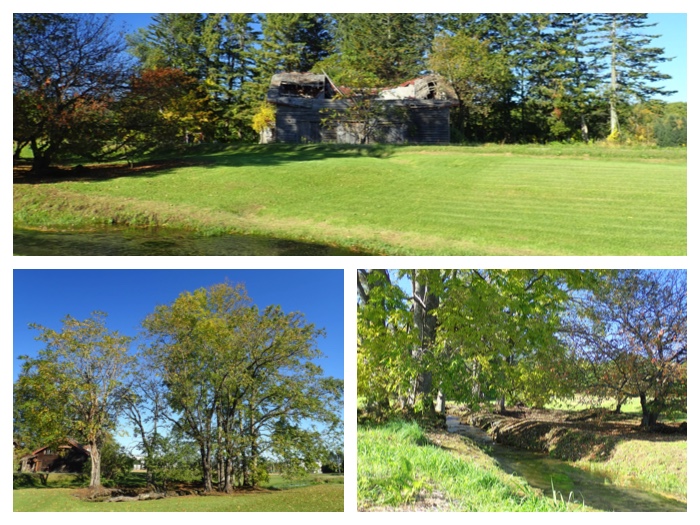
An abandoned farm house beside Kikanko river.
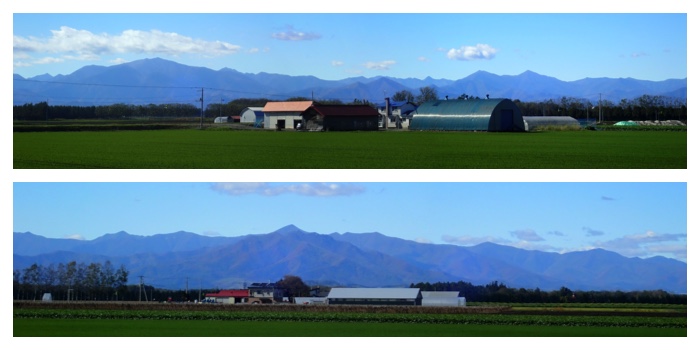
View of Hidaka mountains, "Tokachi-Poroshiri" and "Tsurugi-san" .
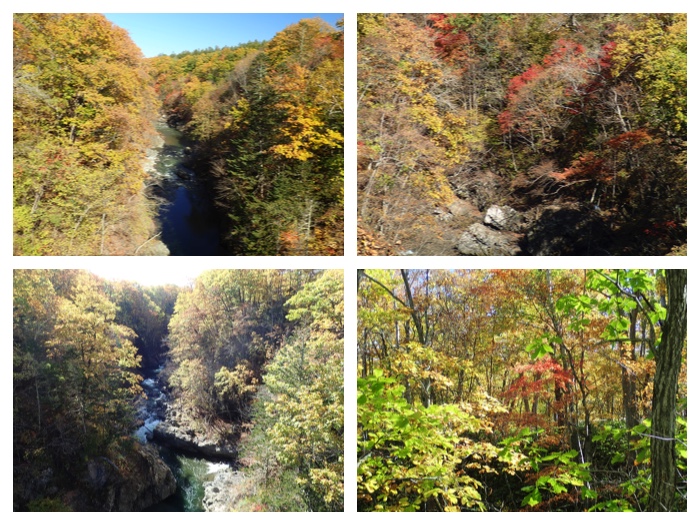
View of the hidden valley in Iwanai, "Iwanai Senkyou".
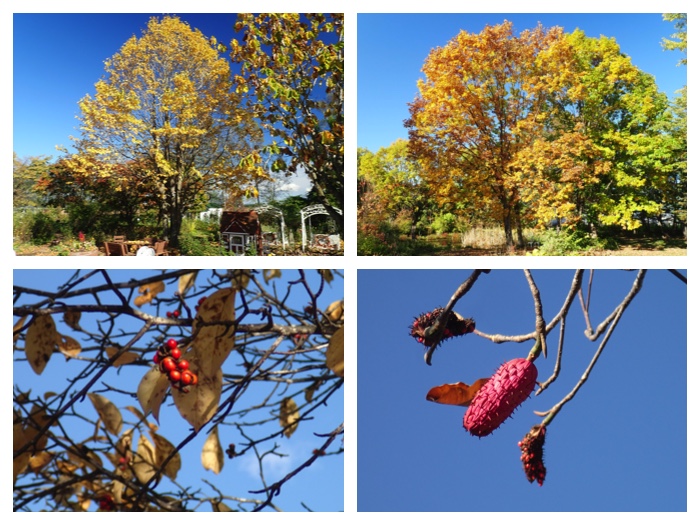
Shichiku garden. Two types of magnolia (Kobushi and Mokuren) and their seeds. An oak tree is also shown (upper right).
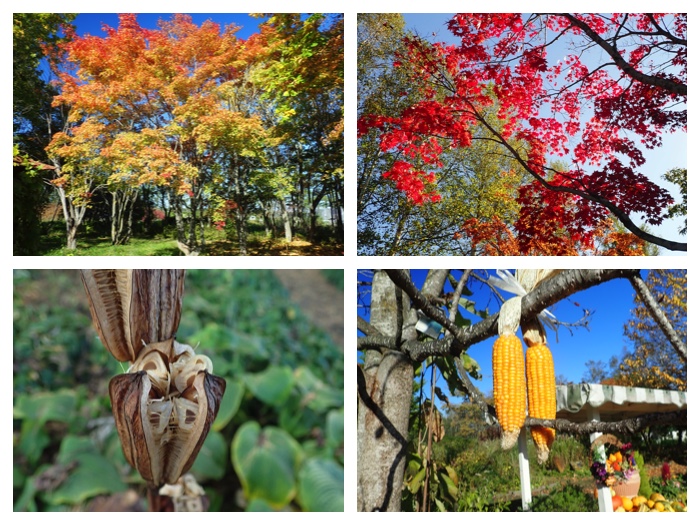
Shichiku garden. Yellow and red maple trees, a hatched seeds of wild lily (Ooubayuri) and the ears of dent corn hung on a tree branch.
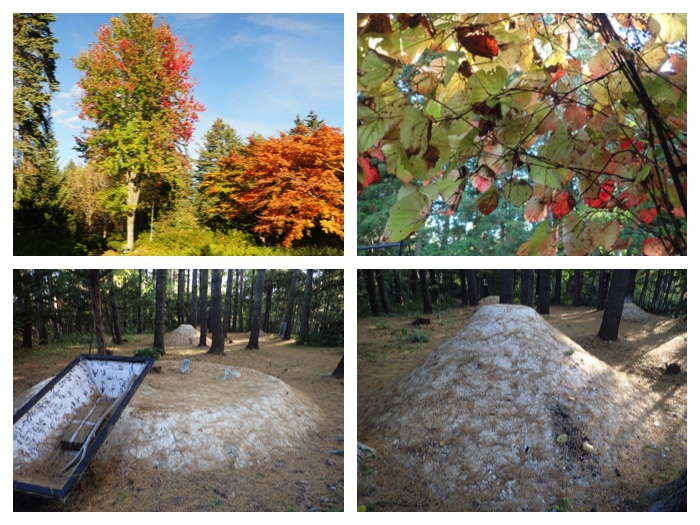
Manabe garden. Two different types of maple tree, leaves of wild grape, and open air art works covered with needle leaves.
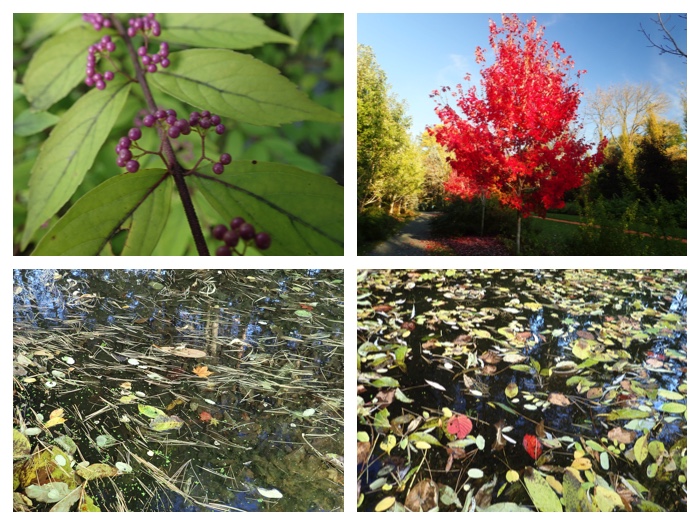
Manabe garden. A grass with purple colored seeds (Murasaki-shikibu) and a Canadian maple tree, and fallen leaves floating on the water surface.
"For the contents after October 2018, just click this line. Articles No. 194-200 are overlapped."
